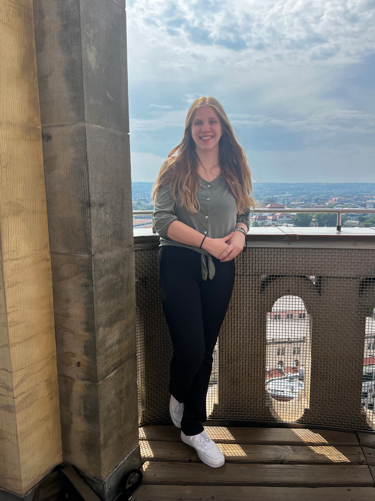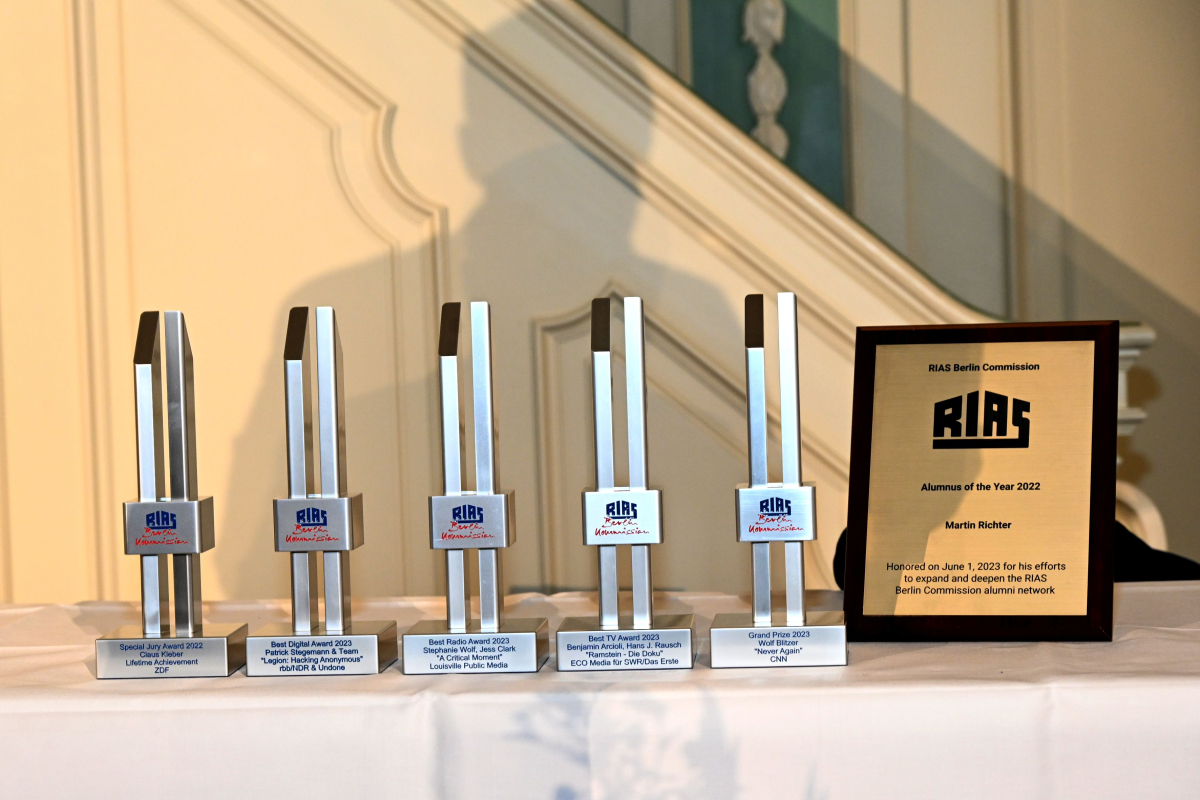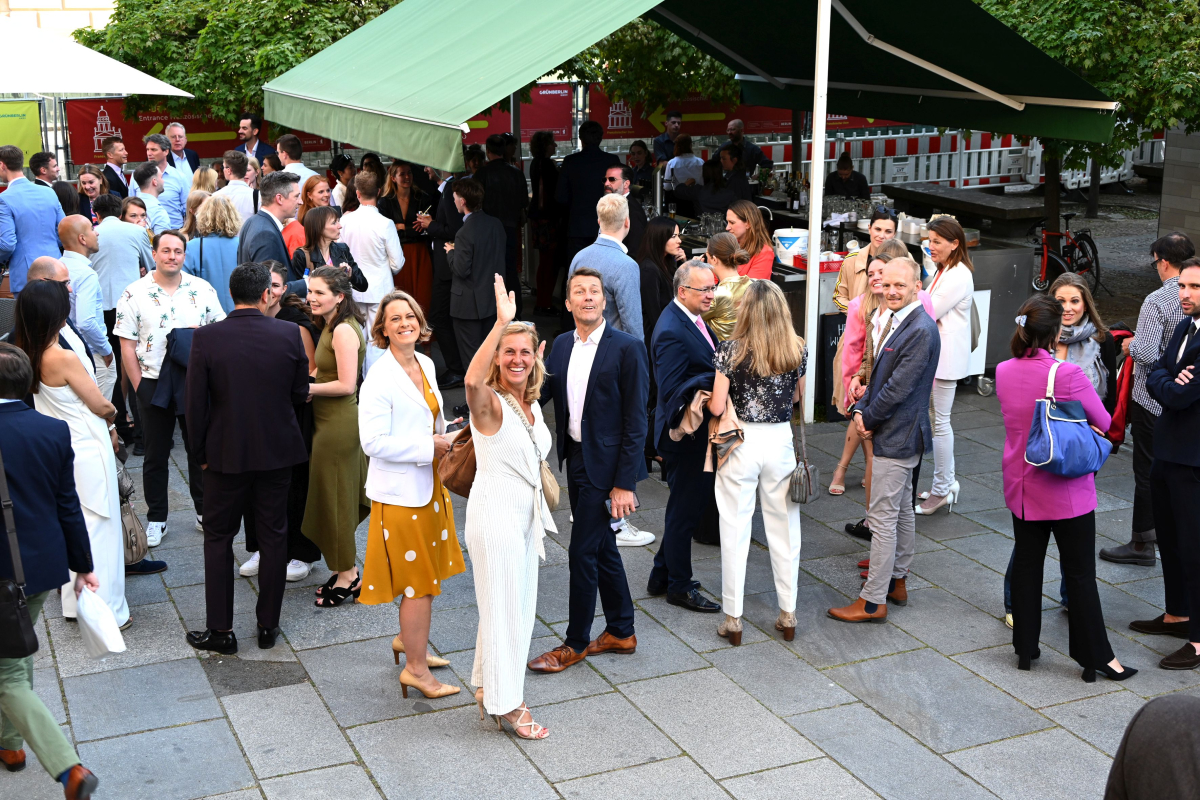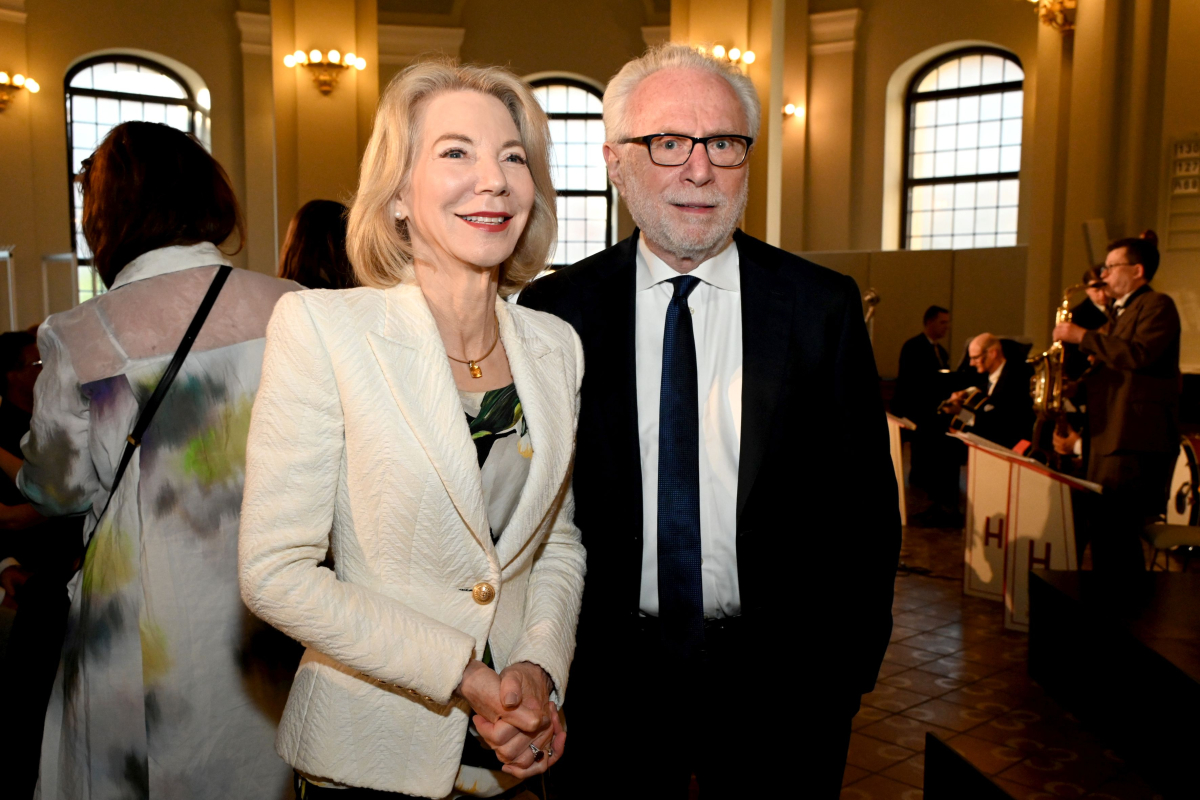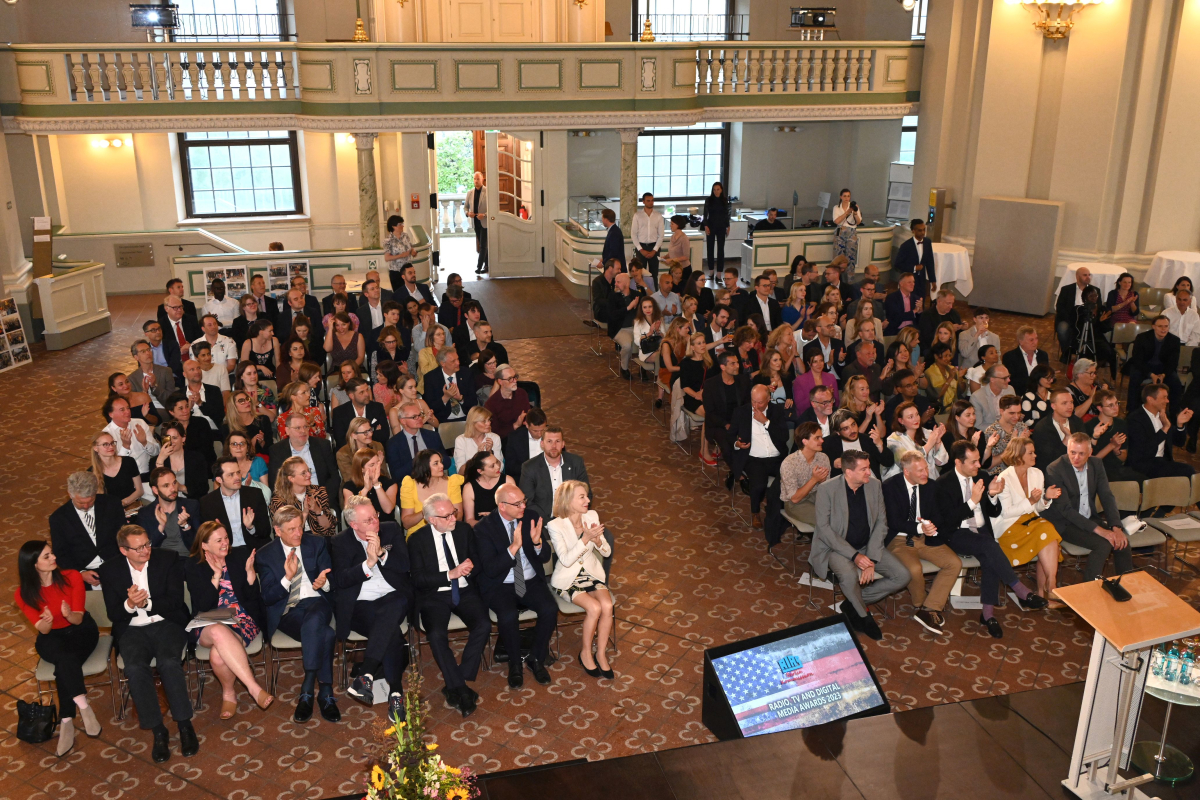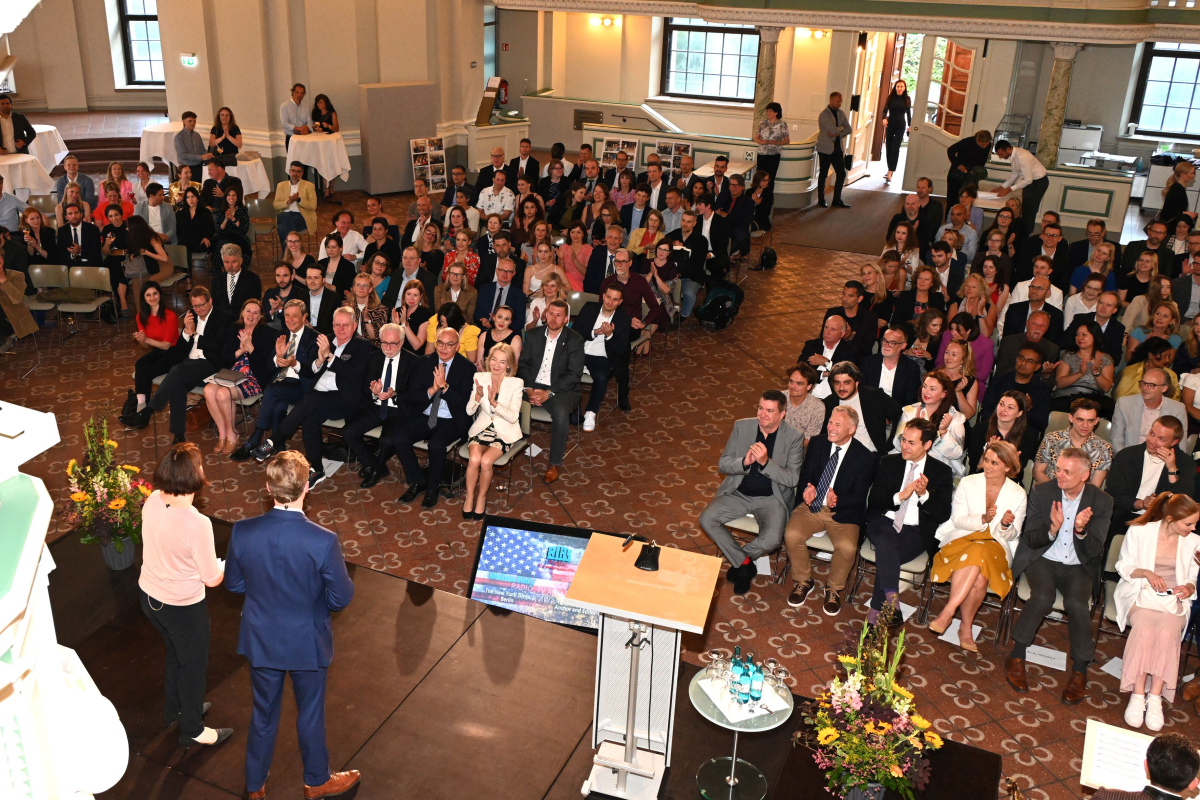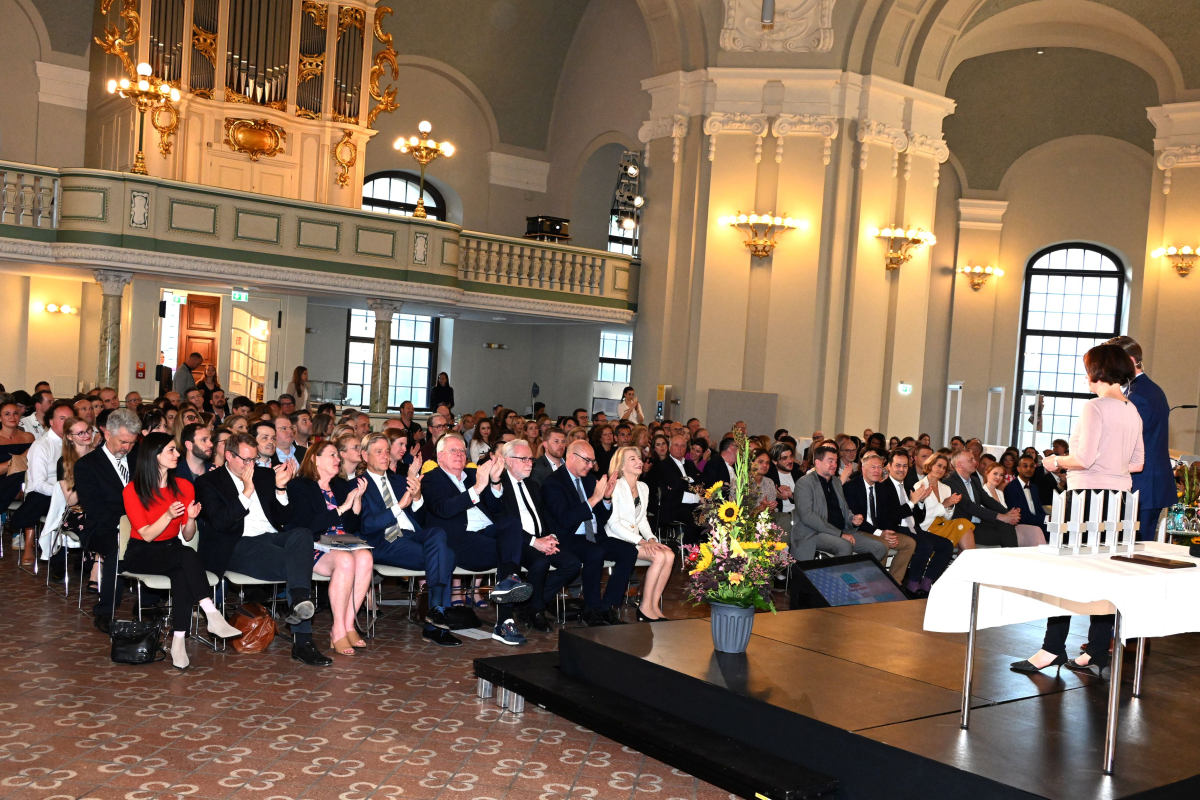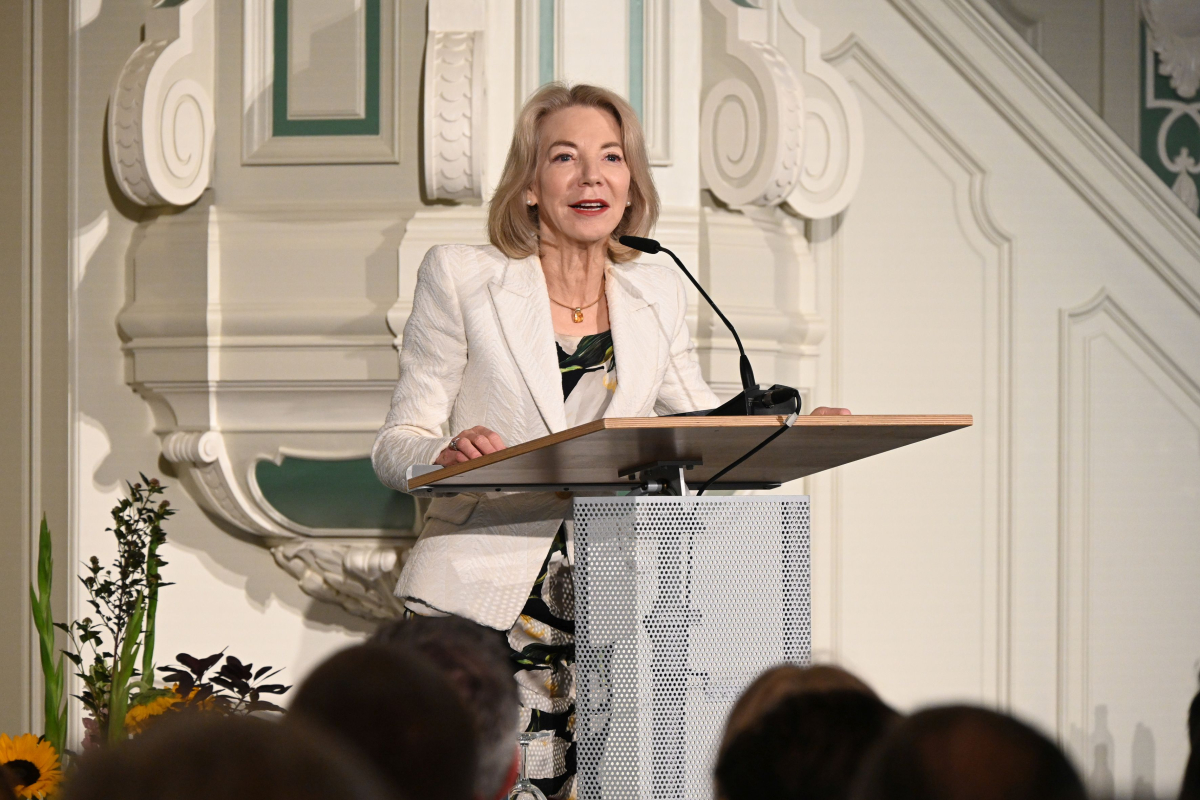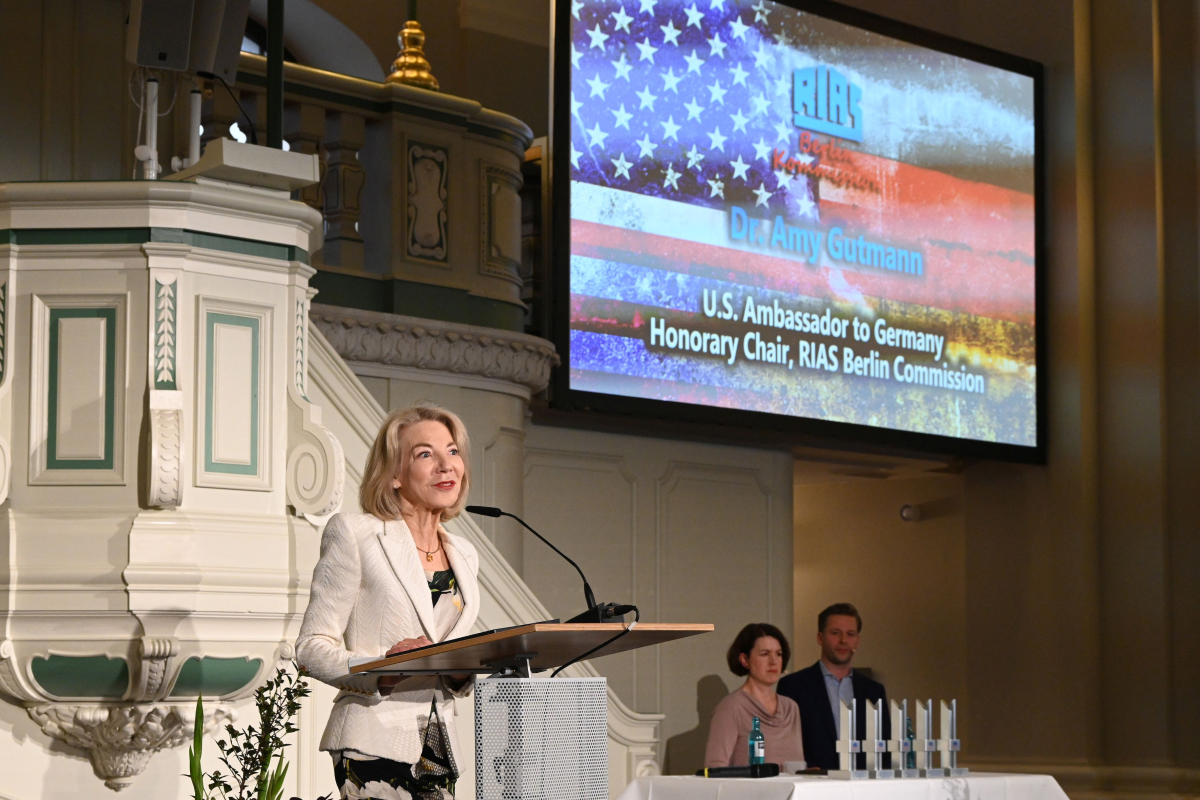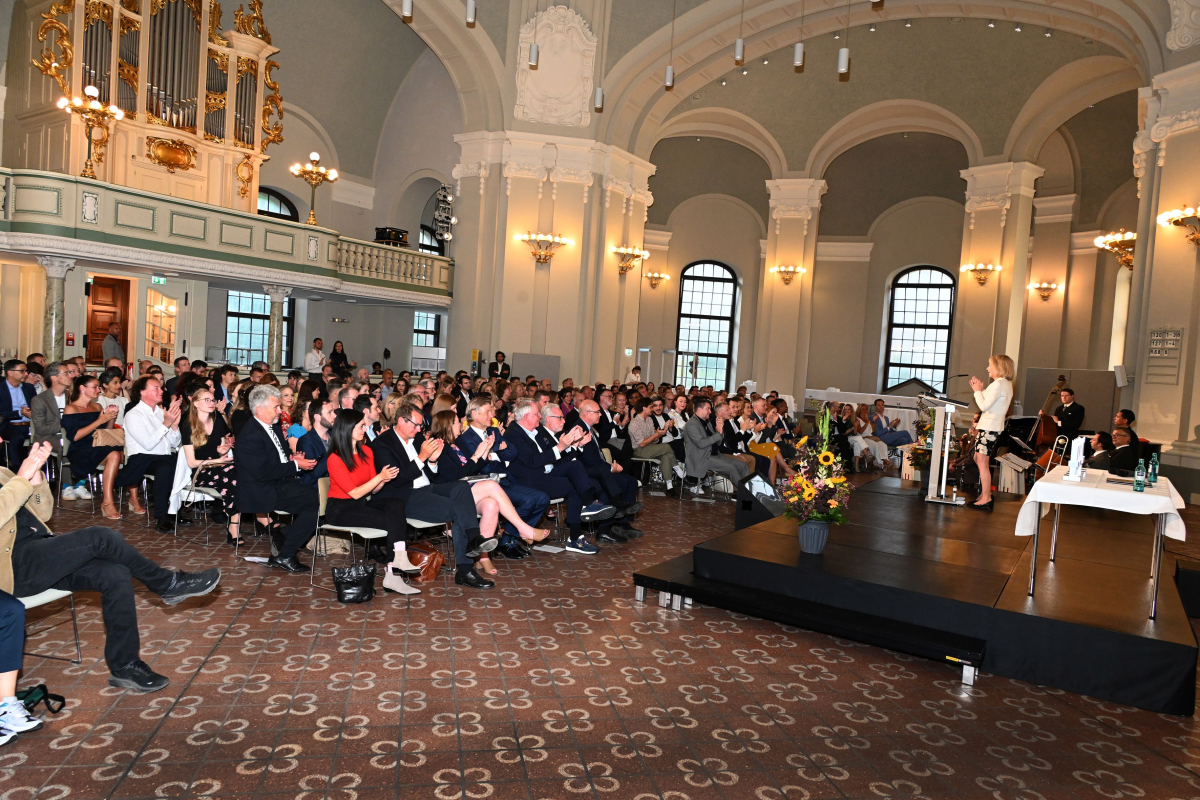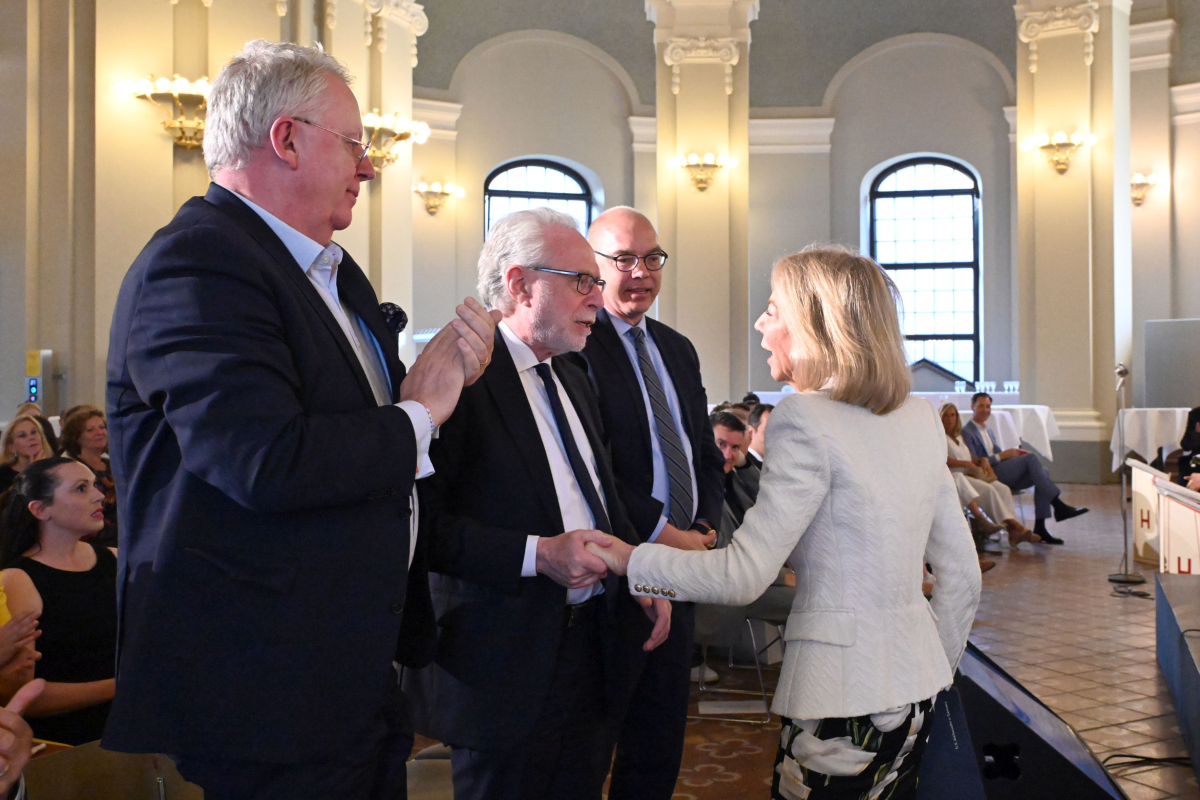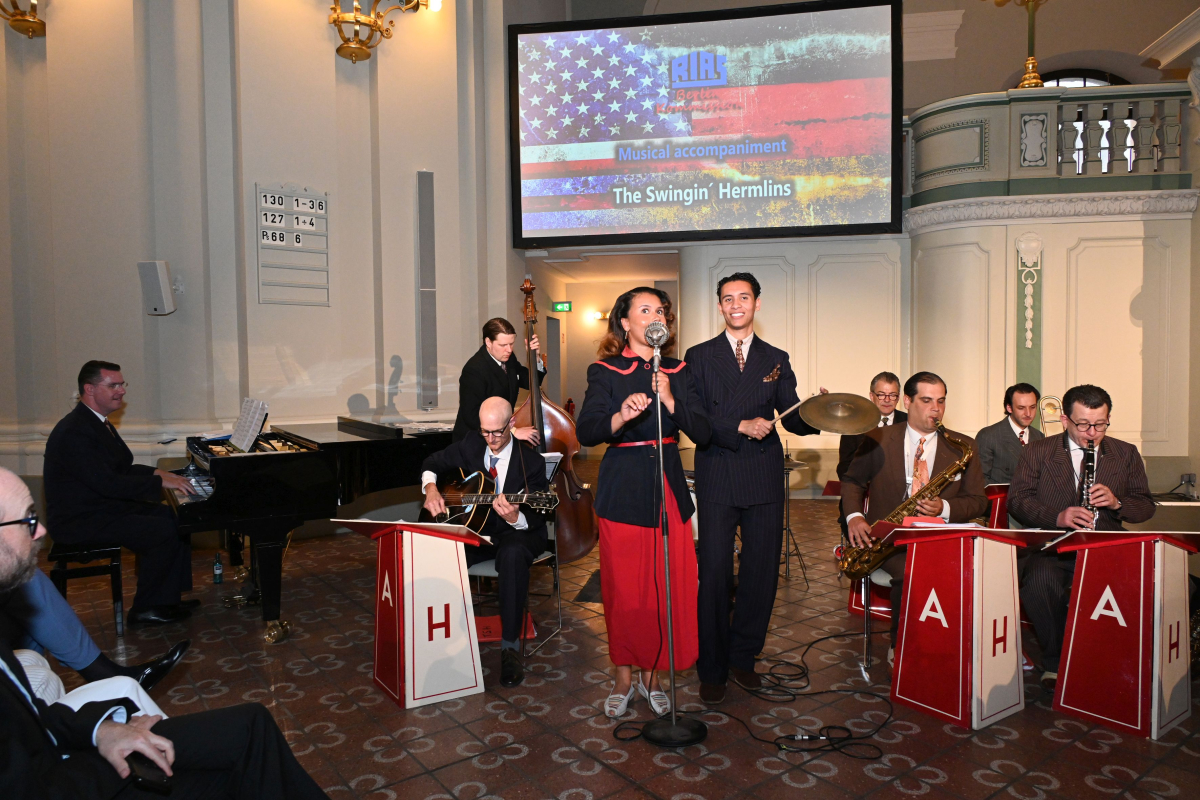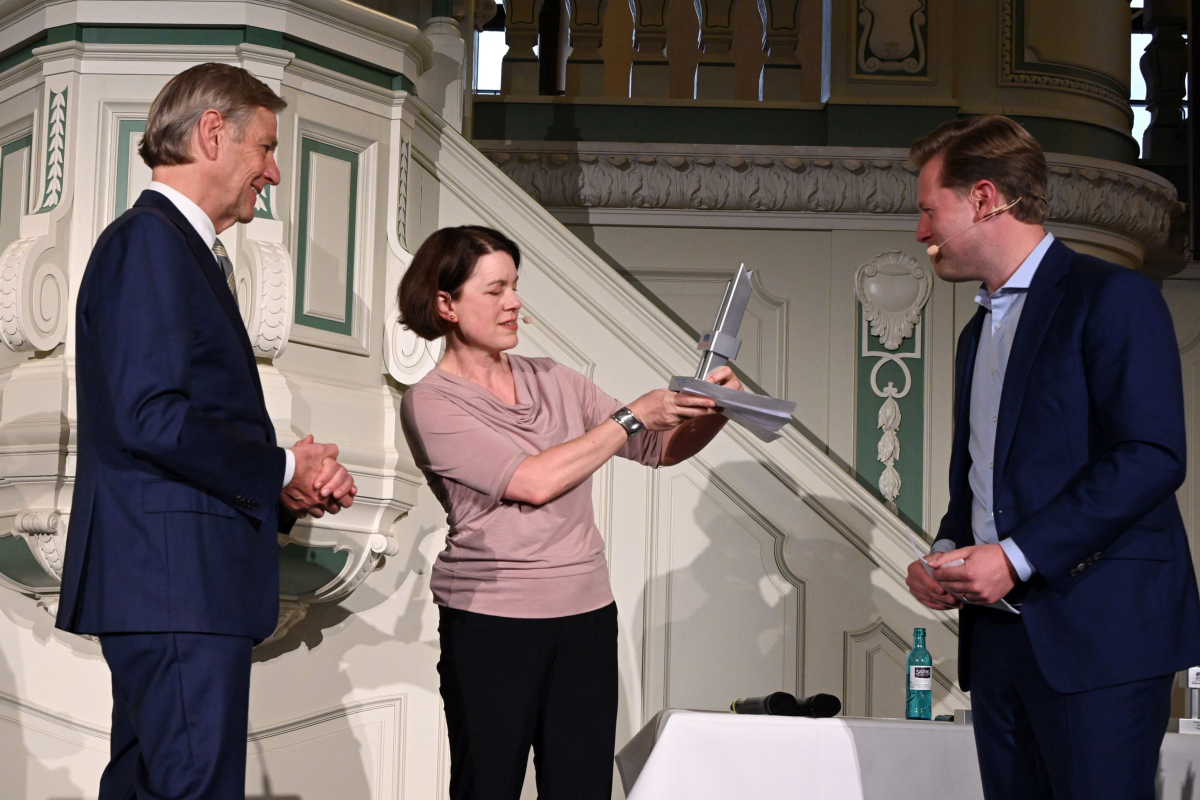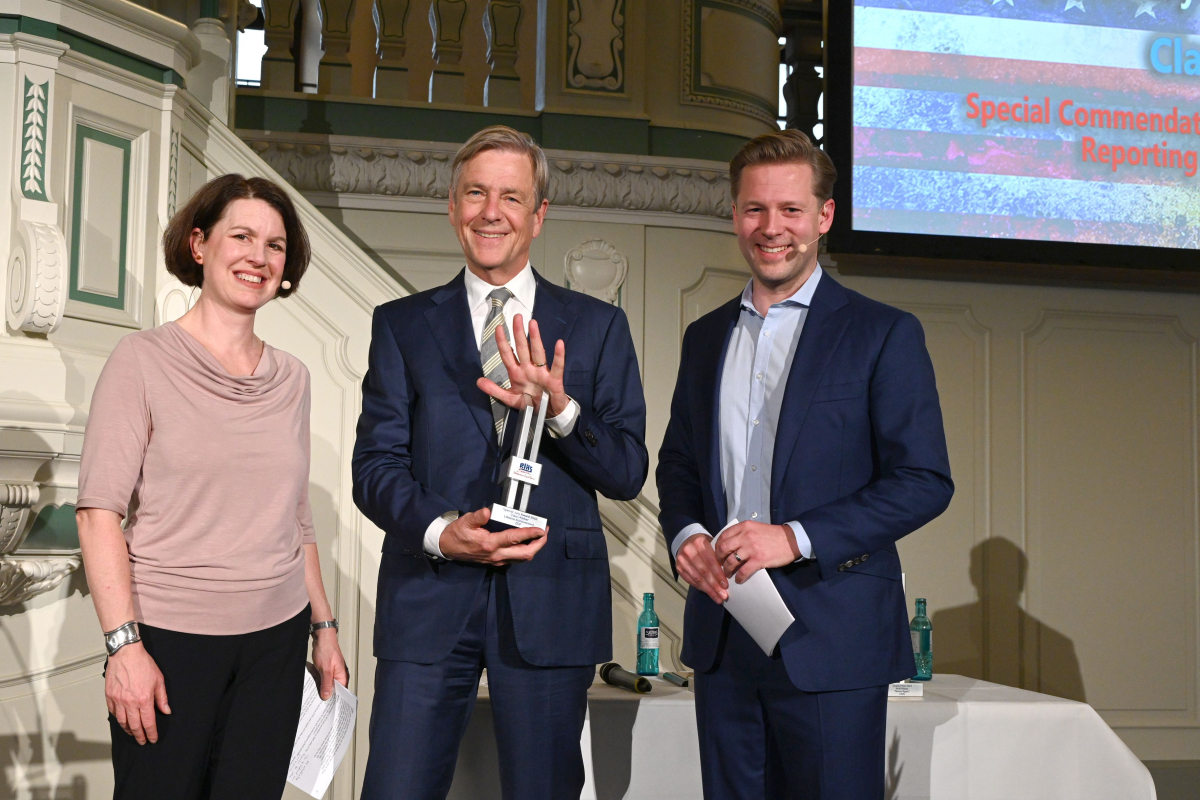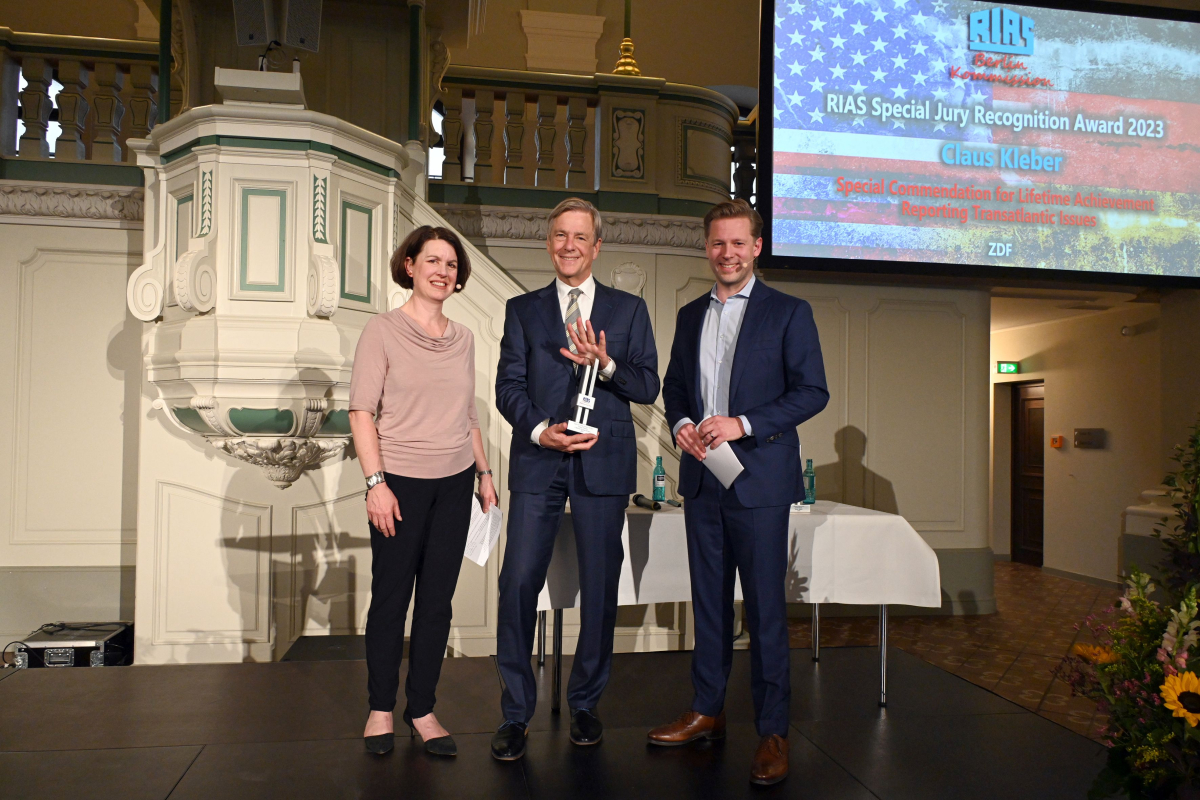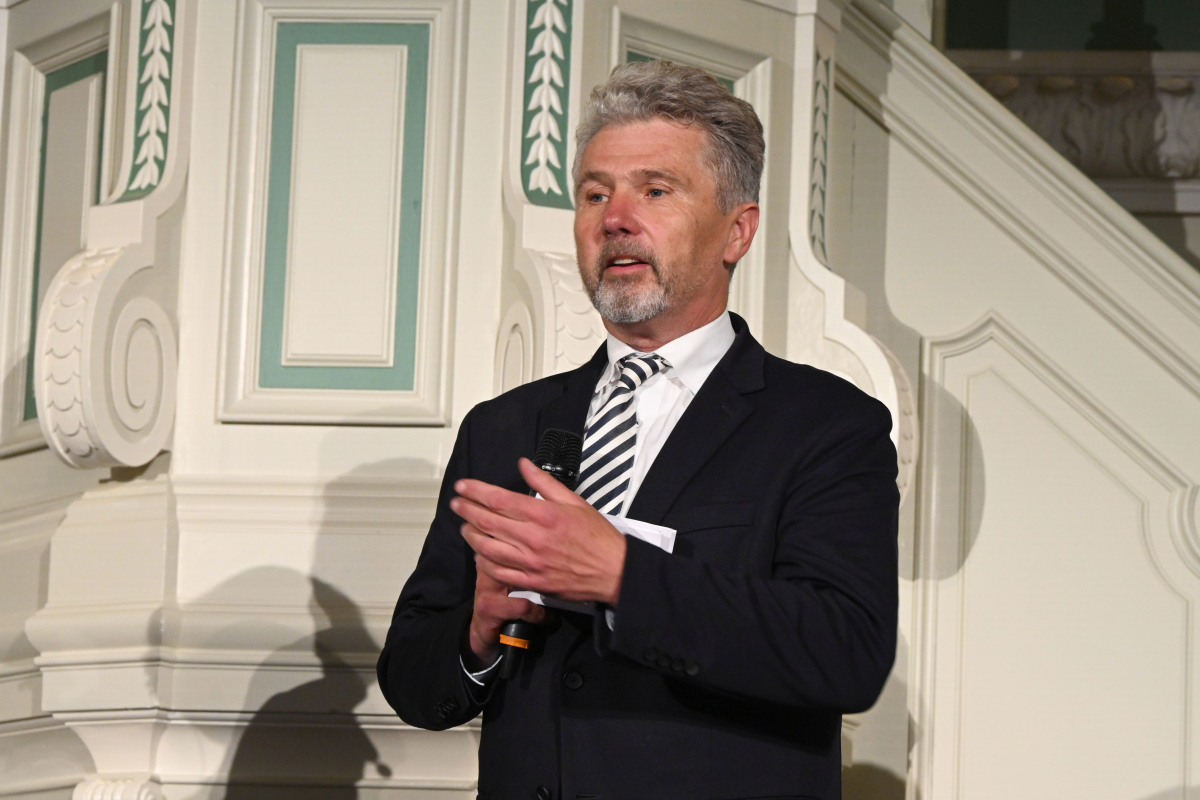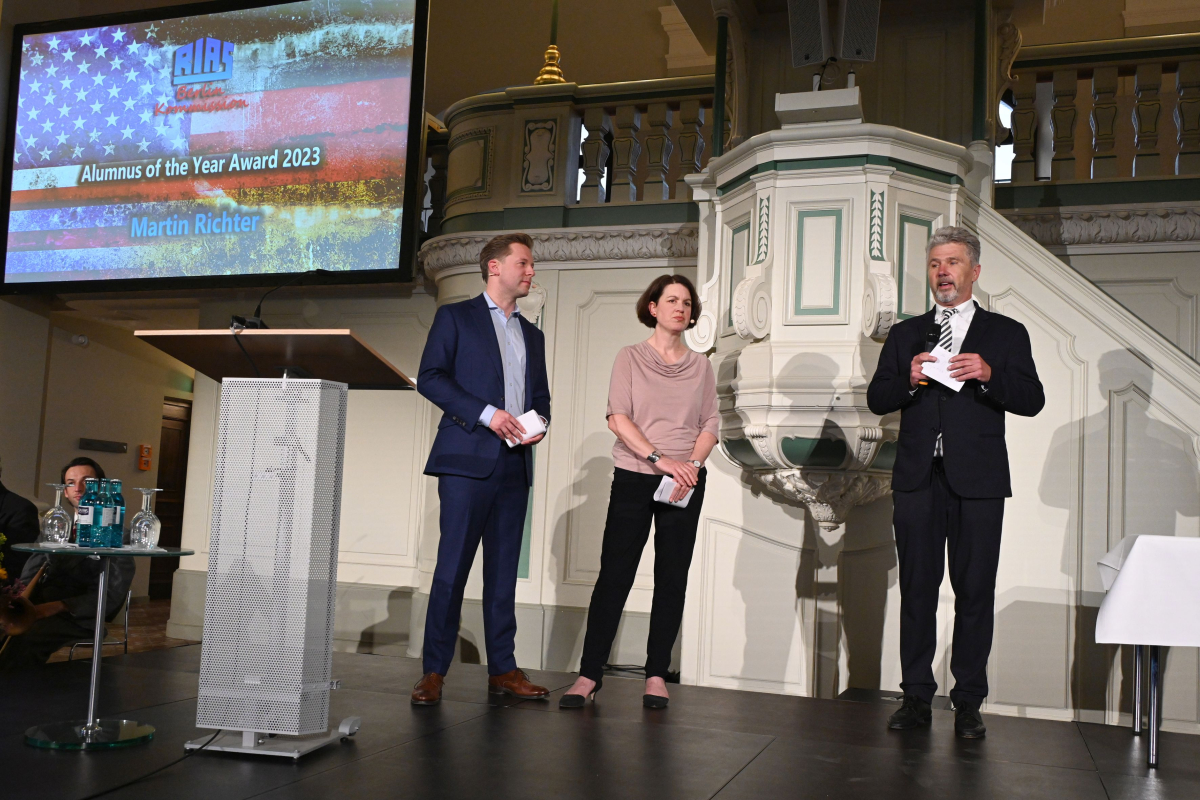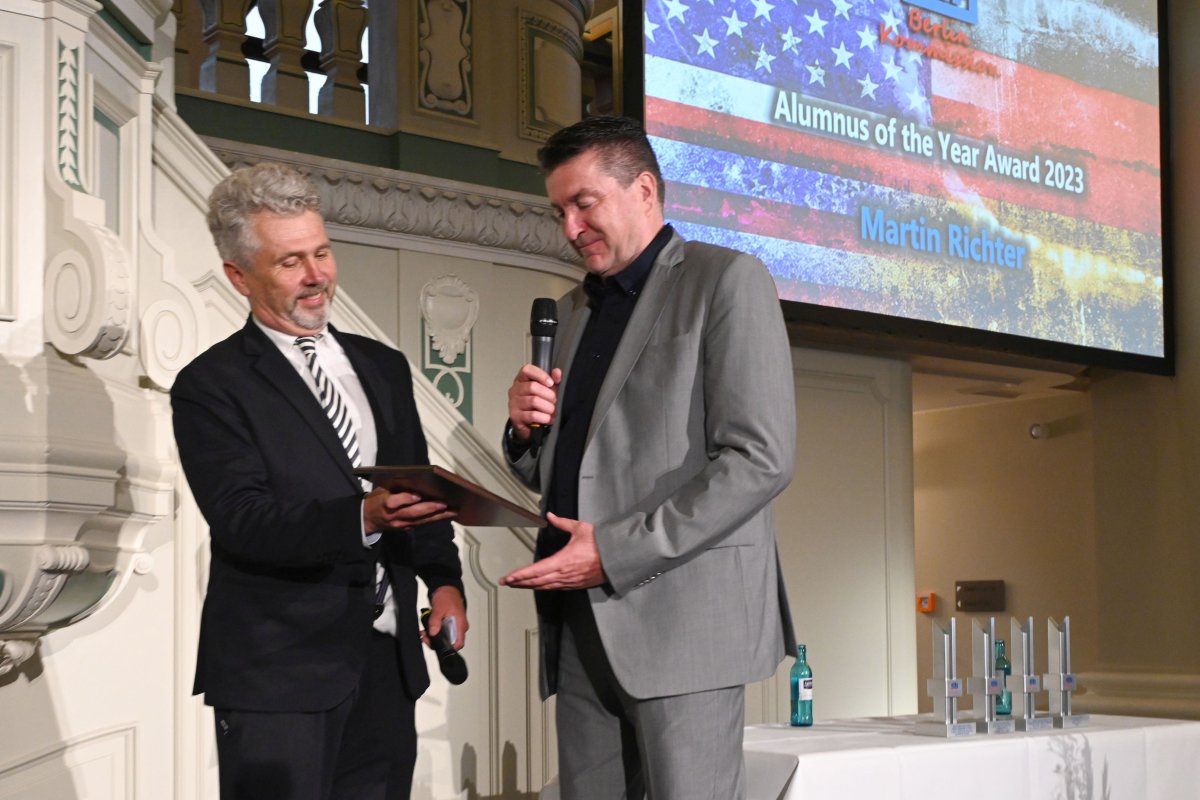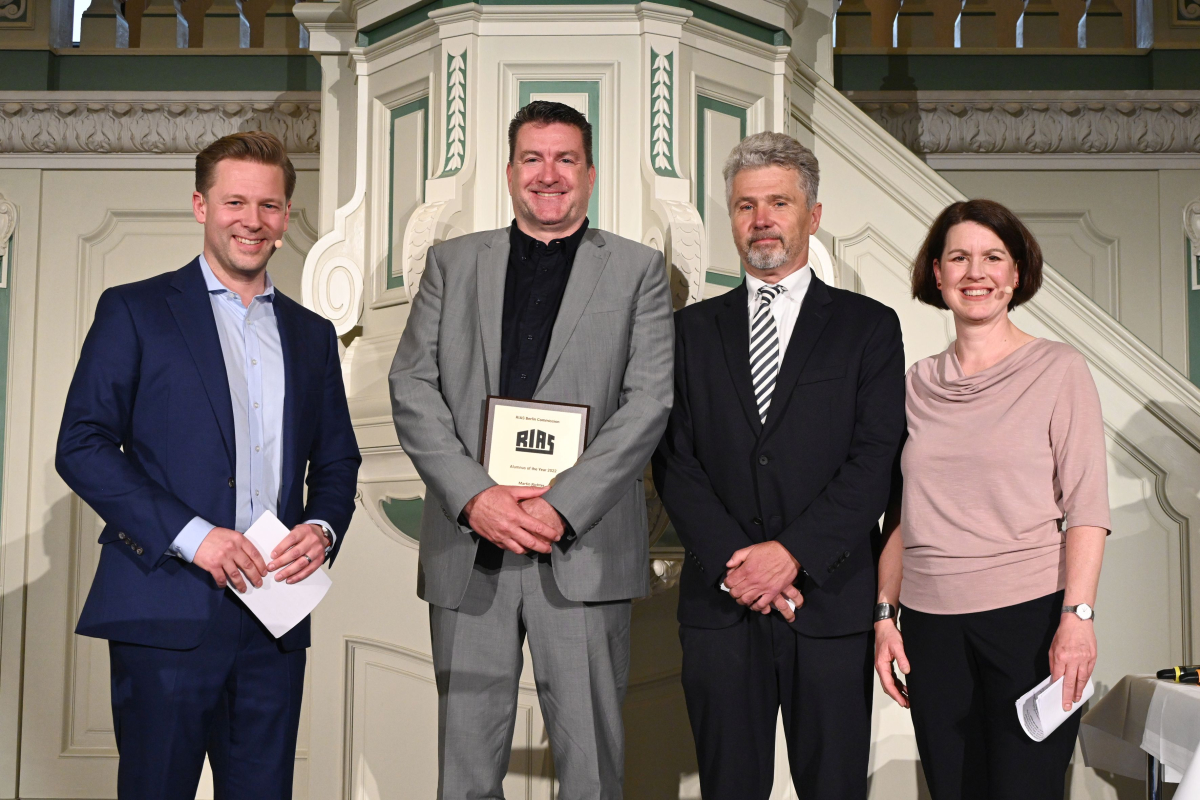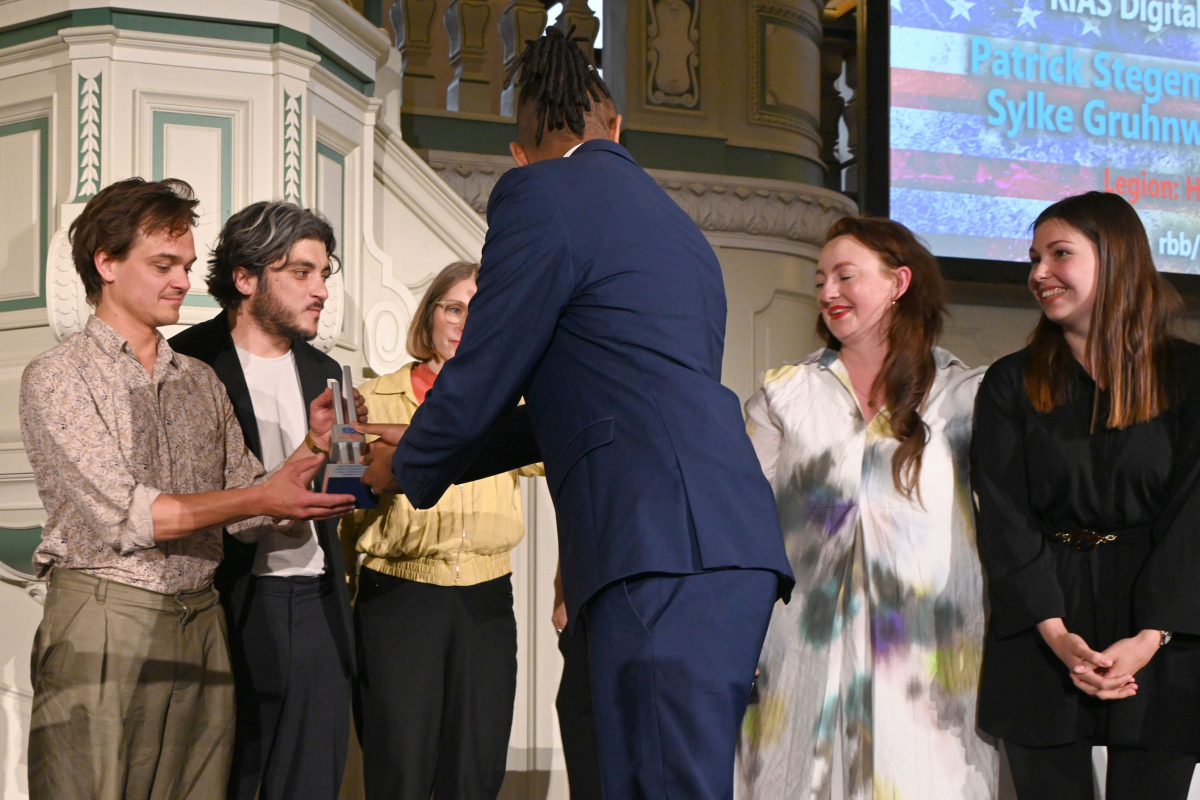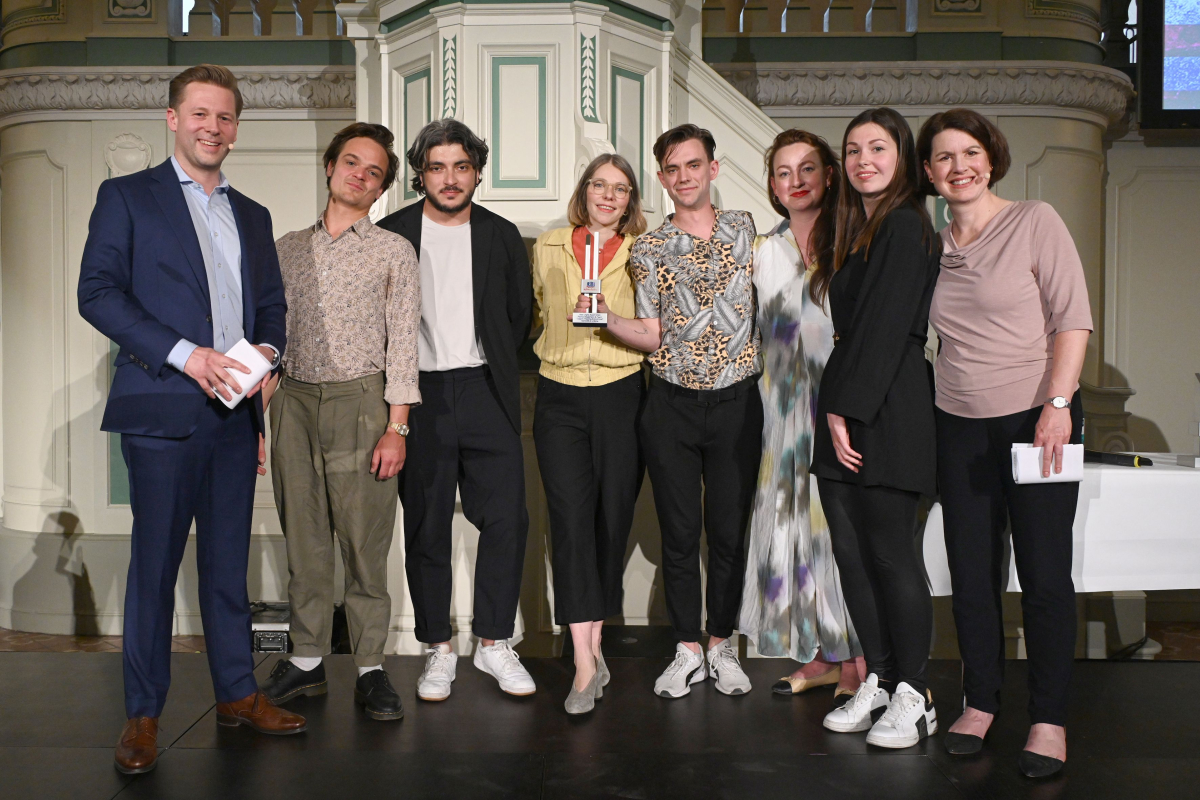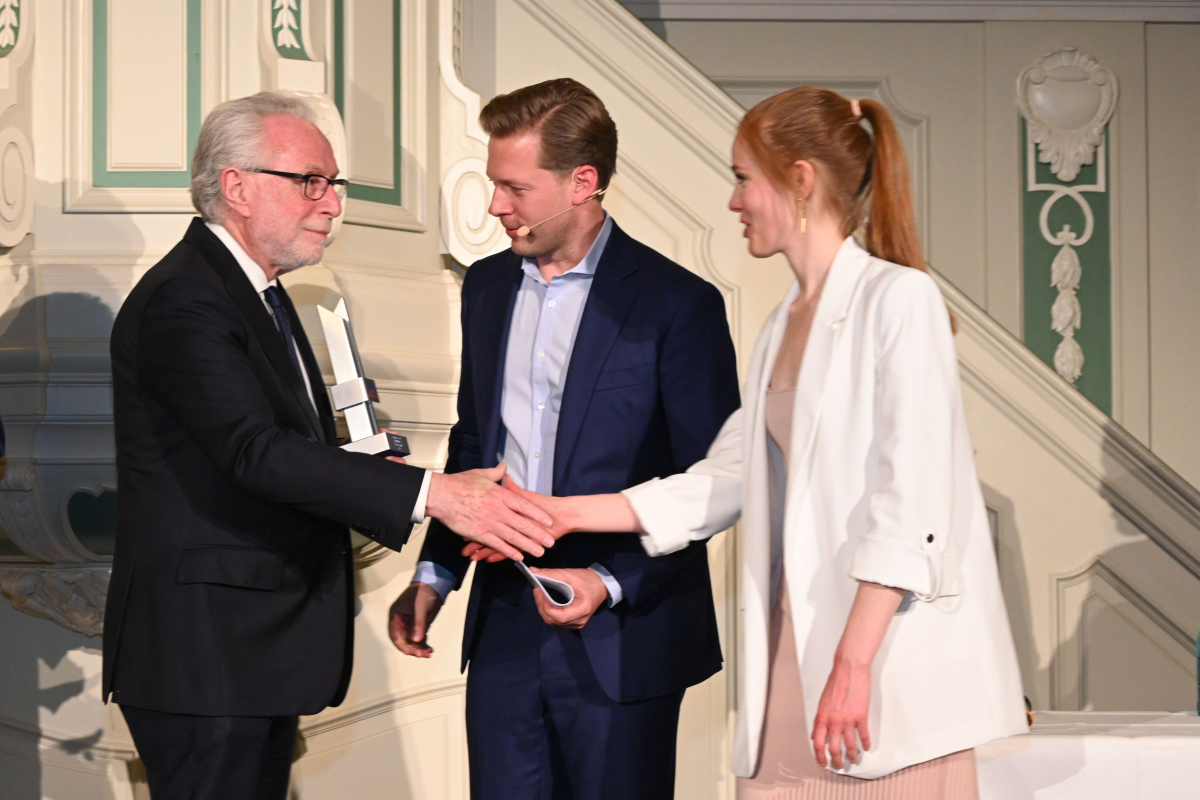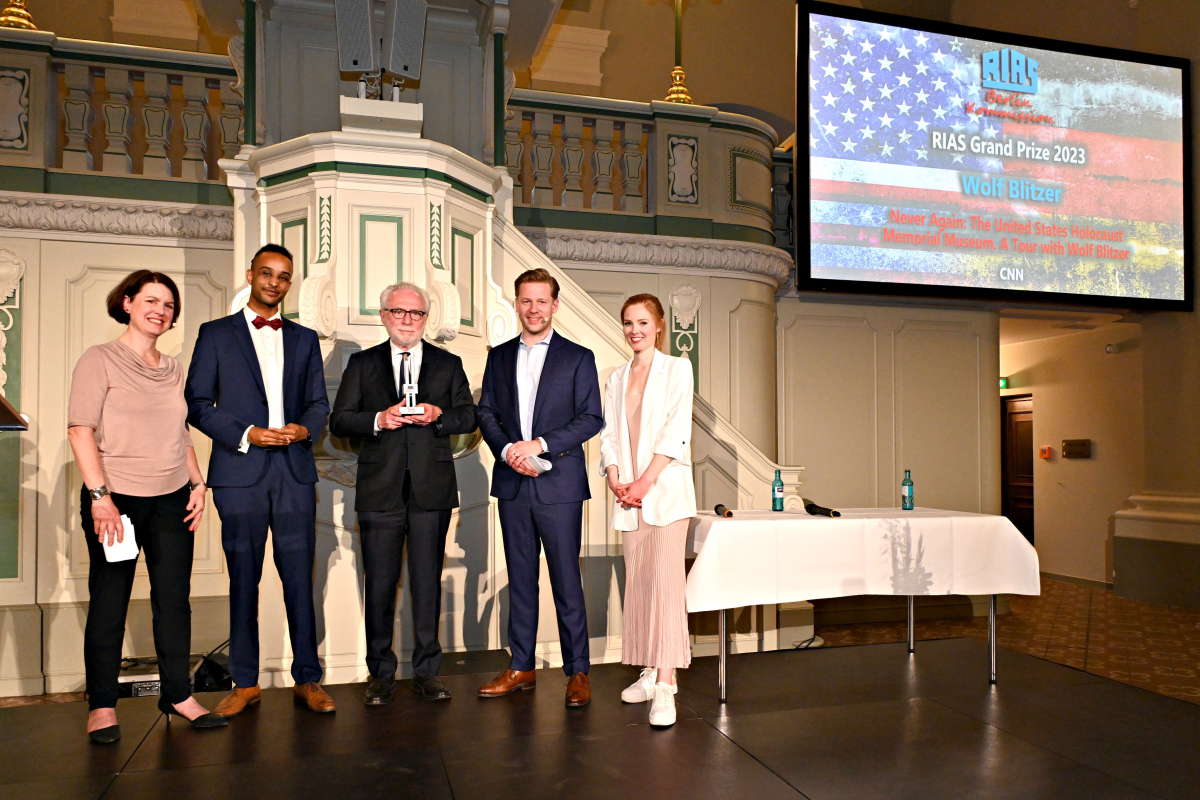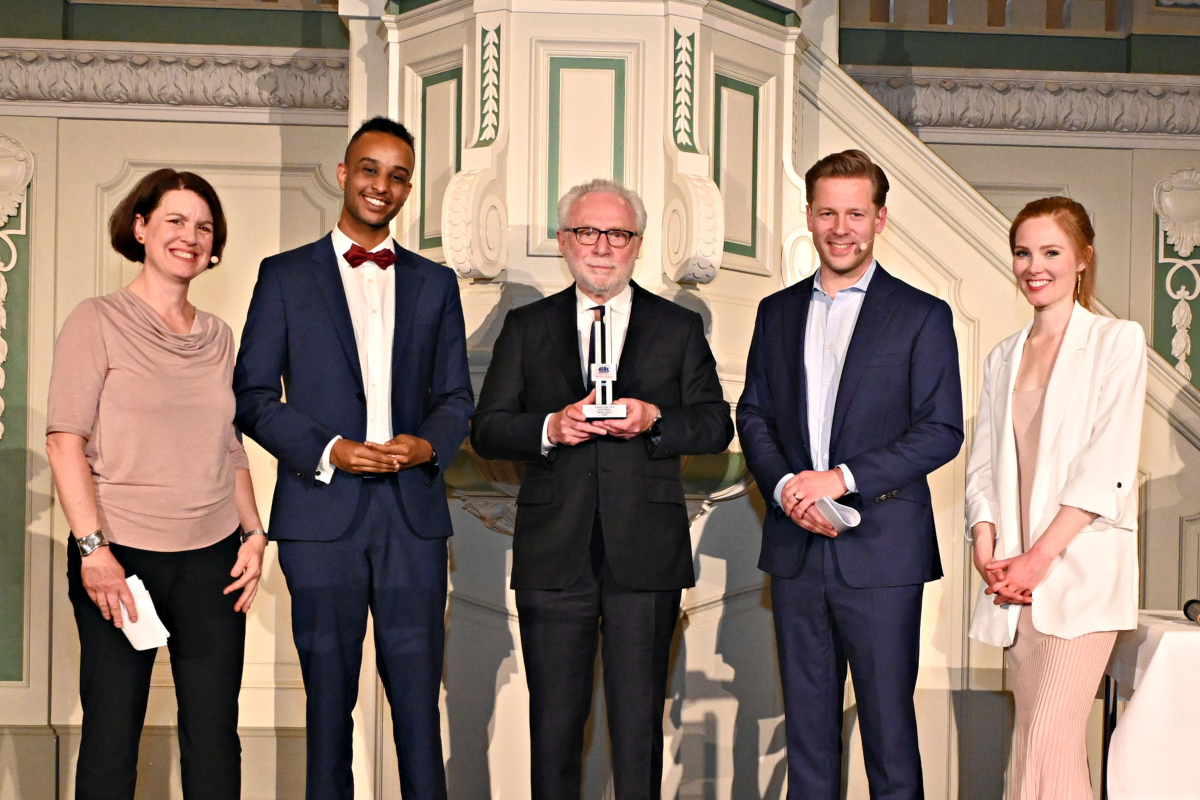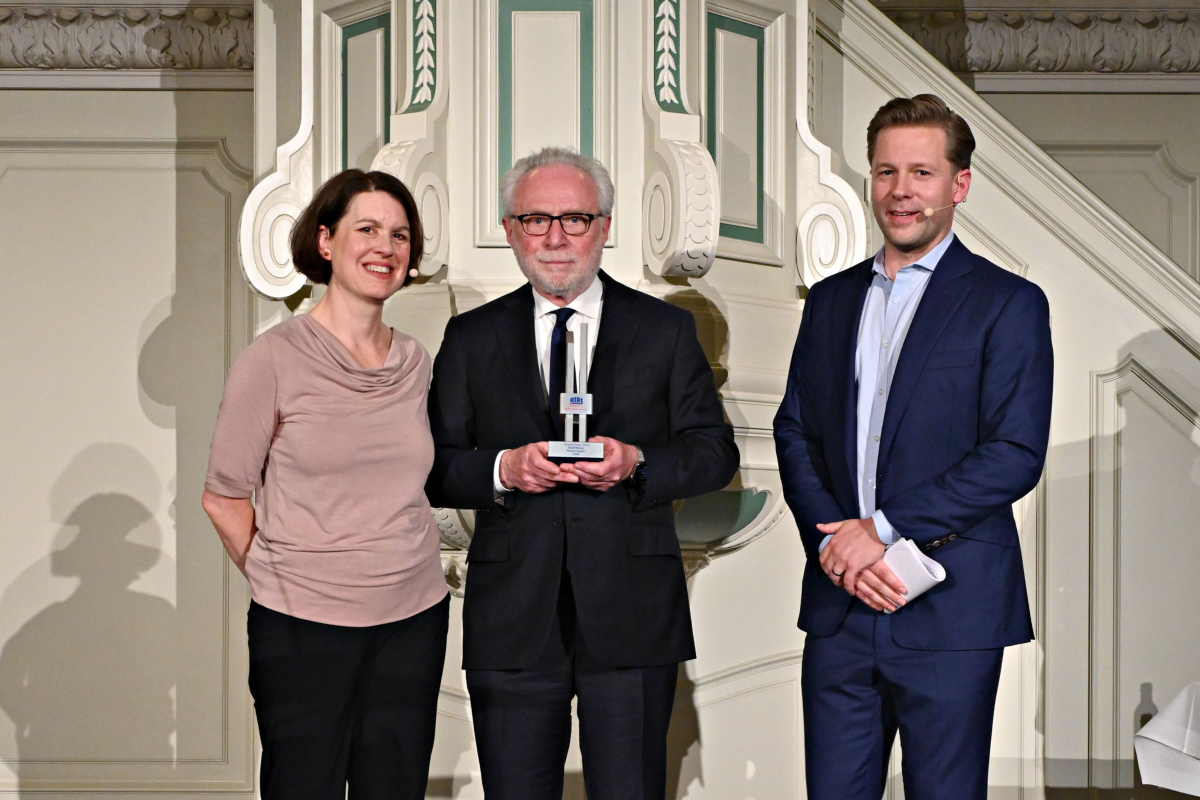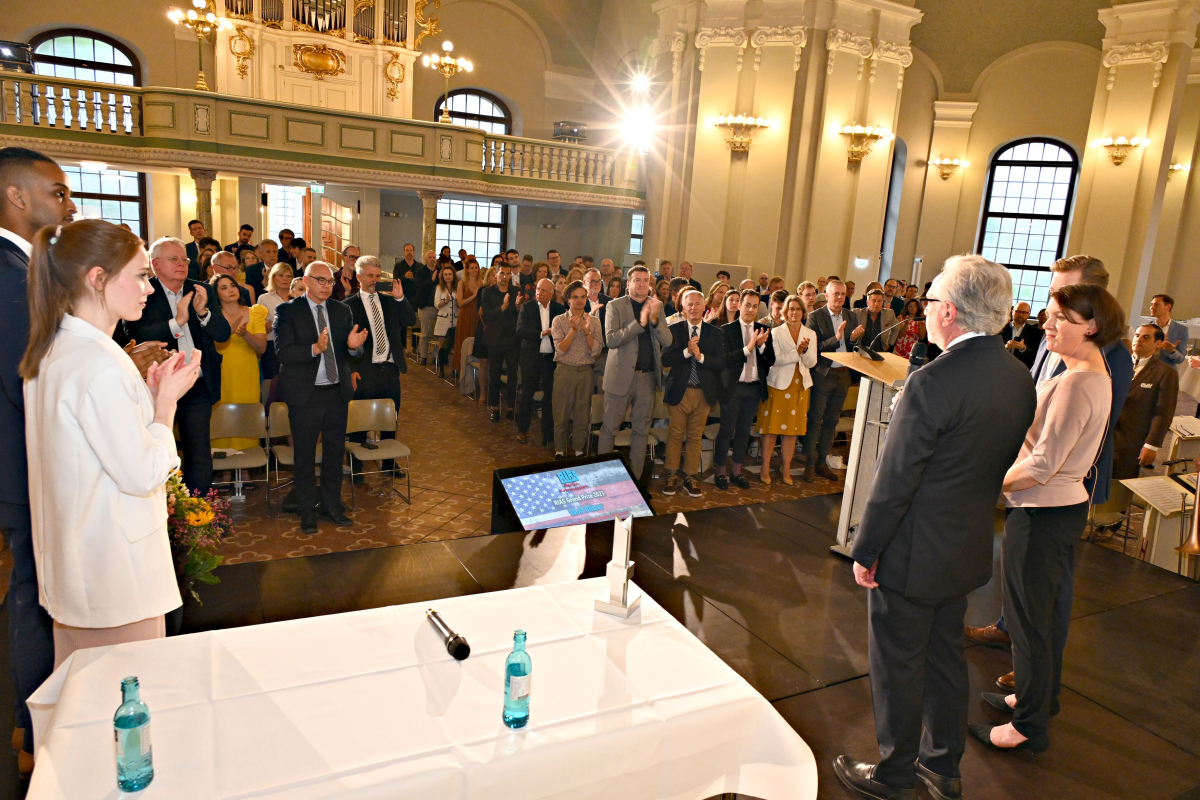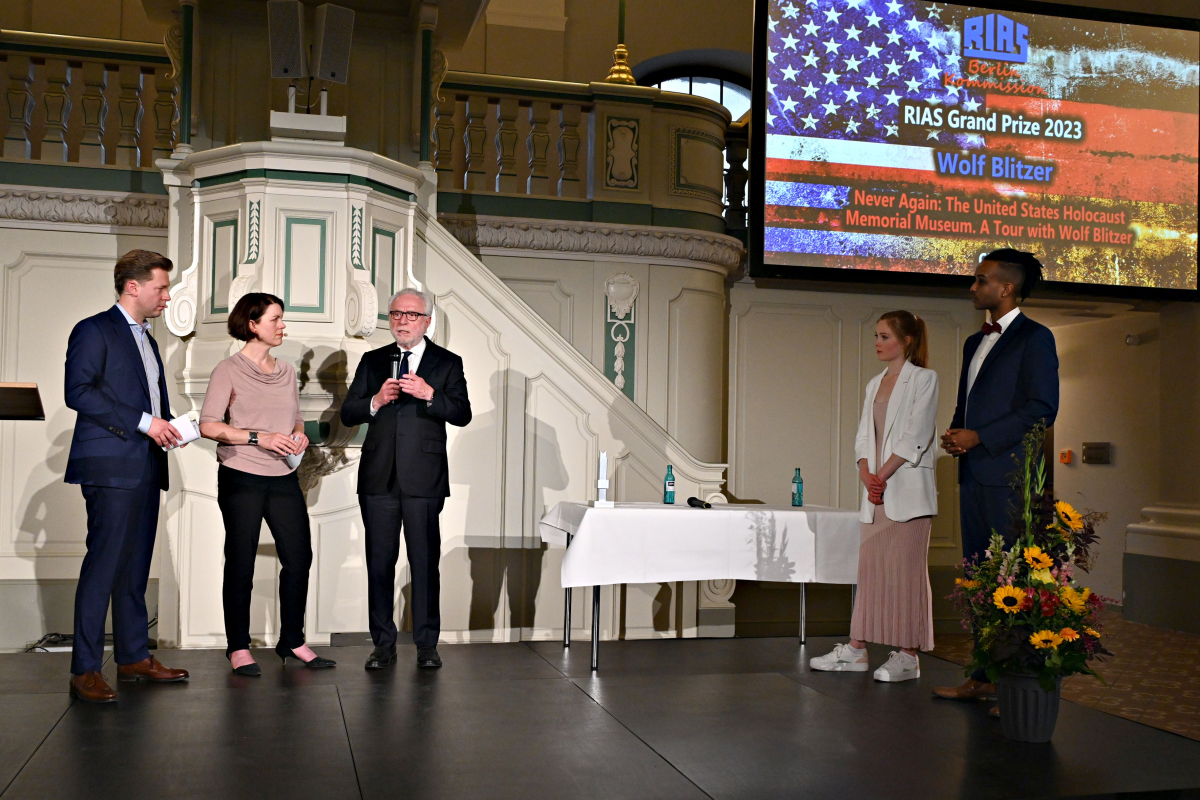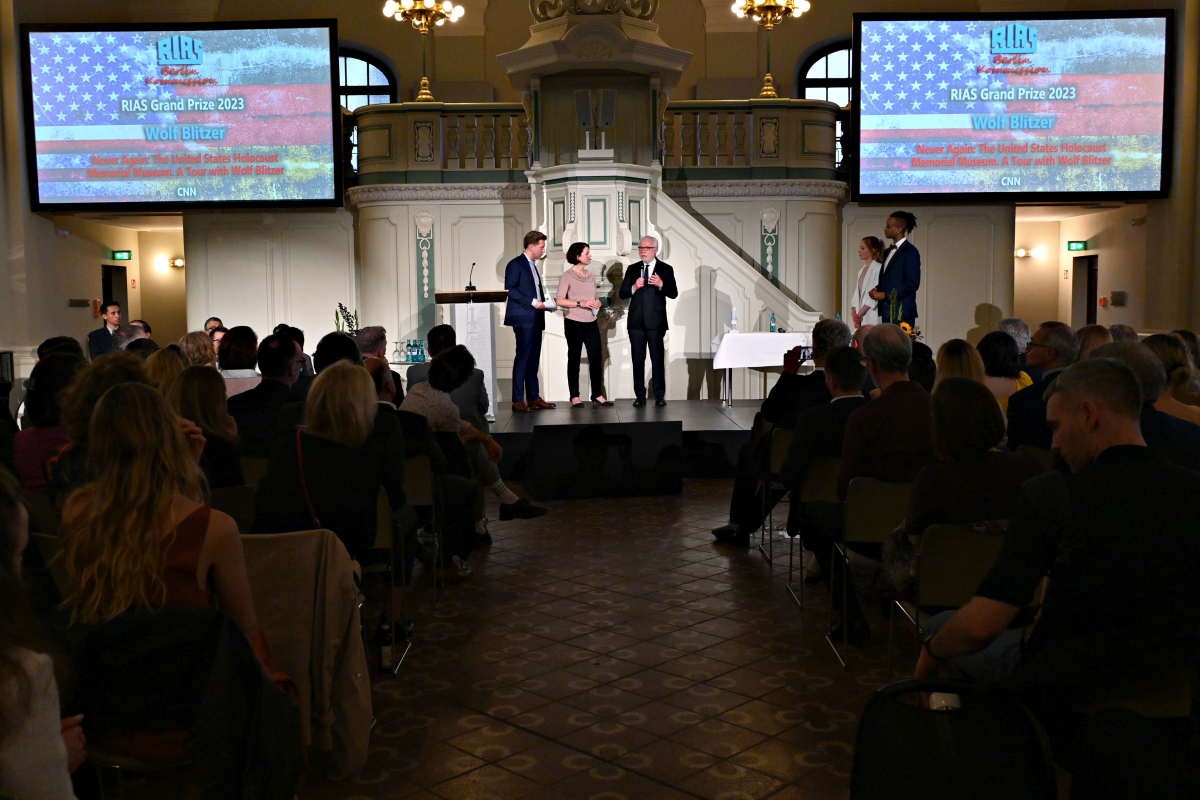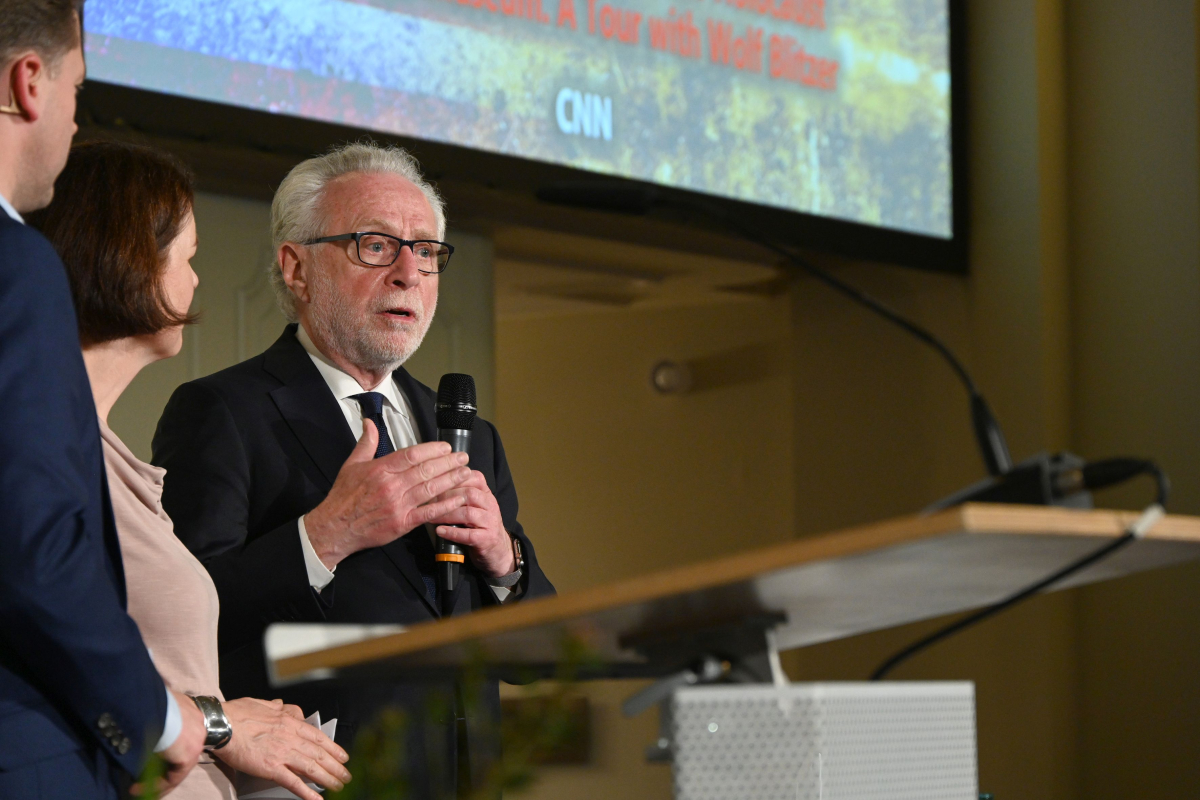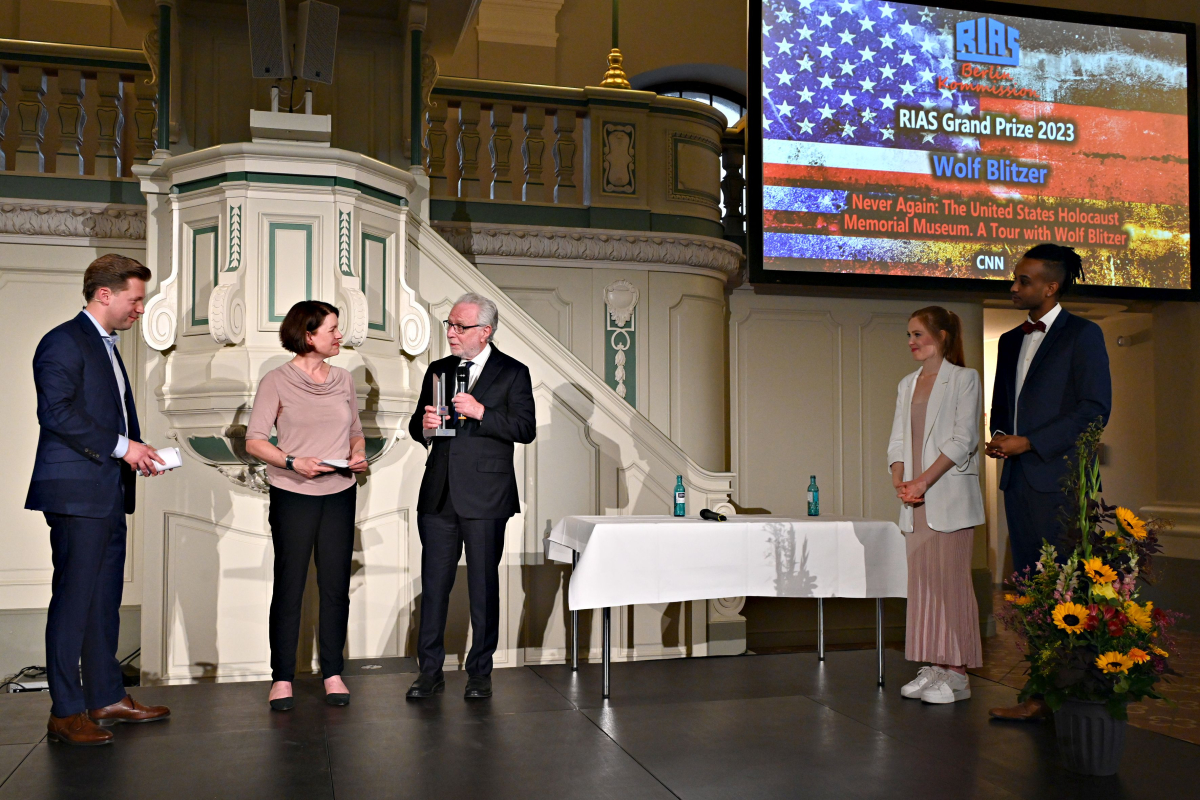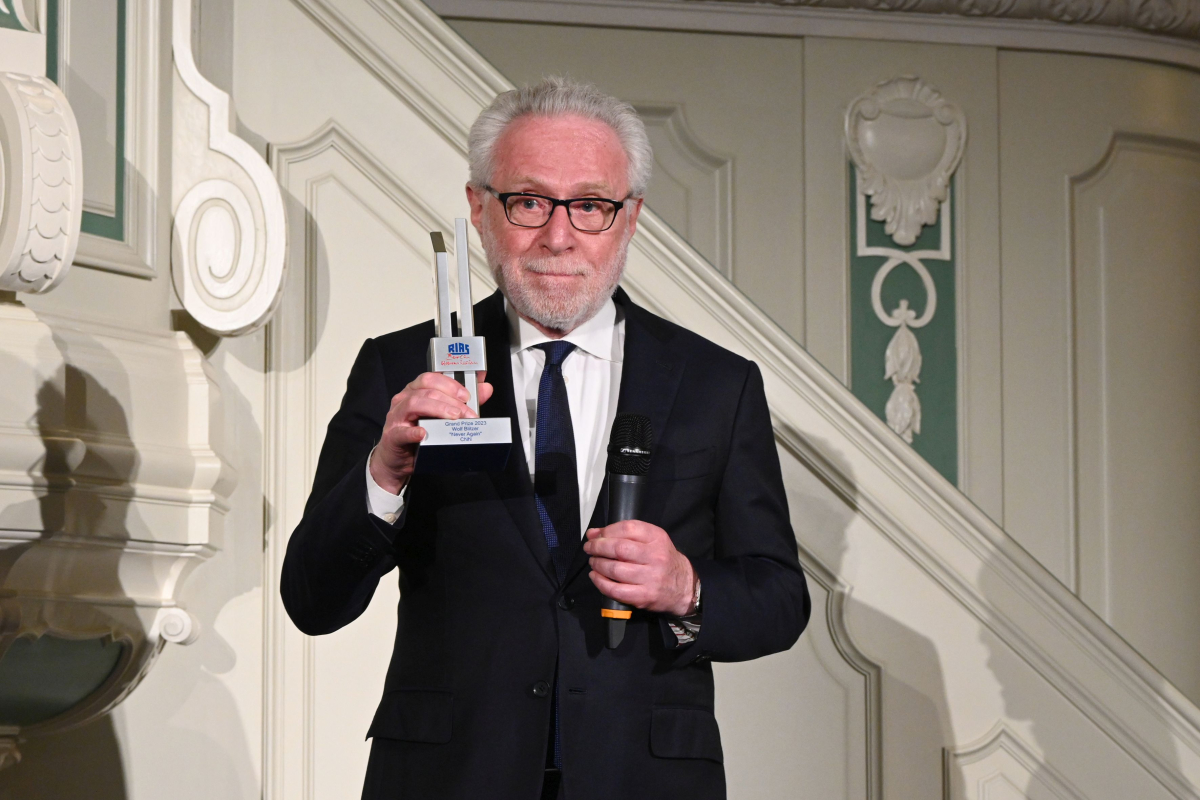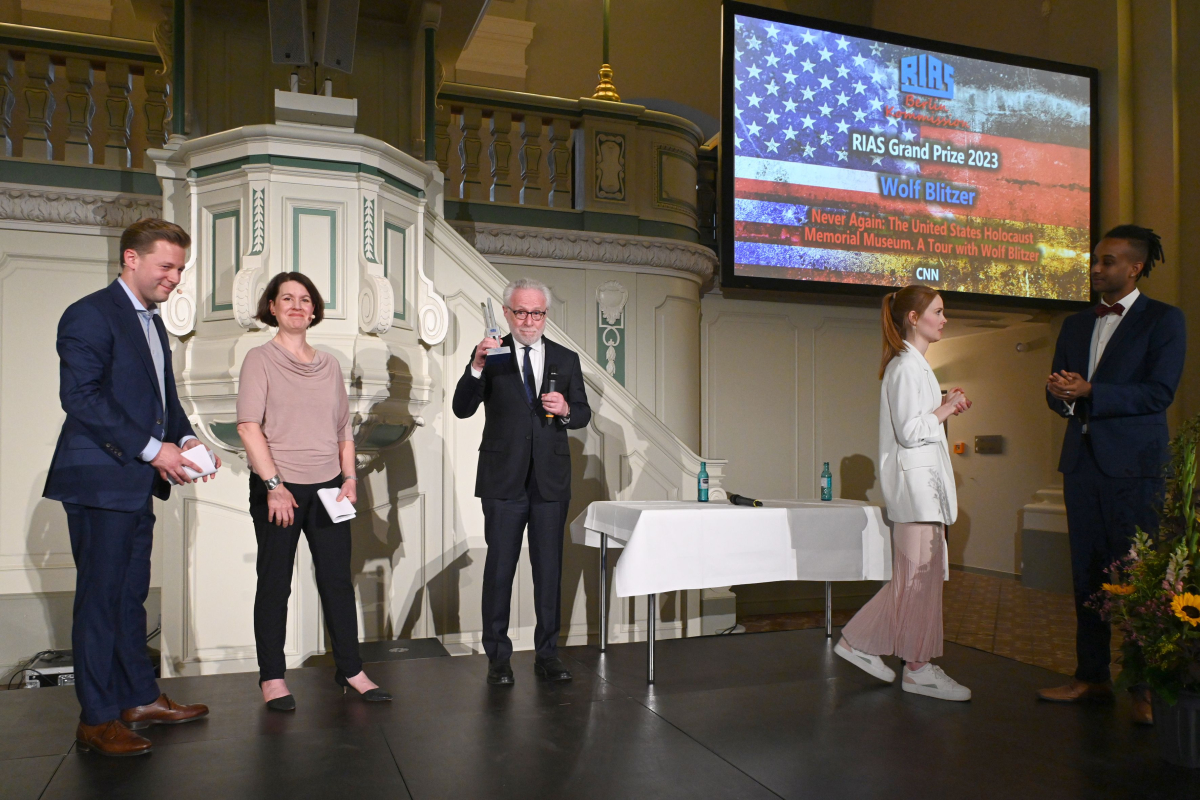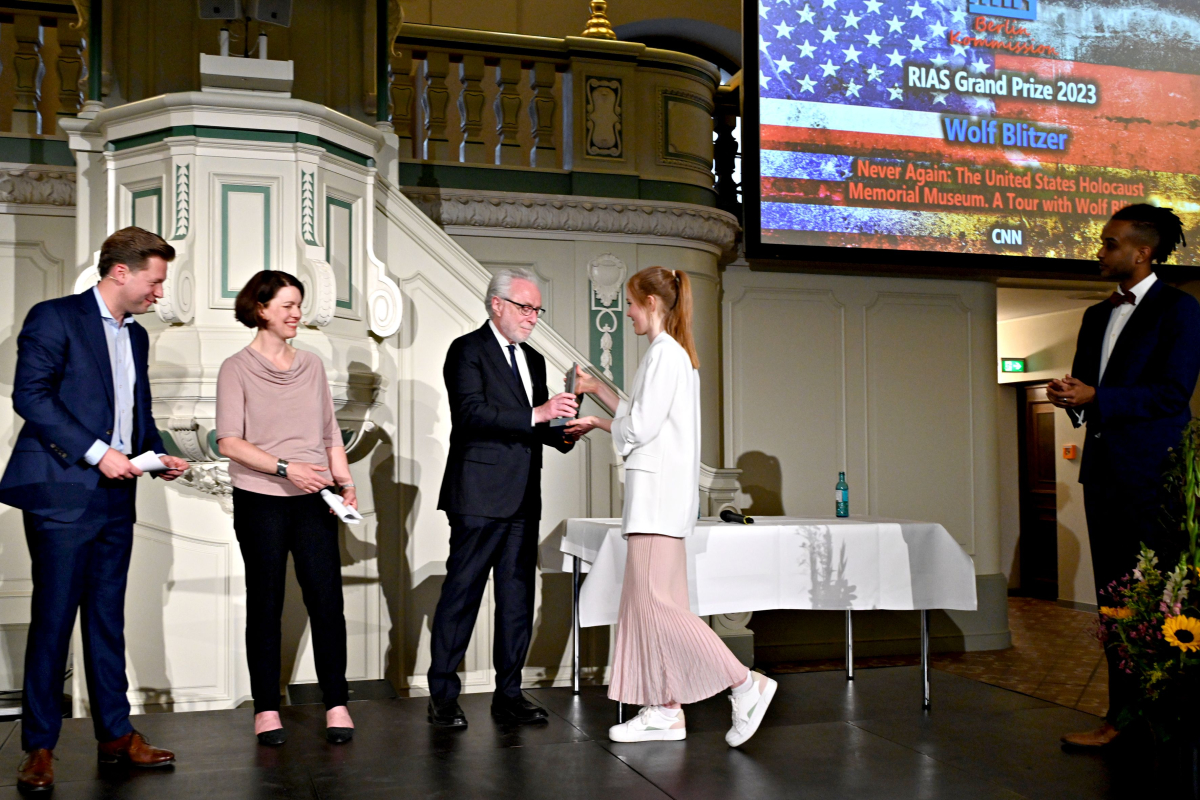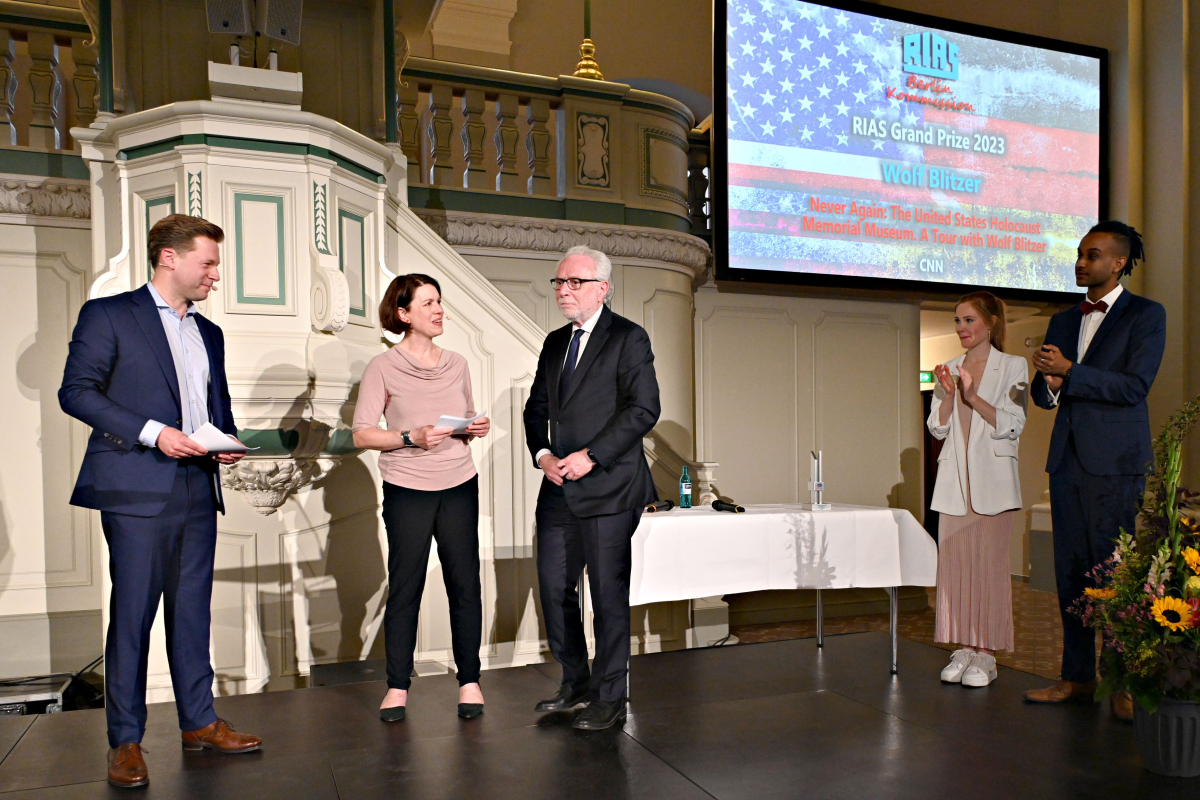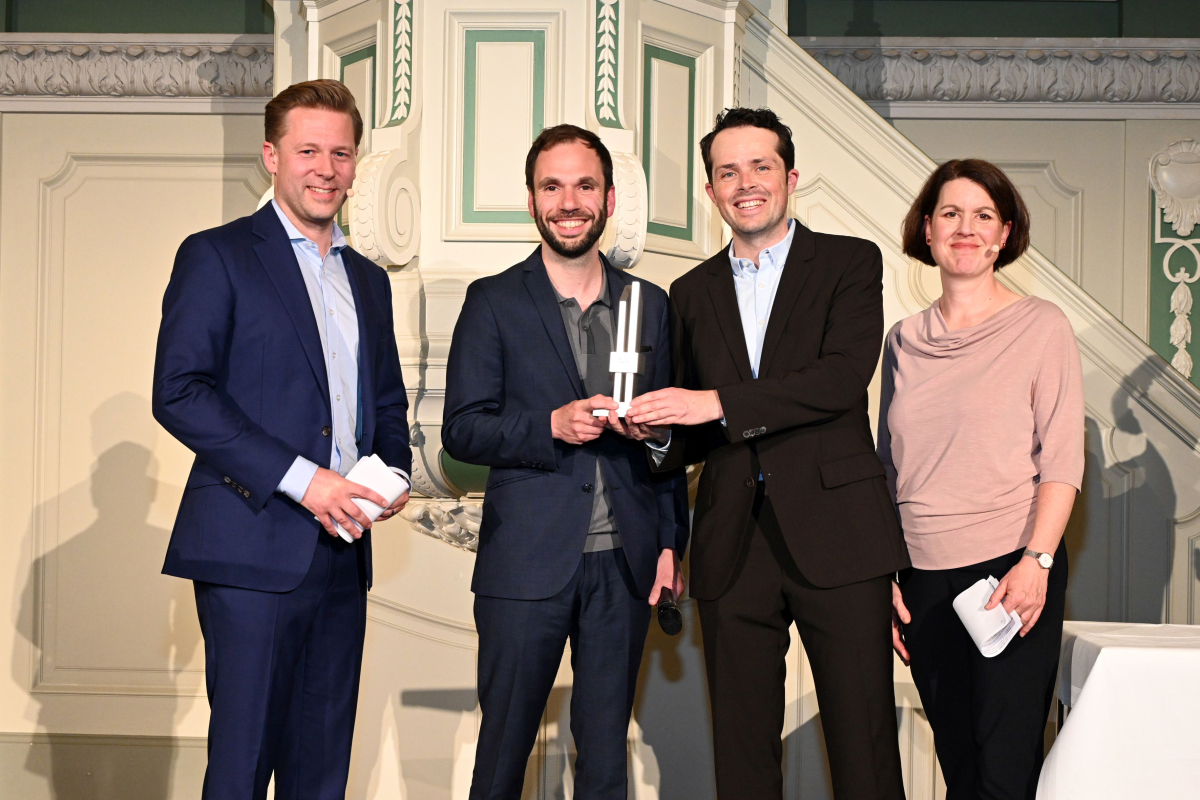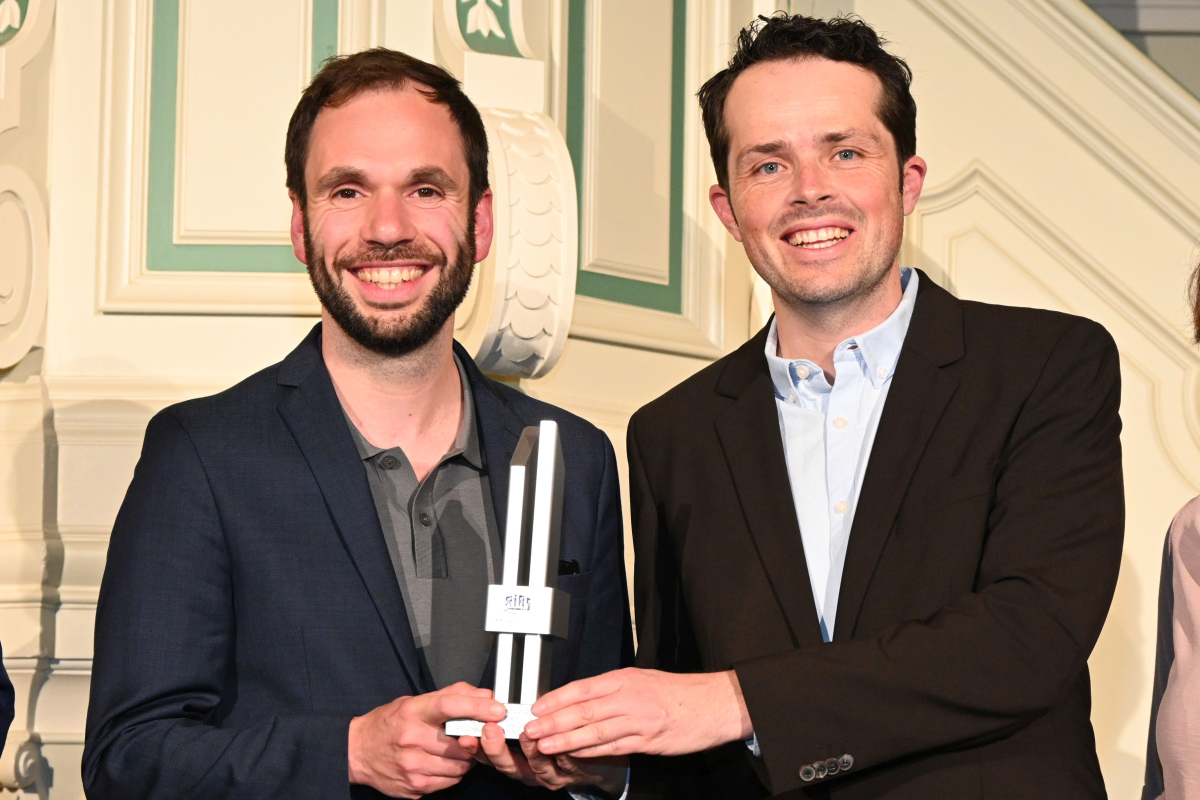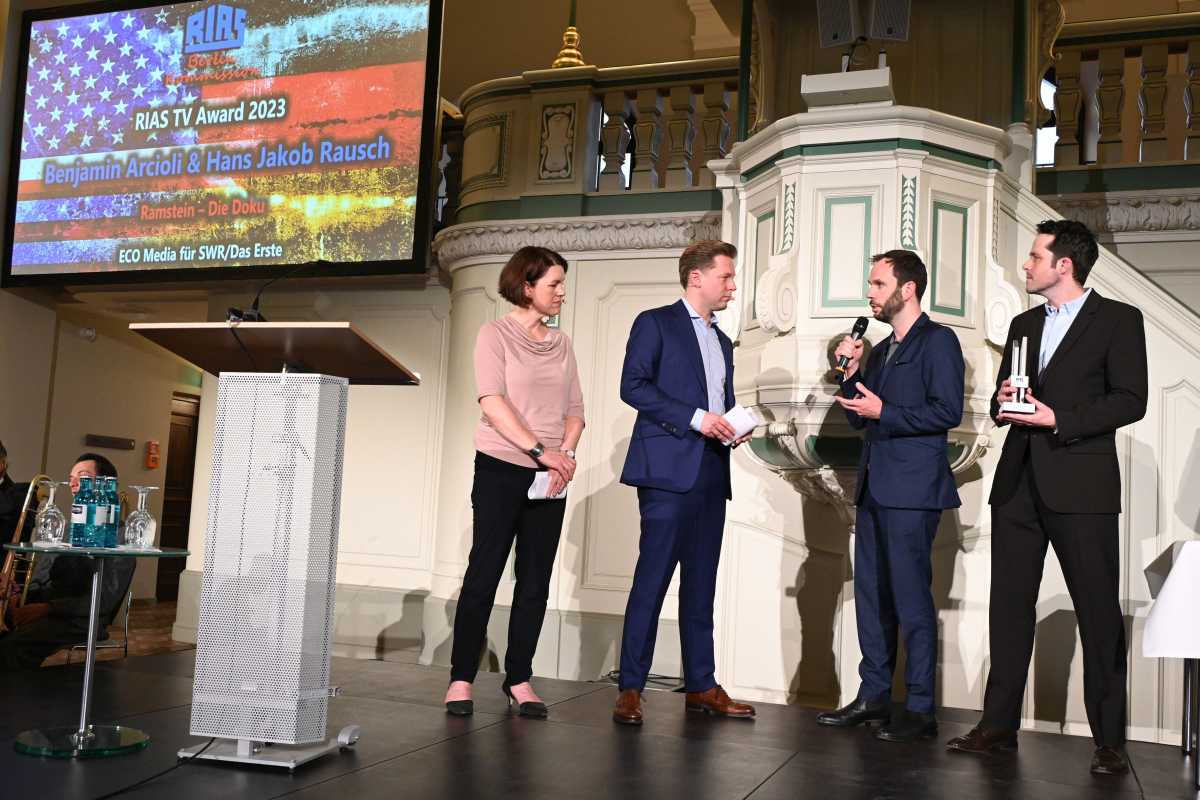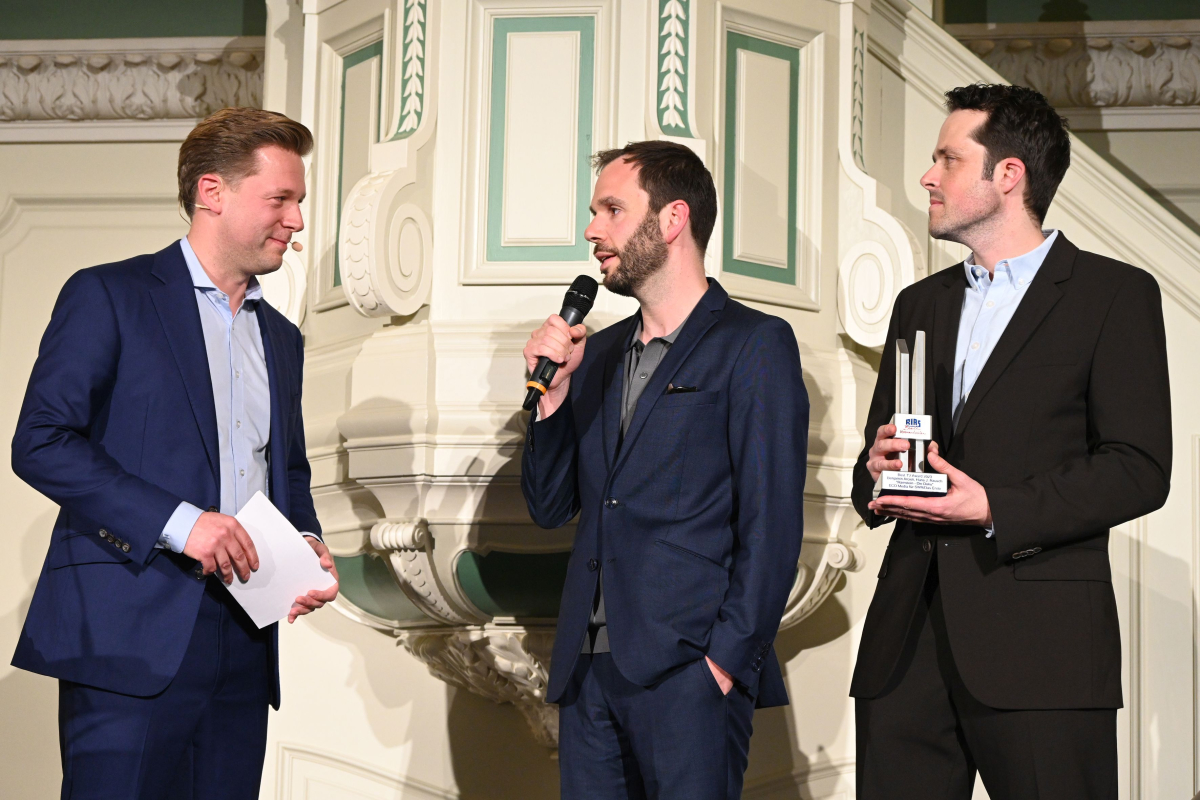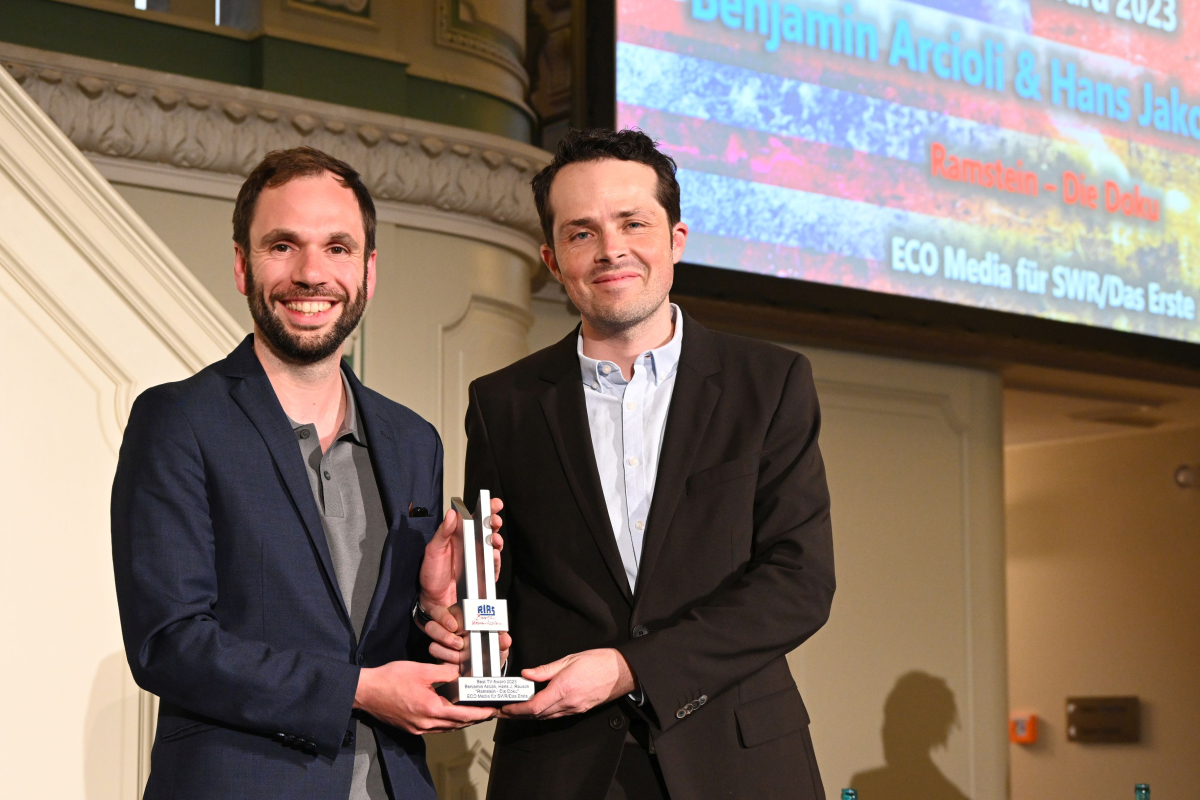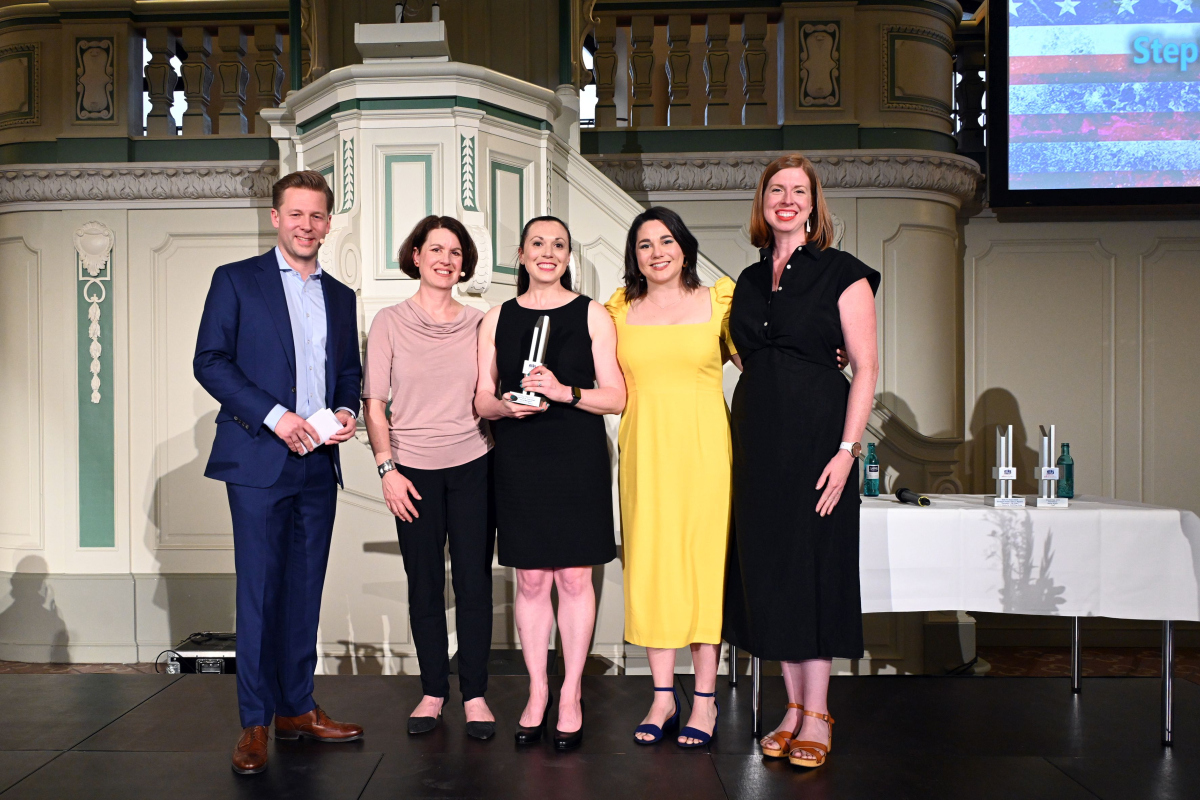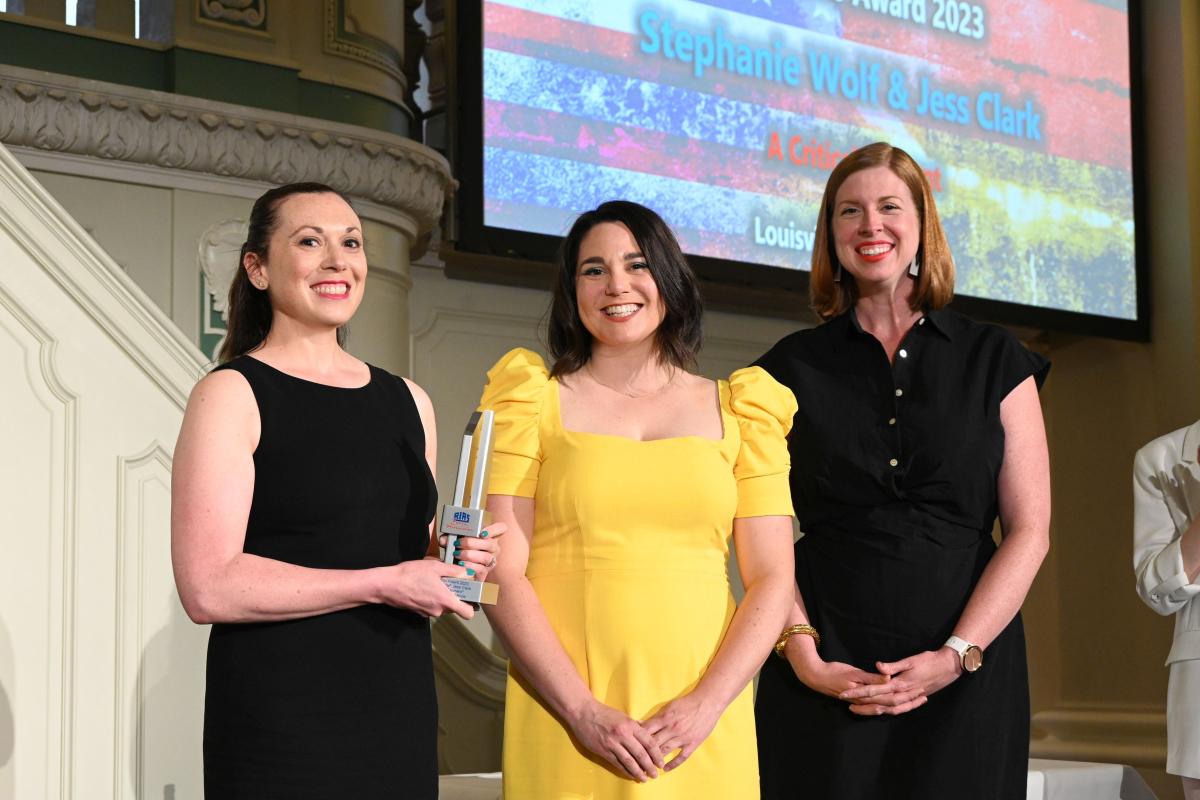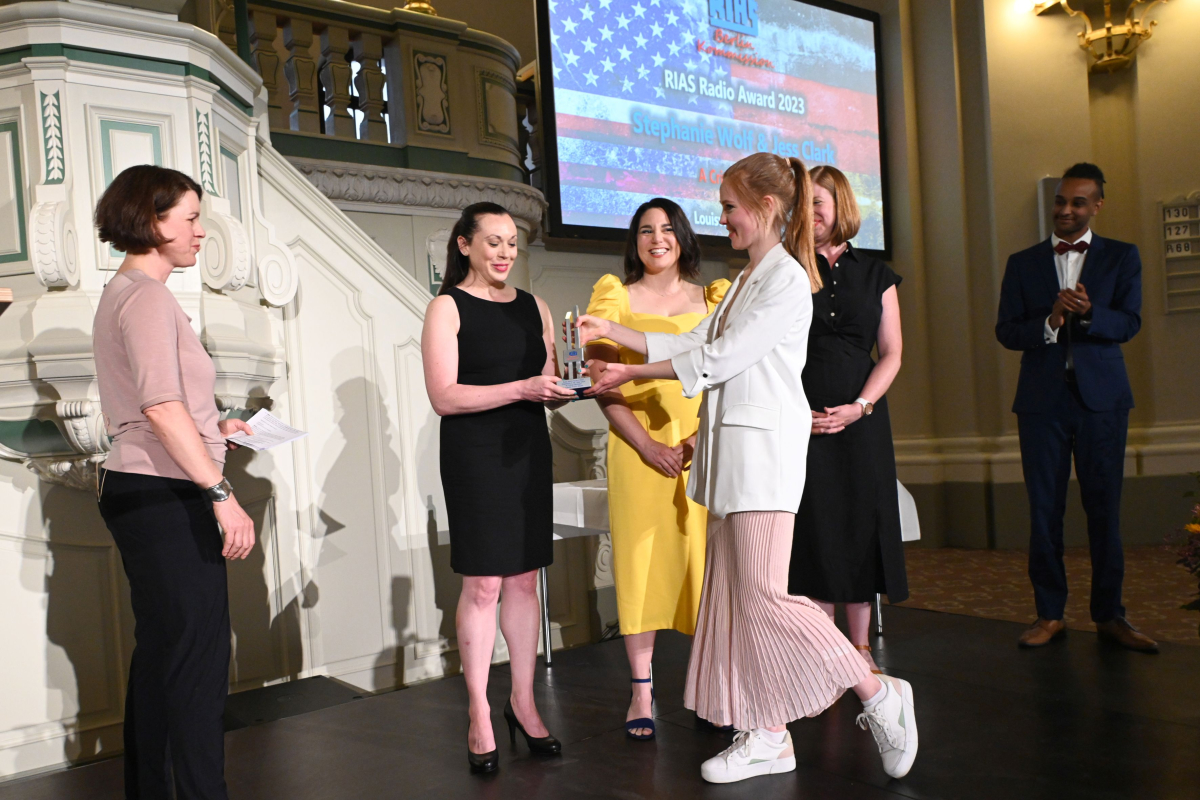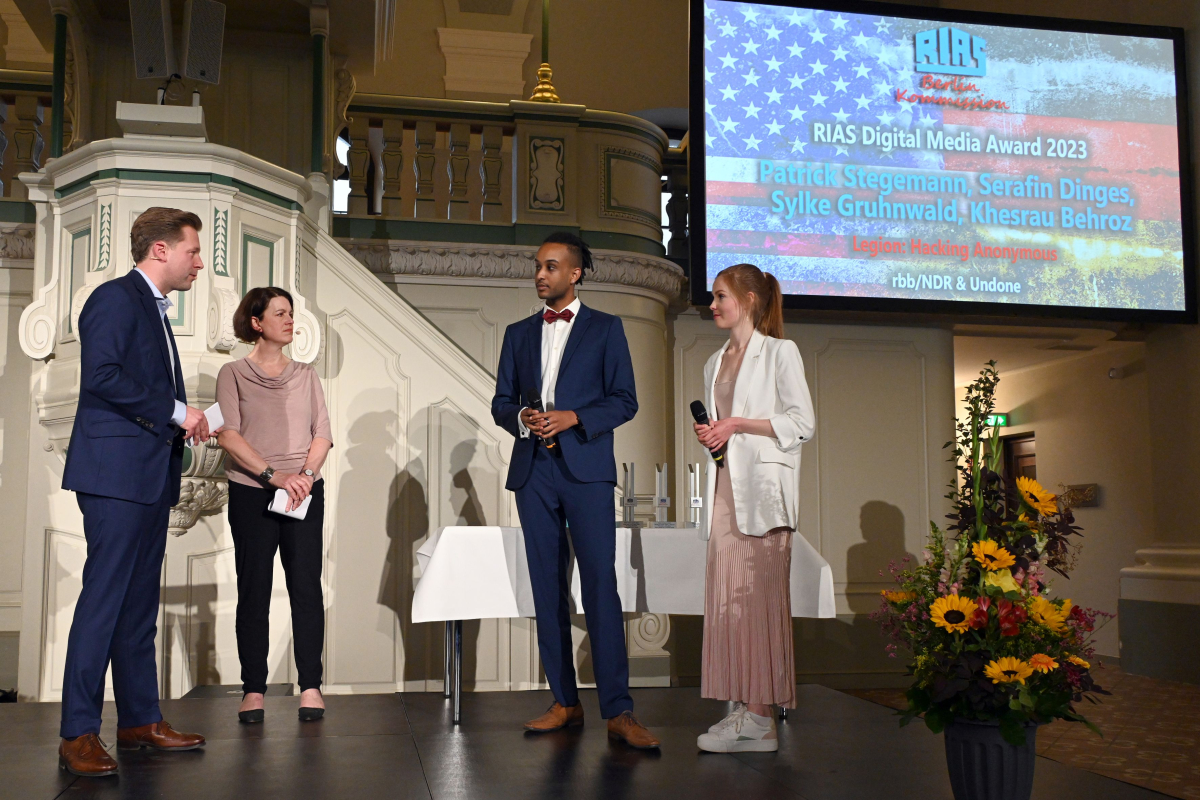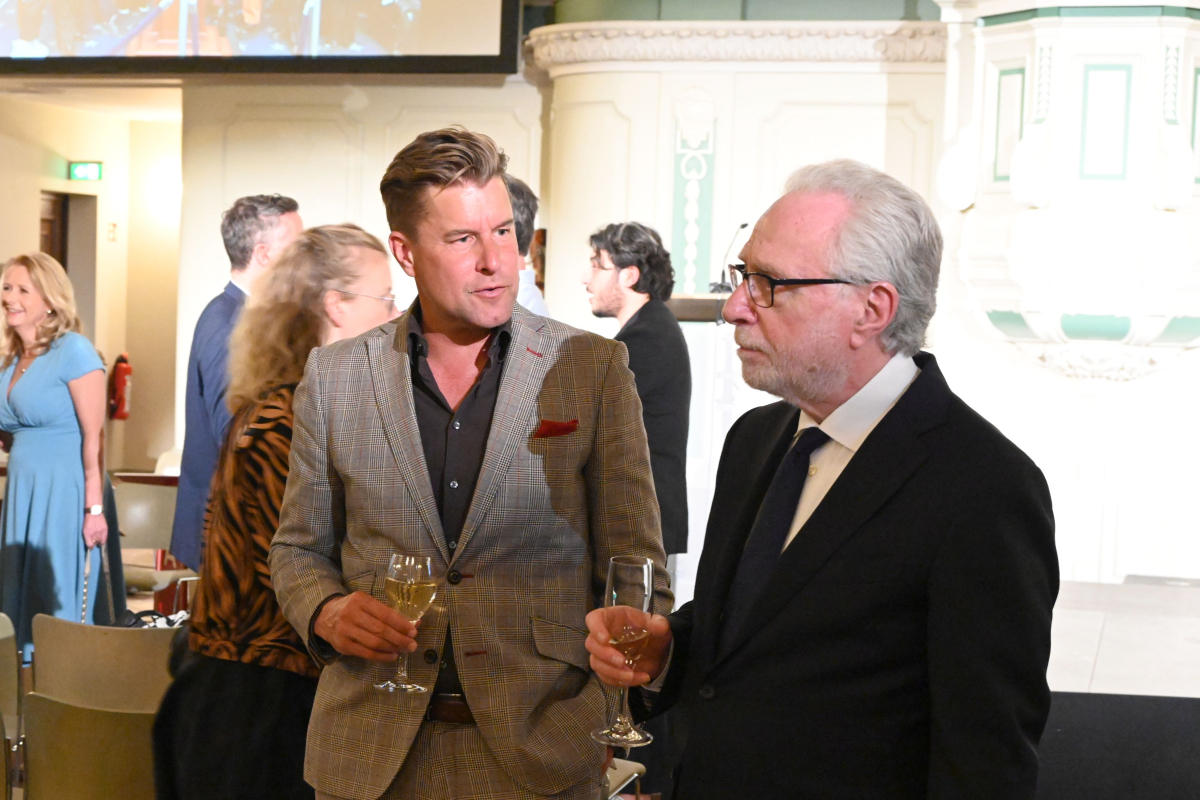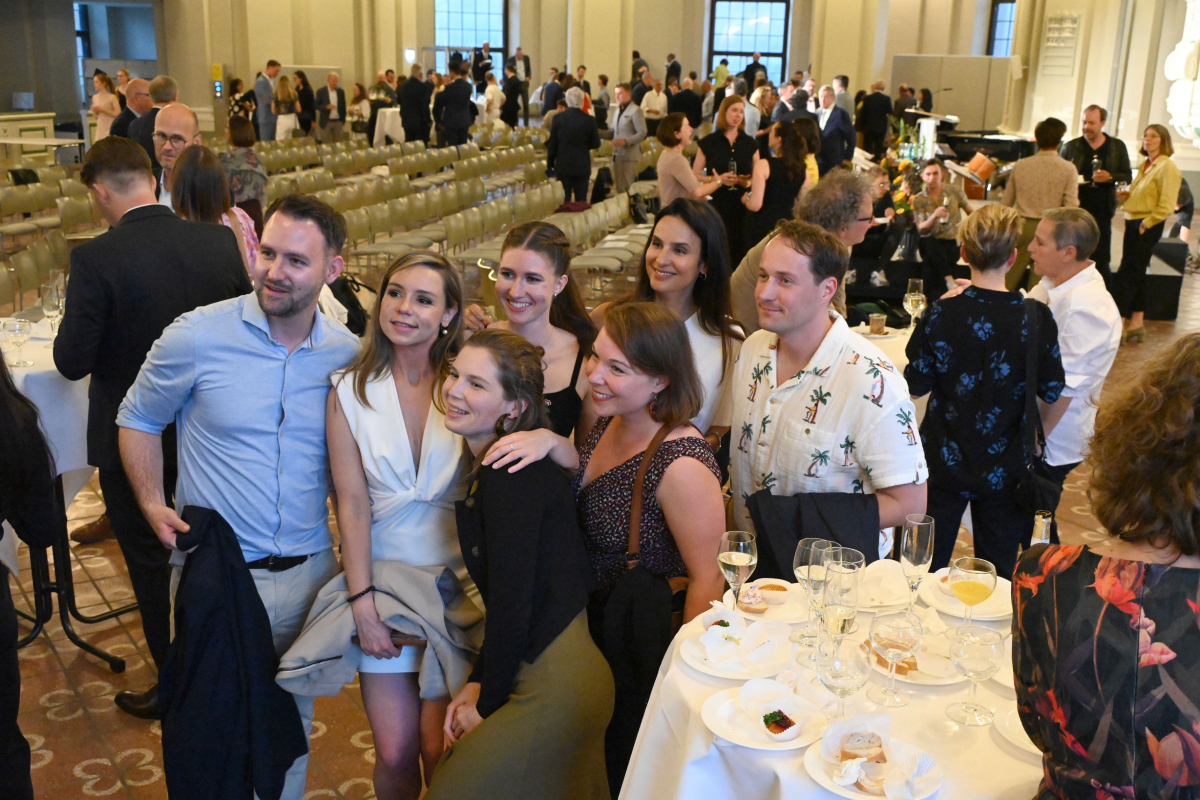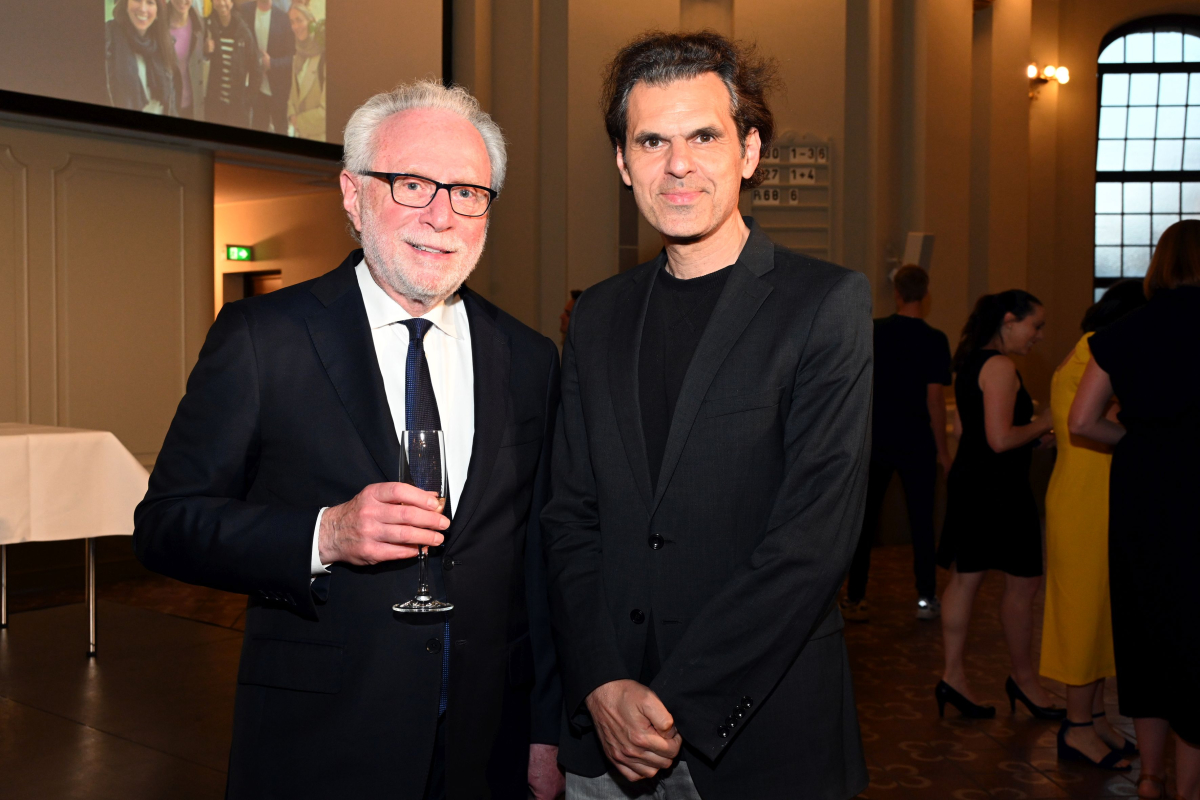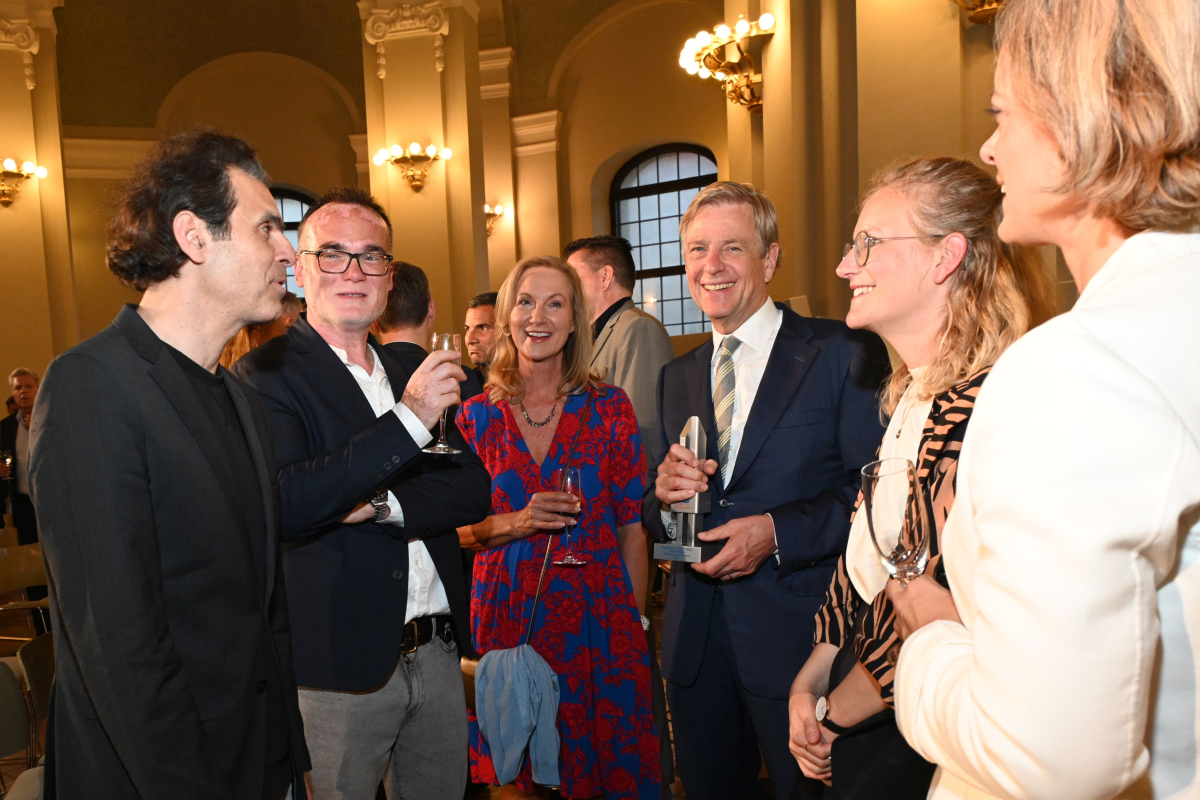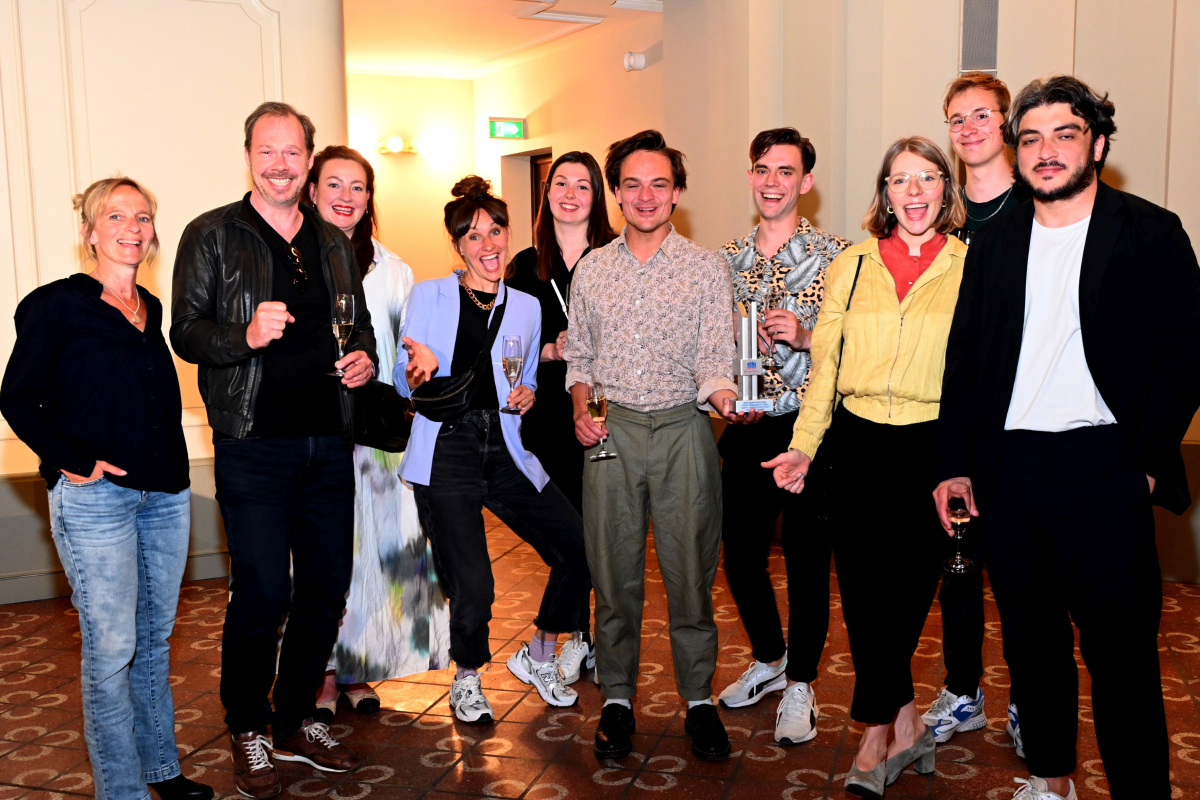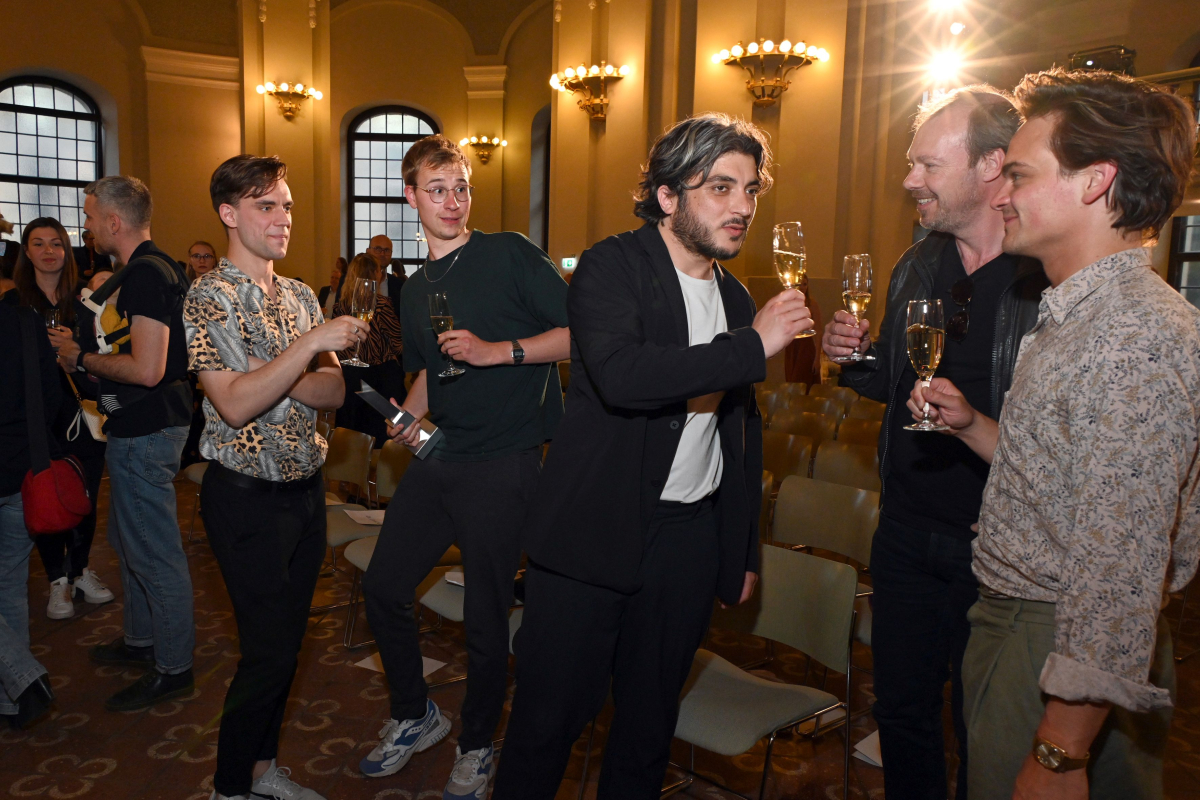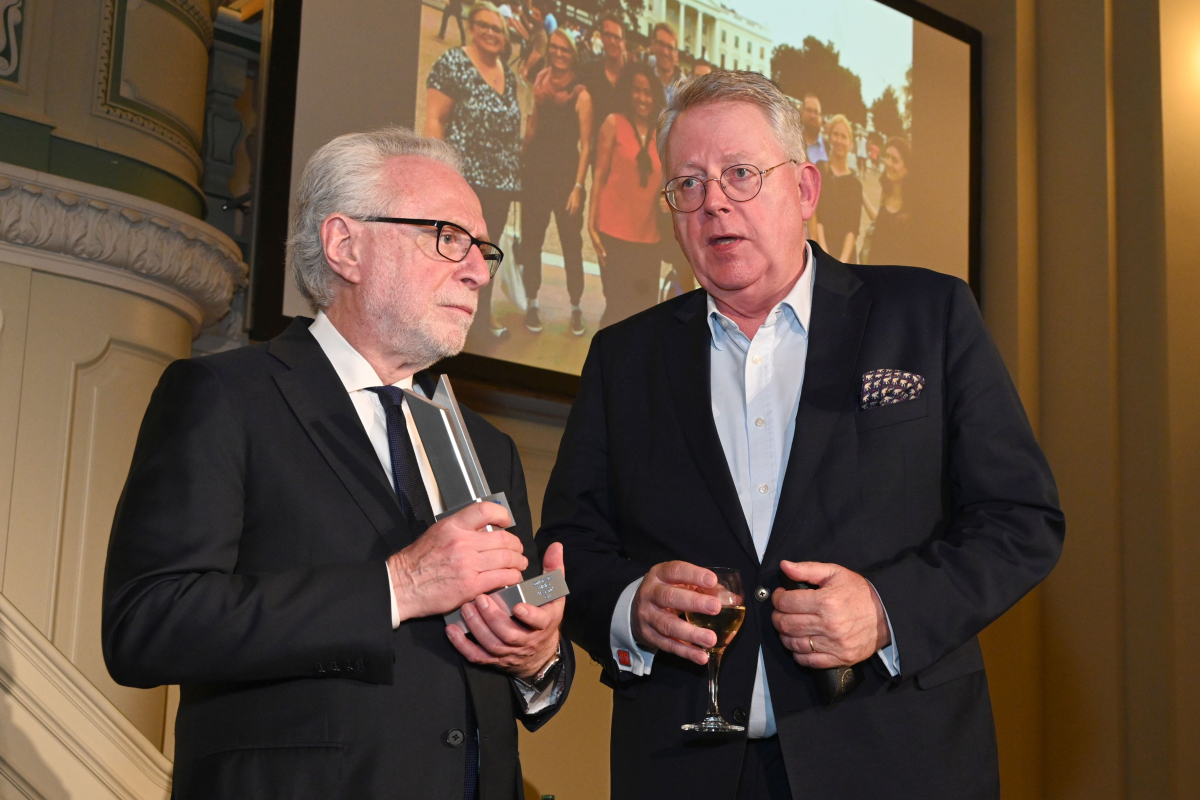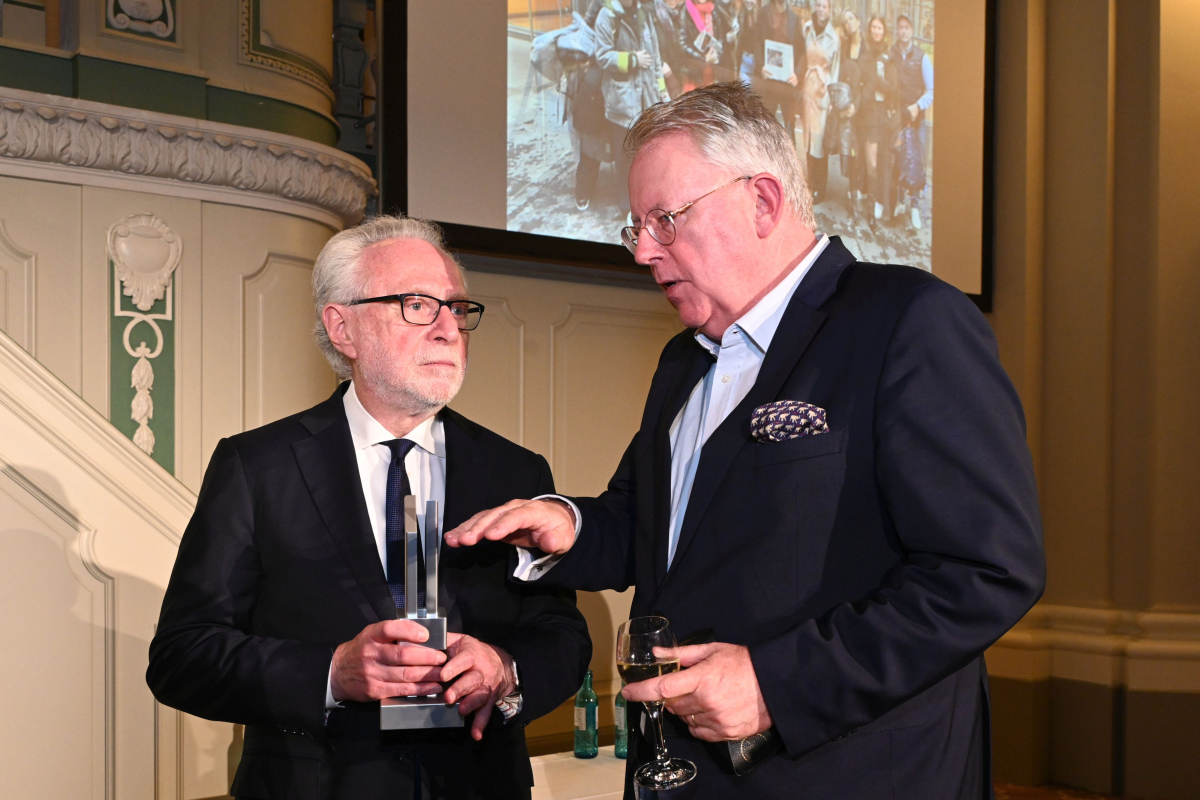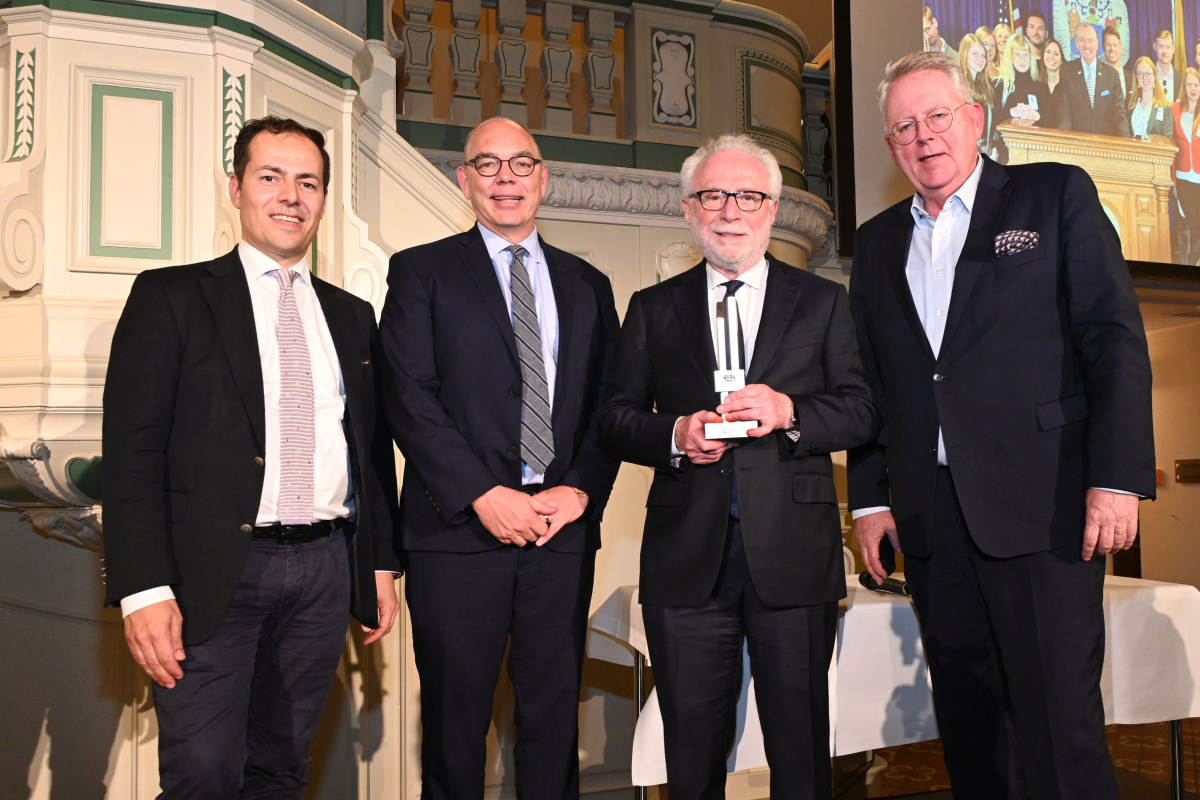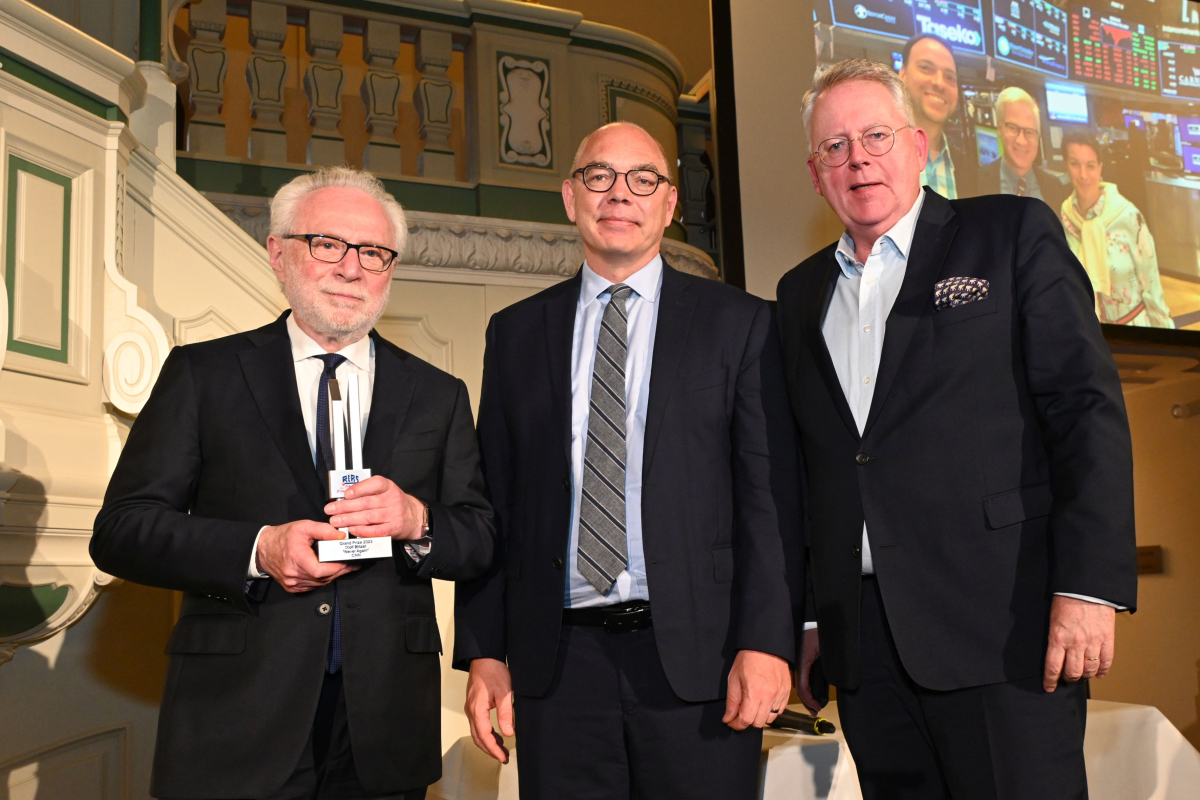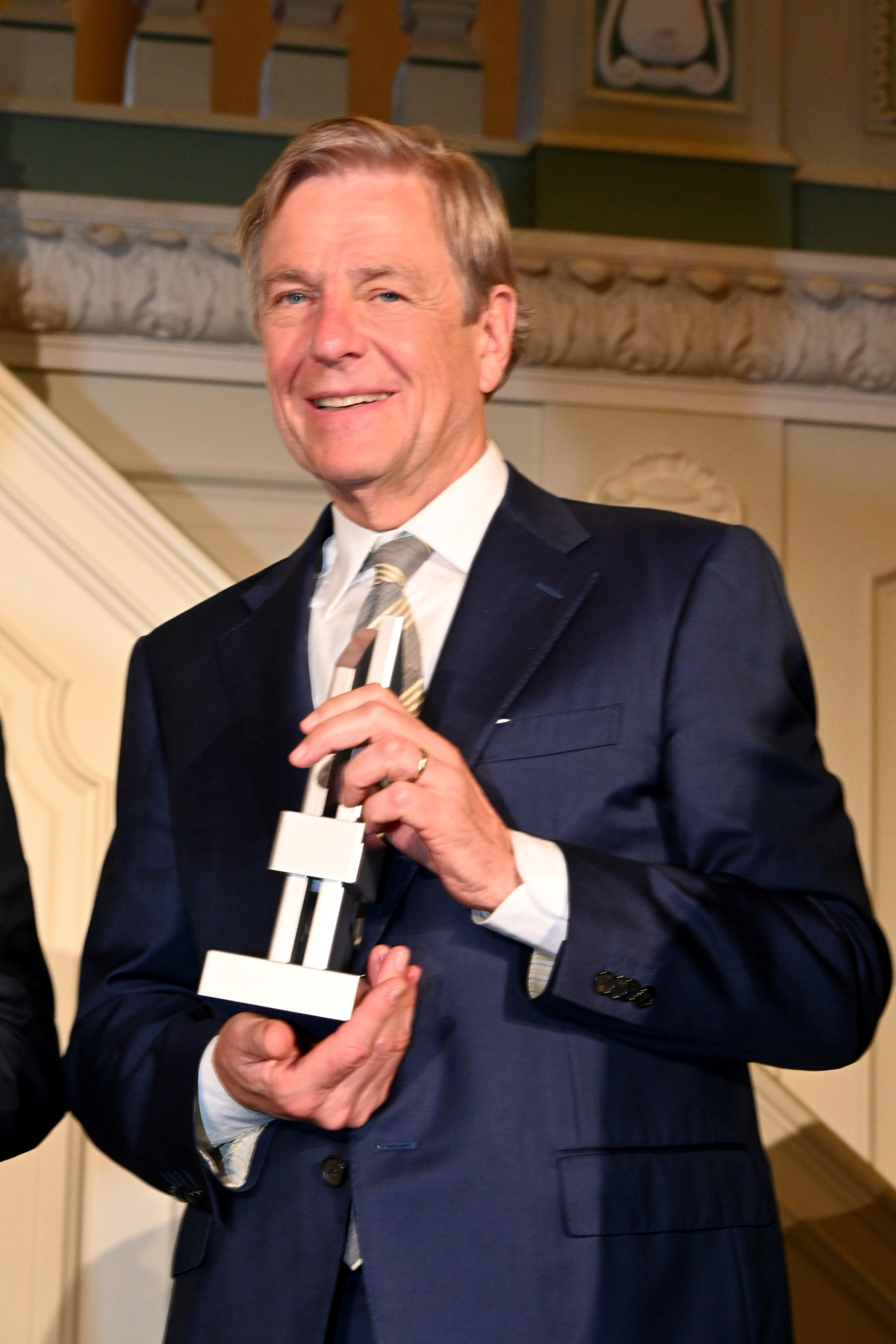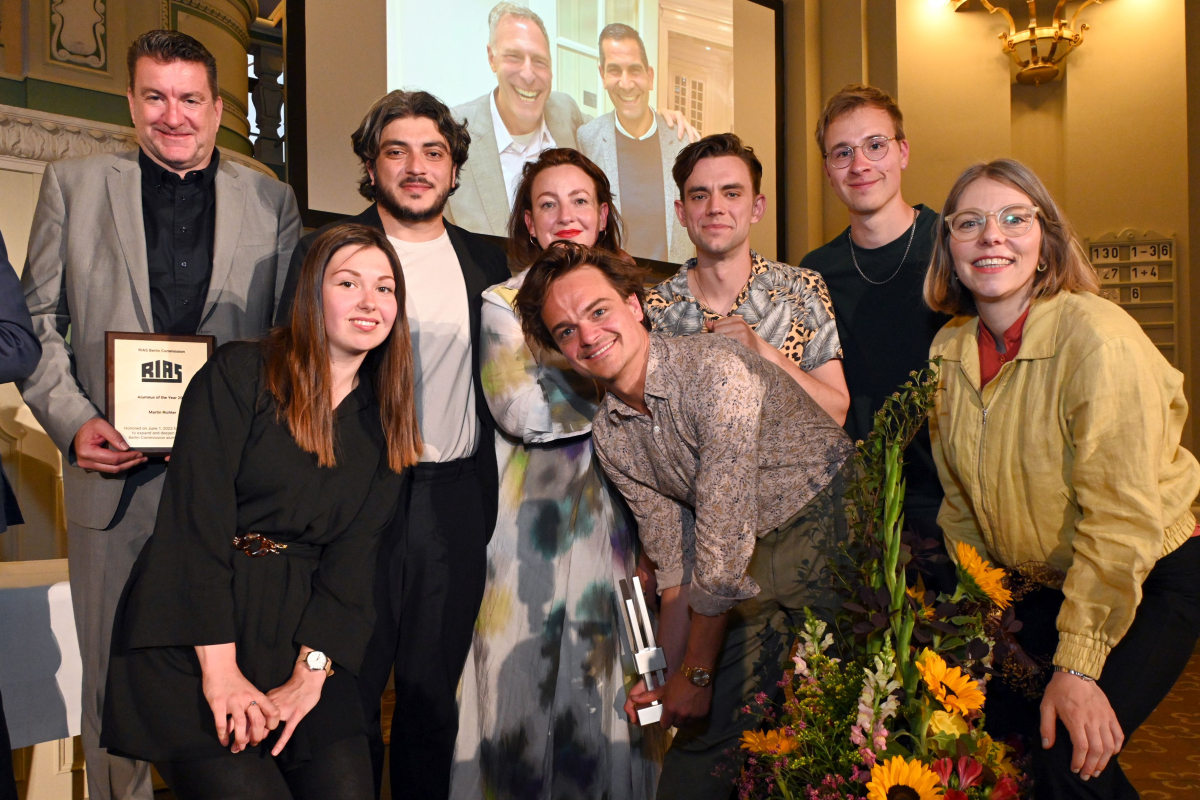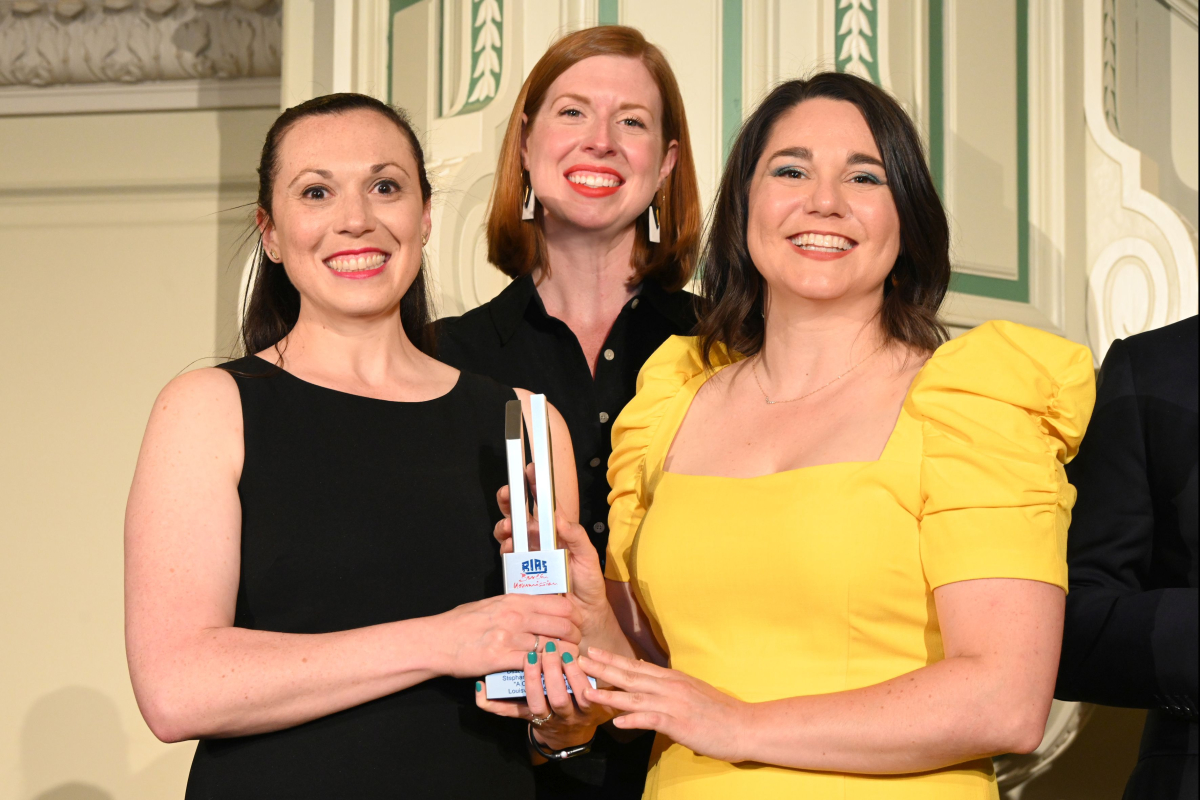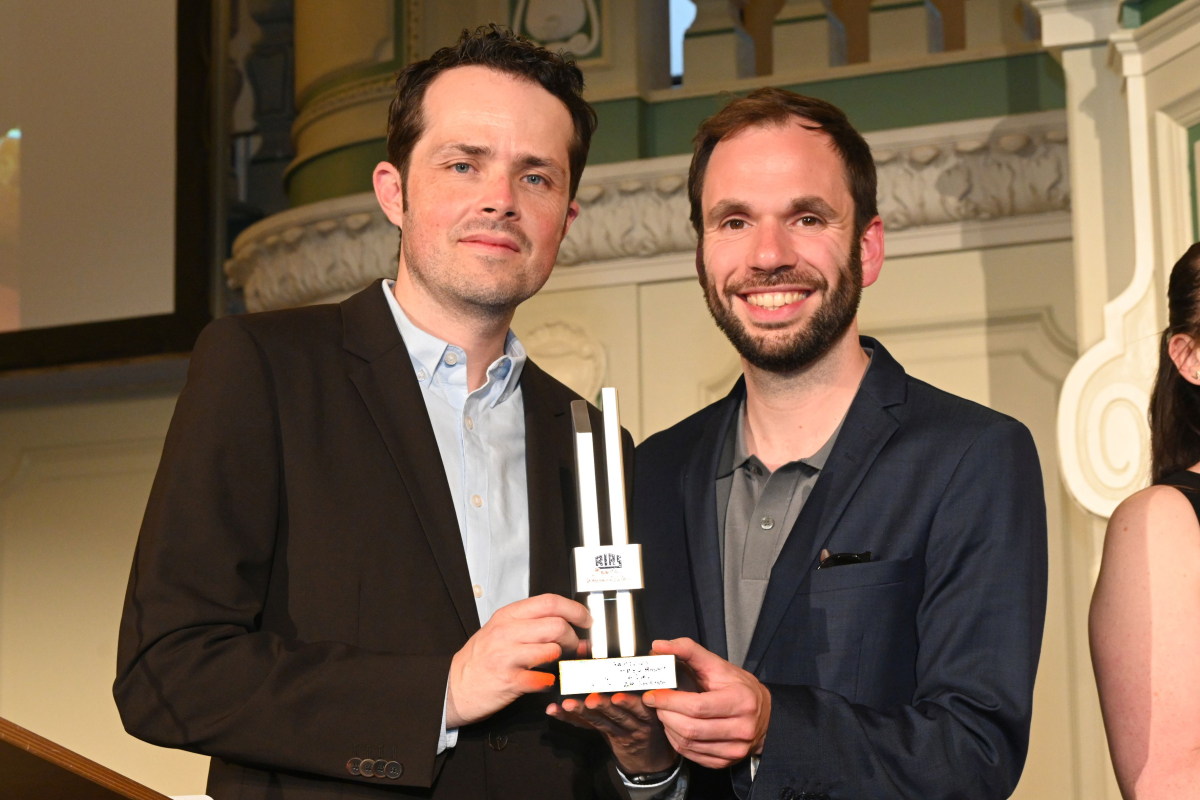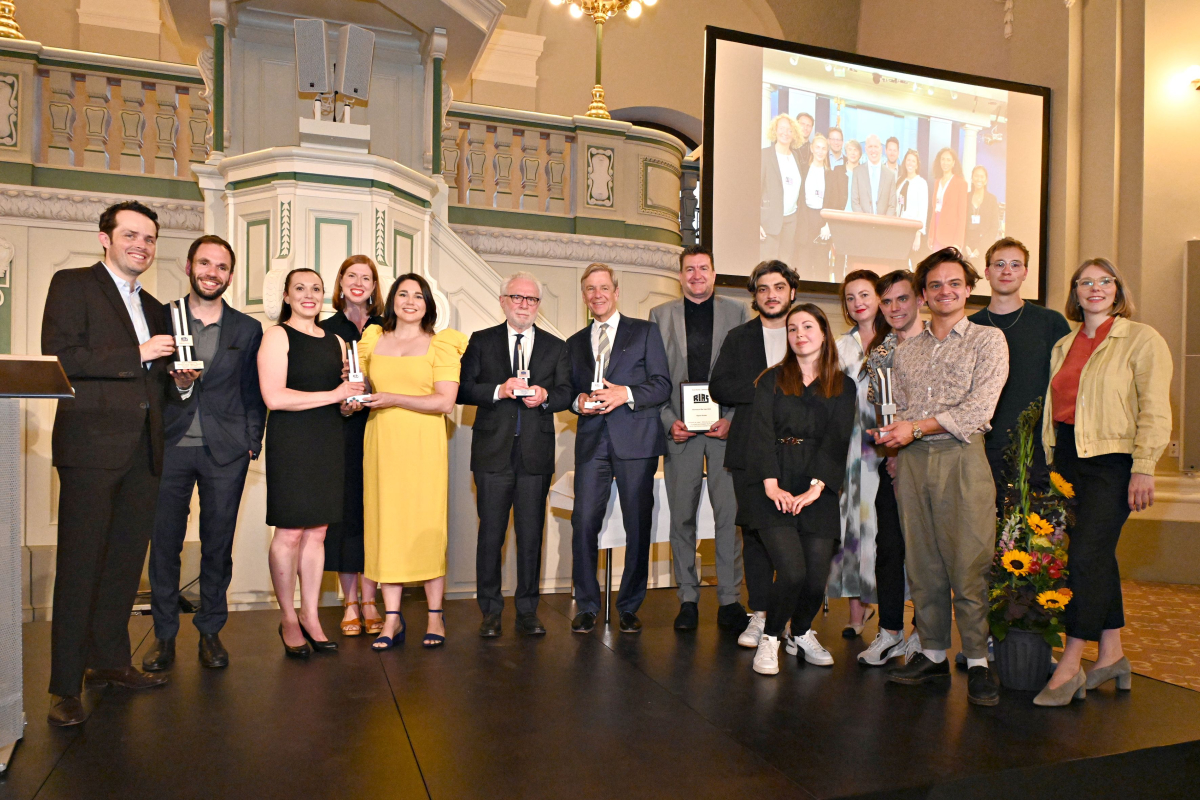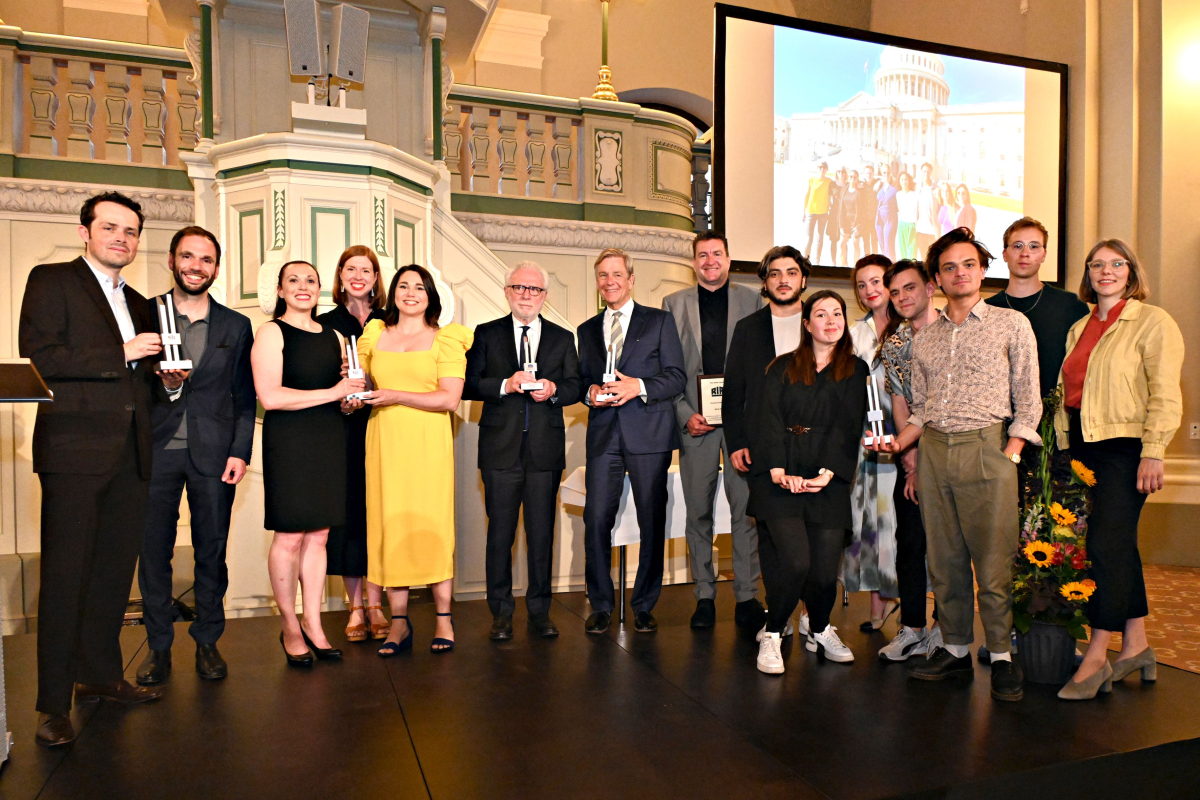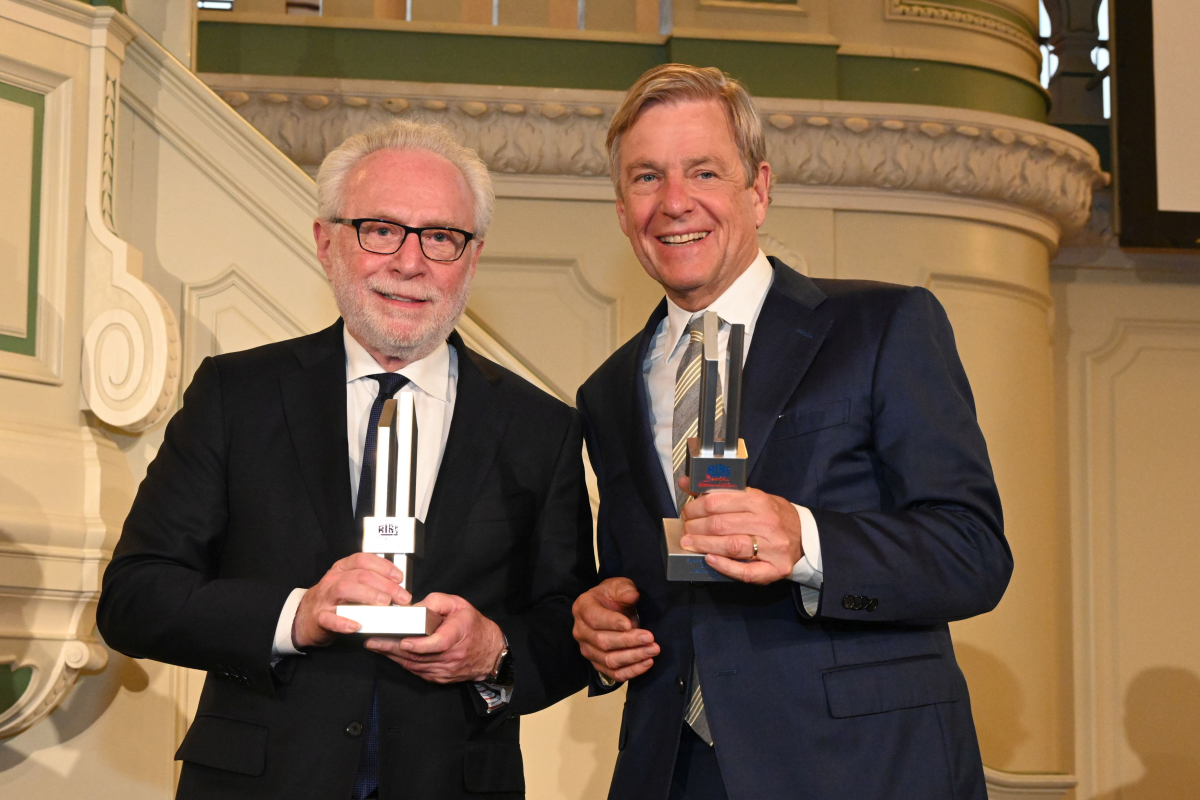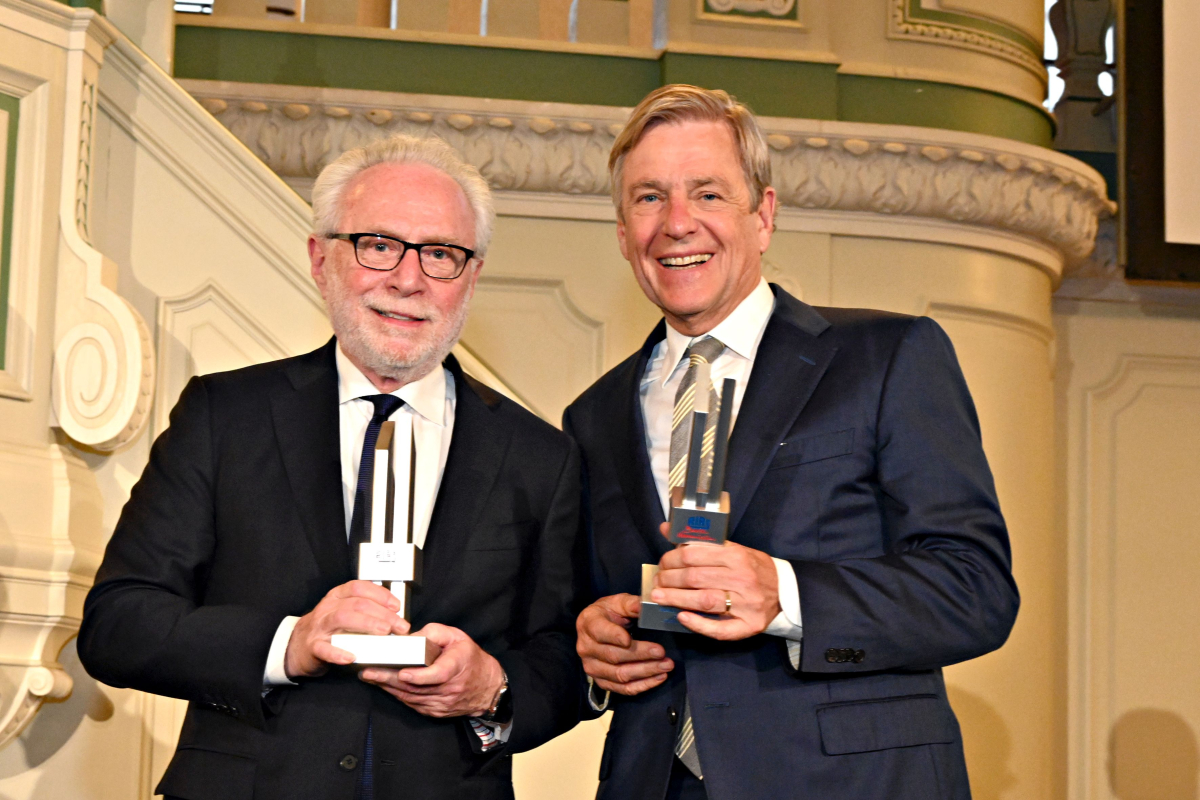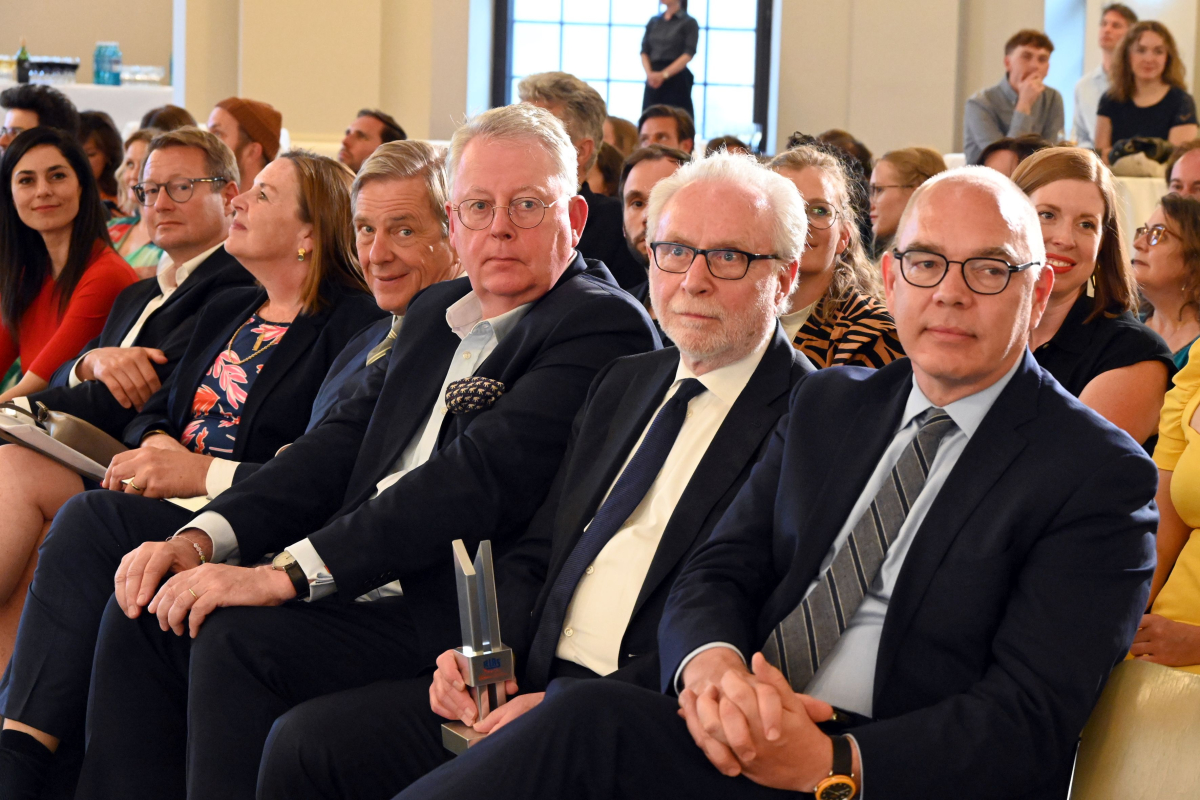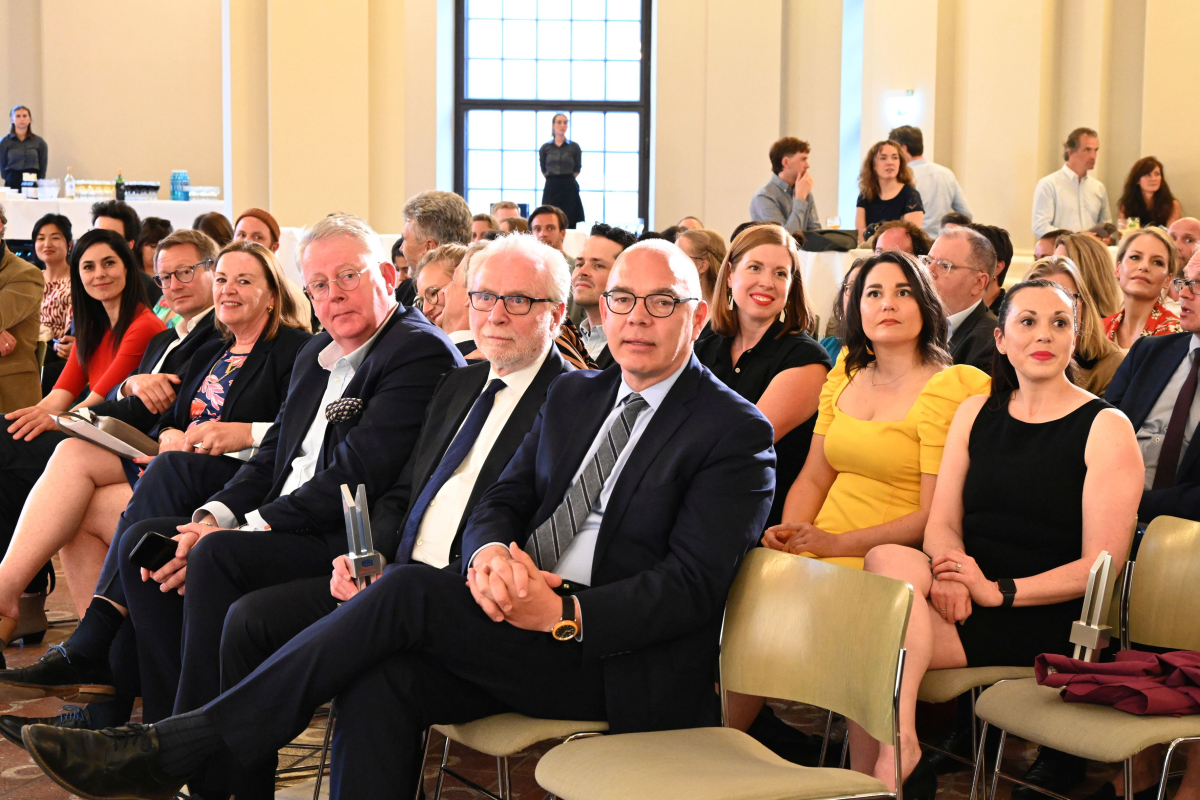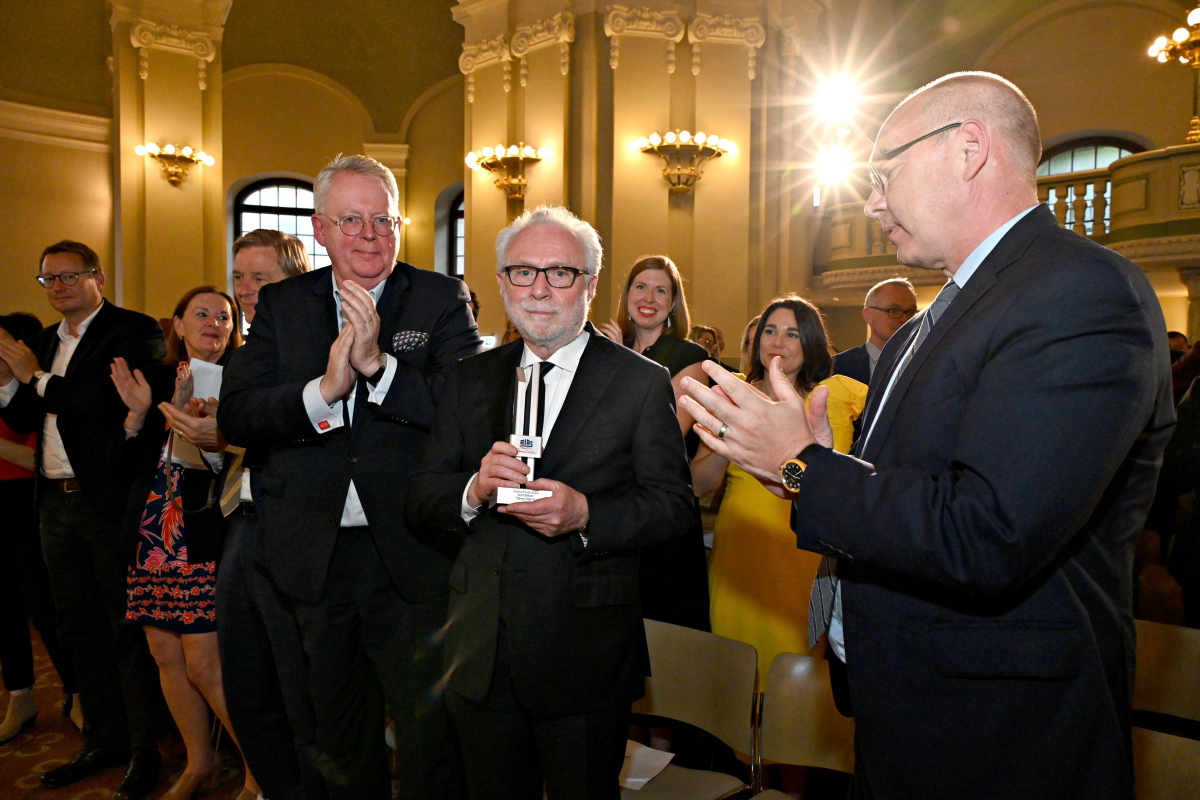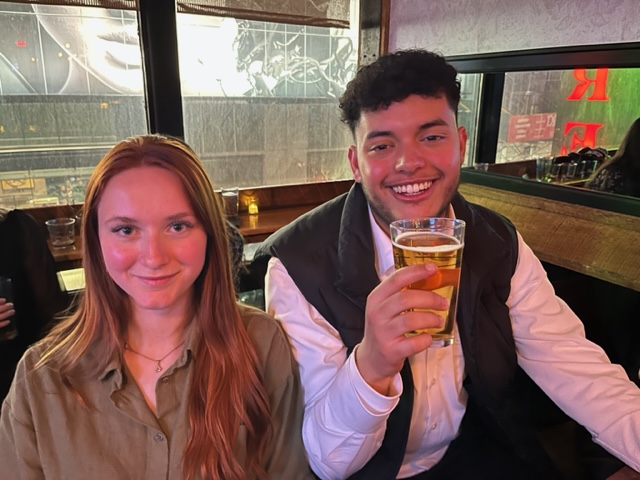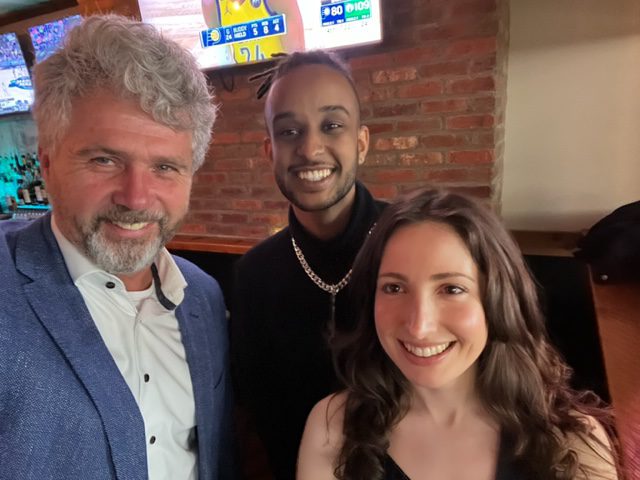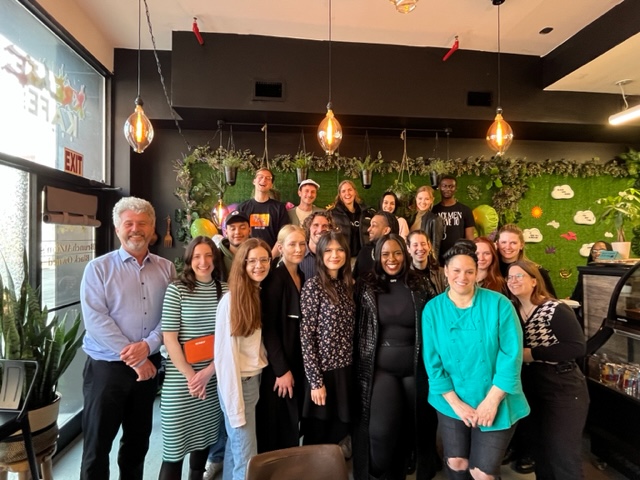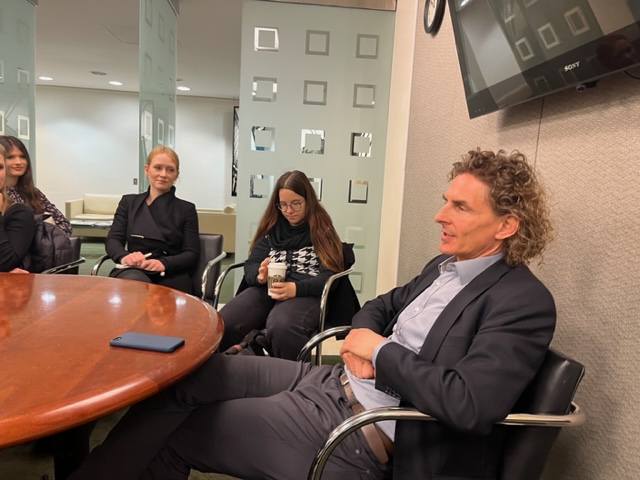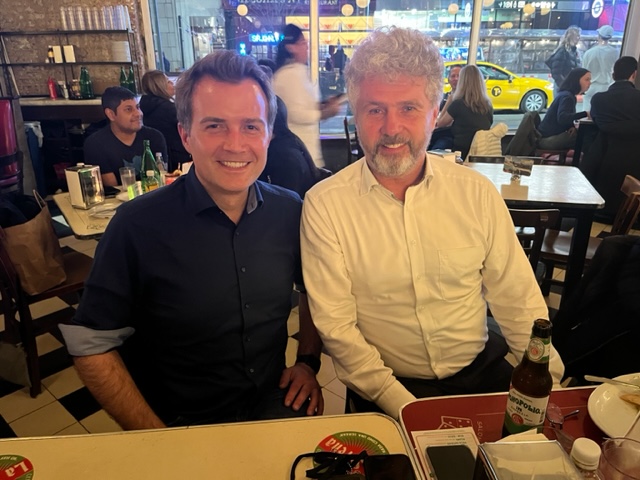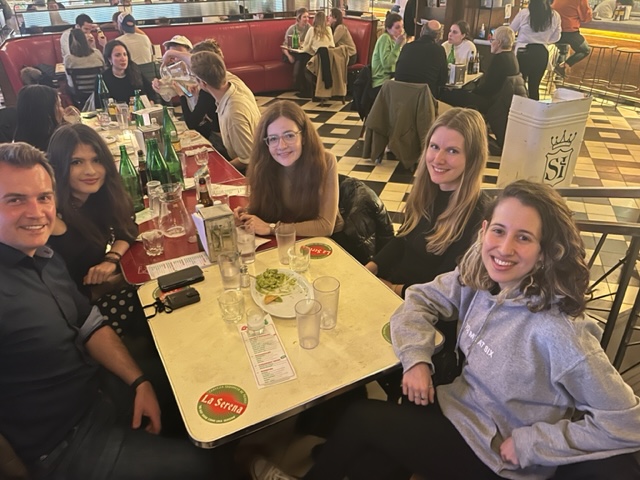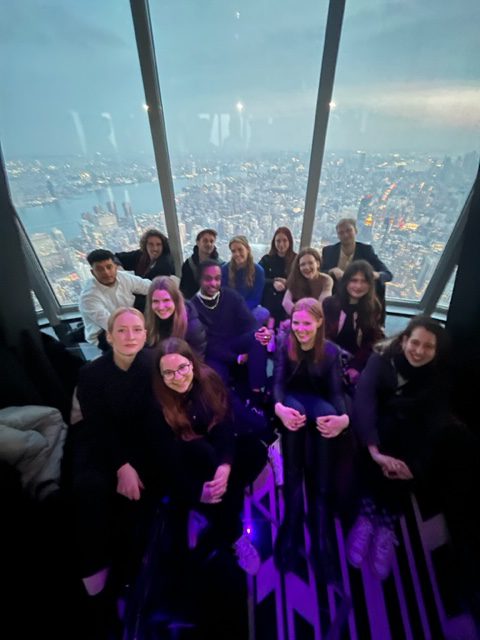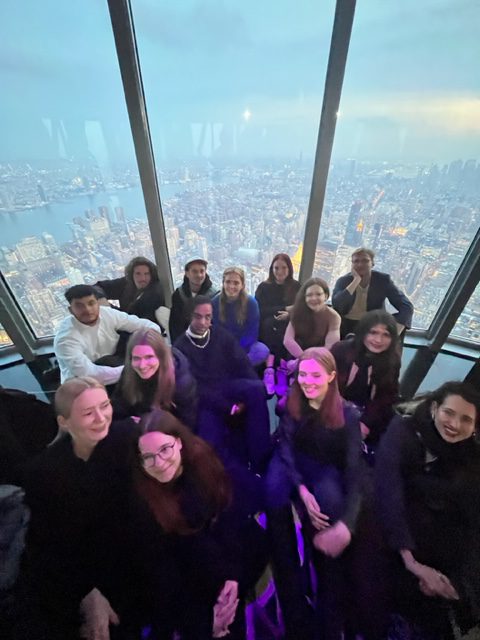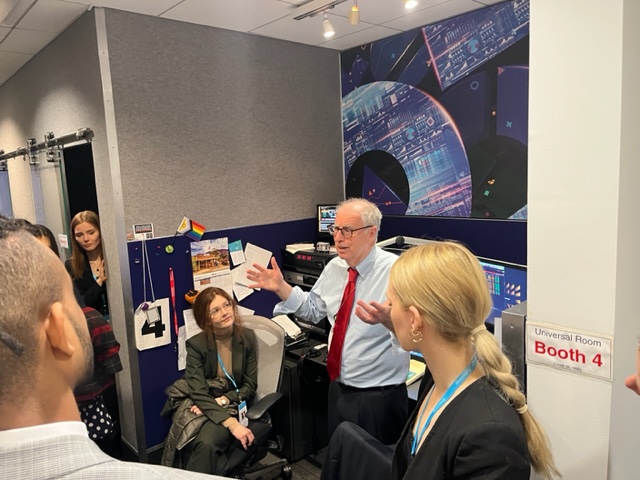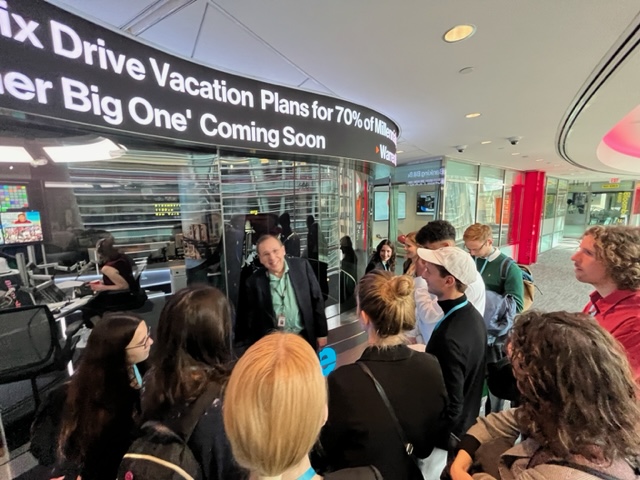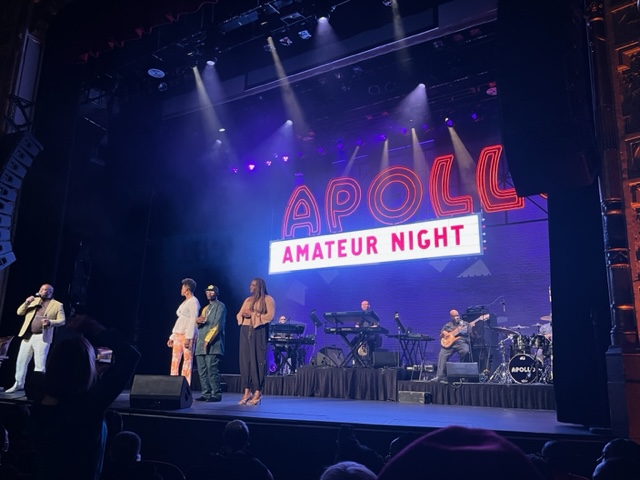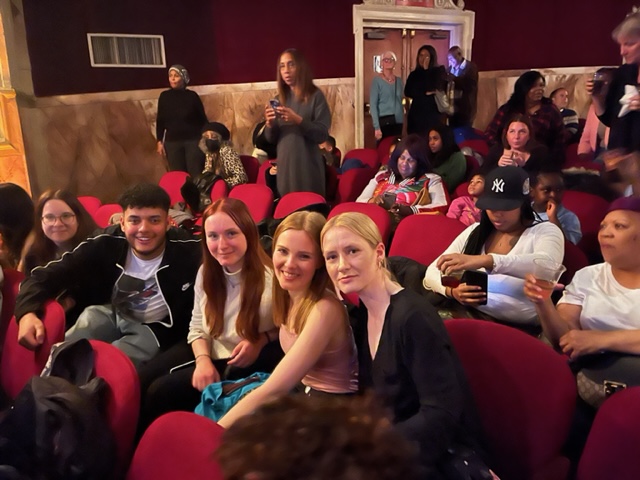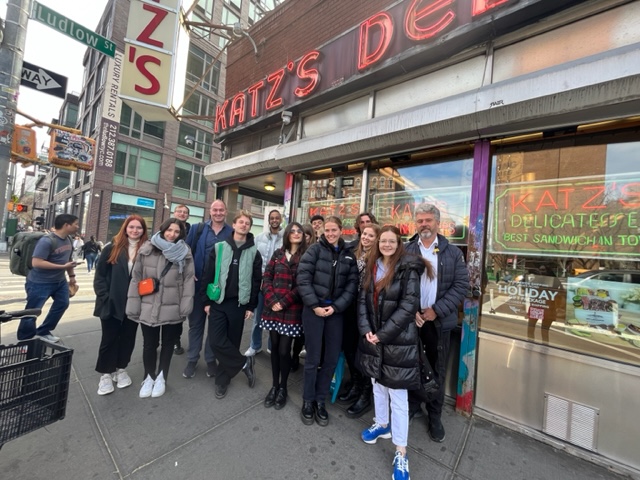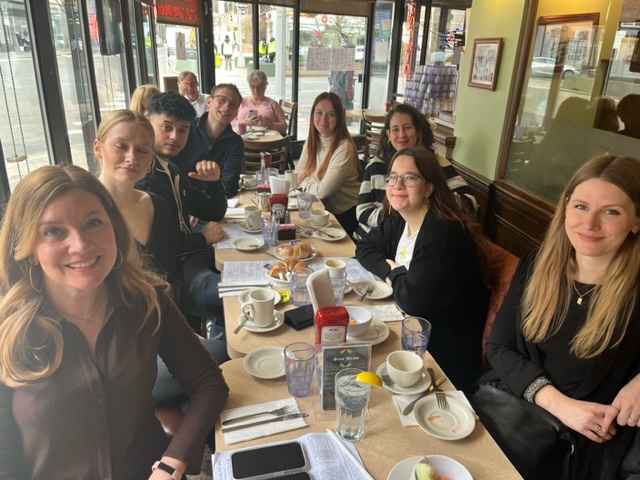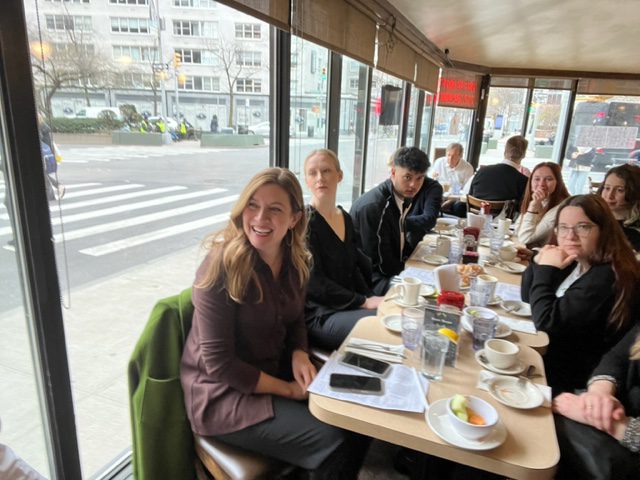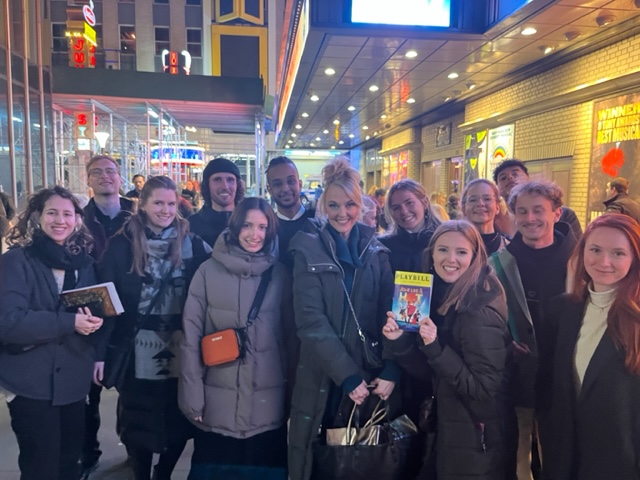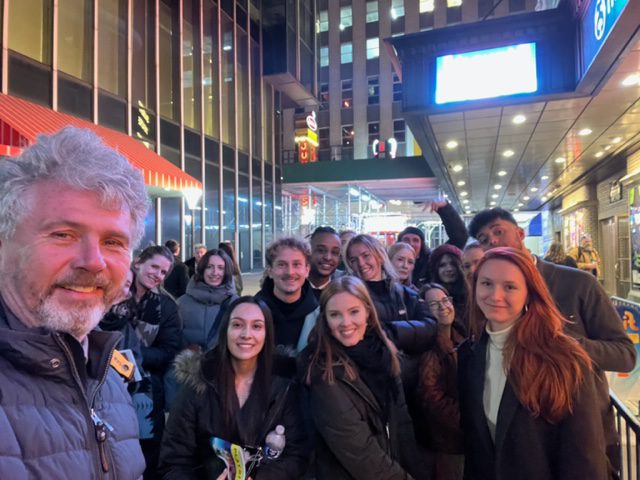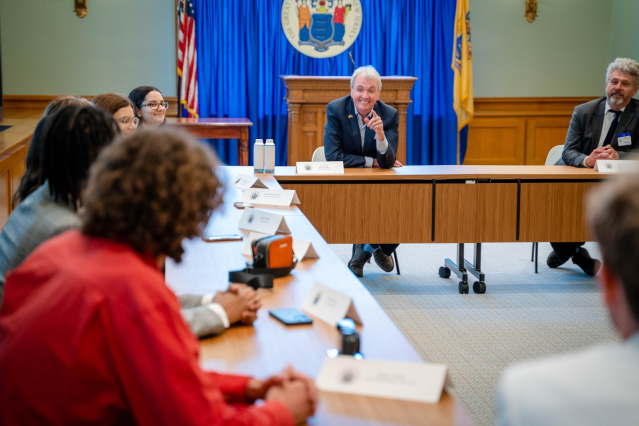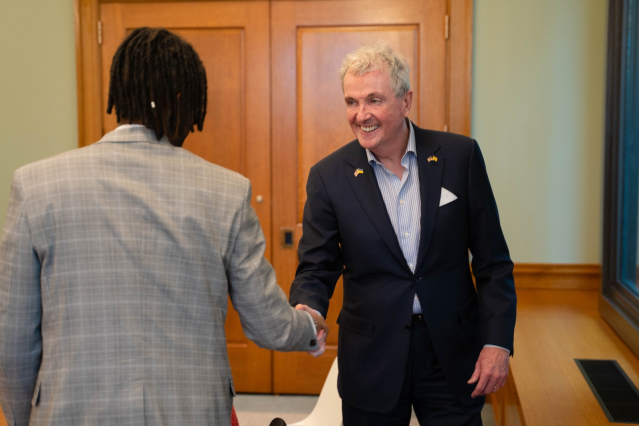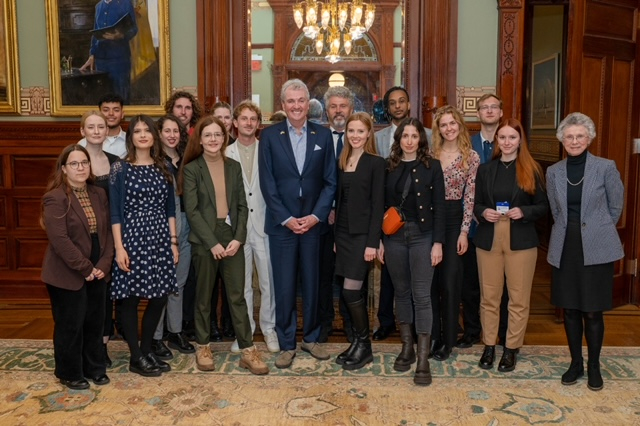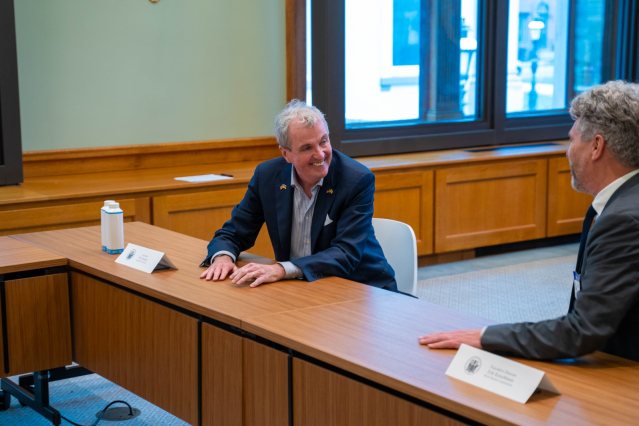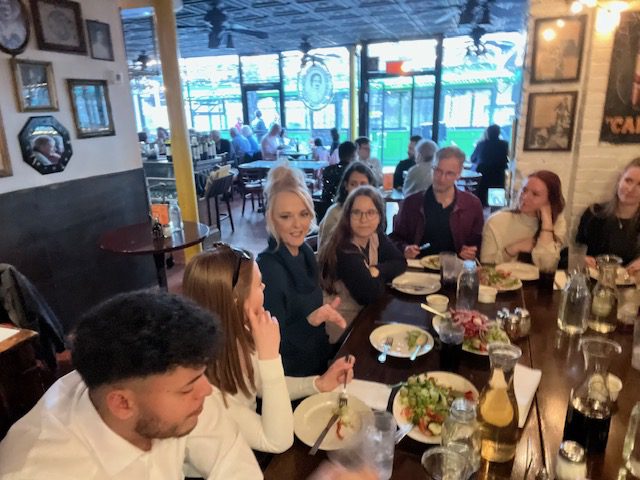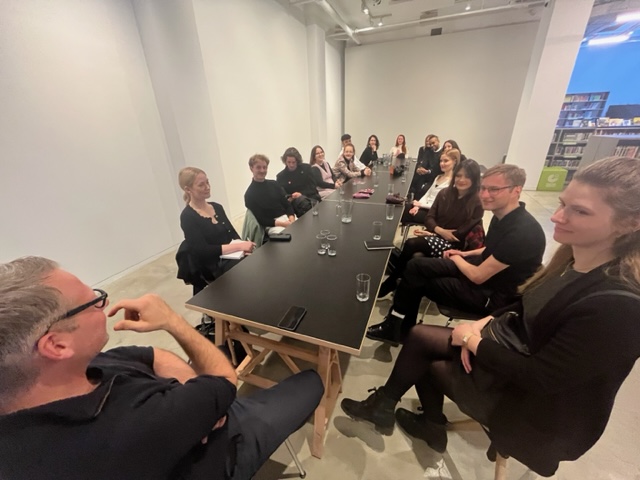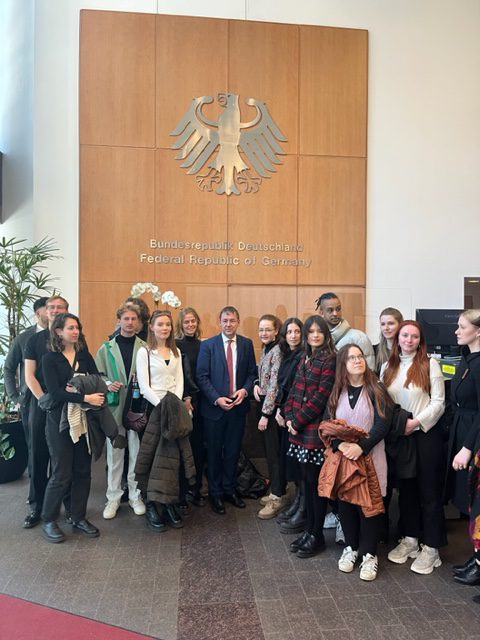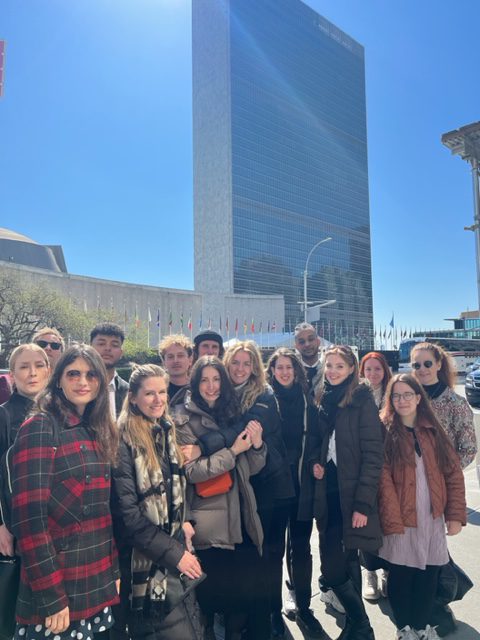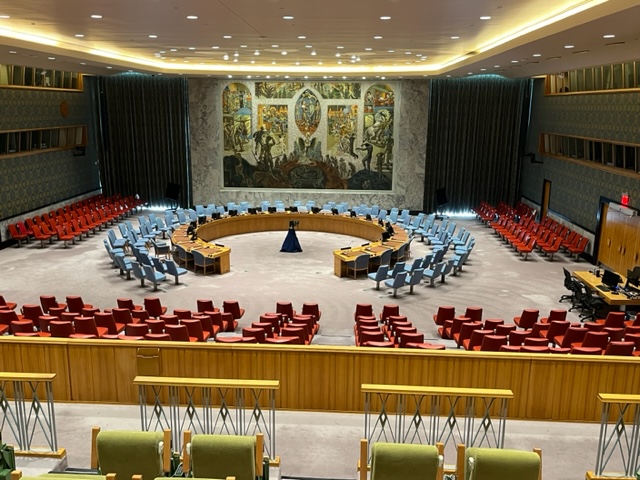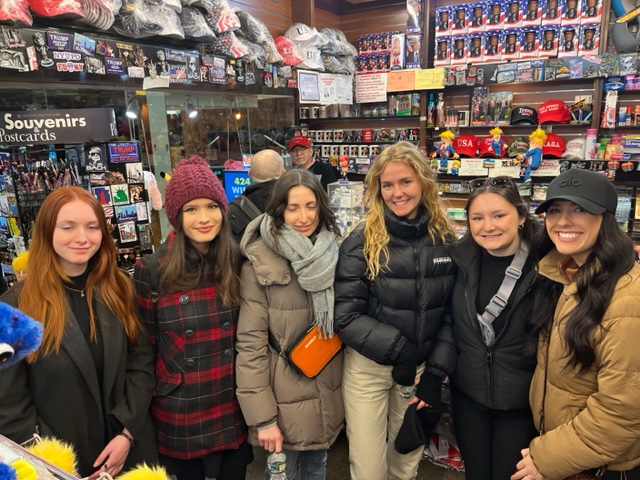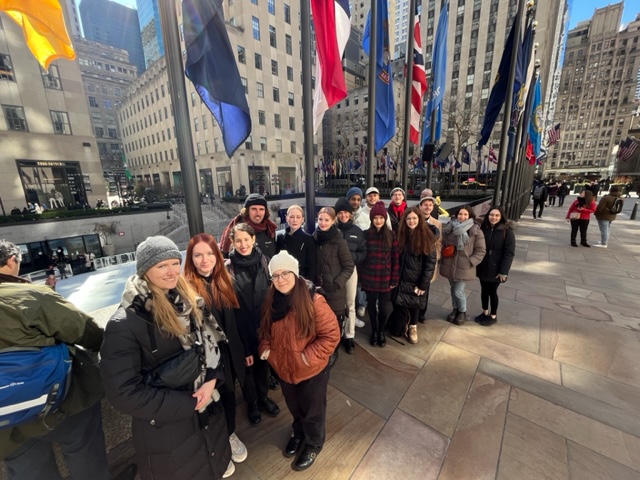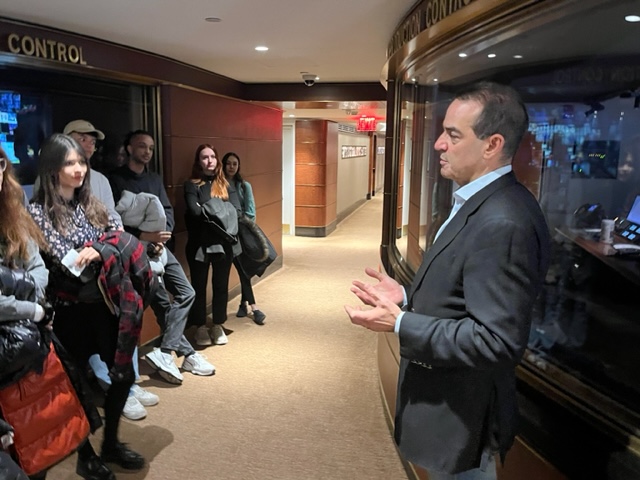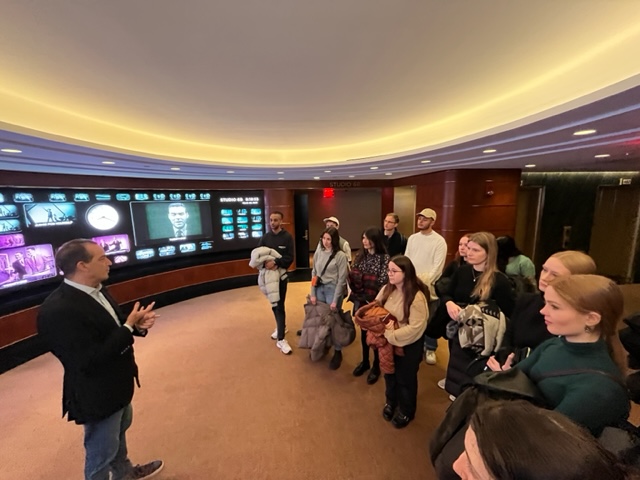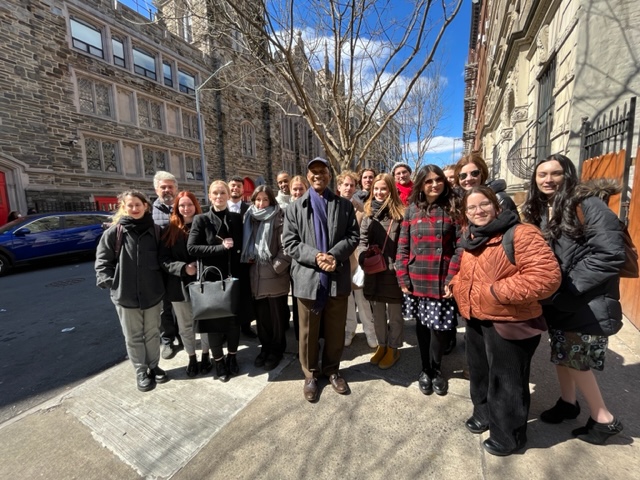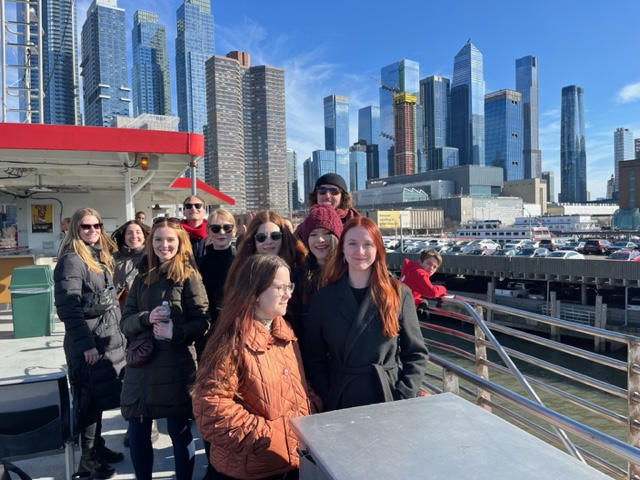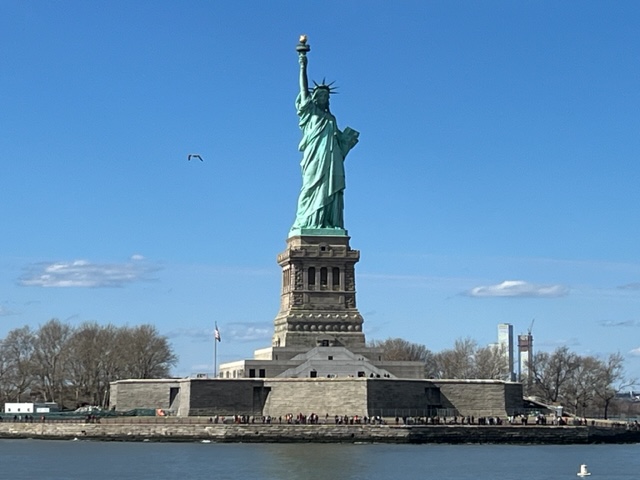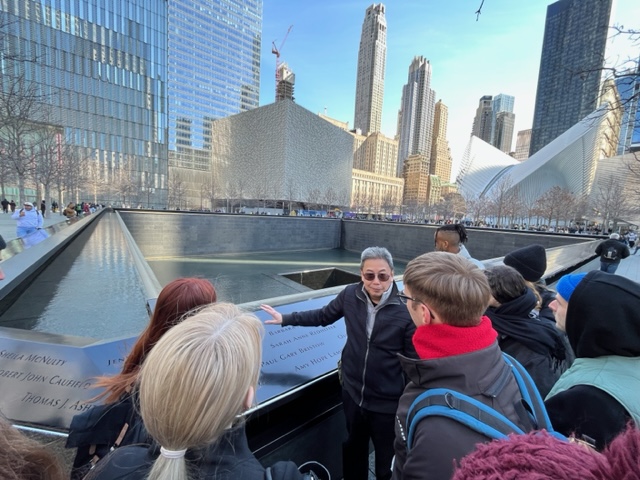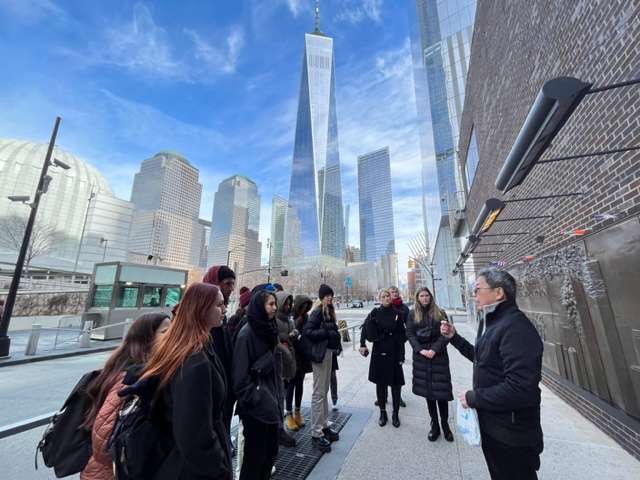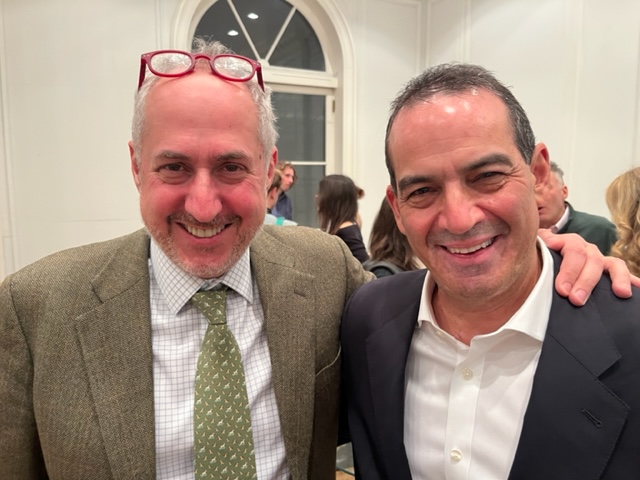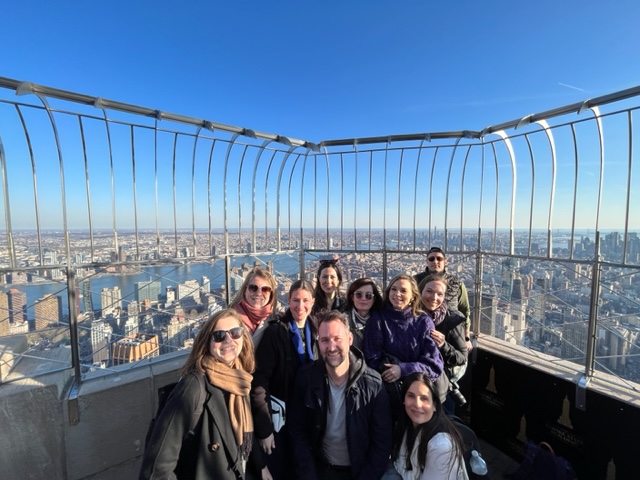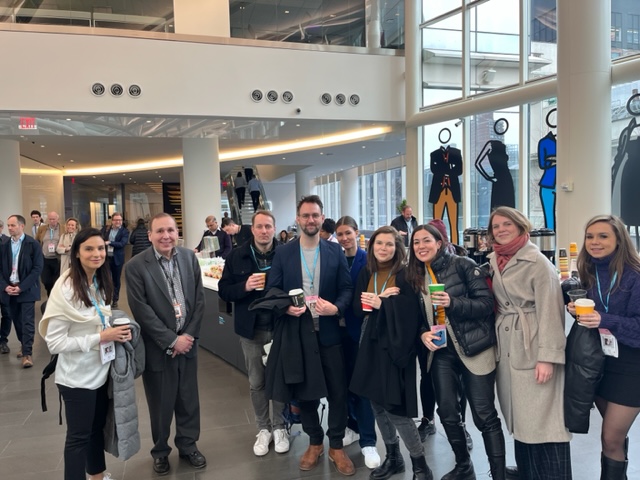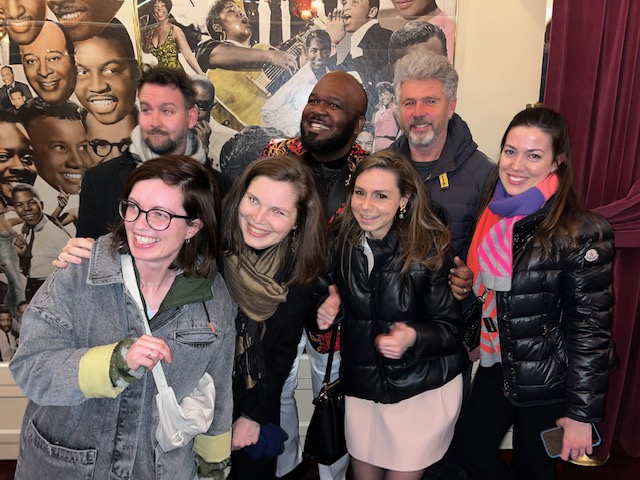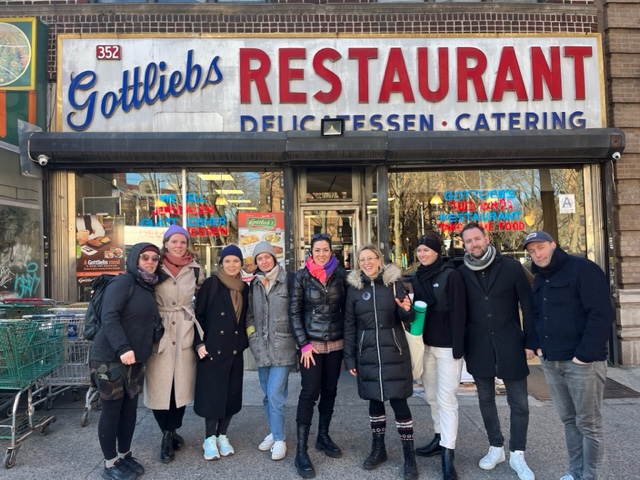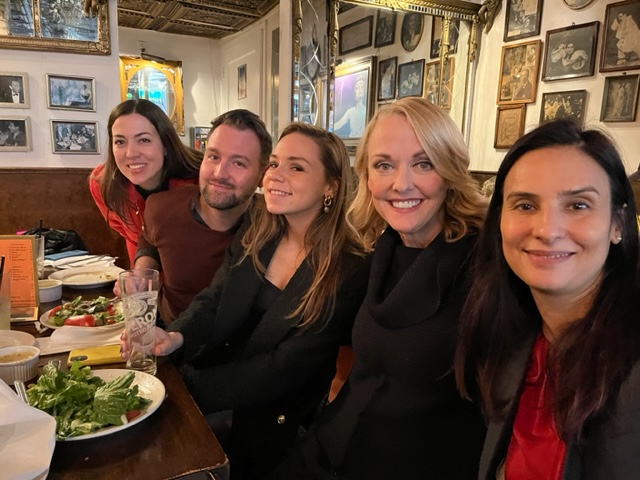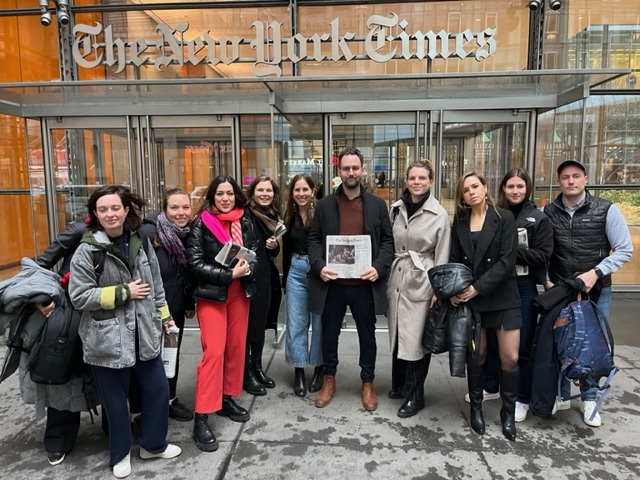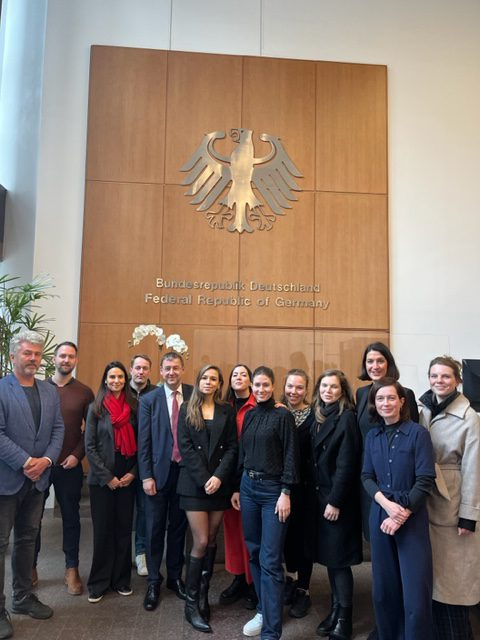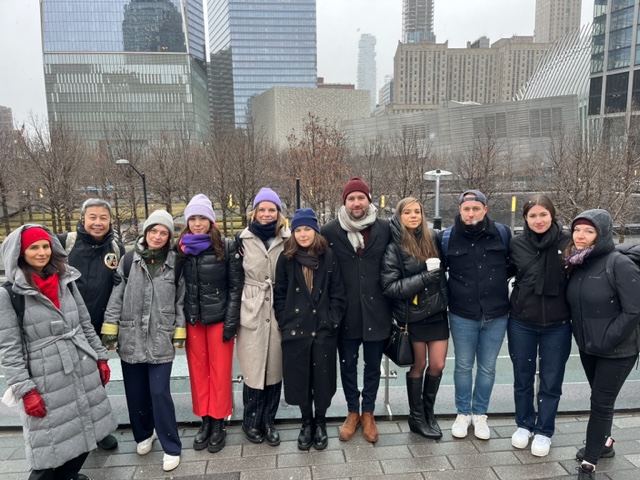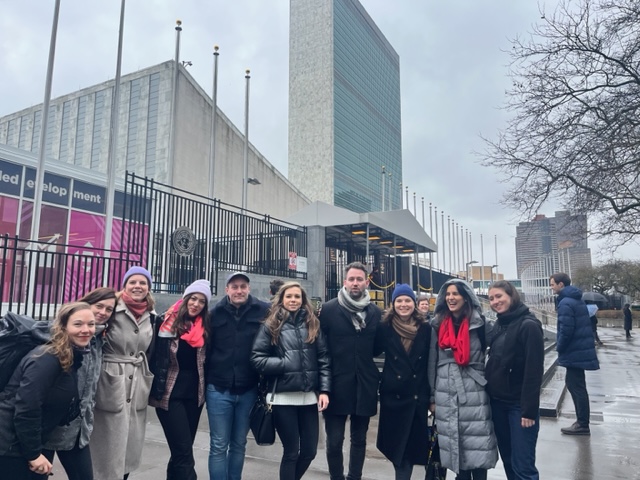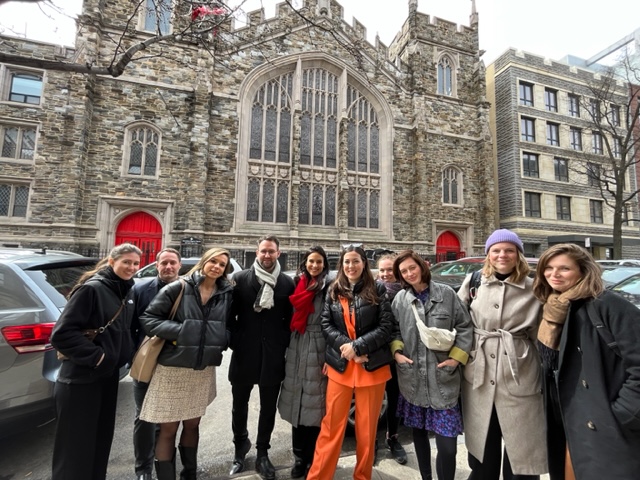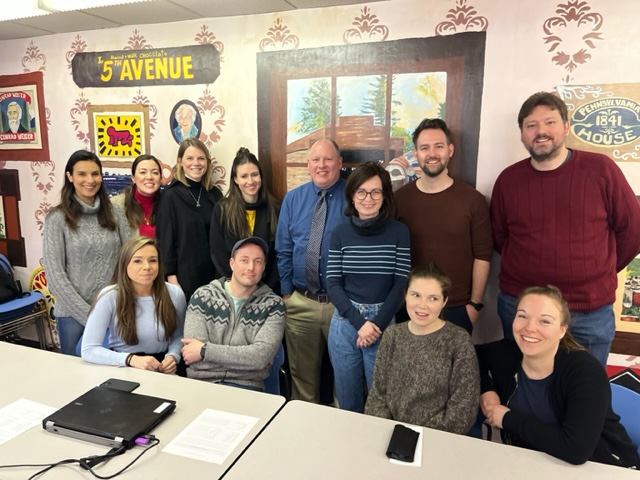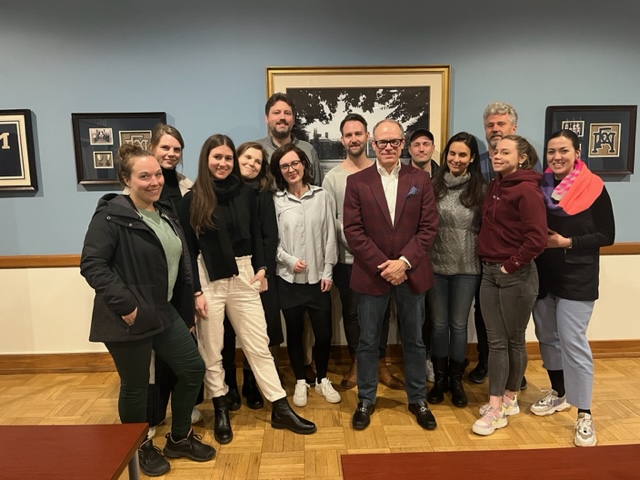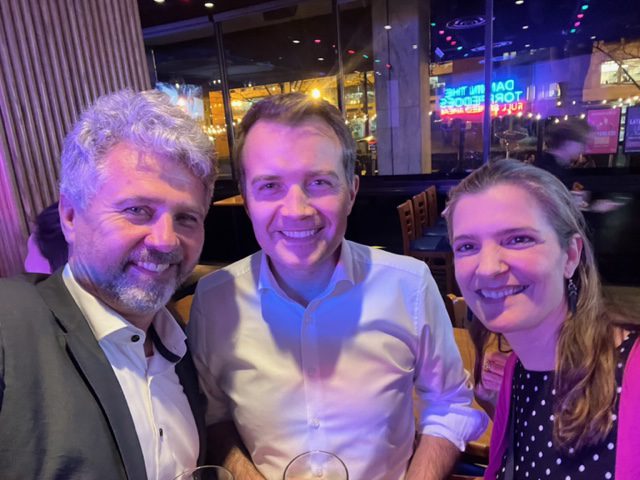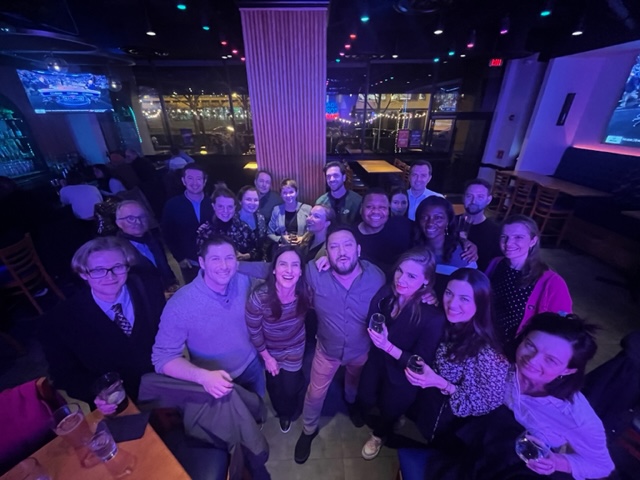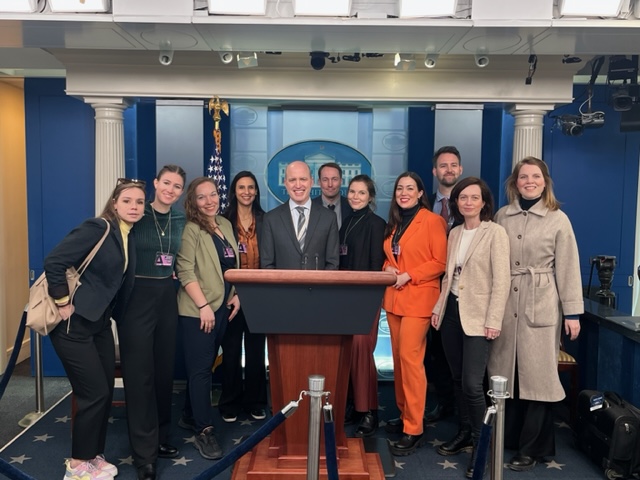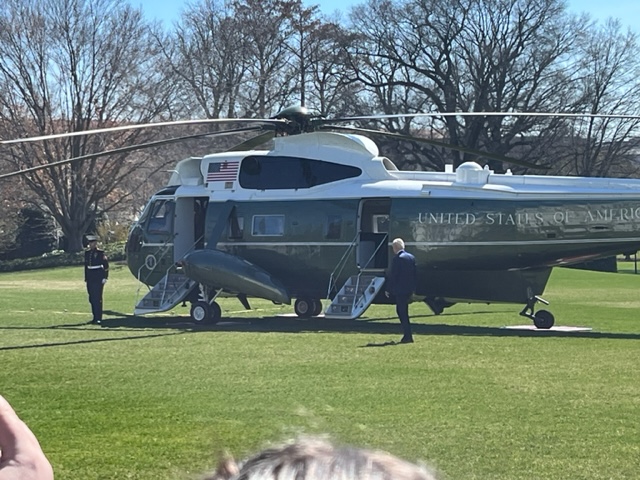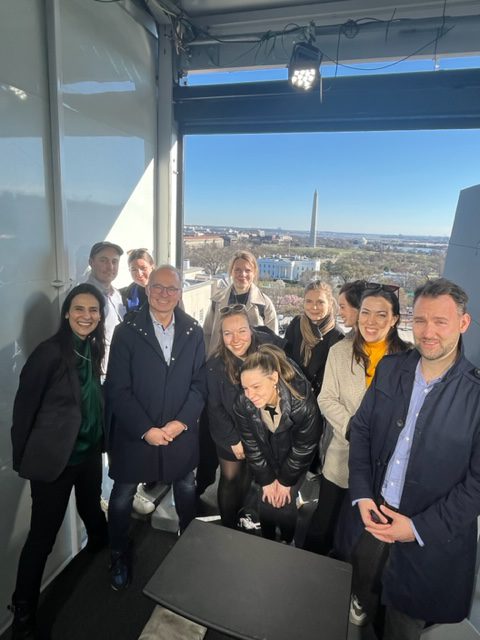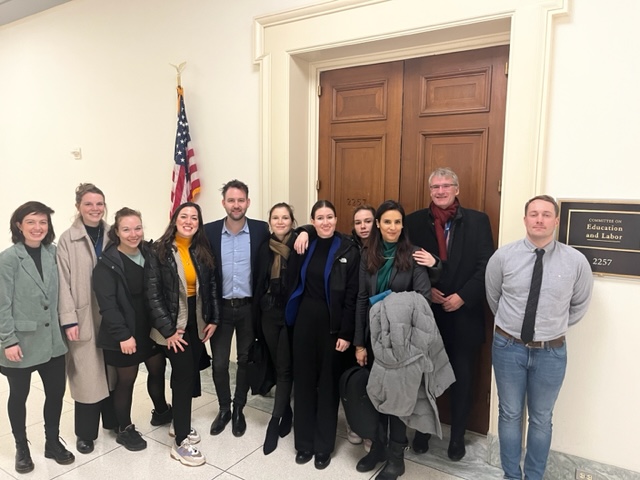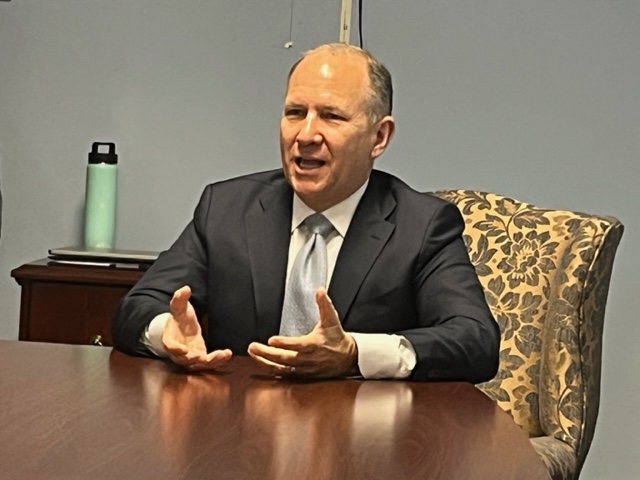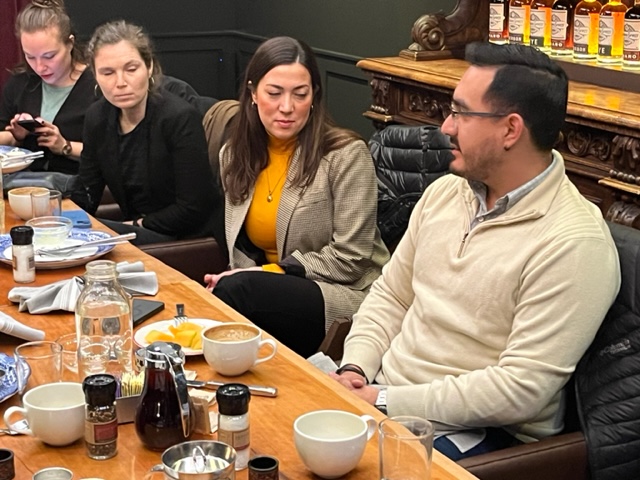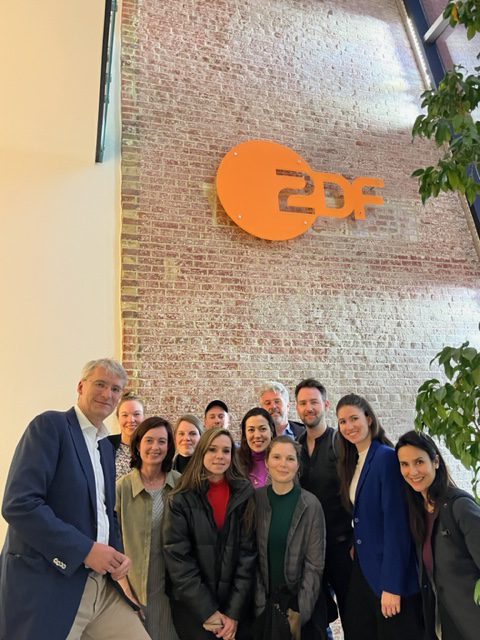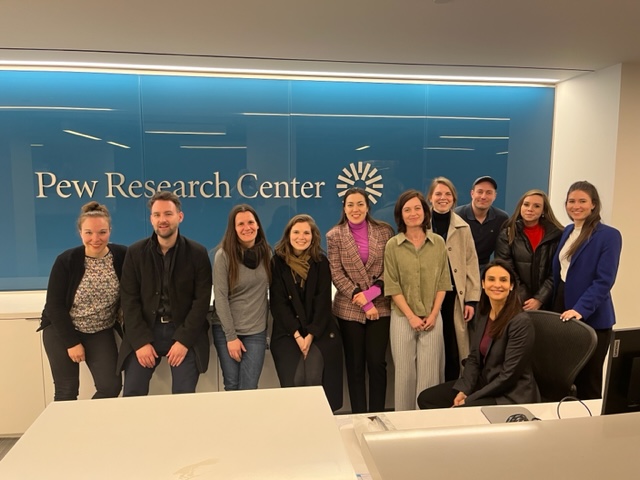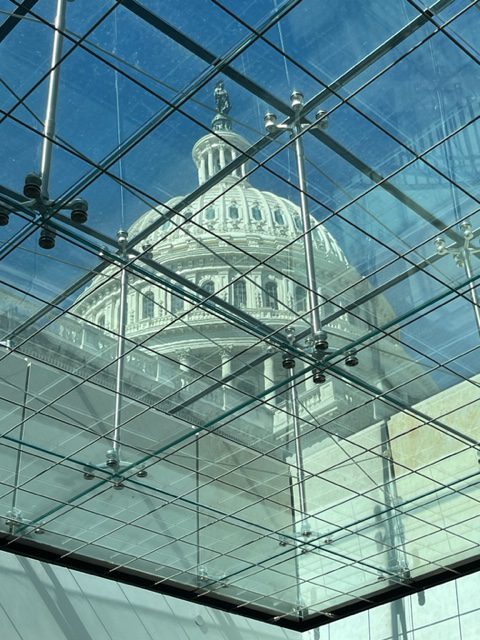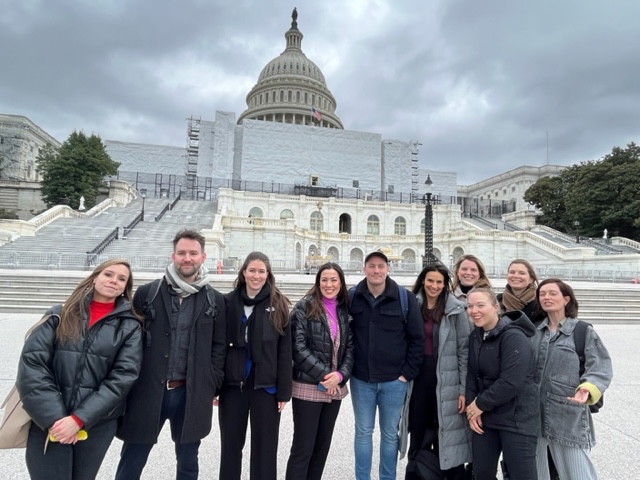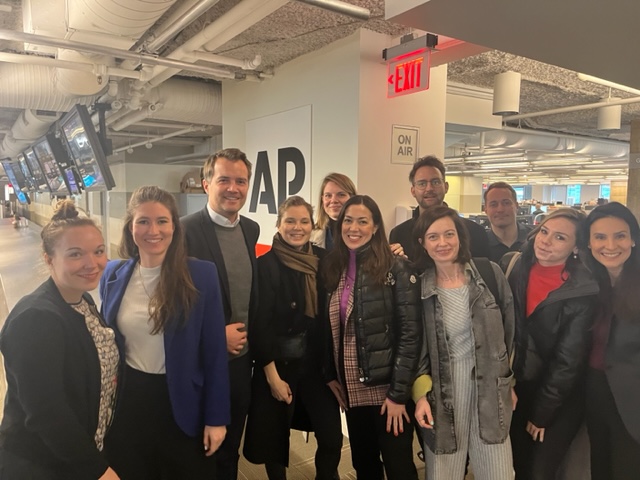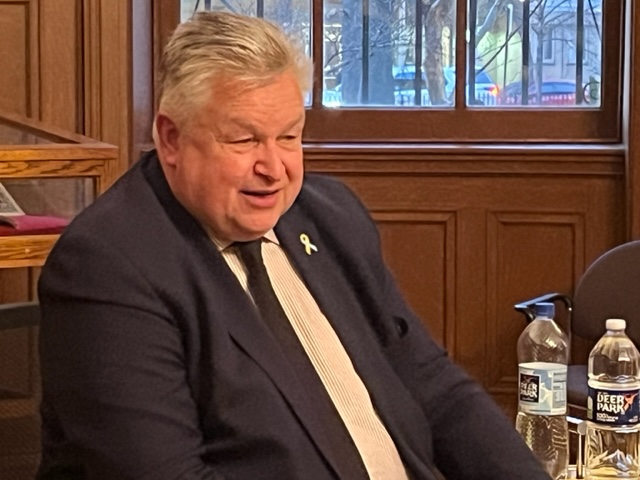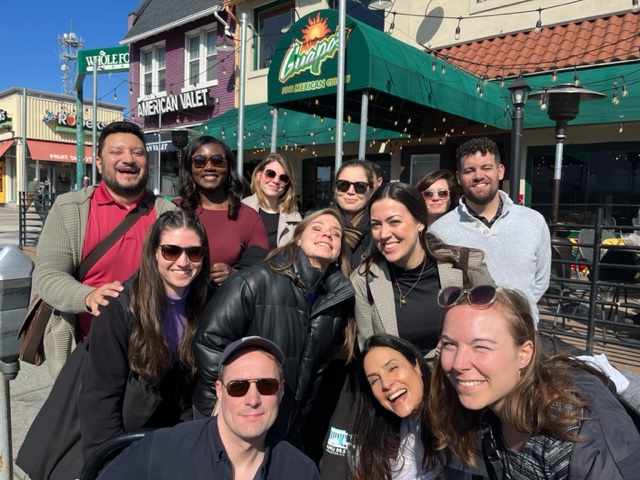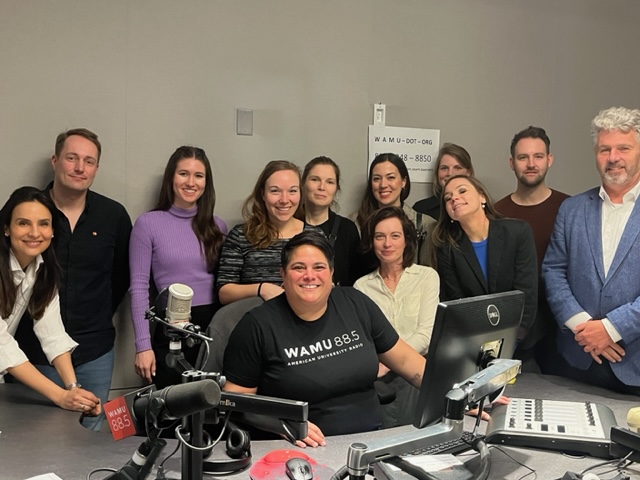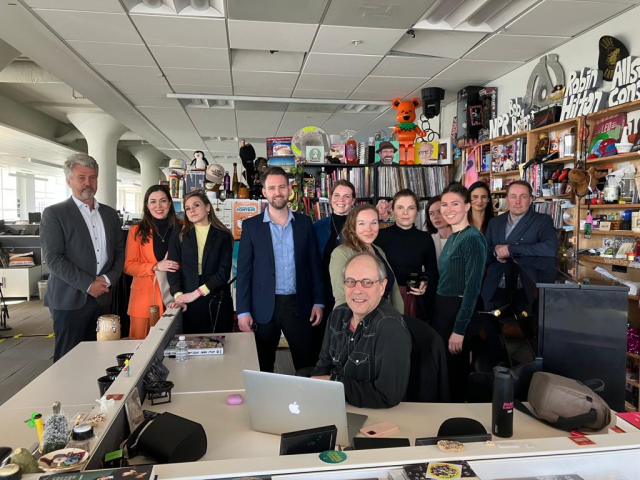News & Events
November 3, 2023
RIAS Alumni reflect on week spent in Los Angeles
Twenty-three German alumni spent a week in Los Angeles learning about California politics, national politics and journalism in the US The program included visits to NBC, NPR, ARD, KABC, KTLA and meetings with LAist journalists. In addition the group met with former Governor Pete Wilson and Richard Grenell, former United States Ambassador to Germany.
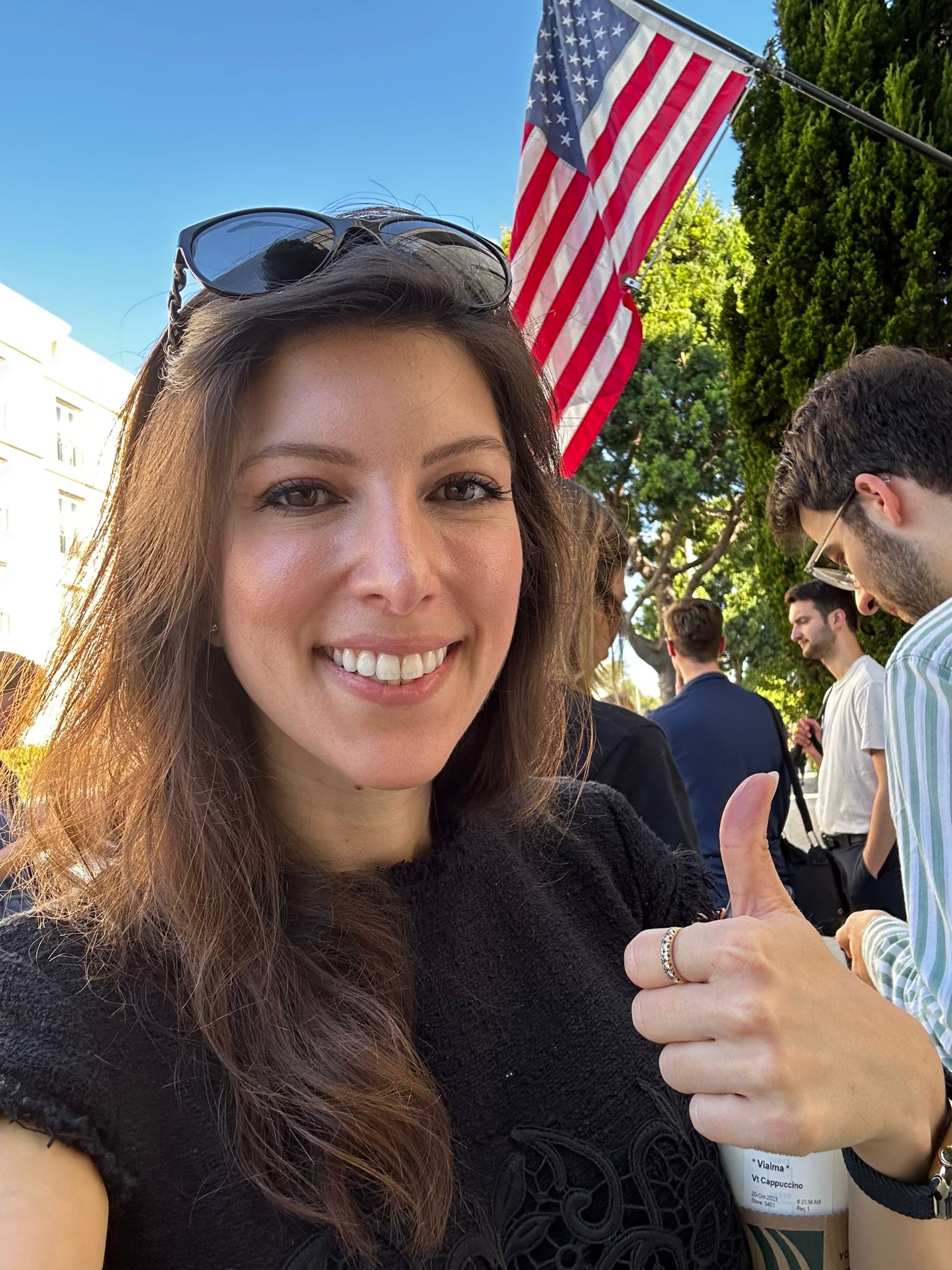 Damla Hekimoğlu, Hamburg
Damla Hekimoğlu, Hamburg
Los Angeles – it might seem like a world for the rich and famous. However, this image is showing some cracks. The massive wealth gap – it’s worrisome. We saw this on the first day of the trip. We started on Skid Row: one of the most dangerous places in America, tents to the right and left where people sleep, the streets are filthy, a pungent odor in the air from people who probably haven’t showered for weeks or maybe even months . Approximately 15,000 homeless people live here, some of them are addicted to hard drugs. Violence is part of their daily life – the place, as we were told, the police have all but abandoned. In sharp contrast, just a few hours later, we found ourselves in a splendid office building in Beverly Hills. A fresh scent as you enter the lobby, velvet sofas on both sides, the floor so clean you could probably eat off it. At the shiny marble table, the focus was not on the existential struggle for survival as in Skid Row but on matters related to major statewide politics. Bringing these two experiences and images together in your mind and processing them – it’s a real challenge. Private conversations afterwards with other RIAS alumni who felt something similar helped us come to terms with all that. And that’s exactly what enriches the journey – in addition to all the exciting appointments with major players in LA, it’s the multifaceted perspectives of RIAS alumni that broaden horizons, provoke thought, and inspire us all. Because we see this first hand: Hollywood is showing cracks. The Hollywood Museum – still fascinating but somewhat outdated, the Walk of Fame remains impressive – but not quite up to date in a time when some social media influencers receive more attention than the classic Hollywood stars of yesterday. The presence of these cracks was also experienced firsthand on the way to NBC, just a few meters away from Disney and Netflix – people walking around with posters, chanting slogans. Actresses and actors from the SAG-AFTRA union have been on strike for months, demanding better pay, increased production budgets – and resisting the potential replacement by Artificial Intelligence. Films featuring AI versions of actors could become a reality in the future. The text here could already be AI-generated, and a trip to Los Angeles – one can already experience it from the comfort of their home using a VR headset. However, what will remain, at least for now, are the real encounters we had, which no AI can replace. Thanks to everyone who made this possible.
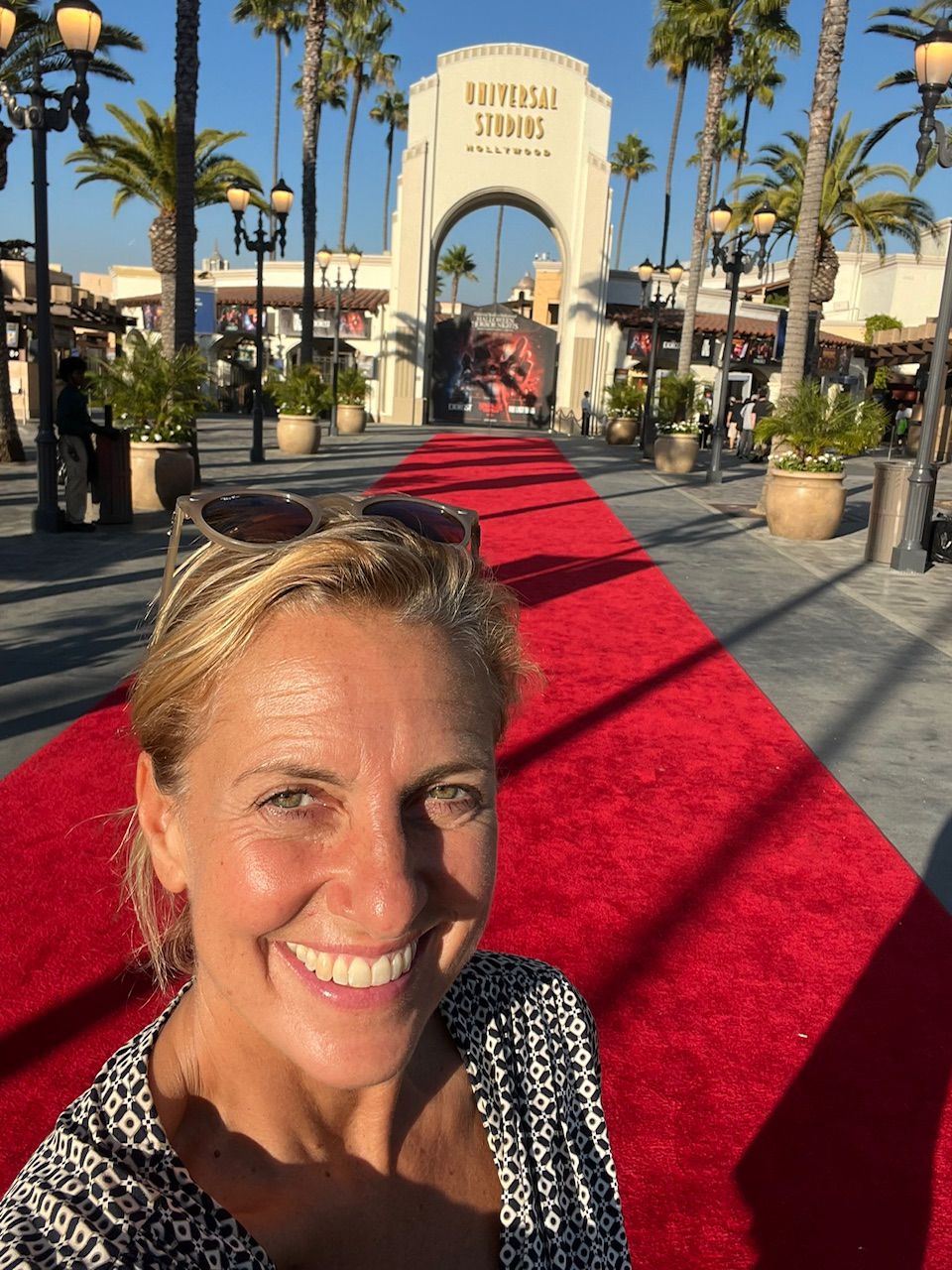 Gesa Eberl, Cologne
Gesa Eberl, Cologne
How do you manage to go live on air with 25 German journalists on a local station? The Americans make it easy. They are masters of improvisation, repartee and entertainment, especially in the media! And so, during a visit to KTLA, thanks to host “Lu Parker,” we simply stood at the anchor desk for the end of the show! Between Beverly Hills and Skidrow, neutral political analysts and Republican hardliners, between striking actors and German cultural fellows in Villa Aurora and the Thomas Mann House, between burgers and tacos, between sandy beaches and hills – A journey to a city full of contrasts, but which represents the variance, the beauty and the brutal dark side of the whole country and thus the brokenness. Los Angeles has also changed in recent years. Glamor was then, today the red carpet remains empty. The RIAS Commission made it possible for us to have a week that is second to none. Without the warm support of the US alumni, we would not have had this intensive insight into the metropolis of millions from all the different perspectives! How grateful we can be to belong to this network. Colleagues who become heartfelt encounters in the US as well as in this country. Thank you to all who helped organize this trip. Thank you #riascommission
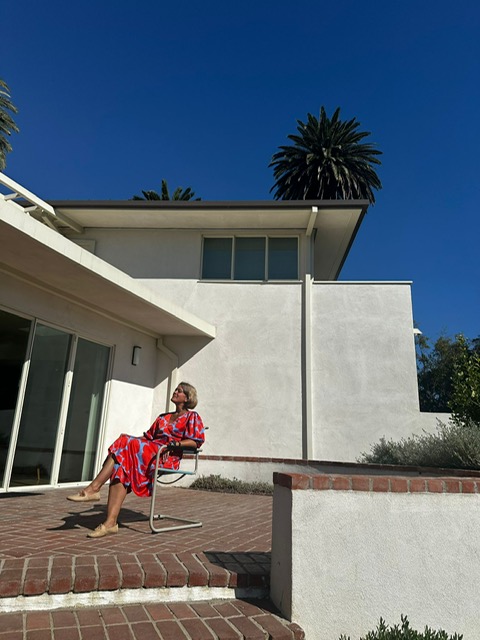 Anja Heyde, Berlin
Anja Heyde, Berlin
We’re on the bus. In Los Angeles! Everyone warned us about this. They said it was too dangerous. Well, first and foremost, bus rides in Los Angeles are one thing: long. Everything takes time in LA That’s the first thing I learned on this RIAS trip.
And that you can go by bus from the most luxurious part of town to the poorest. The 720 goes from Beverly Hills to Skid Row. We took it several times because you can appreciate the extremes of this country on this one ride. Even without getting off.
But we got off many times. Not only in skid row. Probably the hardest appointment of our RIAS trip. To see how a small team without government funding tries to fight homelessness in LA is at the same time impressive and terrifying.
And we got off at 7abc news, at the mayor of Beverly Hills, at NBC, at Garry South, a political strategist, at the Wende Museum and at the Thomas Mann House.
We were wanderers between the extremes. Between the California lifestyle and tent cities on sidewalks. Doors were opened to us that explained America a little better again – with all its contradictions. Thank you RIAS, for this great experience!
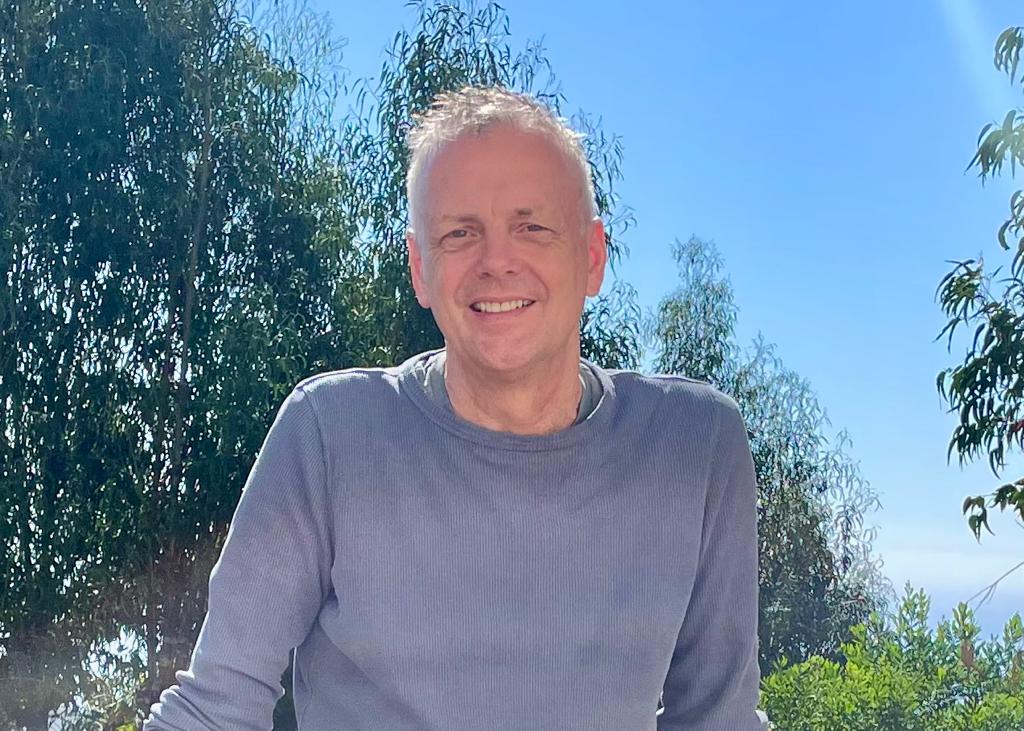 Christian Wilp, Berlin
Christian Wilp, Berlin
10,000 cameras ensure full transparency. 10,000 cameras on traffic lights, buildings and power poles in a city with 34,000 inhabitants. And the population, says the police chief, fully supports this China feeling in Beverly Hills, California. The problems of the greater Los Angeles area, such as crime and homelessness, are thus largely kept at bay, but have not been eliminated.
Fortunately, our tour group is anything but camera shy. Most of the participants of this RIAS alumni tour work in front of or behind a camera, so the hotel location in the middle of the showcase village with the euphonious name is perfectly chosen.
From Maison 140, as our boutique hotel is called, the cosmos of LA is explored a bit. By Uber, Lyft, on foot and, quite crazy, by bus or even bicycle. It’s straight into the wilderness of contradictions. To Skid Row, where thousands camp out in tents on the street. To sophisticated Pacific Palisades to the residences of the Feuchtwangers and Manns. To various radio stations that are desperately trying to fight social media. To Hollywood, which has definitely seen better days. And last but not least, to the convention center around the corner, where the left-wing, right-wing and centrist talking heads vividly illustrate the country’s divisions.
In short: a week of pressure refueling with content from politics, society and culture. And all of this under the banner of the RIAS Berlin Commission. Its tireless as well as intrepid representative Erik Kirschbaum manages to breathe turgid life into the dry talk of “promoting transatlantic relations.”
PS: For sure, the cameras also recorded the strange movement profile of the German squad. I wonder what the officers were thinking?
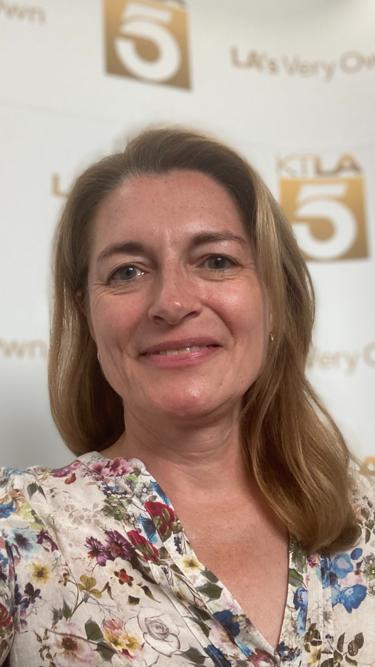 Susan Falkenstein, Munich
Susan Falkenstein, Munich
By bus from glamorous Beverly Hills to streets full of homeless tents to the dangerous neighborhood of Skid Row. Such contrasts presented themselves on the RIAS alumni trip to Los Angeles. We exchanged ideas with Jürgen Klinsmann, the ex-coach of the German national soccer team. He explained why his new South Korean team recently lost a match: Because a younger player, conscious of tradition, didn’t want to tell an older player what he was doing wrong. We met US alumni who, inspired by the RIAS spirit, gave us a tour of their television stations, NBC and KTLA. The meeting with the ex-US ambassador to Germany, Richard Grenell, remains in the memory. In Trumpian fashion, he enumerated alleged facts: Corona was a kind of flu and China had a mature peace plan for Ukraine. He parried objections from our side with the sweeping sentence that all German journalists are “lefties.” The USA, Los Angeles, a country, a city of contrasts, that’s what I took with me from this special RIAS trip and the memory of the special journalists with whom I was able to share my experiences. Thank you RIAS!
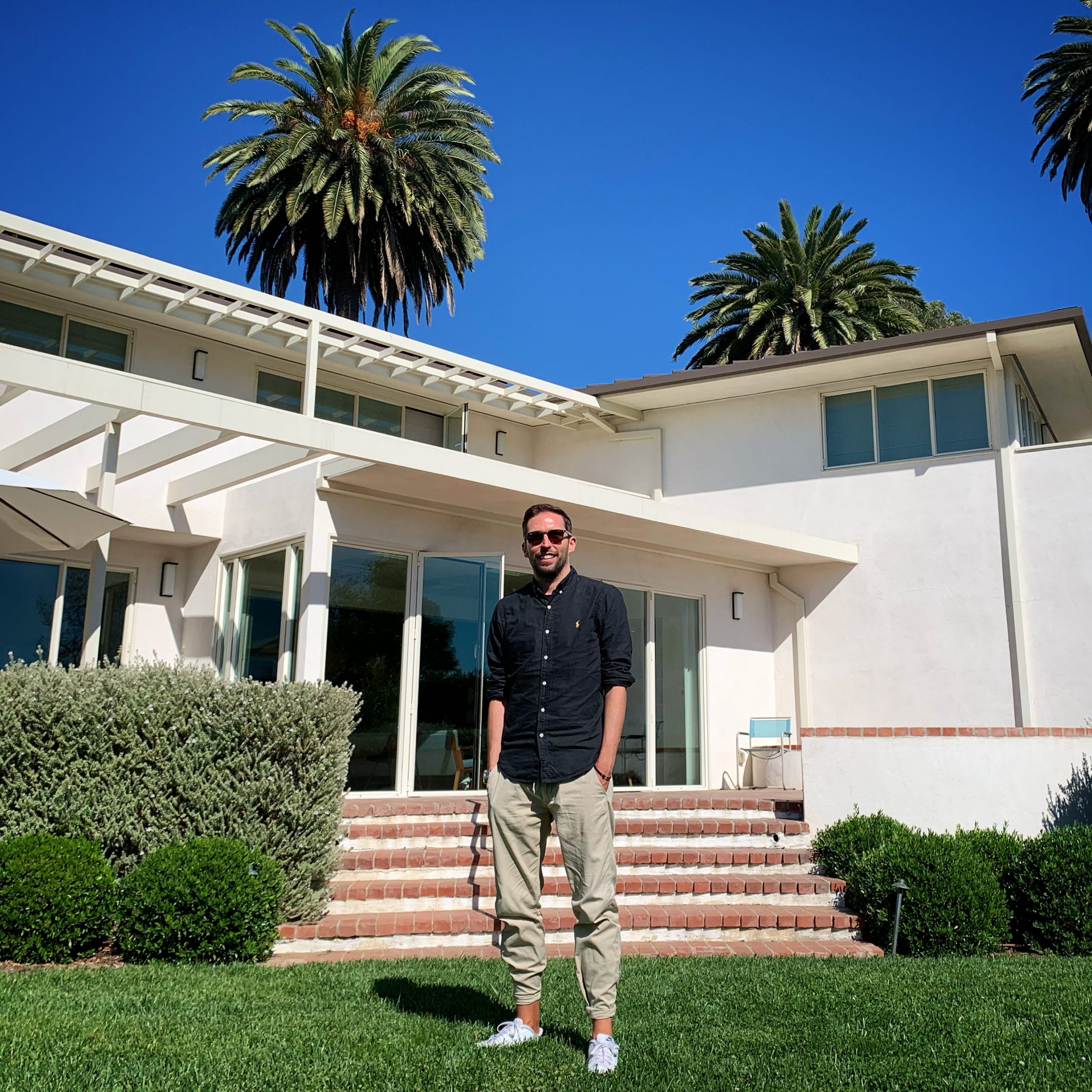 Andreas Büttner, Berlin
Andreas Büttner, Berlin
After I had my RIAS Station Week in Los Angeles last year, it was clear to me: I have to be there for the Alumni Program this year in LA. On the one hand, to see my host Frank Mottek again. On the other hand, to get to know more about this fascinating city and its people. What kind of organization manages to host meetings with the former governor of California, the homeless charity on Skid Row, the mayor of Beverly Hills, the former US ambassador to Germany and many, many TV stations in one week? I can tell you: RIAS can do it! But what really makes this alumni program is not the Los Angeles weather. It’s not just the high-level meetings with politicians and institutions. It’s above all: that you get to share these experiences with such incredibly great journalists from Germany. I am infinitely grateful for every new acquisition and draw so much strength from it for my job and my private life. I look forward to participating in future alumni programs. These programs give many journalists the opportunity to get to know these unforgettable trips and impressive people.
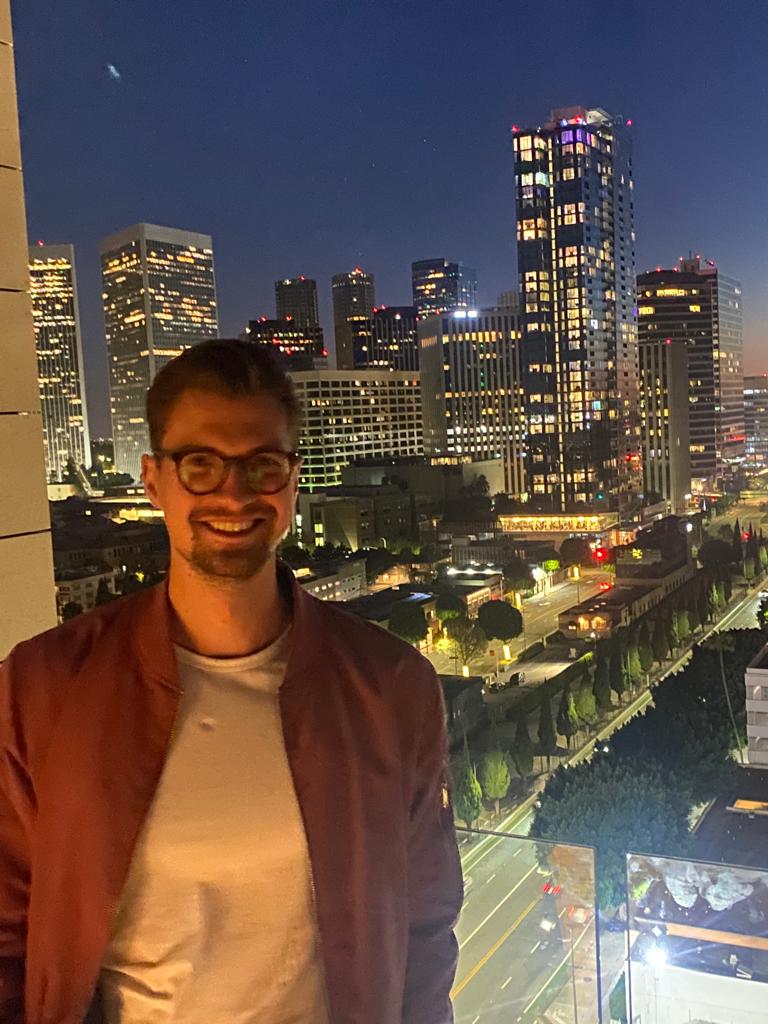 Florian Sädler, Berlin
Florian Sädler, Berlin
The idea to gather a handful of former RIAS fellows and send them to the US through an Alumni program turned out to be great. To me, one of the best things with RIAS is the people you meet, the connections you make – but since the network spreads across various cities, even countries, it is usually hard to get to know too many alumni outside of your usual circles.
Our LA trip did just that: gather a bunch of alumni that otherwise would have never come as close as we did on this one-week trip. The appointments were great too, as usual, giving valuable insights and kickstarting at least a story or two that would have remained untold if it was not for this trip.
I believe RIAS trips are fundamental. There is no better way to strengthen connections or even friendships among its fellows, as well as transatlantic understanding.
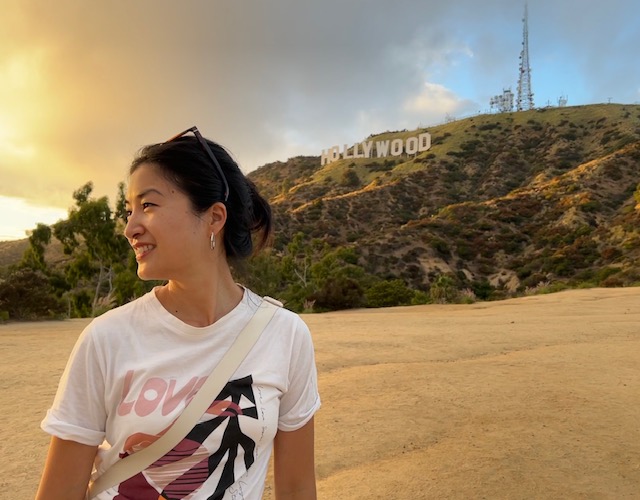 Annette Yang, Hamburg
Annette Yang, Hamburg
A place of longing. Now we are right in the middle of it: 25 journalists in Hollywood.
We experience a city that still thrives on the glamor of days gone by: peeling plaster on historic buildings, time seems to stand still at the Hollywood Museum, the posh Jonathan Club maintains the old school.
And we meet people who are looking ahead: to get the homeless off the streets, to connect the city through public transit, to lead the media industry into the future.
Beverly Hills 2023: A Cliffhanger!
Thank you RIAS for these insights.
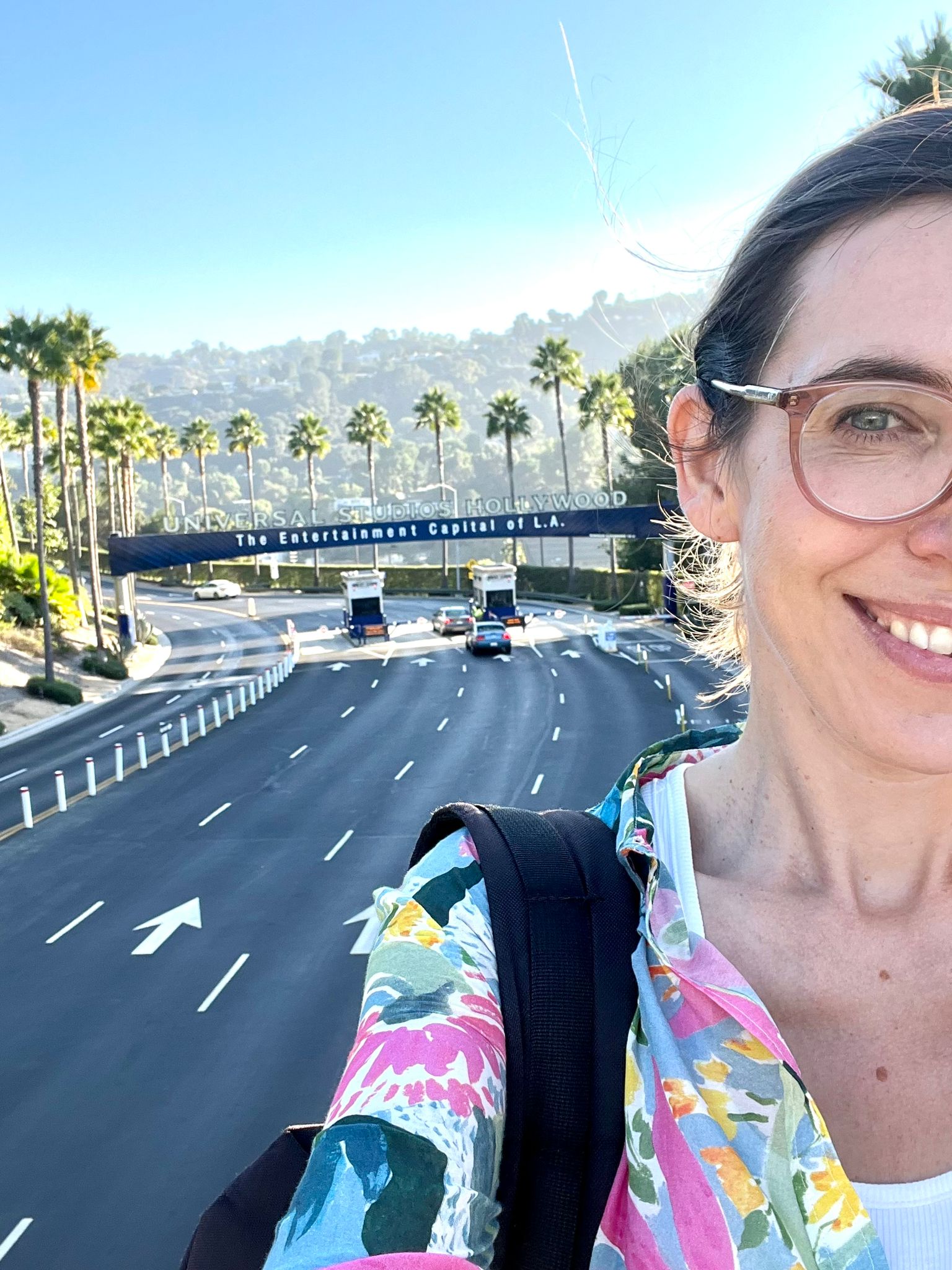 Theresa Greim, Munich
Theresa Greim, Munich
You will see the good, the bad and the ugly of Los Angeles. This promise, which we were told when we arrived, was 100% fulfilled. It started with the good: Our boutique hotel was located in Beverly Hills, surrounded by beautiful and well-maintained apartment buildings, mansions and restaurants where police officers sometimes serve pizza to the community for a charity event. Handsome and courteous, perfect for a souvenir photo. Some even went for a drink on the rooftop of the Waldorf Astoria with its fantastic views // “All I want to do is have some fun until the sun comes up on the Santa Monica Boulevard.” (Sheryl Crow) // The bad and the ugly are just a bus ride away. The extent of homelessness in LA is nowhere more apparent than on Skid Row. People living in tents on the littered, smelly sidewalks. The city still doesn’t seem to have a solution to the drugs, the violence and all the human misery. // “At least I have her love, the city, she loves it, lonely as I am, together we cry.” (Red Hot Chili Peppers) // Besides the good, the bad and the ugly, we were once again shown how incredibly valuable the program of the RIAS Commission is. It is the exclusive appointments with interesting politicians like Julian A Gold, Mayor of Beverly Hills, strategists like Garry South and Hollywood insiders like Frank Fastner. In addition, we gained a glimpse into the American media landscape, and some even made it briefly onto KTLA’s midday newscast. But above all, it’s the enriching conversations with our US colleagues. It helps to create a world of understanding. This one week with RIAS will resonate with me for a long time to come. // “I can feel the rhythm play. The whole night long. Guess I’ll stay in LA, and listen to this song.”(BBKing)
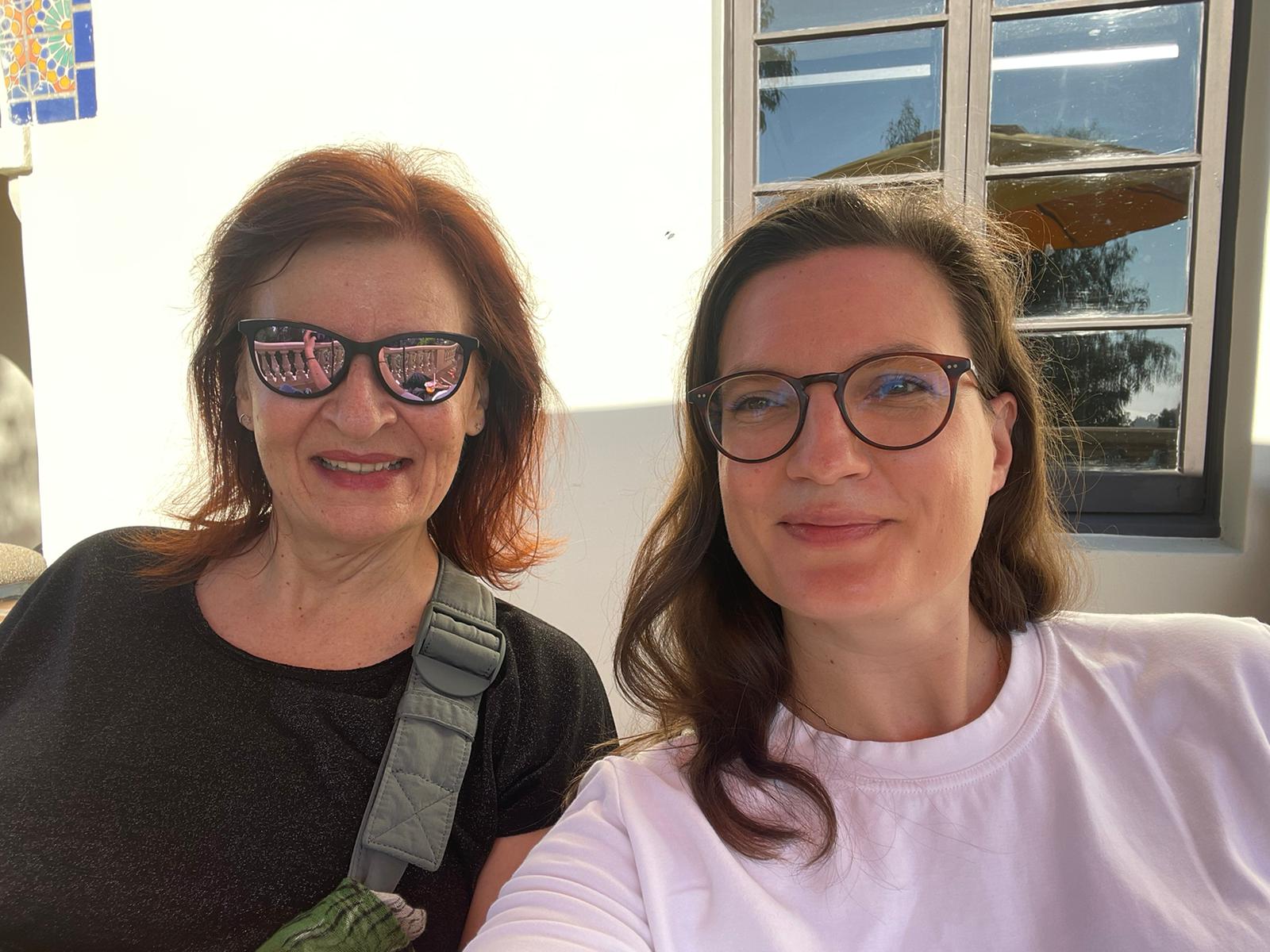 Julia Rubner, Dresden
Julia Rubner, Dresden
Bus 720 takes us from rich to poor, from Beverly Hills to Skid Row. The driver stops too late, and so a throng of German journalists, dressed conspicuously passably, wanders through the squalor. Past people who are undoubtedly not well, past tents on sidewalks, past shopping carts full of belongings. The journey in a city of extremes cannot begin in a more eye-opening way. On this day we meet Reverend Andy Bales, the head of the Union Rescue Mission, who is trying with his team to alleviate some of the suffering. Many encounters will follow on the trip. We met the mayor of Beverly Hills, police officers, political strategists and analysts, artists at the Villa Aurora and the Thomas Mann House. Colleagues open doors for us at NBC, NPR, KTLA, KABC and the ARD studio.
Thank you RIAS and our hosts for this great alumni week in LA, thank you for exciting insights into the US-American way of life and especially thank you for this unique network of colleagues. Every encounter with you has inspired me and it will remain unforgettable. See you in Berlin, Hamburg, Frankfurt, Cologne, Munich – or even in LA, who knows. And if you are in Dresden, let me know. You are very welcome. Always.
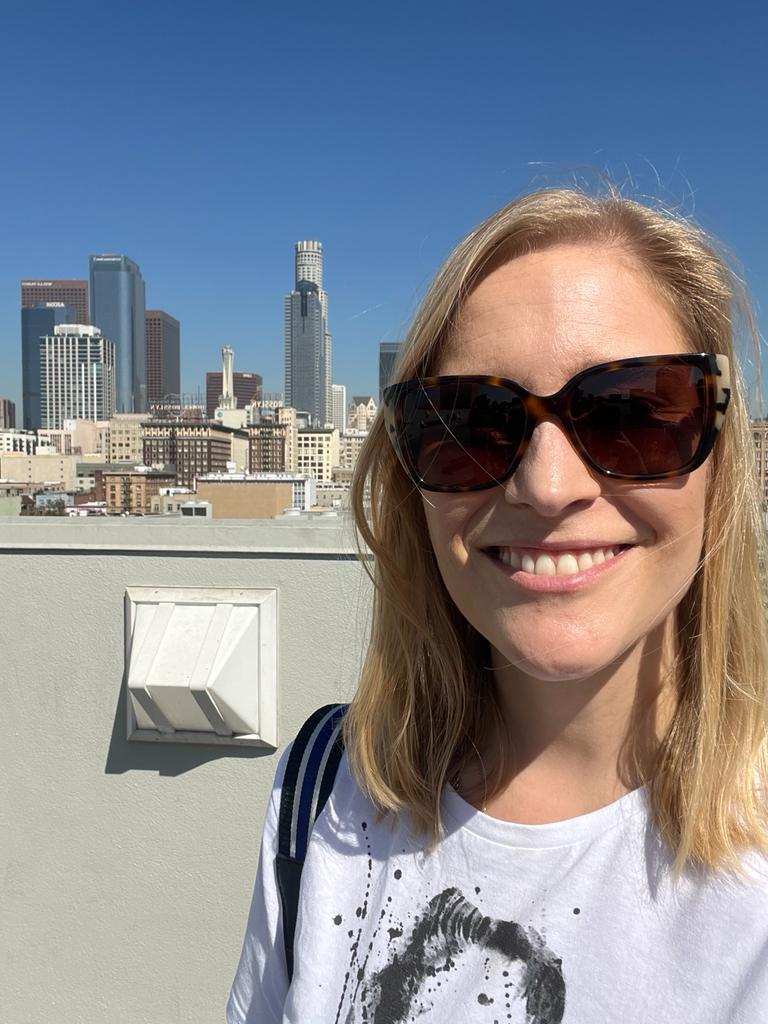 Frauke Holzmeier, Cologne
Frauke Holzmeier, Cologne
Los Angeles – what a ride! Between art, culture, politics and social differences. It’s hard to believe how many different experiences and impressions fit into just under a week. Thanks to everyone who made this trip possible!
LA is definitely a city of contrasts. 50,000 people live on the streets here. Especially on Skid Row, you can see what that means for people. It’s all the more encouraging to see the important work Union Rescue Mission is doing to pave a way back for as many people as possible.
On the other side, rich, clean Beverly Hills with the glamor of old Hollywood. The police are upgrading technologically – 2,000 cameras monitor the goings-on in the city of 35,000. Everything for safety! And you can definitely feel safe in Beverly Hills. From discussions with former US Ambassador to Germany Richard Grenell, the mayor of Beverly Hills to RTL reporter Frank Fastner – the diversity of the conversations was just great! In addition, many visits to TV stations with once again many good discussions and impressions. Thank you, RIAS! These experiences are simply priceless!
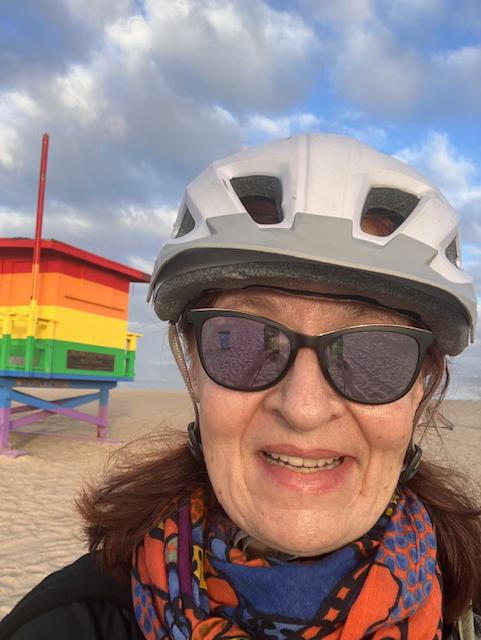 Birgit Becker, Cologne
Birgit Becker, Cologne
What impressed me most on my second RIAS trip?
The people, so different from each other, represent the enormous range in the USA: we met successful people, people on their way to success, people with hopes – and also some without any hope. In the slum Skid Row and in dignified neighborhoods in Pacific Palisades. In the luxury district of Beverly Hills and in colorful Venice on Muscle Beach.
Many of them are immigrants who have found a new home in the US. They came from Germany and many other countries, fleeing hunger, poverty and political persecution. Or they came because they want to live the American dream in America, in Hollywood. For so many, the USA was and is a place of longing and a place of refuge. But not all of them manage to gain a foothold there.
(Okay, Thomas Mann wasn’t quite a typical refugee; when he came to the US from Europe in 1940, he had already won the Nobel Prize – and he left the US again in 1952, during the McCarthy era, when he became suspected of being a dangerous leftist).
We met inspiring people who have been hosting successful morning shows or evening shows and producing news in the highly competitive US TV market for many years. People who fervently adore Trump, people who are close to Hollywood greats like Schwarzenegger, smart strategists in US politics, people who have dedicated their lives to charity without regard for their own health. Intellectuals, artists and the German Consul General, who wants to explain to those in Berlin what makes Americans on the West Coast tick. And we saw Putin, as an installation in an abandoned checkpoint in Berlin – in the Wende Museum.
Above all, we met incredibly friendly and helpful colleagues who tirelessly made sure that we RIAS people got to know good conversationalists and reflected attitudes, and always stopped at the right photo spots.
Many thanks to everyone who made this trip possible! You all provided me with lasting impressions and a deeper understanding of the USA and Angelinos.
What remains for me? The resolution to keep in touch with RIAS colleagues in Germany – and to continue to show colleagues from the USA how we work in the media in Germany. I look forward to meeting new and familiar colleagues in Cologne and wherever we meet!
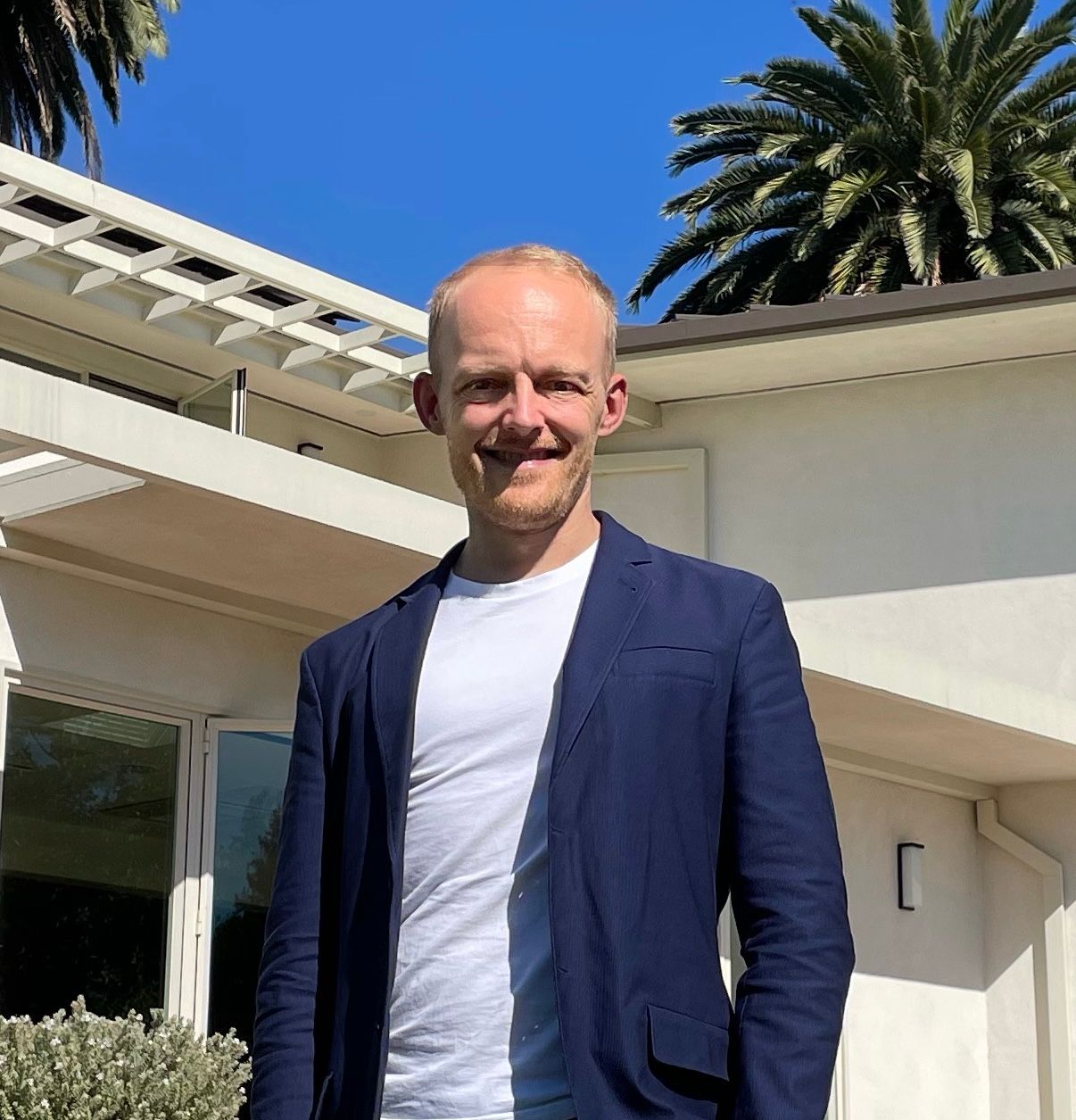 Marcel Grzyb, Cologne
Marcel Grzyb, Cologne
Los Angeles – city of angels and shattered dreams, of stars and the lost. Probably nowhere else in the Western world are glamor and bitter reality so close together. For us journalists, the RIAS program once again provided unique opportunities: To immerse ourselves in the society and politics of the US West Coast, to meet exciting interlocutors and to get to know great colleagues from the US and Germany. Valuable memories and contacts that remain.
 Lydia Leipert, Munich
Lydia Leipert, Munich
Sun, palm trees, Beverly Hills. Sure, you know the picture from various series with the unhappily rich stars. Our RIAS alumni group was able to take a deep look into the world-famous city, which is part of LA County. We were able to learn what makes people around Rodeo Drive tick not only with the help of our great host Frank Mottek, but also, for example, during an informational speed-dating session with the city’s marketing director, a senior police officer, a chamber of commerce representative and the mayor of the city himself.
With a population of about 32,000, Beverly Hills has fewer residents than my hometown of Memmingen in the Allgäu region, but of course a very different urban structure: densely paved with high-end hotels and expensive boutiques, Beverly Hills is a “luxury city” trying to reinvent itself after Covid and worldwide conflicts.
But this appointment is only a fraction of the diverse and exciting program that the German journalists were able to experience. And quite incidentally, LA captivated us with its diversity: The shear area of the super metropolis alone was impressive, but thanks to Erik Kirschbaum we didn’t shy away from public transportation – I was even able to ride a bike several times (this is the moment when the Angelenos shake their heads, because that’s completely crazy for the city’s residents).
Thank you, thank you, thank you to all the alumni who helped organize and of course to the entire team at RIAS. It was an unforgettable week.
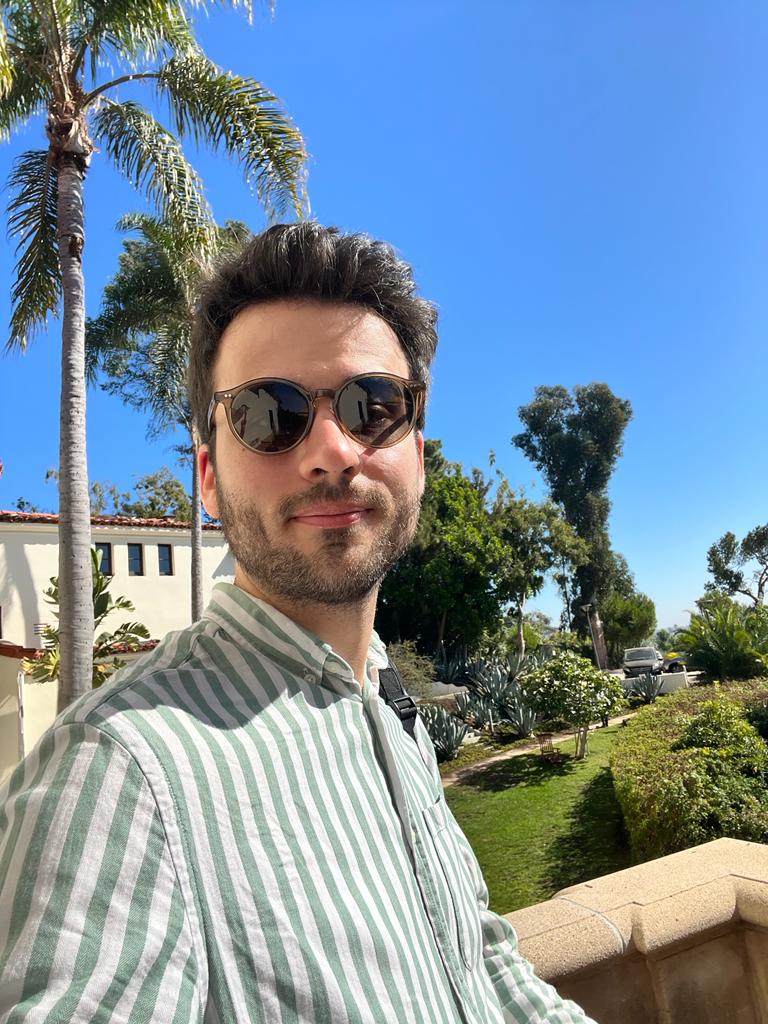 Gregor Schmalzried, Munich
Gregor Schmalzried, Munich
Los Angeles is not just known as the City of Angels, but also as the City of Dreams: the place to move to for big swings and big opportunities. On our RIAS alumni trip to Los Angeles, that promise still held true. However, these days, dreams in LA have little to do with the Hollywood glamor of old. The dreams of stardom, paparazzi frenzies and red carpets are gone, and have given way to dreams of the startup world, of the AI revolution, of luxury consumer retail and of affluent social circles, aiming to separate themselves from the struggles of US inner cities (both socially and physically). As the world has changed, so has Los Angeles. And yet, in other ways, Los Angeles hasn’t changed all that much. The city is still centered around car traffic and Downtown LA’s many beautiful outdoor spots are almost never frequented by the people who actually live or work there — instead becoming gathering spots for groups of German tourists, or at least, in our case, German journalists. Thanks to the amazing RIAS alumni program, I left Los Angeles immersed in the culture and energy of the city, still replaying fascinating conversations with businesspeople, journalists and politicians in my head. Despite LA’s shortcomings (which most residents will acknowledge frequently), you can’t help but leave the city with the feeling that the echoes of the American Dream are still alive and, somehow, anything’s possible. Although, that feeling may also be about RIAS.
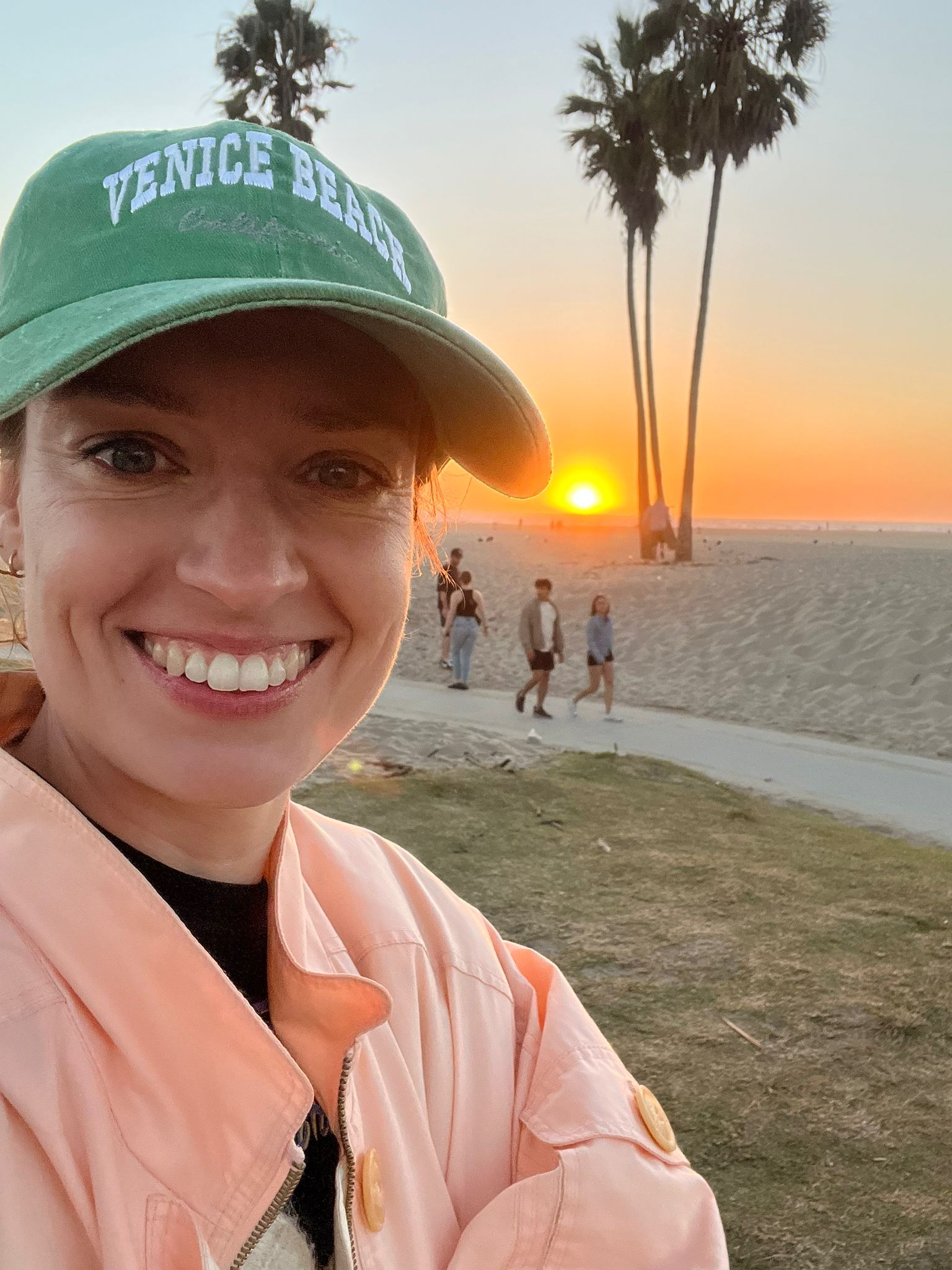 Dania Maria Hohn, Hamburg
Dania Maria Hohn, Hamburg
Until two years ago I had never been to the US. RIAS made it possible. And RIAS did it again. My second first time in the US. With the extraordinary Rias alumni program in Los Angeles – an experience I will never forget.
I’ve met people, I never would have gotten the chance to meet (from mayors to anchors to my wonderful alumni group). Saw places I never would have thought to visit (Skid Row, Clippers Game or on air at the KTLA studio). And learned about the complexity and challenges (“or opportunities”) of Los Angeles, which I have only known from movies and shows.
The very first day of RIAS in Los Angeles showed me the immense value the alumni program offers. We went to Skid Row, one of the most dangerous streets in the US. Where Rev. Andy Bales fights homelessness and drug abuse. An almost impossible fight. We got to see the streets covered with tents while driving back downtown. Where we then met entrepreneurs for lunch in the exclusive Jonathan club. Two appointments back to back, two realities, one city. Hollywood is suffering. “The glamor is done”, we hear from the inside. But if you look close enough, you can find it. Hidden almost everywhere. From the Beverly Hills Hotel to the rooftop of every building in Los Angeles. And at Venice beach surrounded by amazing people with a Margarita in hand. I am so grateful to be a RIAS alumni.
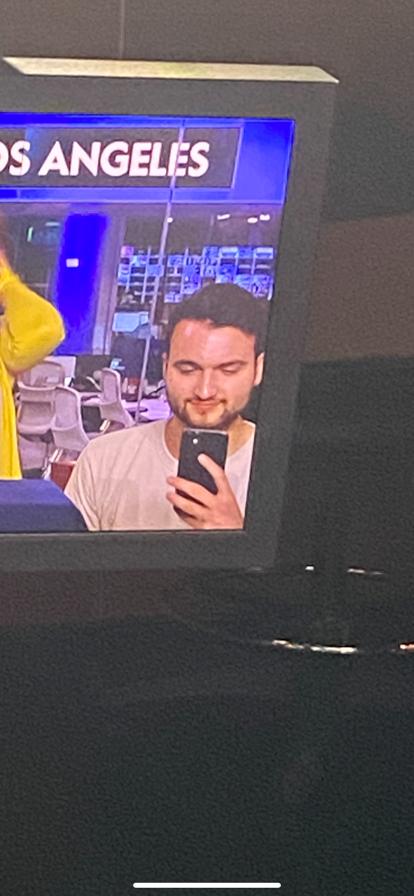 Friedrich Steffes-lay, Berlin
Friedrich Steffes-lay, Berlin
It is well known that the United States of America is a country of extremes. But no newspaper report, podcast or TV documentary can explain it to you like personal experience on the ground. Thanks to RIAS, we spoke with the mayor of Beverly Hills, encircled by the flagship stores of Louis Vuitton & Co. And saw the misery of Skid Row, where homeless people and junkies house in tent cities ignored by the city. We spoke with Democratic kingmaker Garry South and Republican Trump ultra Richard Grenell. The fact that I was able to do this just a year after the great student program with the alumni program meant a lot to me and was very valuable for my journalistic horizons. And to keep the spirit alive, RIAS alumni Florian Sädler and I flew directly from Los Angeles to Kentucky afterwards, to dive straight into the next extreme.
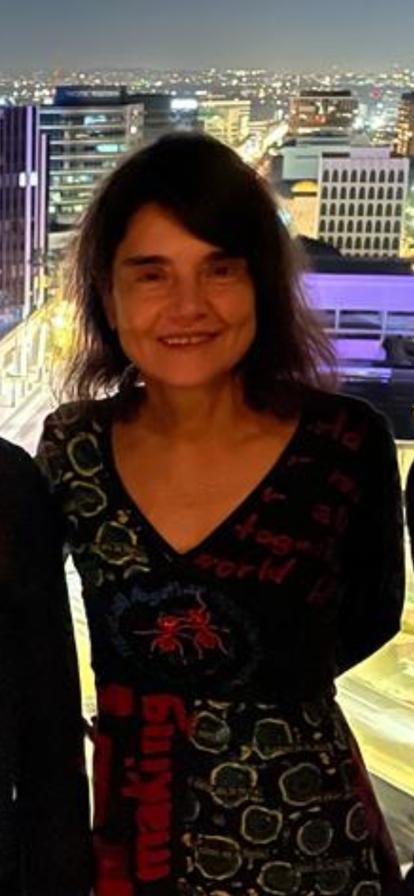 Simone de Manso, Brussels, NATO Press Officer
Simone de Manso, Brussels, NATO Press Officer
Time flew during this exciting week thanks to the efforts of our RIAS friends and the hospitality of our hosts in Los Angeles. “We are not LA”, we heard from city hall officials in our temporary home Beverly Hills, happy to highlight how lucky we were to be there. As the mayor explained, Beverly Hills is a major luxury travel destination and the planned opening of a metro station there will increase access of individuals transiting through the LA network, making the “borders more porous” which is likely to bring changes. So far Beverly Hills is nearly the only neighborhood in the LA area exempt from ‘unhoused communities’. The population is aging and there is an effort to attract young investors, however a main obstacle is affordable housing, which is a challenge elsewhere as well. The housing problem in LA is visible from downtown to side streets in Santa Monica, with people surviving in tents on the sidewalks. As part of LA’s diverse media landscape, broadcasters compete with each other also in Spanish, a first language for 20% of the city’s population. We learned more about this large audience by meeting the anchor of the 5am to 7am program of KMEX Univision, who kindly joined us in the morning just after a whole night’s work. During the week we also were warmly welcomed at the TV studios of KTLA and KABC, two leading broadcasters in LA. KTLA is located next to the Sunset Bronson studios. Where there was once a film set with horses for the production of cowboy sagas, is now a neatly decorated parking lot with blue flower shrubs. Right at the entrance, a picket line with striking actors wearing matching t-shirts looked more like a party than a protest. And yet the actors’ strike had been going on for a very long time. Rising costs in LA are driving film production to other cities, while new technologies are perceived as a threat to actors and film workers’ revenues. Silicon Beach is where new technologies are thriving and the city is reinventing itself. In Santa Monica we visited DNE, a start-up developing immersive content technology for the film industry. This was our first experience with what is called “extended reality” and felt like a step into a not too far away future. The global media landscape is changing rapidly, and LA is at the forefront. Coverage of celebrities has been a main focus of journalists in Los Angeles for decades. However, with the advent of online influencers, celebrities no longer need to give television interviews to promote their films or shows. They can address the public directly online, with meticulous full control of their image, down to the lenses employed to take their pictures. As we heard from a long-standing independent TV producer, the time for celebrities on TV is over. Overall TV viewership keeps dropping and TV streaming seems to be the only way to keep young viewers on board. Thanks to the RIAS network, We also had an insightful discussion with a high-ranking diplomat from the former US administration and a stimulating exchange with a professor whose website starts with “Dan Schnur Helps You Make Sense of a Confusing Political World”. According to him, people today are in general alienated, geo-politically frightened and exhausted; and polarization in the United States is just a symptom of this. We visited the historic Jonathan Club in downtown LA and the Wende Museum in Culver City, dedicated to the Cold War; the art deco Hollywood Museum, where Max Factor turned Marilyn Monroe into an iconic blonde, the Villa Aurora where Lion Feuchtwanger lived for over a decade and the house of Thomas Mann in Pacific Palisades, both today venues for fellowship programs for artists and scholars. This was a week where I had the great pleasure to meet fellow alumni and American hosts that I want to remain in touch with, and that brought new insights about the media industry as well as intriguing questions about what will follow. Thank you RIAS!
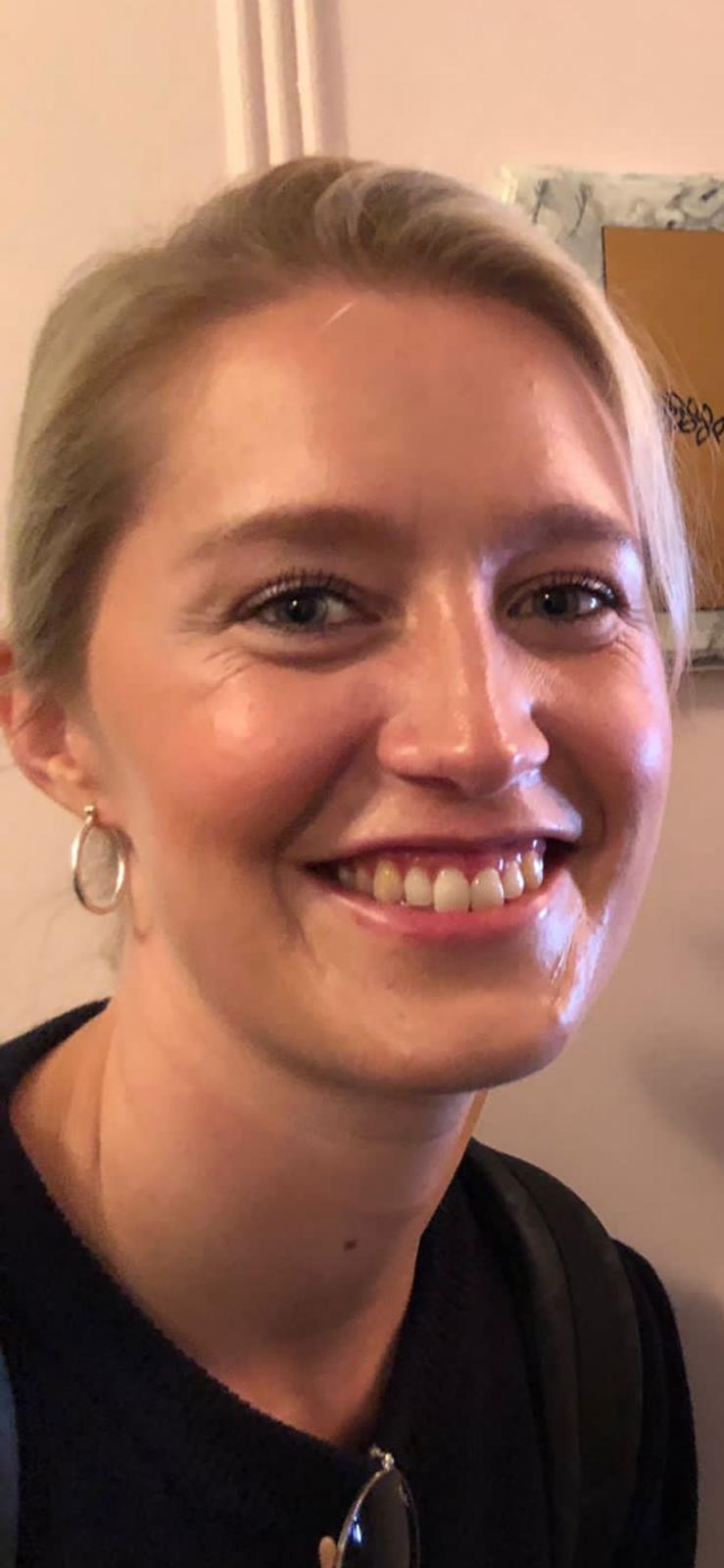 Anna-Maria Schuck, ZDF
Anna-Maria Schuck, ZDF
Los Angeles, the city of stars, of high hopes – and of shattered dreams. For me, Los Angeles is just that: a city of contrasts, reflecting the many voices of this so unequal US society like a kaleidoscope. Dazzlingly beautiful and roughly run-down. To be able to experience this contradictoriness up close in so many different encounters between Beverly Hills and Skid Row in such a short time is a real privilege. Thanks to RIAS, thanks to a wonderful group. One week in La La Land has been a blast and a real privilege!
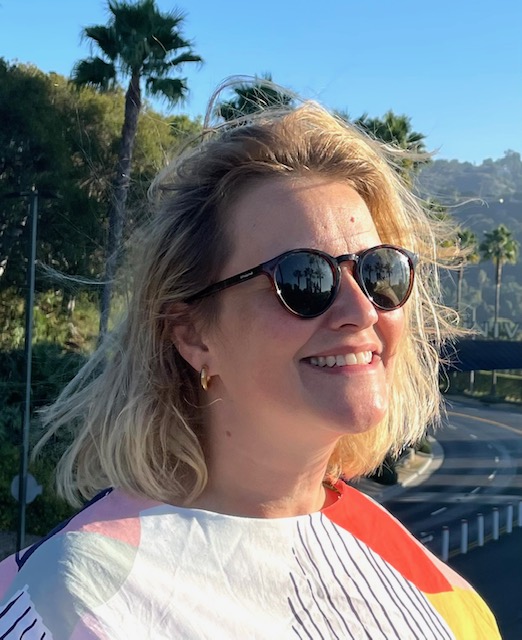 Wiebke Keuneke, Berlin
Wiebke Keuneke, Berlin
Los Angeles has everything your heart desires: sun, beach, sea, stars, big mansions and a casual vibe. Especially on the first day we experienced the contrast between wealth and poverty within a very short time. We start in Skid Row, where thousands of homeless and unfortunately very often drug addicted people live on the streets. Investors, by the way, continue to build apartments here, except that no one wants to move here because it is far too dangerous for them. For the homeless, of course, these luxury apartments are far too expensive. So what happens? The homeless people camp out with their tents on the sidewalks in front of the vacant apartments…. This is hard to understand, much like the subsequent appointment at the Jonathan Club, which is a scant two kilometers from Skid Row and whose one- time admission fee is $85,000. In short, Los Angeles has it all – just not for everyone.
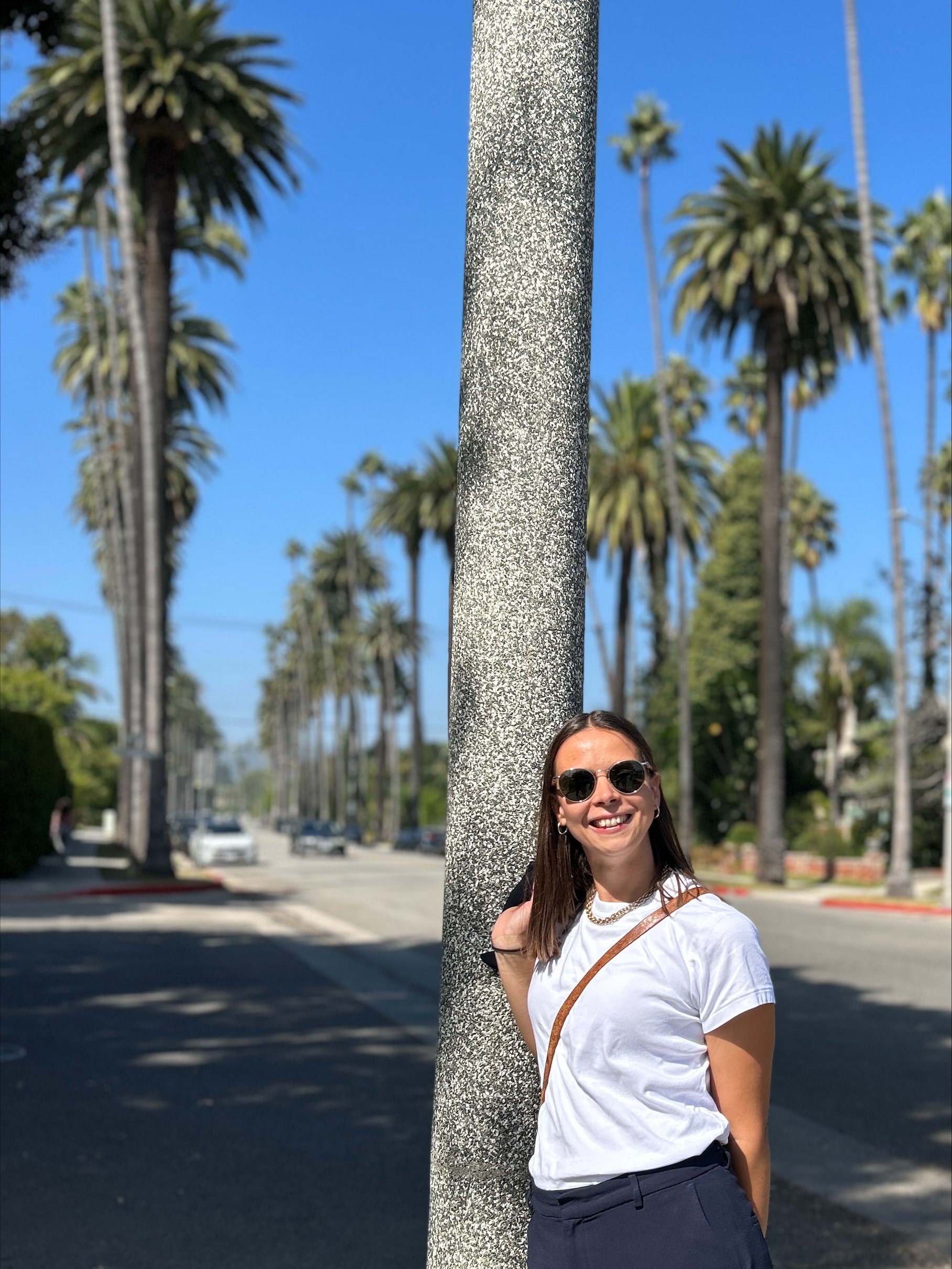 Elena Kuch, Hamburg/Berlin
Elena Kuch, Hamburg/Berlin
Los Angeles is one of those cities that you feel like you know very well. So many iconic places: The palm trees on the side of the boulevards, a pool painted by David Hockney, the Hollywood Hills, or just a hot dog stand that has been in many movies. Because of the cultural influence, the USA is close to me. But every time I’m there, I realize that I’m actually not that familiar with it. Thanks to the RIAS network, some doors have been opened for us: We met a real Beverly Hills cop. We learned that the population of Beverly Hills has grown very old, and that this city of cars doesn’t seem to have a real idea for a traffic turnaround yet. And Hollywood? “The paint is off,” said one of our conversation guests. The doors of Universal Studios were also opened for us. But inside: Standstill because of the Actor Strike. And at TV and radio stations, similar uncertainty as in our newsrooms, because fewer and fewer people are consuming broadcast media. NBC is uploading its own newscasts to YouTube, and NPR is considering whether the future lies more in linear media again, because podcasts have so much competition. In the meantime, however, they continue to produce excellent journalism. Because California is also known for being a trendsetter, I’m confident that great ideas for the future will soon be forged here again: For journalism, the city and the film industry. Many thanks to the RIAS Berlin Commission and all alumni for this trip and the insights!
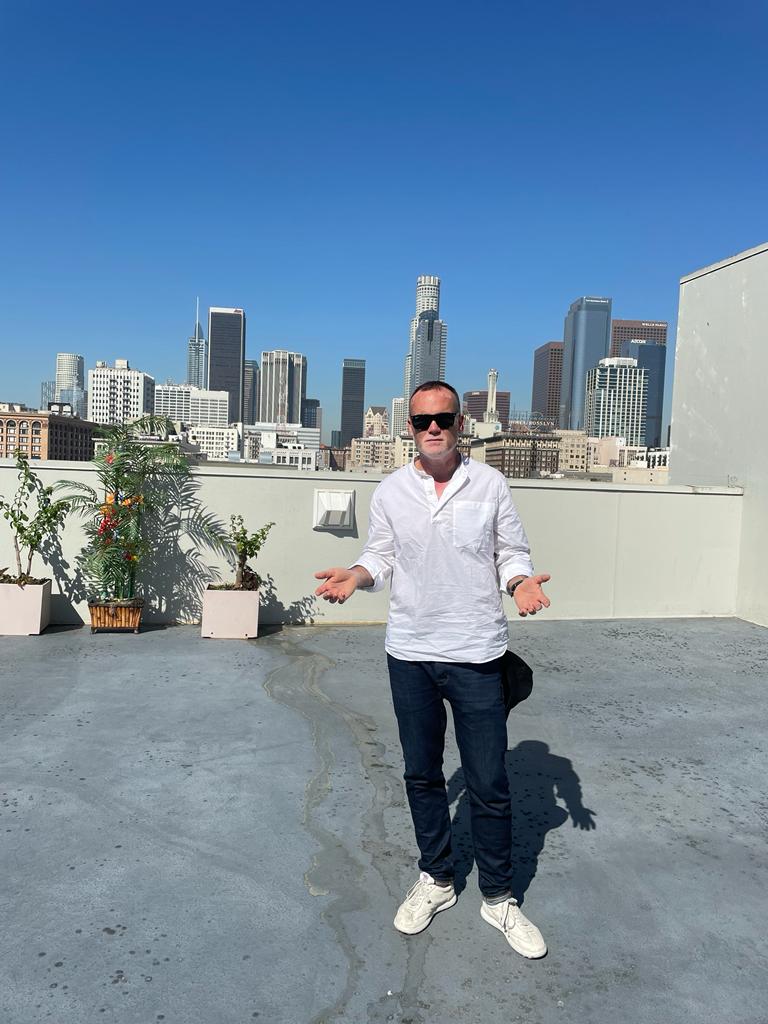 Vladimir Balzer, Berlin
Vladimir Balzer, Berlin
What an experience! A week to remember in one of the most exciting cities in the US – Los Angeles. Well, maybe more than a city, an urban landscape with hundreds of topics to cover. We focused on some of them, one being the homelessness crisis which still makes the social divide visible and the troubles to ease it. But as always in the US, when there is a problem, there is also a common sense of civil activities to face it. The visit to the Union Rescue Mission in troubled Skid Row was impressive – to see that there is help even though not yet a solution for the problem itself. Also impressive during this inspiring alumni trip – the controversial talk with former US ambassador to Germany, Rick Grenell, who took us journalists out of our comfort zone.
Not to forget the wonderful exchanges with so many talented colleagues in different newsrooms in the LA area – most of them having been RIAS fellows and now being proud alumni. It shows: the spirit of RIAS lives on and brings journalists together for many years. So thanks to the RIAS Commission and thanks to this wonderful network of RIAS fellows!
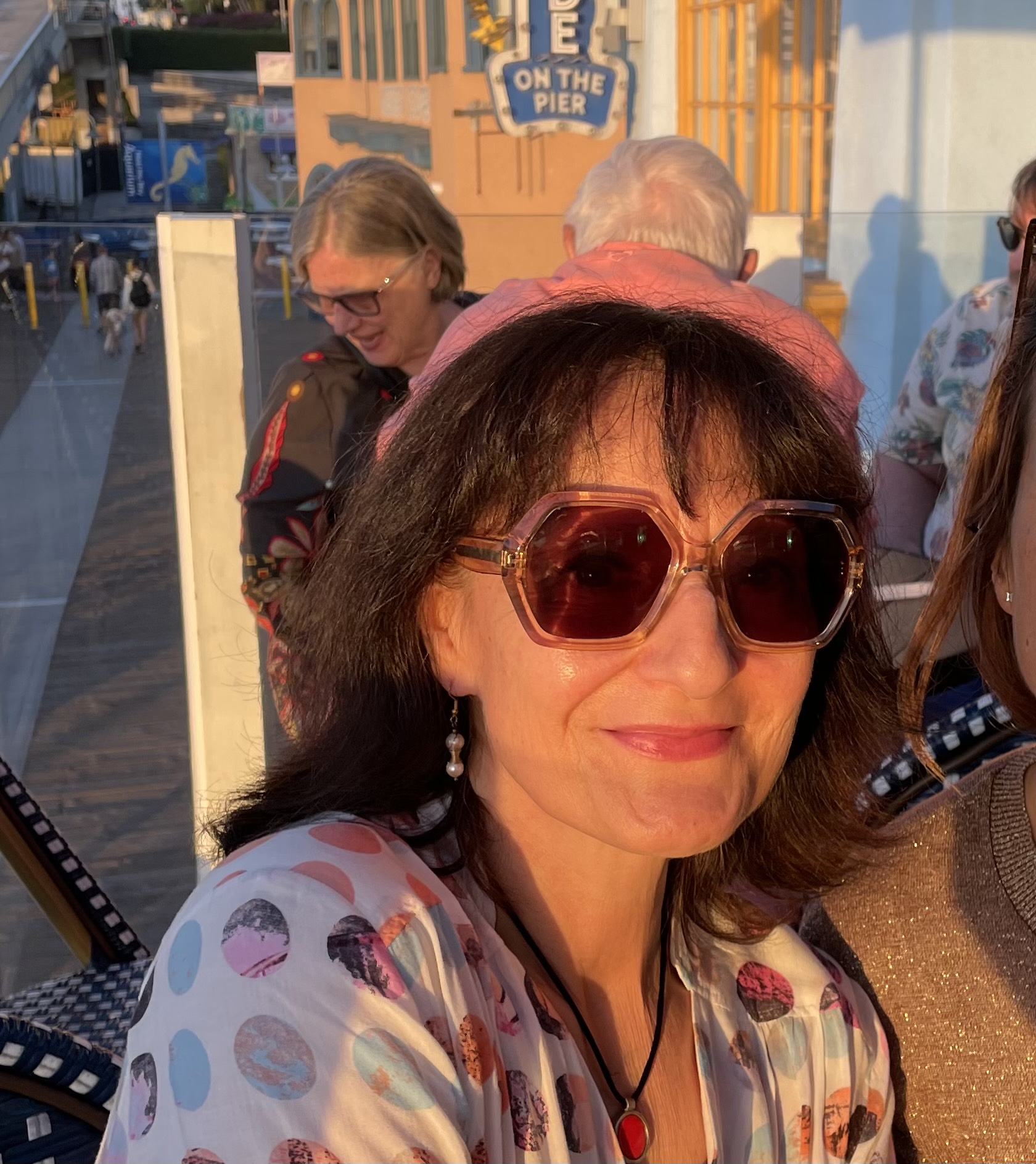 Susanne Papawassiliu, Berlin
Susanne Papawassiliu, Berlin
What a week. Who in Beverly Hills knows that there is a direct bus connection to the city’s most shameful slum? Just over an hour away: Skid Row. Here live, or vegetate about 15000. (!) People who were ultimately abandoned. If there were not institutions like the Union Rescue Mission. Our first program point intimately illustrated the extremes that also make up Los Angeles. And motivated. There are people who care. A strong start to this week, which made us realize that “low budget” will never be an advertising slogan for Beverly Hills, this island of dignified affluence.
We navigate our way from there by bus and subway to appointments that showcase a huge swath of this elusive city. TV stations presenting “news you can use ” to Latinos, good ole Hollywood Museum and the finest German support programs for artists in breathtaking scenery. We discussed (or argued) with a Republican hardliner. We sang karaoke in Koreatown. We mingled, searched for the perfect spot for a photo with the Hollywood Sign, made friends and continued to build this great network of RIAS Fellows. Our colleagues from the US planned a lot of things for us, and maybe we proved them wrong about riding the bus.
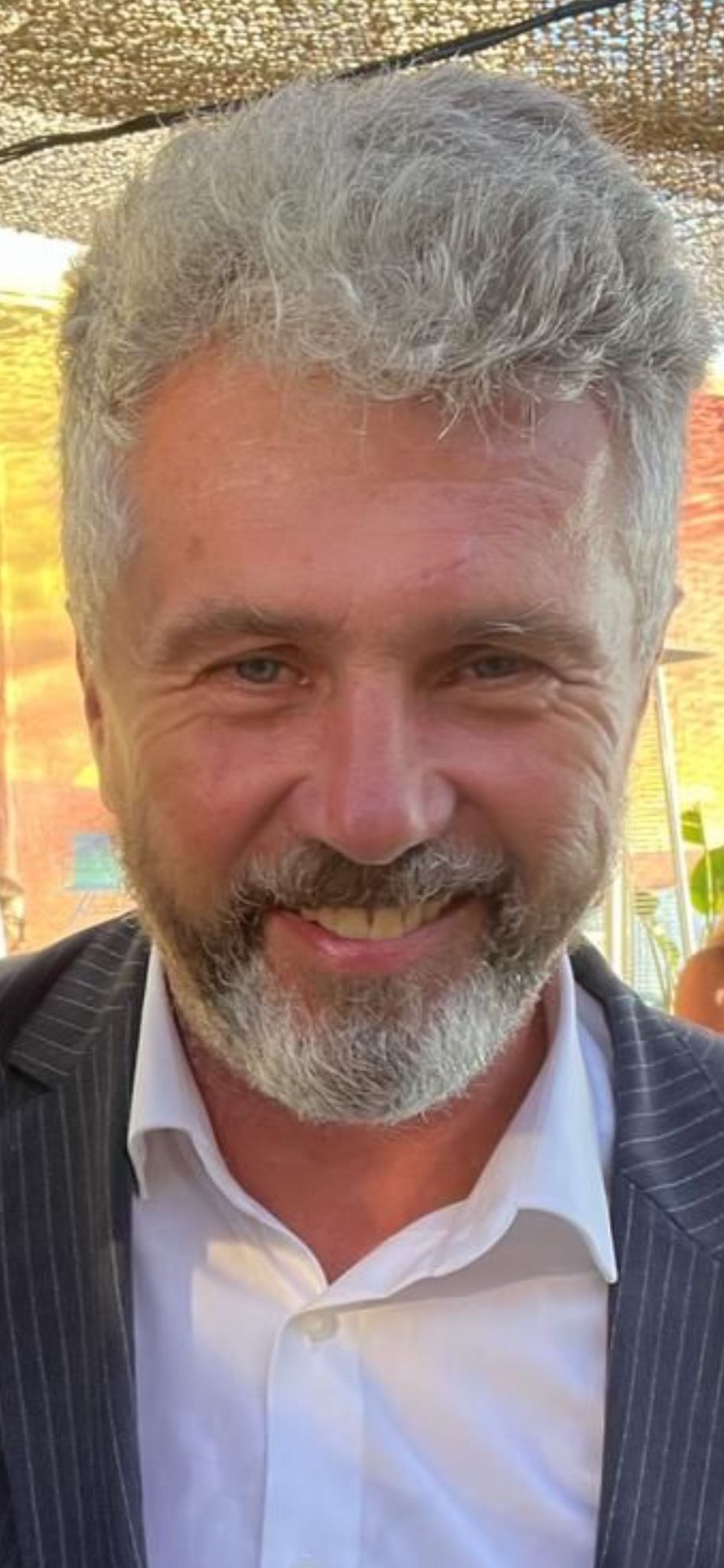 Erik Kirschbaum
Erik Kirschbaum
What an unforgettable week in Los Angeles this was with RIAS Berlin Commission alumni members and our inspiring guest speakers. We saw slices of the city that we could never have discovered in our own. We learned about each other and about ourselves. We’ve made new friendships. We’ve all connected or re-connected with RIAS, and especially with our American RIAS alumni counterparts. And we all became a bit more American for at least this week while getting around this sprawling metropolis. Thanks to all of our terrific speakers such as former Governor Pete Wilson, KMEX anchor Gabriela Teissier, KABC business editor Frank Mottek, former ambassador Richard Grenell, Consul General Andrea Sasse, Mayor Julian Gold, KABC anchor David Ono, South Korea national soccer team coach Jürgen Klinsmann, Union Mission Director Andy Bales and Jonathan Club’s Johannes Massner along with many others for their enthusiasm and taking time for RIAS. We all have an insatiable appetite to learn. I can’t thank you all enough for sharing this ride together with me in LA this week.
October 31, 2023
German journalists report on their USA RIAS experiences
A group of 13 German broadcasting journalists spent three weeks learning more about media, politics and life in the United States during a RIAS Berlin Commission Fellowship. They spent a week together in Washington DC meeting journalists, politicians, analysts and activists before traveling together to spend one week together to New York for a week of meetings there. To get a more comprehensive view of the United States, they then spent a week visiting small TV and radio stations across the country in the Midwest, South and Southwest to learn about issues in other parts of the country. Here are some of their impressions of their experiences.
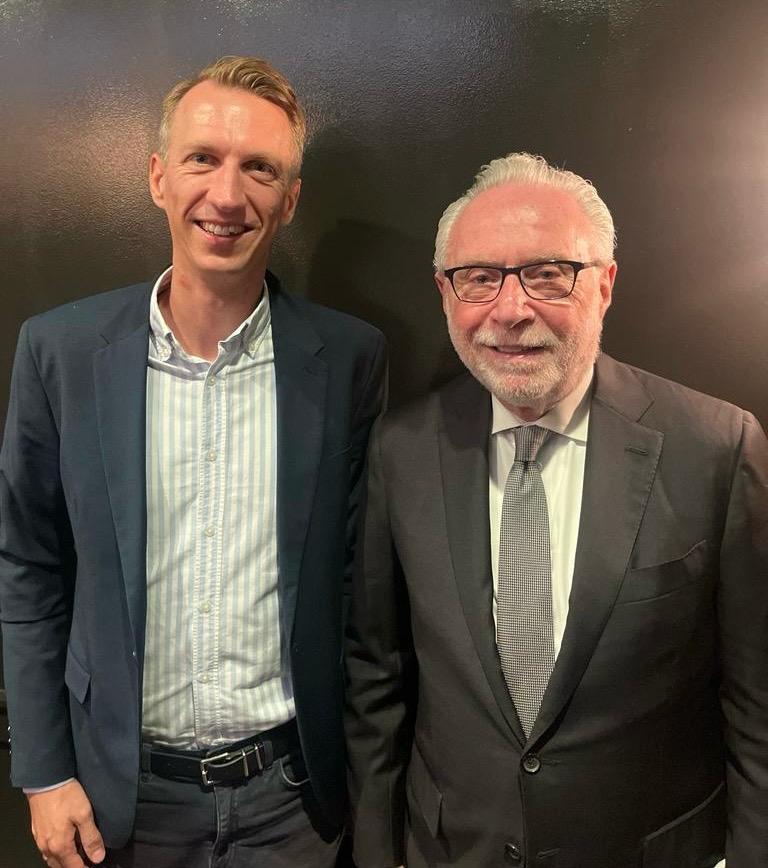
Sven Knobloch, MDR, Leipzig
So here I am, sitting in the passenger seat of a police car driving through downtown Wichita, Kansas. Officer Trevor Macy and I are heading to a Walmart to arrest a shoplifter. Crime has gone through the roof, he tells me. Because of the opioid crisis. Drug addicts steal to pay for the next hit. We take the young woman to jail, where she is processed. A depressing place. This is just one spotlight out of my three weeks with the RIAS program. We didn’t just talk about the issues the US faces at the moment – we saw them firsthand.
I had never been to the US before. For me, being in Washington DC and New York was overwhelming. And being in the Midwest after that was just such a stark contrast. I came with some images and stereotypes in my head to all those places, but most of all with questions. And they were answered, in intense discussions and meetings with journalists, politicians, activists and everyday Americans. I still have questions, but many things that puzzle Germans from time to time when they look across the Atlantic, I understand better now.
What stood out? I met Wolf Blitzer, one of my journalistic idols. What a smart, funny and dedicated man. And yet, I am not sure: was that the highlight of my trip? Or maybe to hear the story of 9/11 survivor Gordon Huie? Or to be in Congress when they ousted the Republican speaker? Or to get a shoutout by the Reverend in Abyssinian Baptist Church in Harlem? And is maybe Michael Schwanke from News 12 in Wichita my new journalistic idol, because of his friendship and his dedication to his community?
Three weeks with the RIAS program do not fit in a few paragraphs. I will be forever grateful for this experience. Special thanks go to Erik Kirschbaum, Pam Ortega and most of all to the 13 fellows from my group. You will always have a special place in my heart.
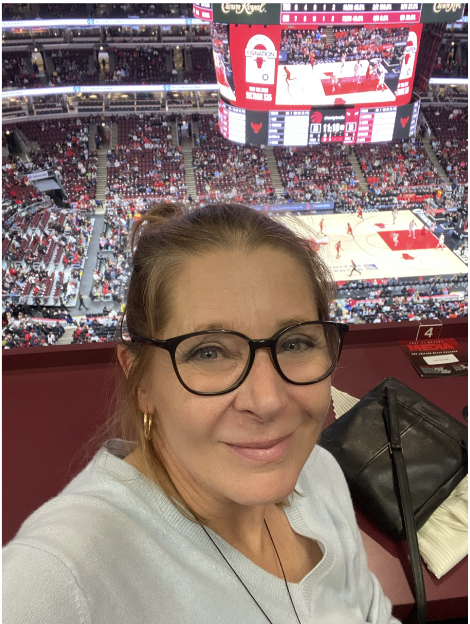 Kirsten Gerhard, ARD, Hamburg
Kirsten Gerhard, ARD, Hamburg
Wow. Yes wow, because it is hard for me to find words for what I have experienced in the past three RIAS weeks. They were weeks that I didn’t expect like this and that moved something in me. People who opened up to us and told us their stories. Be it the meeting with Gordon Huie, a “triple survivor” of 9/11, survivor, relative of a victim and first responder, who found it incredibly helpful to work through his trauma in conversation with journalists. Or the incredible Frieda Vizel, who left the ultra-Orthodox Jewish community in Williamsburg, but is an insider who was able to give us insight into this closed community. Or the visit to the Abyssinian Baptist Church in Harlem, the Reverend included us in a greeting! Or my host Erik Runge in Chicago, who was fully there for us despite a bereavement in the family. Or Ryan Burrow, who managed to bring us closer to the American media at any time of the day or night. Everywhere we were warmly welcomed and experienced people and their stories with whom we would otherwise never have come into contact. There were many more interesting key speakers during these three weeks. To mention them all, there wouldn’t be enough space. What we also saw, however, was what tasks America is facing. How torn this country is. How people are resisting South American migrants being housed in their neighborhoods. That, too, is America 2023, one year before the election. Special thanks to Erik Kirschbaum and Pam Ortega for putting together this fascinating program.
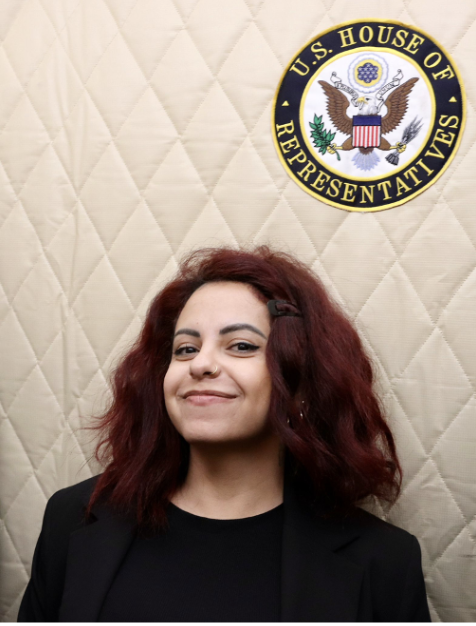 Hiba Obaid, Deutschlandfunk Kultur, Berlin
Hiba Obaid, Deutschlandfunk Kultur, Berlin
I’m in the car, heading to Dallas airport. It’s 7:30 in the morning. The Texan sunrise paints the sky as I think back on the last three weeks, which felt like three whole years. So many memories flood my mind, filled with emotions, vivid scenes, heart-to-heart talks, and countless steps taken.
This was my first time in the United States, and everything was new and exciting. I remember the first moment I walked the streets of New York; it felt like stepping into a real-life wonderland. The city was immense, bursting with colors, and everyone was in a hurry.
As the days passed, I learned the American way of beginning conversations with, “How are you?” In Germany, ordering a coffee didn’t involve such a question. But here, it was a part of their culture, a little greeting. I can still recall the puzzled look on the waiter’s face when I replied with just “Okay.” They expected the response, “I’m really fine. How are you?”
After exploring Washington and New York for two weeks, I made my way to Dallas, Texas. There, I saw a genuine cowboy, just like in the movies. I watched people eagerly awaiting the bull shows with their magnificent longhorns in Fort Worth. I savored tacos, enjoyed German beer in a cozy saloon, and was touched by the beauty of the sunrise and sunset from the house’s window.
These memories are more precious to me than words can express. I’m immensely grateful to all the people who made this experience a part of my life. I can’t wait to share these tales with my future grandchildren, as they hold a special place in my heart.
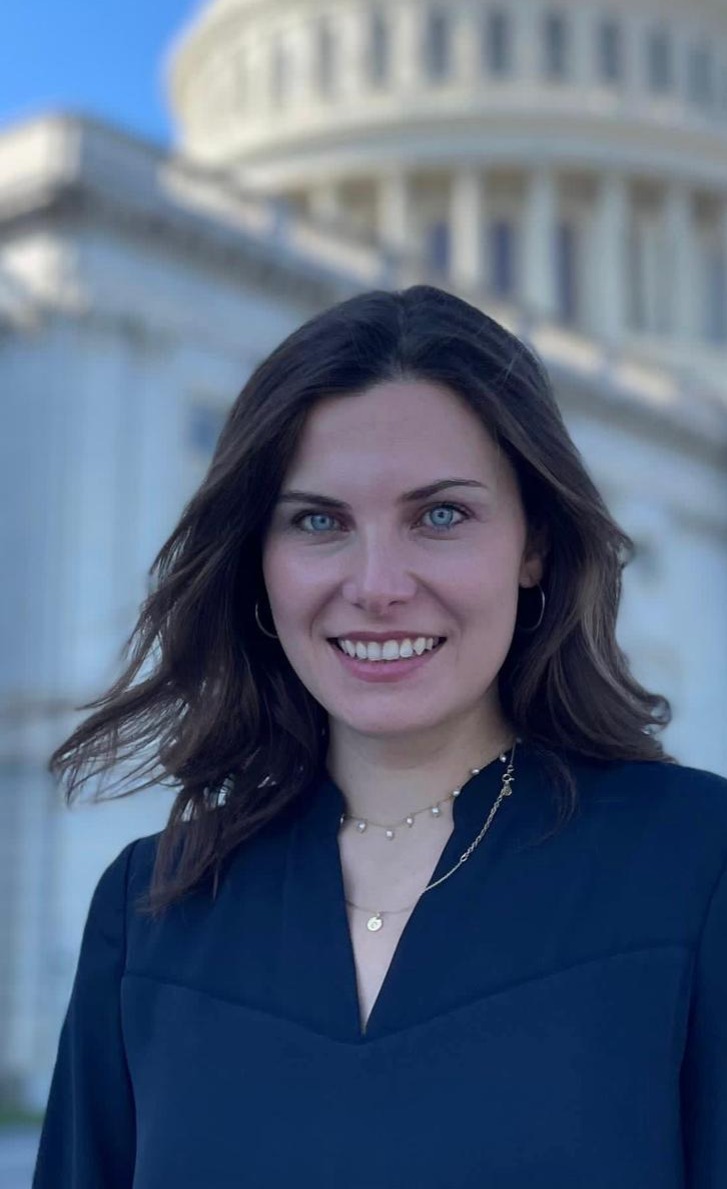 Clara Pfeffer, RTL/ntv, Berlin
Clara Pfeffer, RTL/ntv, Berlin
“Please sit down,” the man says to me. That’s all he can say in German, but he speaks Yiddish and somehow we can communicate with that. He was born in Germany, but at the age of 5 his family fled to New York to escape the Nazis. Today he is happy to meet a German – in a kosher restaurant in the middle of Williamsburg.
For me, the district was initially the opposite of what the USA is all about. Rules govern every aspect of life here, no matter how small. Who is allowed to cross the street, how, when and where, on which days which clothes are worn and which food may be prepared and how – for all this there are the most precise instructions in the Hasidic community. For women, everything revolves around marriage and household chores. The men devote their lives to studying Torah. The average family here has eight children. The playgrounds are full, almost every woman pushes at least one stroller. And at some point, all the children go to school, boys and girls separately, each on specially designated school buses. Never before have I seen so many big yellow school buses. What at first glance looks like a monotonous and always the same life with no room for self-realization, turns out to be quite diverse and colorful at second glance. The way the women wear their wigs varies, and by looking at the men’s hats, our guide can immediately tell which group they belong to and whether they are very strict about the rules. Here, too, there is room for individuality. And it is important to Frieda Vizel to show this. This world was too small for her, and she left the community in her mid-twenties. She does not at all gloss over how difficult that was and how restrictive life is in the Hasidic community. But she also draws attention to the great food, the cohesion, the trust in the community. People here write the access code to their front door in Yiddish on their doorbell signs. In the case of anti-Semitic incidents, which have become increasingly frequent lately, the community sticks together and offers support. Frieda Vizel wants to break down prejudices about the community. Above all, she says, it’s about respect for different ways of life. And that, in turn, is for me exactly what the USA is all about. These three weeks have clearly shown me how incredibly diverse this country is. There are worlds between Williamsburg and Broadway – and half a continent between Broadway and the Spanish church in East Texas.
Station Week in the small Texas town of Tyler is another piece of the puzzle for me in trying to better understand this country. There are many rules here as well: Prayer is said before every official event. The Bible is still above the Constitution for many here. Almost everyone owns a gun, the death penalty is widely supported, and many wish the borders were better protected. At the same time, I have rarely received such a warm and friendly welcome as I have here. Latinos and Americans live peacefully side by side – almost half of the residents speak Spanish as their first native language.
Again and again in our conversations we talked about the increasing polarization in America. After the three-week program, however, I was more fascinated by what holds this country together. To represent such different ways of life and thinking in a single political system is an incredible feat. Especially when it’s always about protecting the individuality of the individual.
Not everywhere is successful. The African-American community is still structurally discriminated against. If you don’t have money, you don’t have security. Journalists here are afraid to express their own opinions. At the same time, in many places the country is still fulfilling its promise to give every idea, no matter how crazy, a chance. As a journalist, I have learned once again how important direct exchange is. How much more we see and learn when we can talk directly to each other. I walked out of every single conversation of the trip with many answers, but with even more questions. And most importantly, with a great desire to pursue these questions further. I am incredibly grateful to have had this experience. It has changed the way I look at the United States. Every single conversation has helped me to break down prejudices and question assumptions. I was also impressed by the way our speakers approached things directly and with a large portion of optimism. Unpleasant questions were not avoided, criticism was gladly accepted. Hopefully, we can all take some of this back to Germany. And I am sure that all this will shape my reporting for a long time. And not just when it comes to the USA.
The man who once fled the Nazis and is now happy to show me, a German, his culture and his “way of life” – has shown me that it is worthwhile to continue to believe in the idea of the United States.
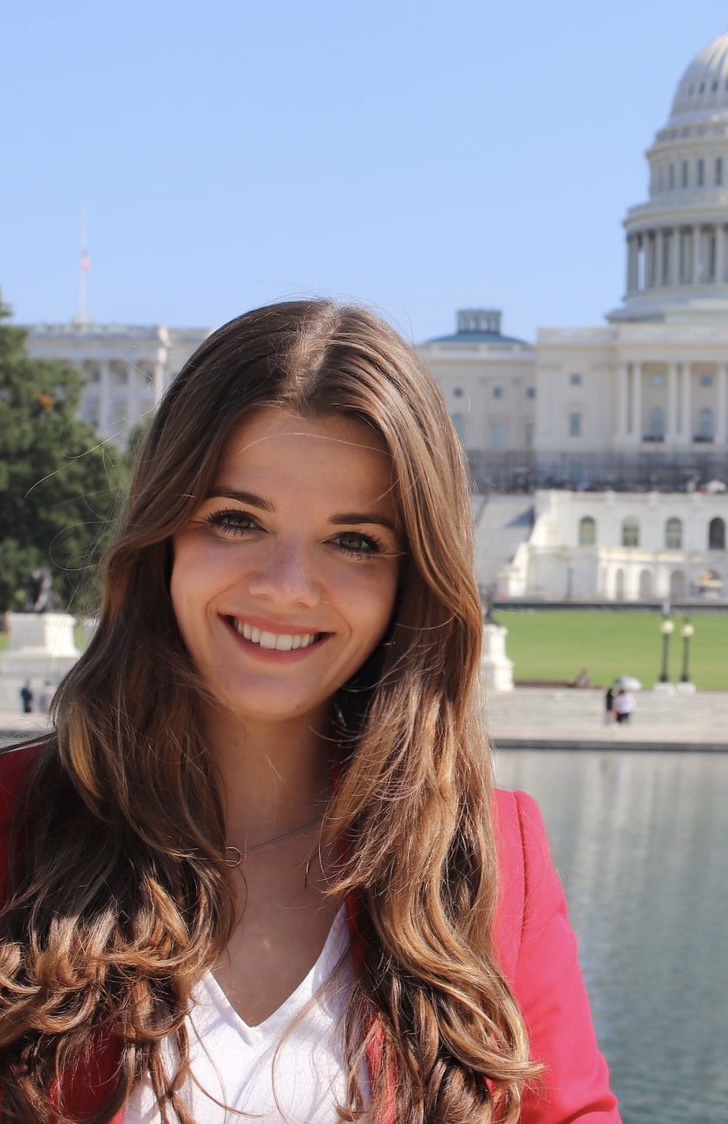 Julia Brestrich ARD, BR, Munich
Julia Brestrich ARD, BR, Munich
I scroll through my phone, picture by picture, and catch myself smiling. 2,327 pictures and each of them tells a story. Three weeks that have not only changed my journalistic view of the United States, but above all have moved me personally. In colorful suits, we stood in front of the Capitol, the heart of the United States. Two pictures before I find a selfie, taken with Wolf Blitzer at breakfast together and a few pictures further the latest NASA project… oh and a video of the karaoke evening. What have we experienced please everything!
Each picture shows a piece of the puzzle that is gradually putting together my picture of the USA. As I watch, I transport myself back to glittering skyscrapers in New York, feel goosebumps as I see 9/11 survivor Gordon Huie on the screen, taste the Jewish bread “Challah” in Williamsburg, and hum songs from the musical “Chicago” on Broadway in my head.
And then this city also appears in the pictures. A similar picture as New York and yet completely different. On the pictures in Chicago our hosts, who welcomed us with open arms and took us into their city, into their life here. And they are proud of their city – you can feel that. Especially at sports, at the Chicago Bulls basketball game.
It ends with my favorite picture – our group. We are beaming into the camera, holding our certificates, soaked in experiences that RIAS has made possible for us. We were strangers at first and have now become friends. Many of the 2,327 pictures show us together and every time I show them to someone, the pictures will always tell their story, relive this journey for which I am simply grateful with all my heart. Thank you thank you to RIAS, to Erik and Pam and the entire team.
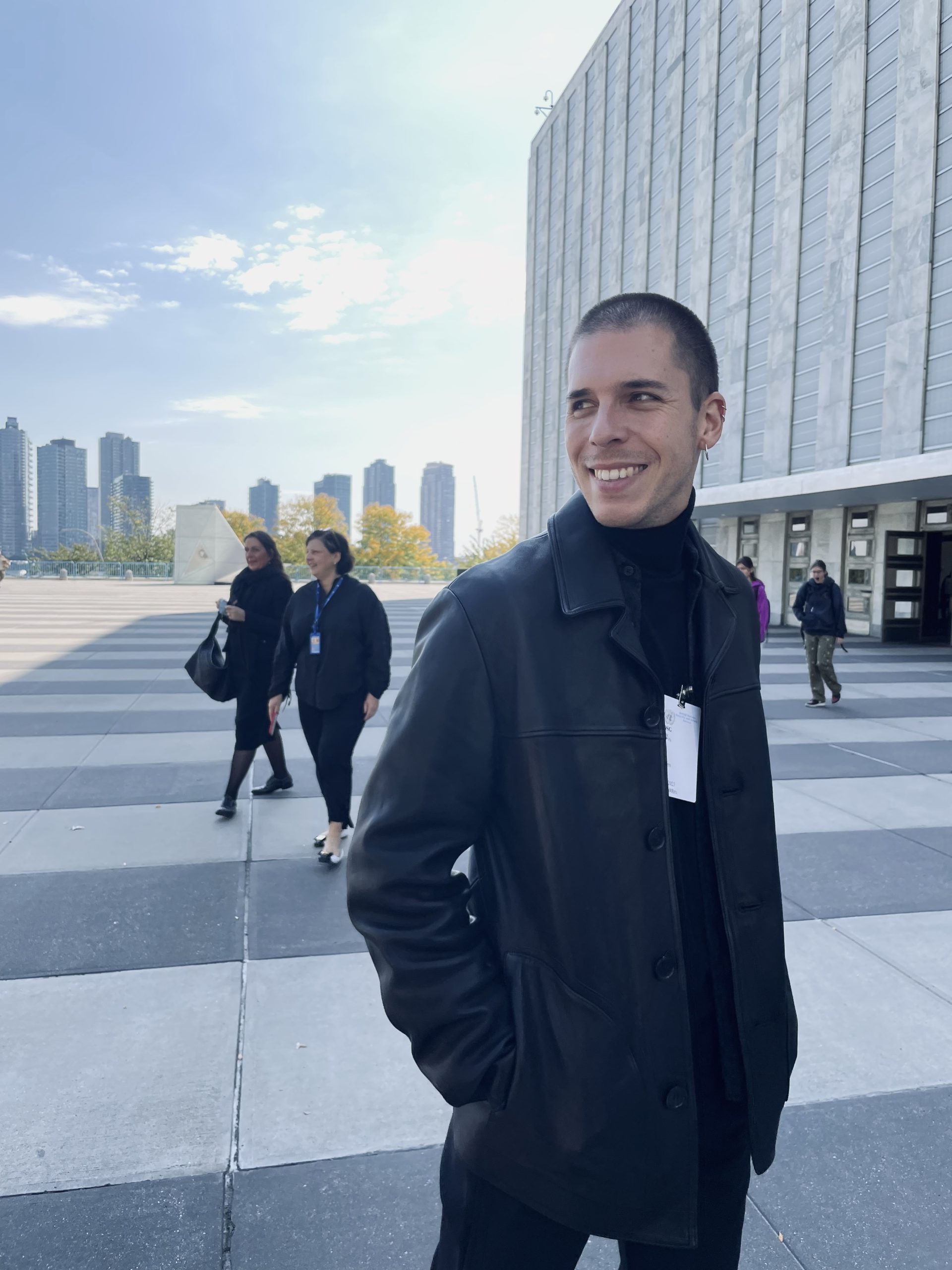 Timm Giesbers, ARD, funk, Deutschlandradio, Cologne
Timm Giesbers, ARD, funk, Deutschlandradio, Cologne
I really didn’t expect a day when a meeting with Wolf Blitzer wasn’t the undisputed highlight. This small, suit-wearing man looks almost shyly into the room, obviously wondering whether we’re all really waiting for him, and then he delivers a fireworks display of anecdotes. He’s been everywhere he’s felt, inaugurating Obama as president and getting Willy Brandt back on his feet.
The same guy who in 2020 drove my pulse to the brink of cardiac arrest with his key race alerts entertains us with links and is then also available for selfies.
And all this just so that a small, expensively coiffed lady with South American roots and a pearl necklace will steal the show of the day from him later in the day. Olga Ramirez-Kornacki is the media coordinator in the House of Representatives and desperately needs her own documentary. As she leads us through the Capitol, making sure no one gets lost in the many aisles, we understand that neither Biden, nor Pelosi, nor any GOP Speaker (who had just been lost that same week) has ever been Chief:in here. For the last few decades, the Queen’s name wasn’t Elizabeth either, it was Olga. She really had us all wrapped around her finger, sorry Wolf!
Just one unforgettable day in three weeks, in which really every single day was full of experiences and encounters that you just can’t forget. Three weeks that felt like three months in the best sense and three hours at the same time. And just like that I mentioned it: I was in St. Louis, Missouri during my station week – more contrast to high-button DC and eternally-cool New York, it can hardly exist. But there’s one thing that’s really hot here: “Midwestern nice”, the northern counterpart to southern hospitality.
I could go on like this for pages, but I would like to end with this:
I am immensely grateful to have been part of such a diverse, eternally good-humored and insightful group. I overturned prejudices, learned so many new things, saw places and met people I would never have come into contact with otherwise, and really experienced the time of my life. In the end, I was just as sad looking out the plane window on the way home as I was at the end of my study abroad in Sweden. This is especially due to the great people with whom I went on this trip and whom I missed again just one day after the end. My RIAS group, that was really the coolest of all!
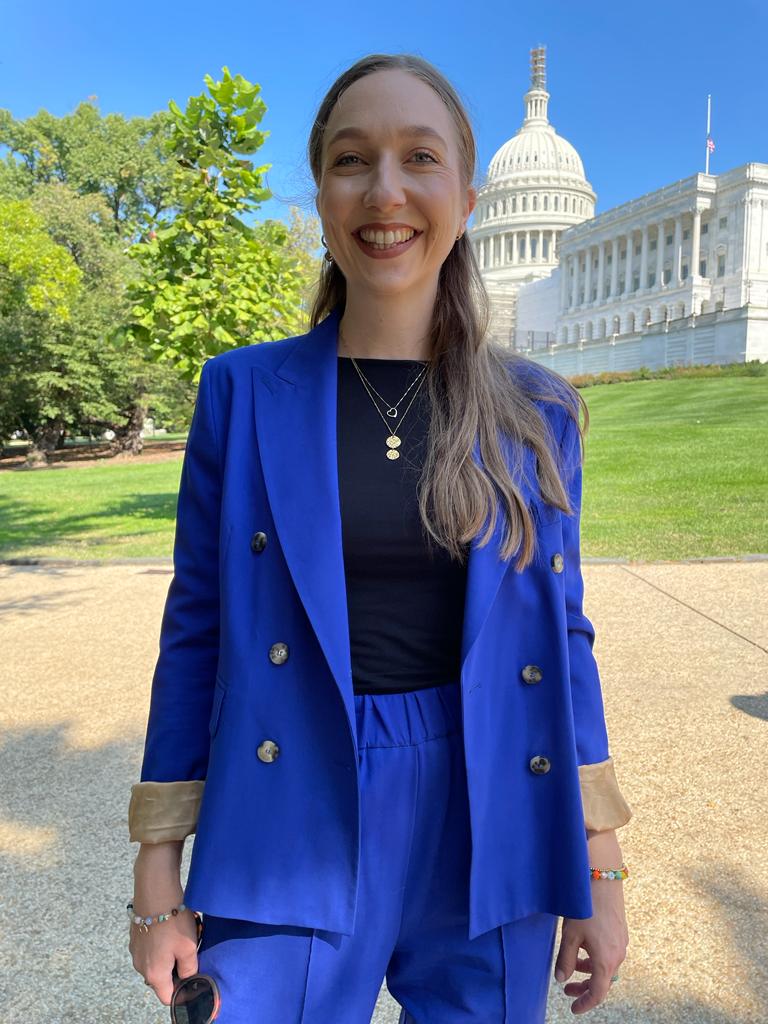 Laura Wassermann, RTL, Cologne
Laura Wassermann, RTL, Cologne
What an honor: That’s the best way to sum up this trip. We visited the White House, Capitol Hill, the Washington Post. We went to Bloomberg and the New York Times – that was pretty exciting. But by far the most enriching thing: the people we got to meet. For example, Gordon Huie, 9/11 survivor & helper, who lost his sister that day. An impressive man with a moving story. We met some great journalists (American and German) who told us about their everyday life and their work in the USA.
All these conversations – eg with Wolf Blitzer, Frieda Vizel, Michael Louis Gargiulo or Chivona Newsome – broadened my horizon and I am very, very grateful for that.
What was also cool: meeting Charlie Pellett, whose voice is legendary in the New York Subway – for the words: “Stand clear of the closing doors please”. Thanks for everything Erik, Pam, Brandon, Adam & Michael! It was an unforgettable experience.
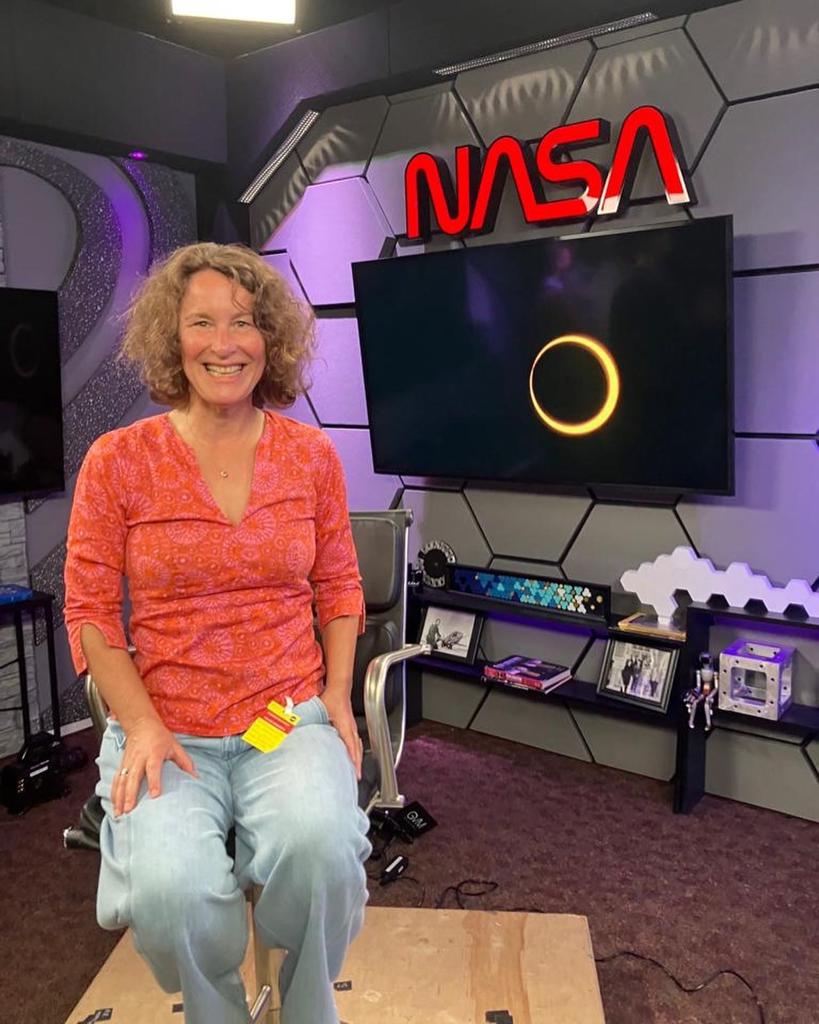 Constanze Semidei, NDR, Hamburg
Constanze Semidei, NDR, Hamburg
When Gordon Huie said he was so happy to talk to us journalists, because we met his story with questions instead of consternation, I could no longer hold back the tears – as if to prove the opposite. I was simply overwhelmed by this man, who is at the same time a 9/11 survivor, a relative of a victim and a first responder, and in whose fate the whole monstrosity of the terrorist attacks is reflected. RIAS brought us into contact with the most incredible people during the three weeks of our trip. Everyone, everyone, had story(s) to tell and answered with patience all our thousands of questions: Olga Ramirez Kornacki, media coordinator at the House of Representatives in Washington, Michael Gargiulo, WNBC anchor, UN spokesman Farhan Haq, the engineers and scientists at NASA Goddard Space Center and many many guest speakers more. The Station Week in St. Louis, Missouri, at the public radio STLPR brought again completely new impressions of the USA, the media, the people. And also there: hosts who took care of their shadowing protégés with great dedication. My week there ended with a listening party: St.Louis Public Radio had hosted the silver trailer of Storycorps for the past weeks. This nationwide long-term project records the private stories of ordinary Americans. All archived at the Library of Congress, some broadcast on the radio. A vast oral history. Those who want to participate, usually in pairs, sit in the trailer and tell their stories. And I, I could listen forever. Three weeks of RIAS Berlin programming were just: wow. So was our group, an unbelievably harmonious bunch of individualists in an eternally good mood. We might not have had a lot of “time to decompress” but maybe the time of our lives! Thank you, Erik and Pam for making it happen.
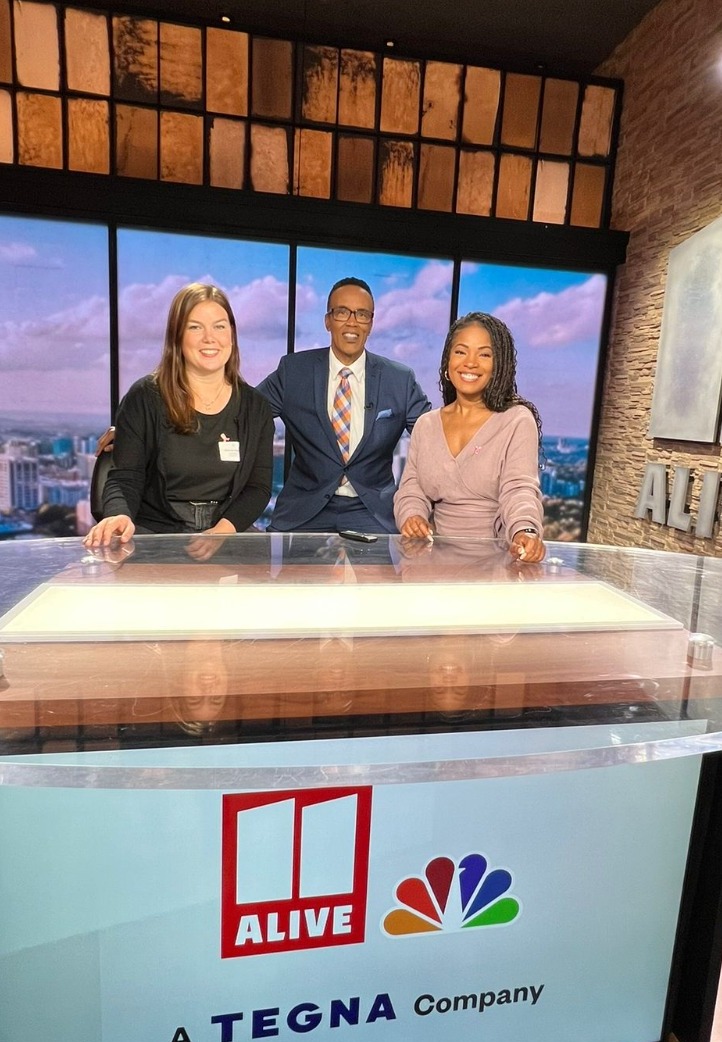 Franziska Venjakob, ntv, Cologne
Franziska Venjakob, ntv, Cologne
We are all humans,” said the woman in the kosher restaurant in Williamsburg. Quite curious, she asked us about our experiences touring with Frieda Vizel about the Hasidic community. We shared that we learned a lot about the importance of family and community, talked about commonalities, but also of our newly learned knowledge about their traditions and rules. After we made an effort during the tour not to attract unnecessary attention and not to disturb the life of the local people, it was nice to get into a conversation with them and to realize that there is interest on both sides.
I got to experience this feeling again in Atlanta during my station week. My host Faith Jessie took me to a homecoming party at Clark Atlanta University, the first historically Black university in the southern US, where her mother had studied, and to a very special church service on the city’s north side that felt more like a concert to me because of the live music and atmosphere. I was the only white person at both events, but felt very welcomed thanks to the many nice and interesting people.
These are just two highlights of so many incredibly exciting days. I am incredibly grateful for the experiences of the last few weeks and the experiences that RIAS has made possible. It is so important as a journalist to be able to interact with so many different people, to listen and ask questions. Every single conversation in the US has helped me understand the country, the politics and the people more.
Thank you Erik and Pam for organizing this, thank you to my great group and thank you to all the people I had the chance to meet and who made it possible for me to have such a great time.
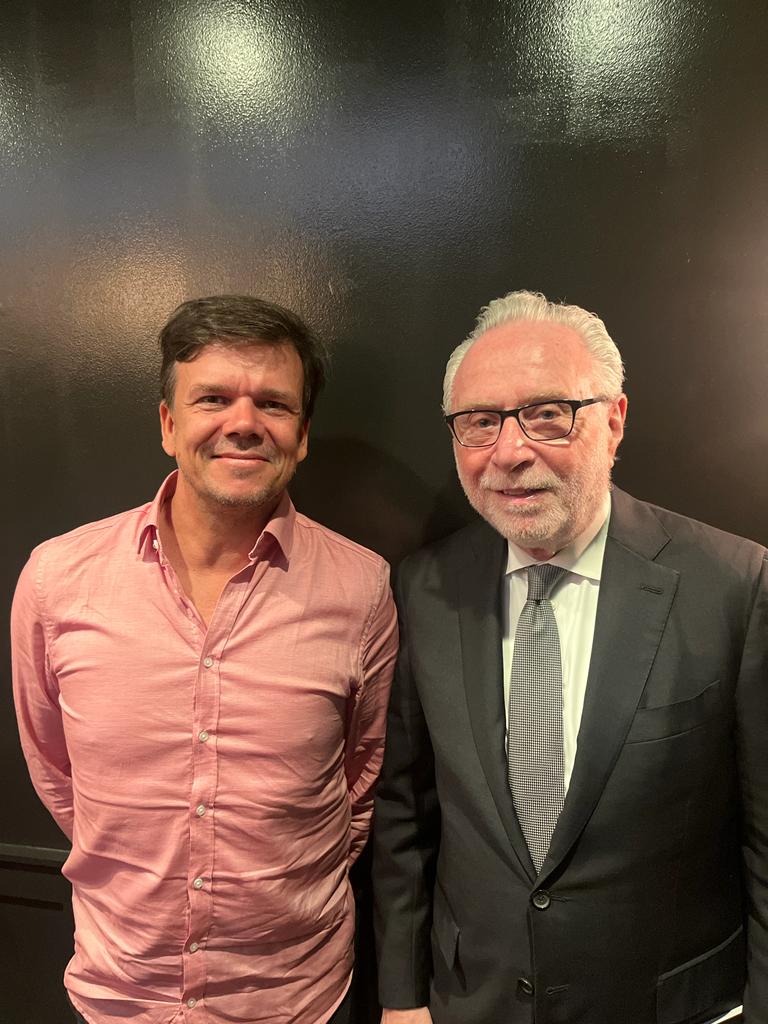 Veith Karl Jänchen, RBB, Potsdam
Veith Karl Jänchen, RBB, Potsdam
It is incredibly difficult to find words for these three intense weeks. The colleagues before me have already said everything and I can add little new to that. For me it was the first time ever in the USA and as a native of East Germany I had to pinch myself sometimes: Capitol, White House, NASA, The New York Times, Empire State Building, church service in the Abyssinian Church. It was three weeks of superlatives … And of insights, experiences and knowledge. I saw some differences between the USA and Germany, that didn’t surprise me. That there are so many similarities, unfortunately also the not so beautiful ones, I had not expected. I think I understand some things better now, which often left me helpless and without understanding for many years. I was most impressed by the Americans themselves: the mother with cancer who found her healing and calling in healthy food in the Bronx, the colleague at Stationweek who took in two children of a Native American with drug addiction, and especially Gordon Huie, who narrowly survived 9/11 but lost his sister, who is forever scarred but not bitter. It was a tight program which challenged me physically and also emotionally and I am very grateful to the RIAS Commission for allowing me to have these encounters. I am glad to have dared to take on this challenge and to have left my comfort zone, because I was rewarded with many insights, I feel inspired to think beyond borders, I can sleep in at home.
I would also like to thank Erik and Pam and of course my dear colleagues for this great joint adventure, which connects us forever.
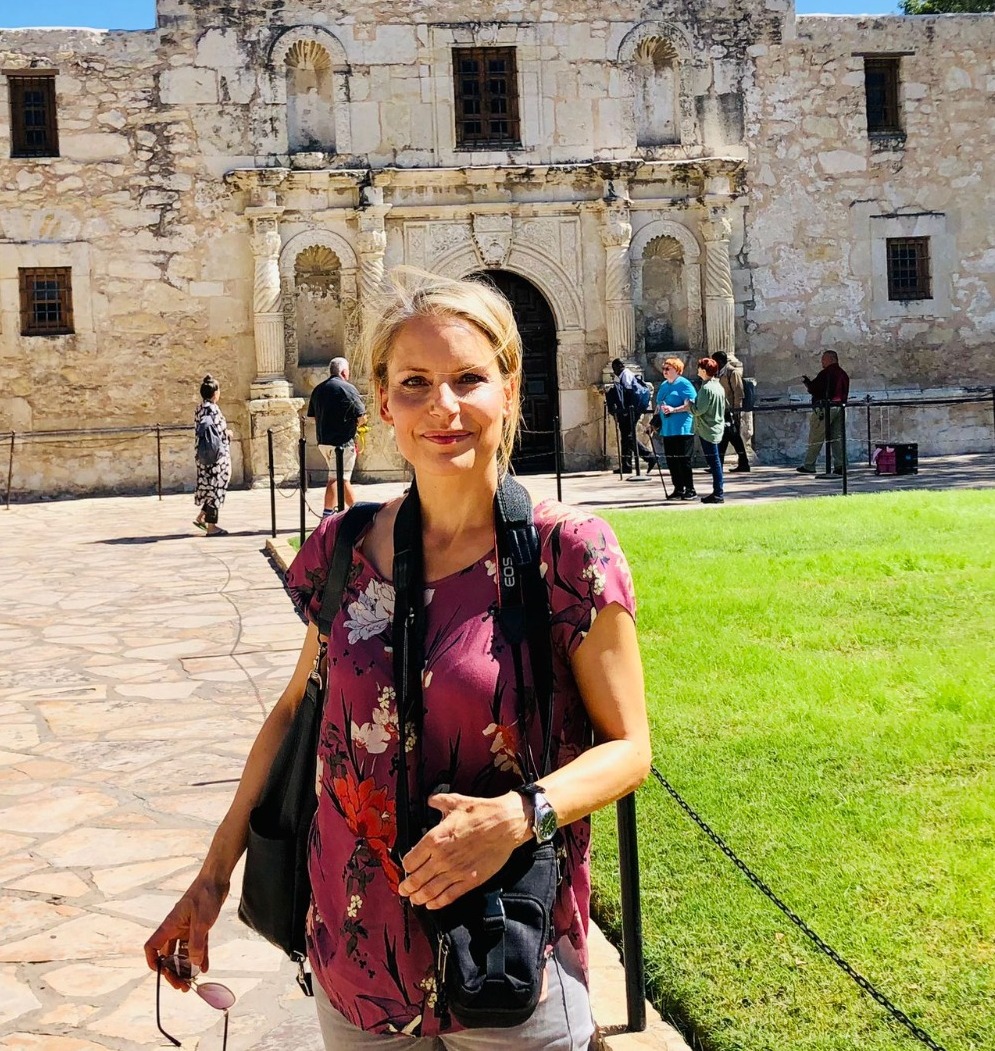 Katja Losch, WELT TV, Berlin
Katja Losch, WELT TV, Berlin
Still in the USA, looking out of the window to Boston trees in red and gold, it’s difficult to summarize the last three weeks, as nearly every day seemed as packed as a whole week! It was great to see all the places in real whose pictures are so often part of our TV shows in Germany: Congress (the day after the speaker stepped down), the Press Briefing Room in the White House (+ boasting home with selfies in front of the WH), the UN Skyscraper… But even more impressive was to encounter so many different people and cultures. First and most intense, our wonderful core group: from very different places and backgrounds, and all very curious and engaged to look after and help each other.
Then, to talk with German correspondents about the differences between the two countries. The honor of being invited to the service at Abyssinian Church on Sunday. To feel the pride and passion of journalists in legendary institutions like the Washington Post, Bloomberg, NYT and NBC – and their struggle for the future, which we know as well. Strolling through and tasting orthodox Williamsburg. Enjoy cultural pillars like Apollo Theater and a musical. Having breakfast with a black activist. Experience the still present trauma of 9/11 by a touching encounter with someone who survived physically – but lost part of his family and his peace of mind forever. And the important and heroic fight of the Anti-Defamation League against hate – which rises not only in Social Media, but also in real life against Jews + other minorities and liberal, democratic values and human dignity in general.
Kind of a cultural shock then arriving for the station week in Texas, greeted by cowboy hats already at the airport. The landscape: mostly multi-lane roads with gigantic cars on it. Buzzing motors even when the driver is out for a coffee, to keep the chill inside when coming back. And while the entire US history is made by immigrants, in San Antonio it is more present than in any other place I’ve been. Mexican and Latin-American influences everywhere. I met a housemaid who has lived 20 years in SA without speaking English…. But not only this – on the way to my accommodation I crossed Wurzbach Road and passed a huge announcement of a concert for the “Beethoven Male Choir, Oktoberfest”. Finally, my wonderful host Yami Virgin who is originally from Panama, covers immigration and one core point of it – the border to Mexico. We went to the 3.5m high fence which doesn’t stop immigration at all. Dozens of tissue rags in the barbed wire on its top prove that hope for a better future overcomes every fence. At the same time, the higher the fence, the higher the price for being smuggled over the border…
It was great seeing Yami in action, to learn how a regional station runs and how hard the competition is. Somehow shocking, that sometimes journalists are only as free as advertisers allow. Astonishing, that in Texas judges are elected and therefore must campaign. And that apparently lawyers make the most money in the US as they live in the biggest houses in the nicest areas. Last but not least: I will always remember the Alamo! I am very grateful that I could participate in this horizon-widening adventure – thank you Erik, Pam and Adam for making this possible!
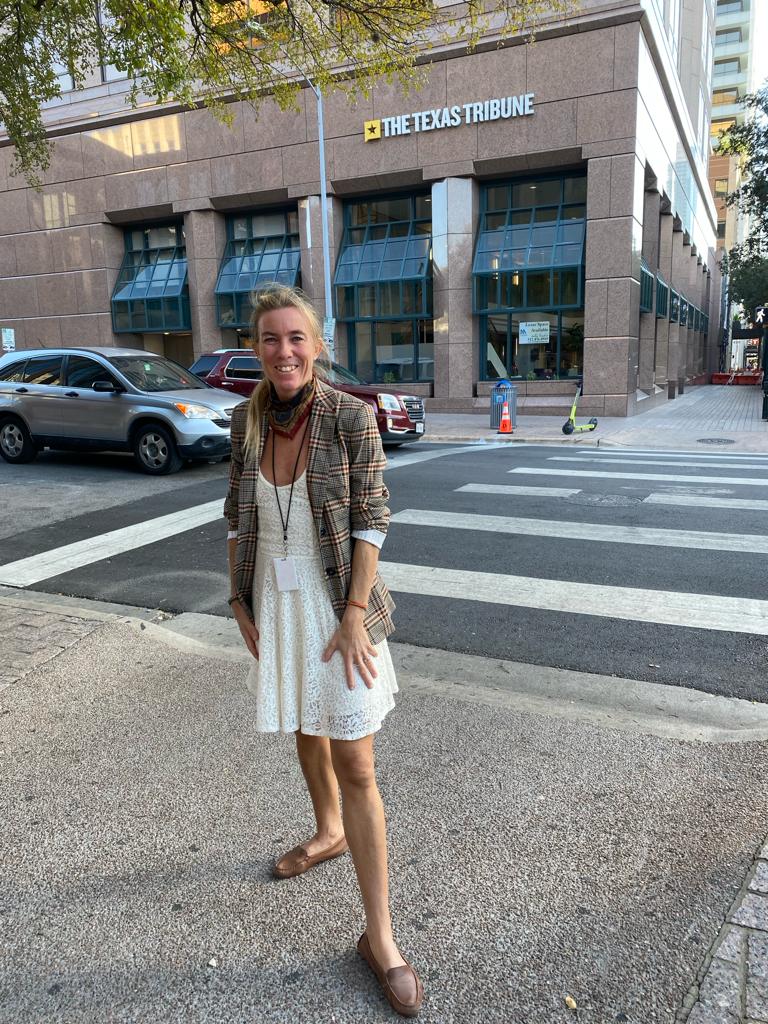 Julia Lange, Der Spiegel, Hamburg
Julia Lange, Der Spiegel, Hamburg
The RIAS program provided me with the incredible opportunity to meet lots of inspiring people with diverse backgrounds that definitely enriched my understanding of the United States in the year 2023. The personal connections that I established with colleagues from both sides of the Atlantic and the manifesto new impressions that I gained during the three-week program will undoubtedly prove to be of great value to my future work. Ranging from immigration to environmental law, from the intricate dynamics of national to local politics, and from the continuing concerns of Black Lives Matter leaders in NYC to the current state of transatlantic relations, the program covered a wide range of topics, deeply informed and widened my perspective on multiple issues and, perhaps most importantly, forged connections between people and institutions that did not exist before. I am particularly grateful for the opportunity to spend my station week at the “Texas Tribune” in Austin, Texas with Ayan Mittra and his wonderful colleagues. I have never been to Texas before and the RIAS program provided me with the unique opportunity to acquaint myself with the specifics of Texan politics and culture. Last but not least, a big thank you to Erik Kirschbaum and Pam Ortega without whom the program would never have been as inspiring, enlightening and well organized as it was.
 Thomas Kempe, BR, ARD, Munich
Thomas Kempe, BR, ARD, Munich
How many incredible, touching and inspiring encounters can you experience in three weeks? If you take the RIAS Autumn Program 2023 as a yardstick, then in any case much more than you can normally process in three weeks!
For example, the touching story of New Yorker Gordon Hui, a 9/11 survivor. He lost his sister in the Twin Towers and was a first responder on the day of the terrorist attack. Or, for example, breakfast with CNN star journalist Wolf Blitzer in Washington. Visits to the White House, the US Congress and pretty much all the big-name media – NBC, ABC, Washington Post, New York Times and, of course, the German colleagues – all garnished with fantastic interlocutors.
Two weeks of “group travel” in Washington and New York made heads and hearts full – an incredibly profitable and exciting insight into the inner workings of politics, media, society and culture in the USA.
The subsequent “Station-Week” took me on to Dallas and here it continued, with the experience and incredible encounters “intensive marathon”. In just one day:
- the story of a cabinet from Silesia, with a secret compartment, secret letters and a Jewish-German family tragedy. 2. lunch with one of the first Secret Service agents in the USA. 3. introduction to operating an AK47 including discussion of the sense and nonsense of US gun laws – with very convinced Texas gun owners. 4. dinner with our hosts, RIAS alumni and journalist colleagues in “typical local” Mexican ambience. Without words.
Last but not least: sharing the experience of the trip with colleagues from all different parts of Germany and backgrounds makes RIAS something really very special. A fantastic group with so many smart personalities made the trip even better. Icing on the cake, I guess that’s what they say. In this sense: Thanks a ton. Keep up the amazing work!
October 23, 2023
In Los Angeles, 23 German journalists learn more about West Coast USA issues
A group of 23 German broadcasting journalists from across the country spent a week in Los Angeles learning more about some of the major issues of the day facing the United States, transatlantic relations as well as Los Angeles, California and the West Coast during a RIAS Berlin Commission “short/alumni” program.
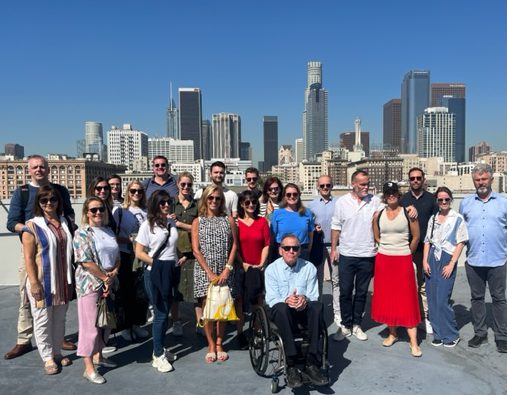
The German journalists, many of whom have taken part on full RIAS Berlin Commission fellowships to the United States over the last 33 years, flew to Los Angeles for the October 16-20 program on their own to reconnect with the United States after many years and sometimes many decades away. They also wanted to connect with many of the other German journalists from public broadcasting and commercial networks stations across Germany, most of whom they had never met before. They were able to build new networks among each other and with American RIAS alumni members from the Los Angeles area as well.
In Los Angeles, the German group visited a homeless center in Skid Row just east of downtown Los Angeles and had a lengthy talk with its indefatigable director, the Reverend Andy Bales, and his staff members on how the number of homeless people in Los Angeles has grown to more than an estimated 50,000 and about how there is almost no support from the state or federal government to assist people. The group of Germans also saw the stark contrasts in the United States when they visited business and political leaders in downtown Los Angles.
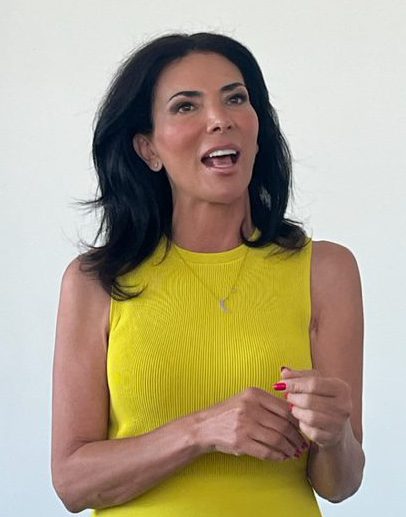
The Germans also had the chance to meet Gabriela Teissier, a German-speaking anchor at LA’s leading TV station KMEX, and talk about the thriving Hispanic community in California and the issues they are also facing. The mayor of Beverly Hills, Dr. Julian Gold, also talked to the group about the special challenges one of the wealthiest enclaves in Los Angeles county faces as did a senior Beverly Hills police officer, Max Subin, about the surprisingly successful crime-fighting efforts in the small town with the help, in part, thousands of video surveillance cameras and extremely active community watch efforts. They also had the chance to talk with former California governor Pete Wilson, a Republican, about the challenges facing his Republic party as well as former ambassador to Germany, Richard Grenell, who talked about his close ties to Donald Trump and the foreign policy advice he gives to the former president.
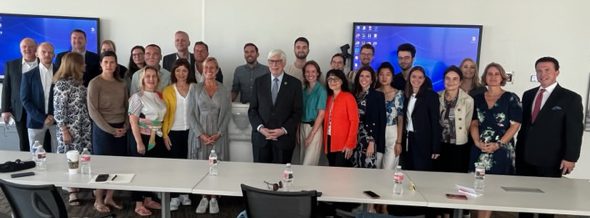
The German journalists visited numbers TV studios including NBC, KTLA, KABC, NPR’s West Coast offices as well as meet with more than a dozen American RIAS Berlin Commission alumni members in the LA chapter of the RIAS Berlin Commission alumni network that is headed by Frank Mottek . Also helping put together so many high-level meetings were RIAS alumni Scott Shafer, Brittany Silberstein, Thomas Demane, Pam Ortega, Bita Ryan, Andrea Gutierrez, Allison Walker and Anjuli Sastry.
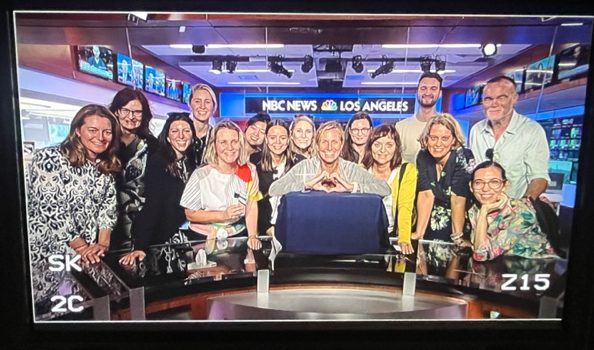
The Germans also had the chance to meet German reporters in Los Angeles, including Frank Fastner of RTL and the German West Coast offices of ARD in Santa Monica. They also visited the “Wende Museum” dedicated to the end of the Cold War and the fall of the Berlin Wall and had the chance to talk with several well-known political analysts in Los Angeles, such as Garry South and Dan Schnur.
The visitors from Germany also had the chance to talk with German consul general Andrea Sasse at the Thomas Mann Haus about her efforts to present a more modern view of a more diverse Germany to the West Coast of the United States and build new networks between California and Germany. They also had the chance to meet German fellows at the Thomas Mann Haus as well as visit the nearby Villa Aurore, where they talked with a number of fellows taking part in fellowships there as well.
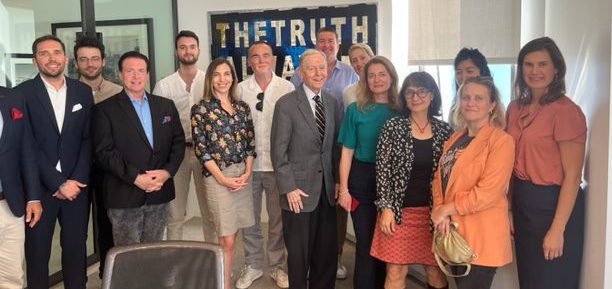
It was the third such “Short/Alumni” program to the United States after similar large programs were organized in New York in 2021 and Washington DC in 2022. Americans have taken part in “Short/Alumni” programs to Berlin in 2019 and 2021 as well as to Cologne/Munich in September 2023. Like with all RIAS fellowship programs, the exchanges are designed to expand horizons, help create and strengthen networks among and between Germans and Americans, as well as keep the spirit of the original “Radio in American Sector” (RIAS) alive even more than 30 years after the radio and TV broadcasting station went off the air at the end of the Cold War.
October 21, 2023
14 German journalists complete 3-week RIAS Berlin fellowships with station weeks
Fourteen leading German broadcasting journalists completed a three-week RIAS Berlin Commission fellowship that took their group from Washington DC to New York City and then to individual week-long visits in American newsrooms from across the country — from Atlanta, to Sioux Falls, South Dakota, Dallas, St. Louis, Chicago, San Antonio, Tyler in Texas and Wichita in Kansas.
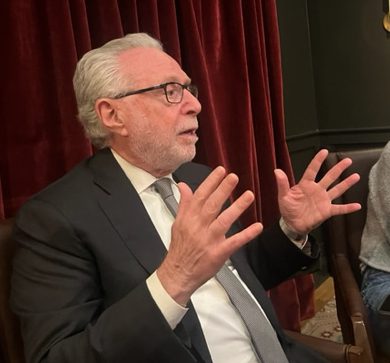 During their first week in Washington DC in early October, the German journalists first had the chance to meet and talk at length with leading American journalists in the capital, such as Wolf Blitzer of CNN, Larry Miller of WUSA9 TV, and Brandon Benavidas at NBC . They also had the chance to talk with leading German journalists based in Washington DC such as Roland Nelles of Der Spiegel, Gudrun Engels of ARD TV, Elmar Thevessen of ZDF TV, Michael Wüllenweber of Welt TV and Ines Pohl of Deutsche Welle. They also had a chance to visit the Washington Post for the first time in many years and talk with David Bruns about his extensive efforts in video and audio journalism. They learned about the powerful role that religion plays in the United States, especially on politics, from Greg Smith at Pew Research.
During their first week in Washington DC in early October, the German journalists first had the chance to meet and talk at length with leading American journalists in the capital, such as Wolf Blitzer of CNN, Larry Miller of WUSA9 TV, and Brandon Benavidas at NBC . They also had the chance to talk with leading German journalists based in Washington DC such as Roland Nelles of Der Spiegel, Gudrun Engels of ARD TV, Elmar Thevessen of ZDF TV, Michael Wüllenweber of Welt TV and Ines Pohl of Deutsche Welle. They also had a chance to visit the Washington Post for the first time in many years and talk with David Bruns about his extensive efforts in video and audio journalism. They learned about the powerful role that religion plays in the United States, especially on politics, from Greg Smith at Pew Research.
In New York, they had the chance to attend a Sunday church service at the famous Abyssinian Baptist Church in Harlem, talk with German Consul General David Gill, visit the United Nations and attend its daily news conference, and talk with Scott Richman about his work leading the Anti-Defamation League offices in New York/New Jersey that fights hate speech and hate crimes. The Germans also had the chance to meet leading New York area journalists such as Michael Gargiulo of WNBC TV, Adam Reiss and Shirley Zilberstein at NBC News, and DJ Cunningham at ABC News. They also had the chance to visit The New York Times for talks with leading video and audio journalists.
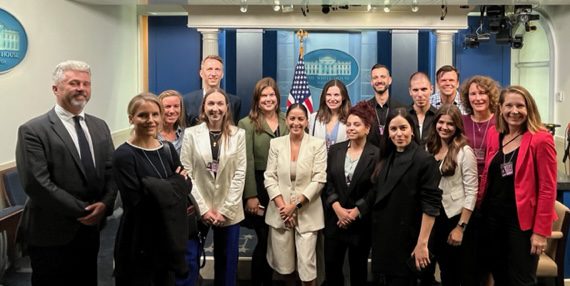 The Germans also had the chance to learn more about the Hasidic Jewish community in Williamsburg, Brooklyn and the challenges New York faces trying to integrate thousands of American-born men there who are unable to understand or speak English despite having attended taxpayer-funded schools.
The Germans also had the chance to learn more about the Hasidic Jewish community in Williamsburg, Brooklyn and the challenges New York faces trying to integrate thousands of American-born men there who are unable to understand or speak English despite having attended taxpayer-funded schools.
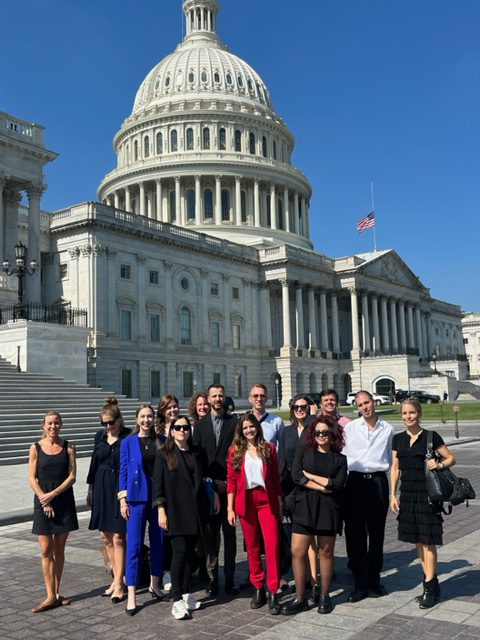
They also had the chance to talk with Chivona Newsome, the co-founder of Black Lives Matter and a political activist, in the Bronx and talk with two leading Republican politicians from the conservative New York bastion of Staten Island. The Germans also were able to watch “Amateur Night” at the Apollo Theater in Harlem.
They spent the third and final week individually at American TV and radio stations across the Midwest, South and Southwest states to learn more about other parts of the United States. There they were hosted by American members of the growing RIAS Berlin Commission alumni network who generously open the doors to their stations and local contacts from the mayor’s office to the police chief for their German visitors to help them come away with a better understanding of the United States — and ideally help inform their reporting about the United States back home in Germany.
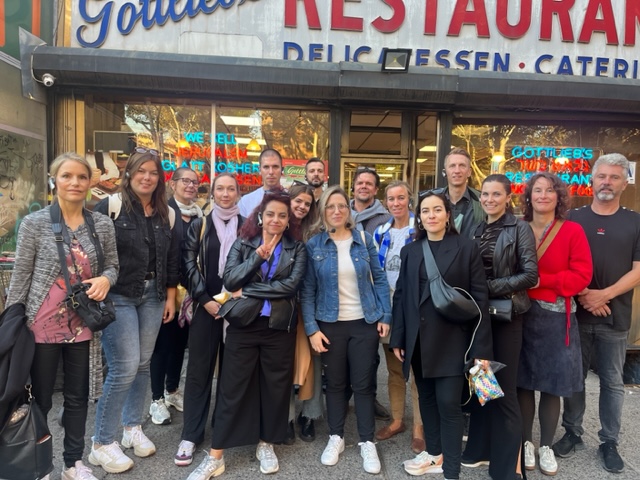
October 13, 2023

JOB ANNOUNCEMENT
GERMAN-AMERICAN EXCHANGE PROGRAM, EXECUTIVE DIRECTOR
RIAS Berlin Commission
Job Overview
The RIAS Berlin Commission is a bi-national organization established in 1992 to promote German-American understanding in the field of broadcasting. In accordance with the agreement signed on May 19, 1992 between the Government of the Federal Republic of Germany and the Government of the United States of America, the RIAS Berlin Commission promotes the exchange of people and information in the field of broadcast journalism between the two countries.
RIAS programs have enabled thousands of US and German broadcast journalists to experience and learn about each other’s media environments, political cultures and societies and have contributed significantly to the understanding of Germany and the US among their listeners and viewers. At the same time, RIAS alumni have helped forge transatlantic connections that last a lifetime. In the future, RIAS is committed to continuing this work and to help journalists understand and address the most pressing issues of our time through targeted programs while promoting diversity, equity, and inclusion in the field of journalism.
For the management of the RIAS BERLIN Commission based in Berlin, we are looking for a permanent position as soon as possible.
Executive Director (m/f/d)
Role of the Executive Director
In this role, you will lead a team of three in the planning, implementation, and development of exchange programs for German and American journalists to the United States and Germany. In addition, you will be responsible for organizing a RIAS Berlin Commission media award and its annual award ceremony. You will work closely with a German-American board and two chairpersons and be responsible for managing the foundation’s endowment, annual budget, finances, and the annual report.
Ideally, you have a solid background in journalism and bring a solid understanding of both American and German media systems and standards. You also bring experience in the field of exchange programs, an interest in expanding the growing alumni network, as well as deepening outreach to station hosts and program speakers. Knowledge of personnel management and public relations is also desirable.
Essential duties
- Management of the RIAS Berlin Commission as well as the representation of the organization.
- financial planning and oversight of expenditures including overseeing bookkeeping and annual accounts
- Development and organization of exchange programs in support of the mission and objectives of the RIAS Berlin Commission
- Communication with the members of the RIAS Berlin Commission as a supervisory body as well as participants, speakers and supporters in English and German
- Communication via RIAS website and social media channels
- Event management, such as the annual RIAS media prize awards ceremony
- Collaboration with other transatlantic organizations
Your profile
- completed academic studies (Master’s degree) or an adequate qualification
- several years of professional experience, especially journalistic experience, ideally in the management of exchange programs or in cooperation with or work for international organizations
- good knowledge of the German budget system
- experience in project management and project cooperation
- knowledge of transatlantic partnerships and the history of RIAS Berlin
- bipartisan political contacts in Germany and the United States of America
- professional networking with media, educational organizations and foundations involved in German-American relations and educational programs
- business fluent knowledge of the English and German languages
- analytical and conceptual skills as well as an efficient and structured way of working
- competence in political issues
- Willingness to travel on business in Germany and abroad
- high intercultural and social competence
- very good communication and teamwork skills as well as loyalty, assertiveness and organizational talent
We offer
- a challenging and versatile workplace
- cooperation in a small team
- a varied job in a transatlantic journalistic environment
- an open-ended employment contract and, if you are suitably qualified and capable and meet the other requirements, an allocation in line with the collective agreement, analogous to pay group 14 TVöD Bund
Respect for cultural diversity and the promotion of equal opportunities are among the basic principles of the German-American RIAS Berlin Commission. It ensures professional equality between women and men. We therefore particularly welcome applications from women. If interested, the position can also be filled by part-time employees. In the case of equal suitability, people with severe disabilities or their equals will be given preferential consideration.
Have we sparked your interest? Then we look forward to receiving your application documents in English or German by email to: info@riasberlin.org or apply@riasberlin.org (1 PDF; 7 MB max.)
October 2, 2023
German journalists arrive in USA for start of 3-week RIAS Berlin fellowship
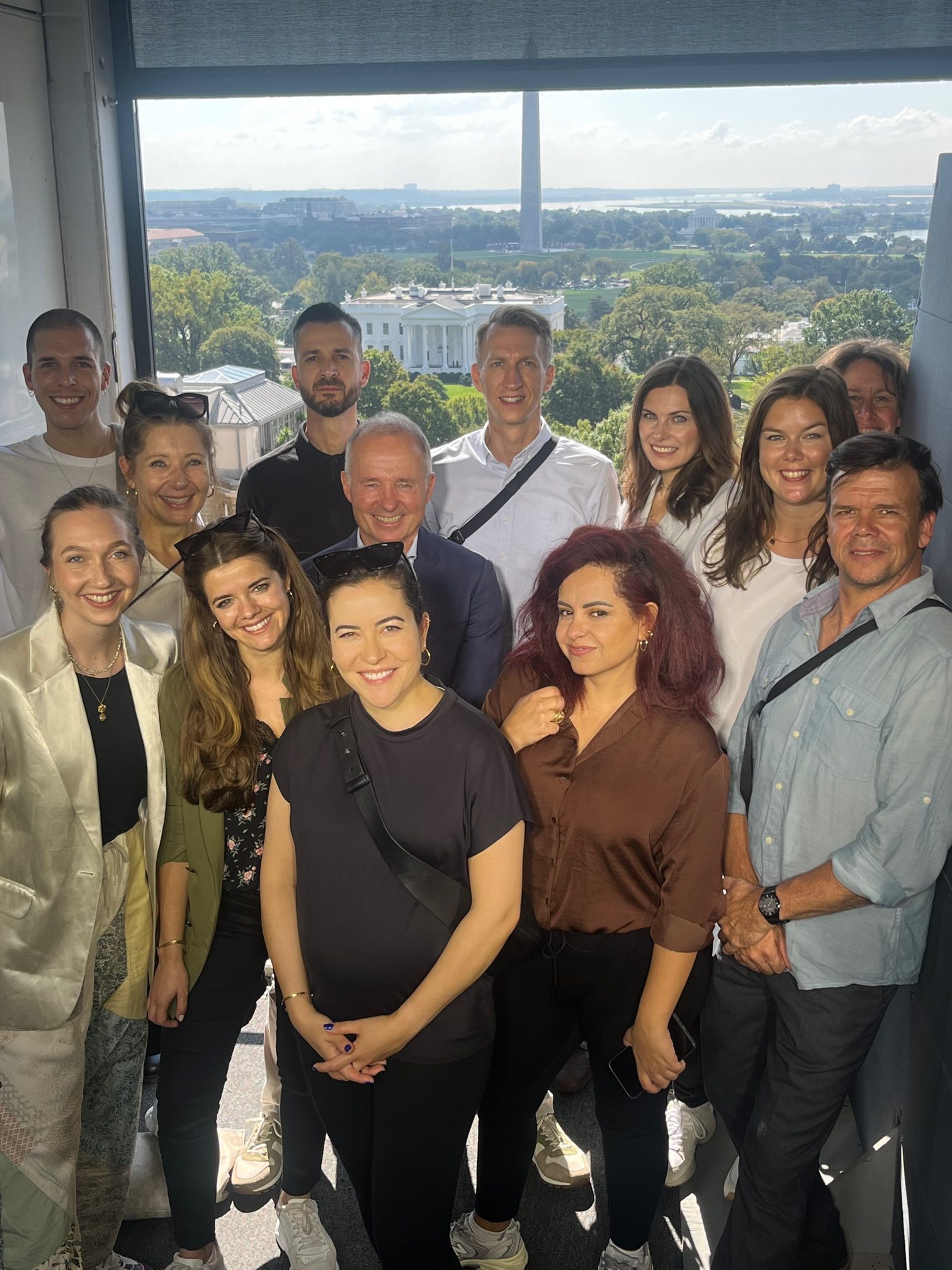
A group of 14 German broadcasting journalists arrived in Washington DC on October 2 for the start of a three-week RIAS Berlin Commission fellowship — the seventh of eight planned RIAS exchange programs in 2023 in which a total of 130 journalists from the USA and Germany are taking part. The German journalists, many of them seasoned mid-career broadcasters, came from commercial and public broadcasting networks from across Germany. They will be spending their first week together in Washington DC meeting American and German journalists and politicians, their second week together in New York City and they will spread out across the country to spend their third week at local stations in the Midwest, South and Southwest with RIAS alumni from the USA. Here are short thumbnail sketches from the German journalist:
Aline Abboud, ARD, Hamburg
Abboud is an anchor at German public broadcaster ARD’s “Tagesthemen” news broadcast. She is the first woman born in the former communist East Germany to be one of the anchors on the ARD flagship evening broadcast. She studied Arabic at the University of Leipzig and has worked in Istanbul and Beirut. She has previously worked as a print and radio journalist. Abboud has family ties to Lebanon and speaks Arabic fluently.
Kirsten Gerhard, ARD, Hamburg
Gerhard is an anchor for the German public broadcaster ARD. She works for the ARD news channel tagesschau24 and for tagesschau. She has also worked as a radio journalist and as an anchor for commercial network Sat-1. She has also worked as a journalist for Der Spiegel newsmagazine and for Deutsche Welle TV.
Katja Losch, WELT TV, Berlin
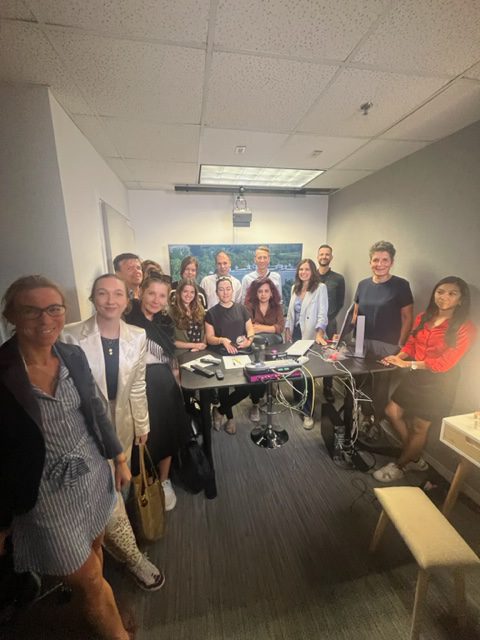
Losch is an anchor at the German all news channel WELT TV. She presents news shows and the WELT business magazine at the commercial network. She also works in the field as a reporter and produces TV reports focusing on business and environmental topics. Losch has also worked for the Sat-1 network and also spent part of her career in journalism working in Salzburg, Austria, Senegal and Paris.
Veith Karl Jänchen, RBB, Potsdam
Jänchen is a senior broadcast editor and reporter for the German TV network RBB in the state of Brandenburg. He works for various TV departments including political, current information and entertainment sections. He is heavily involved in selecting, developing and managing content and topics for the public network’s news broadcasts.
Clara Pfeffer, RTL/ntv, Berlin
Pfeffer is a political correspondent for the commercial TV networks RTL and ntv. She works for the daily news programs for RTL and ntv in Berlin, hosts a climate podcasts and a climate TV show. She is a specialist on climate politics and economics. She studied Economics at the University of Cologne and started her journalistic career as a field reporter at the Olympic Games in Rio de Janeiro. Pfeffer has family roots in Brazil and spent several years living in South America. She speaks Portuguese fluently.
Hiba Obaid, Deutschlandfunk Kultur, Berlin
Obaid is a journalist and social media editor at Deutschlandfunk Kultur. She is also a podcaster. She studied Arabic Literature at the University of Aleppo and has written for magazines and newspapers in Syria, Lebanon, Turkey and Germany. She has lived in Berlin since October 2015 and also writes for Die Welt daily newspaper, taz newspaper and Der Tagesspiegel newspaper. She has family ties in Syria and speaks Arabic.
Sven Knobloch, MDR, Leipzig
Knobloch is a TV reporter for the German public broadcaster MDR. He works for the regional daily news program MDR Aktuell and national news programs such as Tagesschau and Tagesthemen. Knobloch is a specialist on politics and social movements.
Julia Bestrich ARD, BR, Munich
Brestrich is a reporter and anchor for the German public broadcaster ARD. She works in news for the daily TV news program BR24 and BR24live and is well versed in social media. She crafts videos for young people on Instagram and TikTok. Bestrich has family ties to Poland.
Thomas Kempe, BR, ARD, Munich
Kempe is an editor and reporter for the German public broadcaster ARD. He mainly works for BR24 the TV-news department of the Bayerische Rundfunk / ARD-aktuell in Munich. Kempe specializes as news editor leading coverage for major events like the G7 meeting in Elmau, Bavaria (2022) or the annual Munich Security Conference.
Julia Lange, Der Spiegel, Hamburg
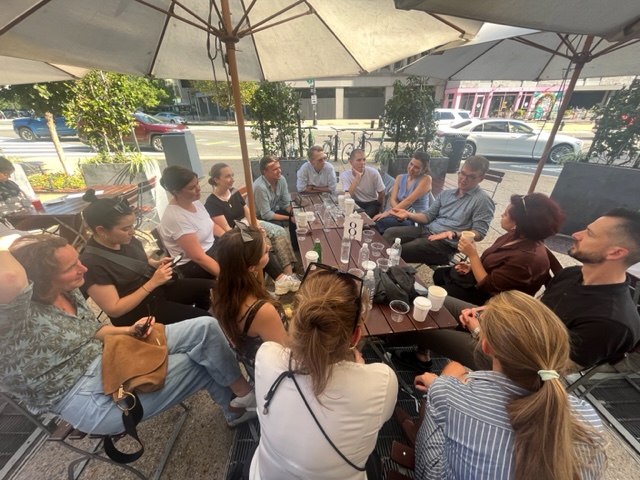
Lange is a researcher and fact-checker at the foreign desk of the German news magazine Der SPIEGEL. She specializes in US politics and culture, transatlantic relations, and Russian politics. Lange holds a PhD in American Studies from Hamburg University where she still teaches. Lange has family ties to Russia and speaks Russian fluently
Timm Giesbers, ARD, funk, Deutschlandradio, Cologne
Giesbers is an anchor, reporter and digital developer for several German public broadcasters – such as ARD and funk. He hosts a documentary channel on YouTube specialized on topics for Generation Z. Giesbers also reports live for the nationwide daily ARD morning news program. Giesbers’ reporting focuses on poverty, education and social justice, including queer life and discrimination.
Constanze Semidei, NDR, Hamburg
Semidei is news editor at the German public broadcaster ARD. She works for daily news programs at NDR radio stations, including the ARD radio overnight program. Semidei writes, produces and presents radio news. She also writes texts for the NDR homepage and Twitter channel. Her work focuses on politics and history, especially East German.
Franziska Venjakob, ntv, Cologne
Venjakob is an editor for the German broadcaster ntv. She is responsible for political coverage. She previously participated in two exchange programs for journalists in Russia (Saint Petersburg and Moscow). Venjakob specialized in social policy, migration and climate issues.
Laura Wassermann, RTL, Cologne
Waßermann is a social media journalist at RTL Germany where she focuses on news and politics. She is primarily responsible for running the Instagram and TikTok RTL channels. She also presents workshops to journalists and students.
September 29, 2023
RIAS Berlin Germany Short/Alumni Program September 16-24
A group of 32 American journalists took part in a one-week RIAS Berlin Commission “short/alumni” program in Cologne and Munich recently to learn more about the country they first visited several years or even decades earlier on their RIAS Berlin Commission fellowships. Many of the Americans used the three days in Cologne and four days in Munich to learn more about the political situation in Germany ahead of an important regional election in the state of Bavaria on October 8 and about the troubles facing the church in Germany with several meetings in Cologne. They had the chance to meet political leaders in both cities, learn more about the economic importance of Oktoberfest for Germany and its 7 million annual visitors, about BMW’s new factory in Munich and about media developments in Germany. The Americans also had the chance to ride the country’s high-speed Intercity Express (ICE) train on a four-hour ride from Cologne to Munich at speeds above 220 kilometers per hour. One participant, Lane Luckie, even did a live report for his station in Tyler, Texas while sitting on the speeding train about the train system in Germany for a Texas audience in a state that has long considered building high-speed train lines between Dallas and Houston. Here are their short summaries of their experiences: Texas while sitting on the speeding train about the train system in Germany for a Texas audience in a state that has long considered building high-speed train lines between Dallas and Houston. Here are their short summaries of their experiences: Texas while sitting on the speeding train about the train system in Germany for a Texas audience in a state that has long considered building high-speed train lines between Dallas and Houston. Here are their short summaries of their experiences:
Karin Caifa, CNN, Washington DC
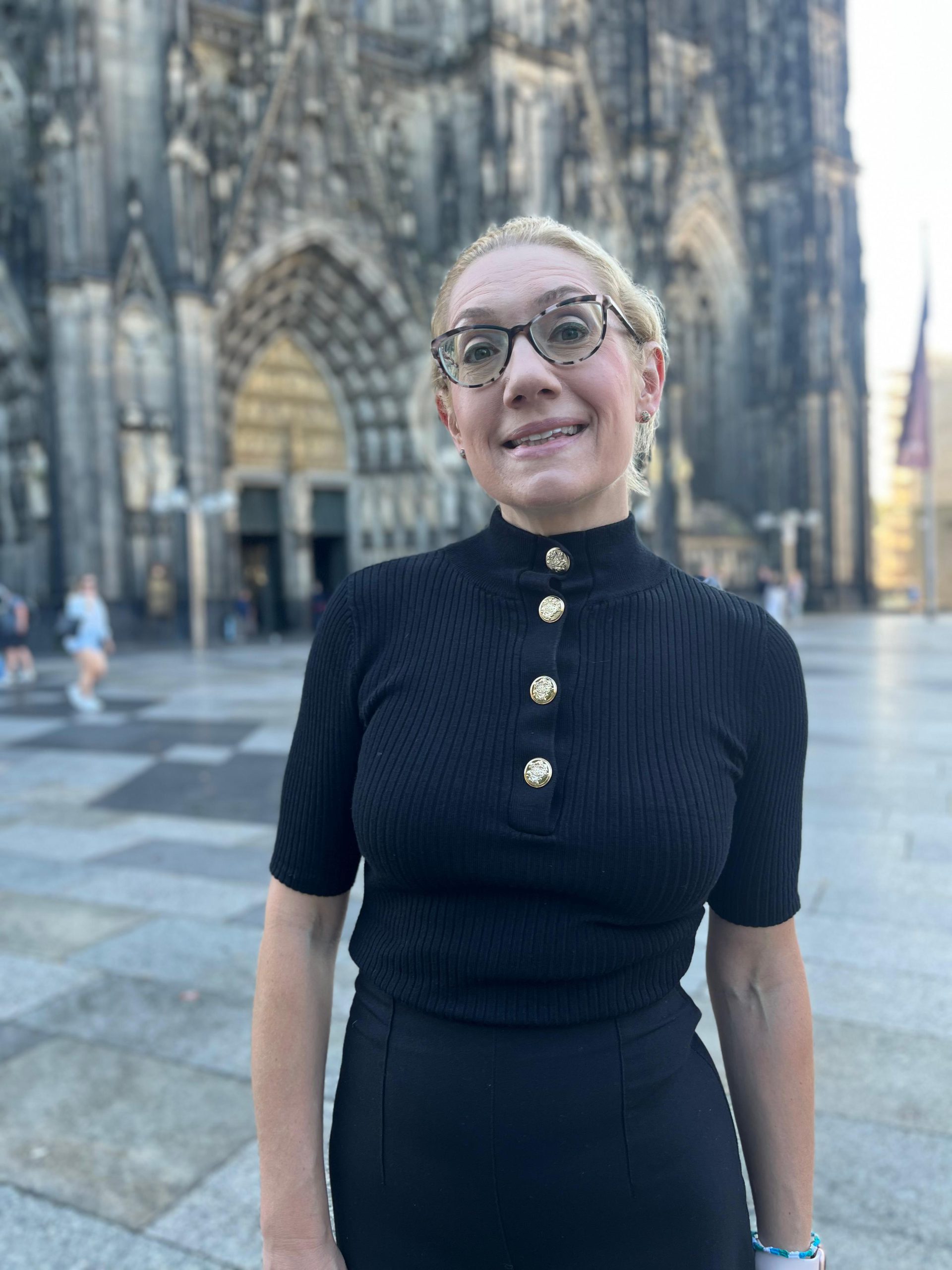 The value in a RIAS alumni program is that it allows us to continue to build our knowledge and understanding of German political, economic and cultural affairs. In making the comparison to university-level learning, I’d say my initial trip in 2018 was German Politics & Economy 101, with a broad overview of the country and its place in the European Union. My first alumni trip in 2021 for the historic German national elections drilled down deeper into party dynamics, so more like German Politics & Economy 102. And this trip, timed to the elections in Bavaria, took us another layer below to the local election level. It also helped highlight that key debates for voters here – like immigration and inflation – are very similar to those that shape elections back home. There was also the camaraderie and connections with US and German alumni, especially reinforced as we peeked behind the scenes of the massive economic driver that is Oktoberfest. I’m truly grateful for this opportunity to expand my knowledge and my networks!
The value in a RIAS alumni program is that it allows us to continue to build our knowledge and understanding of German political, economic and cultural affairs. In making the comparison to university-level learning, I’d say my initial trip in 2018 was German Politics & Economy 101, with a broad overview of the country and its place in the European Union. My first alumni trip in 2021 for the historic German national elections drilled down deeper into party dynamics, so more like German Politics & Economy 102. And this trip, timed to the elections in Bavaria, took us another layer below to the local election level. It also helped highlight that key debates for voters here – like immigration and inflation – are very similar to those that shape elections back home. There was also the camaraderie and connections with US and German alumni, especially reinforced as we peeked behind the scenes of the massive economic driver that is Oktoberfest. I’m truly grateful for this opportunity to expand my knowledge and my networks!
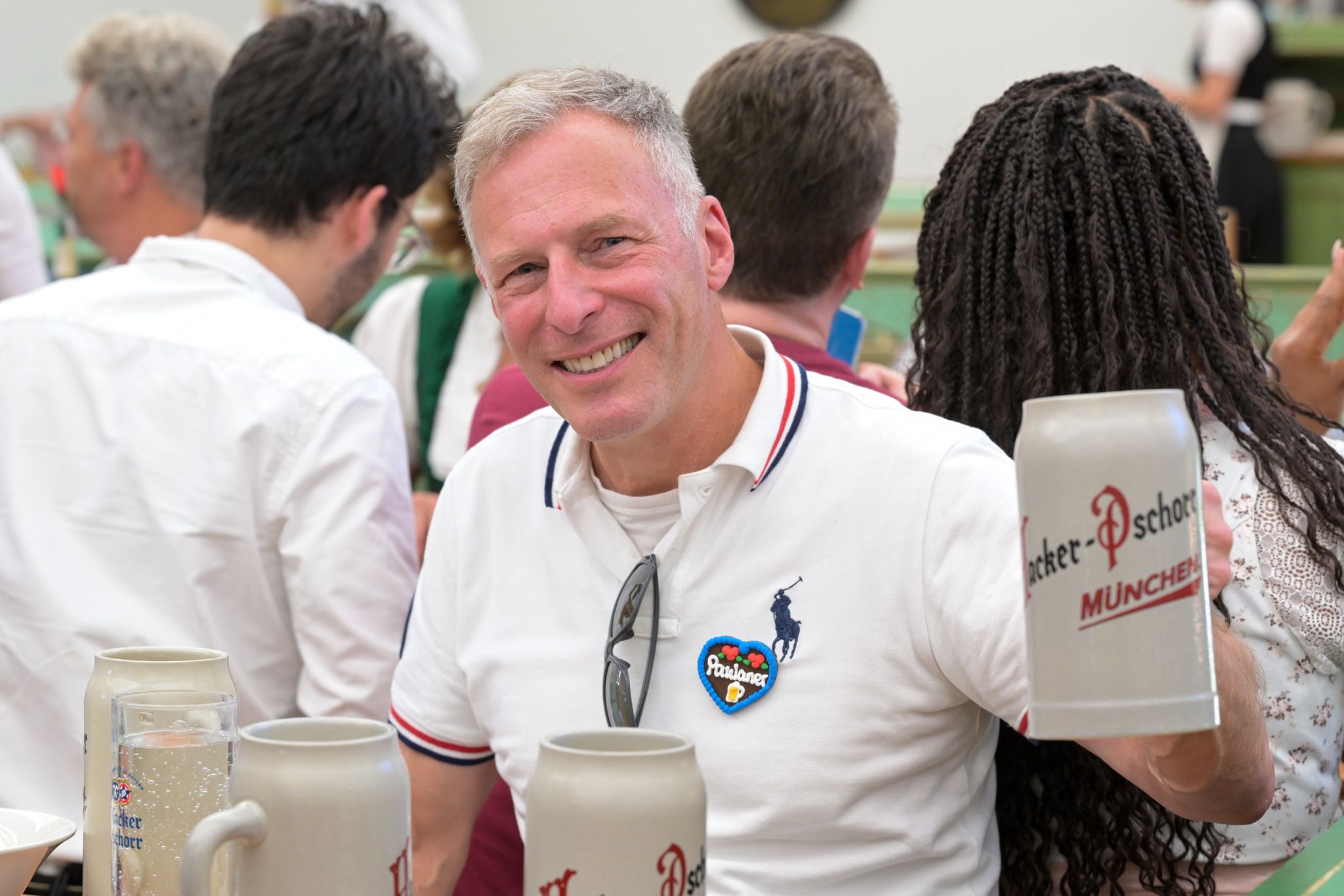 Michael Gargiulo, WNBC, NY Chapter Alumni Leader, New York, New York
Michael Gargiulo, WNBC, NY Chapter Alumni Leader, New York, New York
It’s the hidden secret of the RIAS Program that sometimes the most important lessons are not always learned in meetings or on visits to important places. After participating in the RIAS Alumni Program in Cologne and Munich, I experienced a new Germany; one far more diverse than when I arrived in Berlin for my RIAS fellows program in June of 2002. We met Black Germans in Lederhosen in the Oktoberfest grounds, immigrants from Spain at our hotel in Munich, and listened to a multi ethnic choir in the Cathedral in Cologne. I don’t think many Americans understand how Germany is changing and how embracing that diversity is helping Germany grow at a time when so many other European nations are shrinking.
The timing for this program could not have been better .. getting to meet key players from the CSU and the Green party just days before the Bavarian elections.. they each spent an hour with us ..even though they are locked in a battle to control their State.. It says a lot about the influence of RIAS.
Yes, we had a great time at Oktoberfest.. but I also believe it was one of the most educational days of our visit. We were able to see behind the scenes how the police work to keep the enormous crowds safe, how food processing is handled for more than a million visitors and why this old traditional celebration is embraced so strongly by young Germans.
Finally, the alumni program showed me why RIAS is all about personal connections. I reconnected with RIAS fellows I have not seen since my original program in 2002, new friends from around the US, and German colleagues who have become close friends as well. Thanks to RIAS, we have an unshakable bond and for that I will be forever grateful
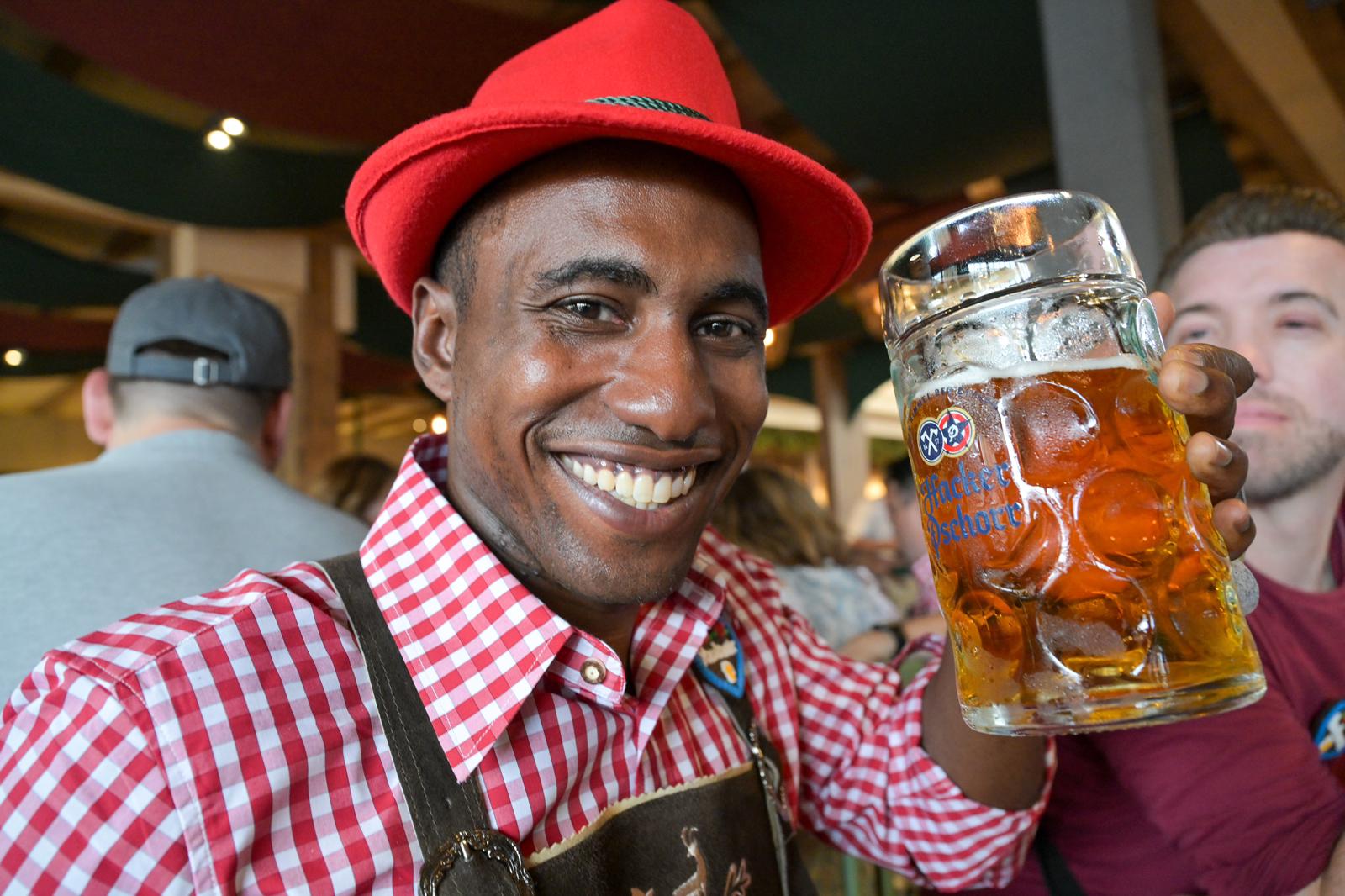 Justin Campbell, KRON4, San Francisco, California
Justin Campbell, KRON4, San Francisco, California
The RIAS program truly expands who I am as a person and professionally. My first trip was in 2018, I learned so much about German politics, and experiencing Berlin felt like being in a Cold War movie.
The alumni RIAS program, I believe, is even more important. Being able to connect with colleagues across the US and Germany in person is very important to my professional development. Since 2018, I’ve made many personal friends and contacts within RIAS that have even helped me secure a better journalism job.
The alumni trip also allows me to deepen my knowledge of German politics, culture, and history. This was my 3rd trip, and each time I learned or experienced something new. Seeing the robots at the BMW factory, and less labor really shows the wave of the future. AI in San Francisco is leading innovation, and soon we’ll probably see that AI robots at BMW.
The opportunity to experience Oktoberfest was incredible, and I loved learning more about clothing, lederhosen and dirndl. I will continue to support RIAS and will support the program anyway I can help, in hopes it changes another young black man’s life in the way it changed mine.
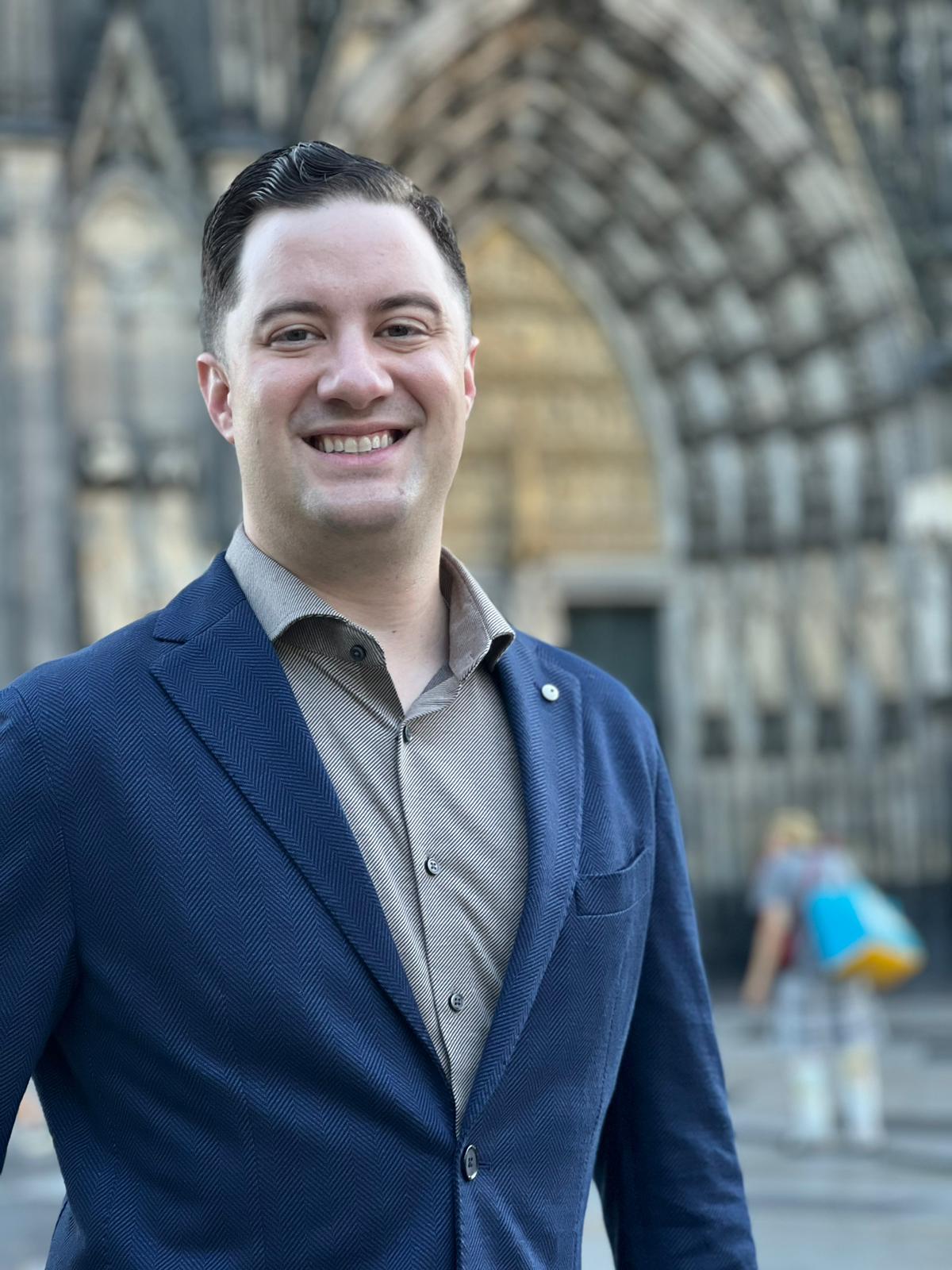 Lane Luckie, KLTV, Tyler, Texas
Lane Luckie, KLTV, Tyler, Texas
The value of the RIAS Berlin Commission’s alumni program cannot be overstated. Where else can a broadcast journalist find unrivaled professional development, cultural exchange, meaningful friendships, and access to newsmakers and events, rolled into a single experience?
My initial fellows program proved to be life-changing. It laid a foundation for personal and professional growth. But the alumni program has allowed me a chance to put that knowledge in context and apply new skills.
The immense value of these programs is also passed along to my station’s viewers. In Cologne and Munich, I was able to produce stories and provide daily live reports for our audience in East Texas on a number of topics: an East Texas bishop’s insight on an exodus in the Germany church; expanding Germany’s rail network as Texas is pursuing two high-speed train projects; the 1880s German immigrant who designed landmarks in the oldest town in Texas; how East Texas NFL superstar Patrick Mahomes is part of the league’s plan to expand American football in Germany; East Texas’ biggest Oktoberfest celebration got its start with a city manager’s visit to Munich; and a look at Holocaust education curriculum in Germany and in Texas.
The alumni chapter in Cologne and Munich couldn’t have been more thoughtful and intentional in developing an itinerary with fascinating and informative speakers, as well as eye-opening experiences. The week also delivered a crash-course on the upcoming Bavarian parliament elections and the implications the results will have.
Lasting impressions were also made through face-to-face conversations with German legislators and interacting with people on the streets. This trip provided an opportunity to forge new connections with German and American fellows, rekindle friendships, and discuss possible collaborations on future projects. Perhaps most special, was the chance to have dinner in Cologne with the German fellow who spent a week at my station in Texas in 2018. We’ve kept in touch over the years and just picked up where we left off!
The 2023 RIAS alumni program in Cologne and Munich taught me there is so much more to learn and explore! I’m back in my newsroom with a list of new ideas for future stories and preparing to host two German fellows next month. The world feels smaller because of the RIAS Berlin Commission and I’m always mindful of the impact these programs have had on my career.
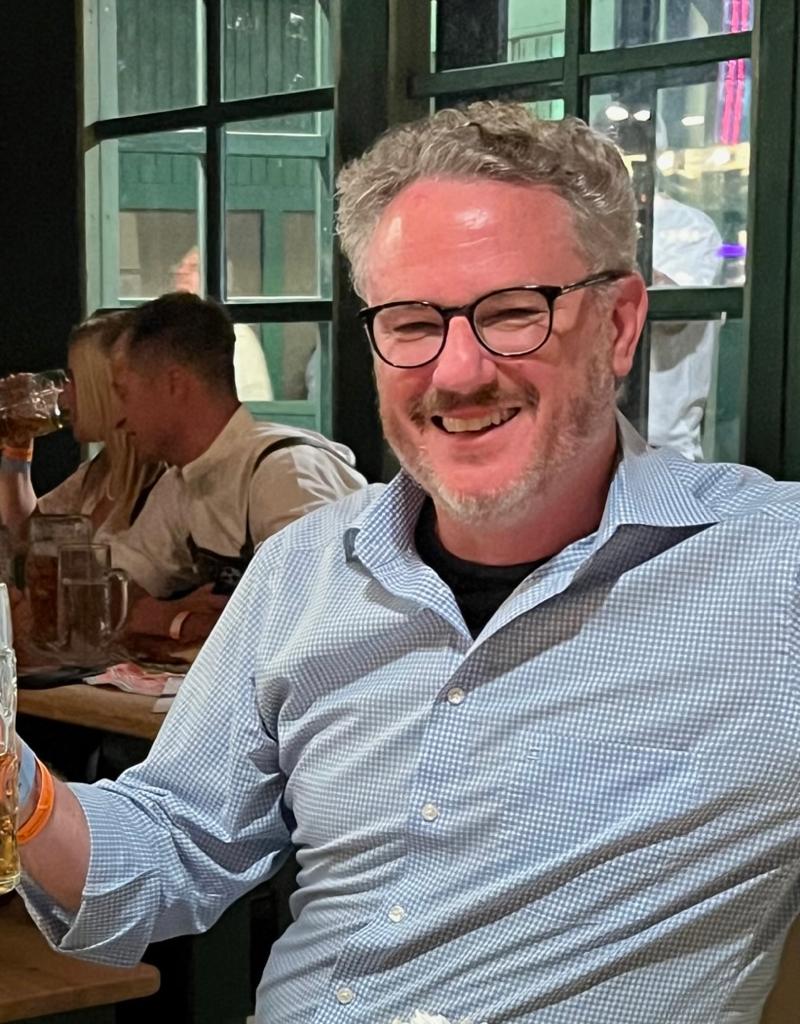 David Bruns, Washington Post, Washington DC
David Bruns, Washington Post, Washington DC
Thank you for letting me be a part of this extraordinary experience again. I first discovered RIAS in 2003 and not only did the trip vastly transform my understanding of international news and politics, but it led to some lasting friendships that have endured decades. I feel confident something similar has happened twenty years later.
One of the tremendous aspects of RIAS is how the program infuses newsroom visits, editorial interviews, and uniquely geographical cultural insights to give you a better understanding of how Germany is not just one country in Europe on a map, but a unique mosaic of regions with distinctive industry, politics and social issues. For me, it was fascinating to see in person how societally North-Rhine Westphalia differentiated from Bavaria.
Also, RIAS is about networking and building connections with professional colleagues in both countries. The surprising subtheme of my 2023 trip was unexpectedly rekindling some of those early RIAS friendships. Twice on this trip I was surprised to ‘run into’ amazing journalists I had last seen nearly two decades ago. One was Michael Heussen of WDR, of Cologne. After hosting Michael in Sacramento in 2004 and taking him to places like San Francisco – we had lost touch, but connected again through the Cologne chapter meeting. And in Munich, I happened to meet again Susanne Erzberger, who had been a reporter at RTL in Berlin when I visited in 2003. Immediately we picked up conversations we had left off for years and vowed to use “Zoom” to stay in better touch .
These trips are magical for a litany of reasons. I was amazed at how thirty-two different journalists stuck together traveling for a week could be so easy to get along with, inspiring, and enlightening. Thank you RIAS for making this once in a lifetime experience happen, twice.
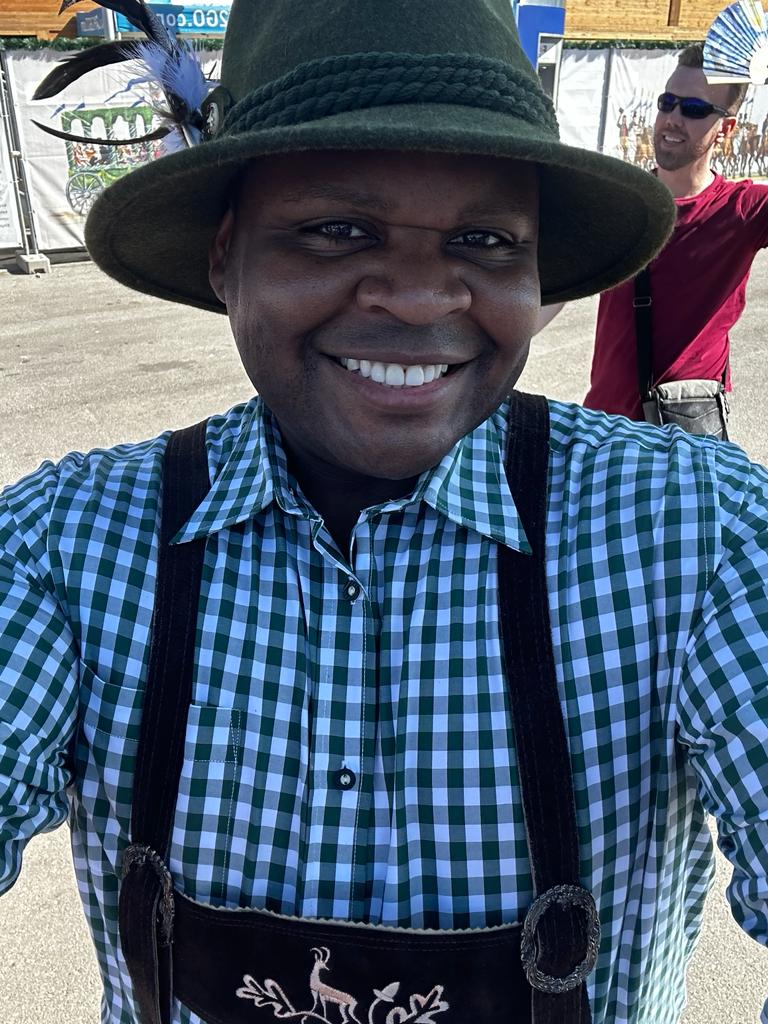 Larry Miller, WUSA, Washington DC
Larry Miller, WUSA, Washington DC
There is something special about RIAS and especially the 2023 alumni program in Cologne and Munich. Not only did I meet interesting, accomplished and motivated people, I had the opportunity to share information and collaborate with colleagues addressing similar challenges: resource limitations, workflow innovations and news gathering strategies. No other program or newsroom provides such a rich, rewarding information packed experience. We met politicians, researchers, newsmakers and journalists charged with covering the day’s events. Not only did I gain new friends, I was able to network and expand my professional horizon. In an industry where we are all deeply committed to others, it was great to be among colleagues that cared about me and nurtured my professional vision.
 Faith Jessie WXIA (NBC) Atlanta, Georgia
Faith Jessie WXIA (NBC) Atlanta, Georgia
My first RIAS program was in 2018. During this program, my eyes and mind were opened to another world of ideas, perspectives, and understanding of societal and cultural issues. Our visits to several German news outlets and meetings with political figures were experiences I would have never been able to afford or have access to as a young 20-something journalist. I was still finding my voice, but I was so eager to learn.
Five years later, the 2023 alumni program gave me another opportunity to connect with some of the best and brightest journalists in the business, both in America and in Germany.
As an American journalist covering the upcoming US election, our meetings with Bavarian politicians like CSU’s Florian Herrman and Grüne’s Katharina Schulze, as well as influential news outlets like Süddeutsche Zeitung, were major highlights for me. We came to Munich in the final stretch of Bavaria’s election season. These meetings not only allowed us to get a balanced understanding of the issues facing the region but allowed us to see the differences in how breaking political news is handled, how campaigns are managed, as well as the evolving relationship between the press, politicians, and the voters.
The cultural aspects of the trip were also major highlights. Being able to experience the Oktoberfest on an informative level with talks and historic tours from those involved with running it, gave me a deeper understanding of the cultural event that I can now use in my reporting.
Overall RIAS has helped to broaden my understanding of German social and political issues, as well as the German government’s relationship with the US I’ll be able to use this knowledge and the new relationships created during this trip in my reporting moving forward.
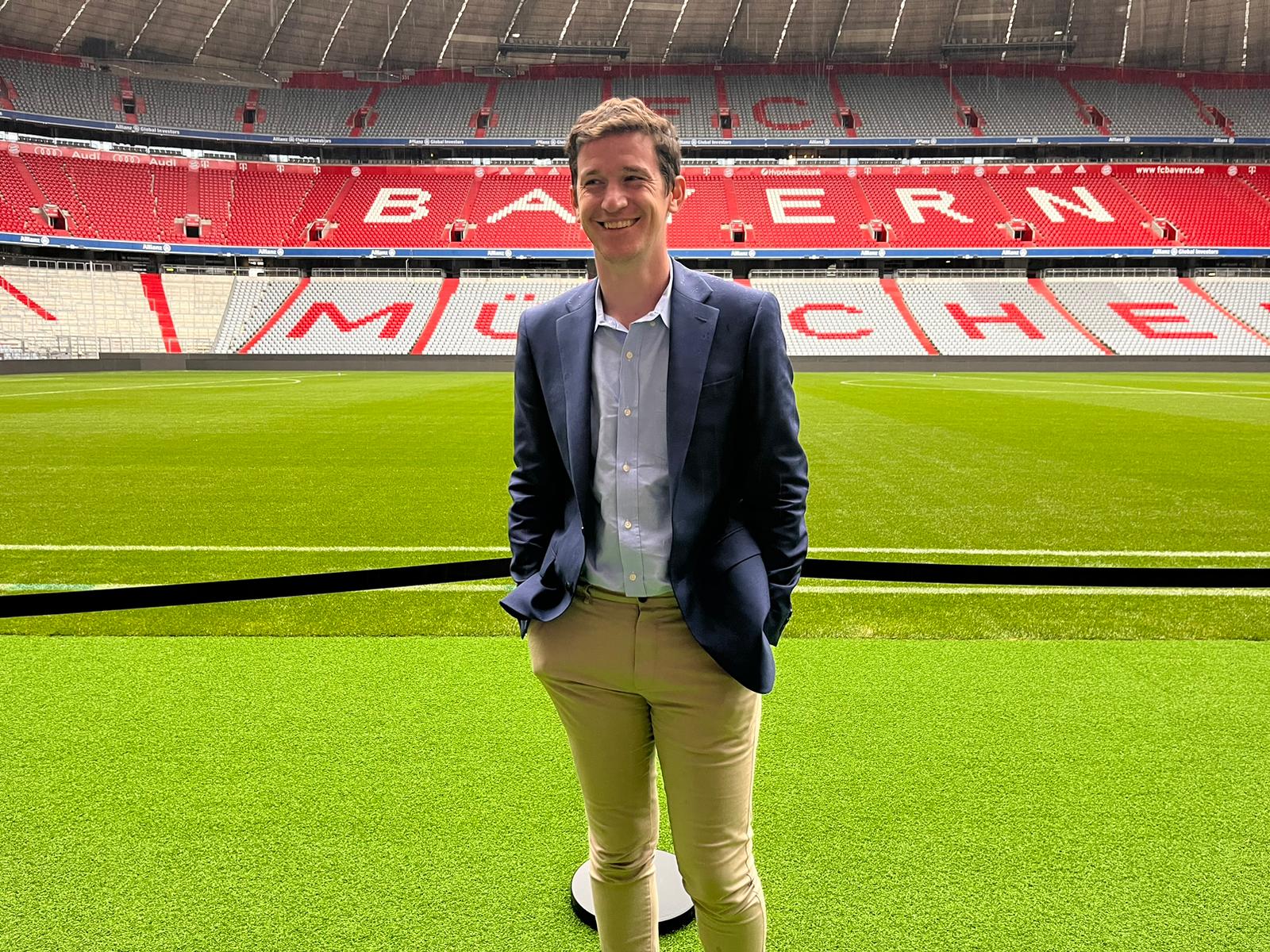 Ryan Prior, The Century Foundation, Atlanta, Georgia
Ryan Prior, The Century Foundation, Atlanta, Georgia
My RIAS trip was a life-affirming reminder of so many of the reasons I entered journalism a decade ago: we are privileged with a front row seat to history, and we ourselves become a prism refracting and broadcasting those experiences to the world.
The 2023 alumni trip drilled down into many fundamental tenets of the German identity, and Bavaria’s unique contributions for good or ill: the nation’s most dominant football club in Bayern Munich, the legendary brewing and festivities of Oktoberfest, carmaking at BMW, and a nation reckoning with its conscience and the atrocities at Dachau.
For me, this paradox of storied regional tradition and futuristic global vision were best personified in our meeting with Green Party leader Katarina Scholze, a young female politician who dons traditional Bavarian dresses and campaigns in beer tents with a hopeful message channeling her formative years working on President Obama’s 2008 campaign. Her quest to preserve the best of German heritage and shepherd the nation toward an inclusive, sustainable future — all with the far-right party AfD nipping at her heels — is an apt metaphor for Bavaria’s enduring power in an increasingly globalized world.
The alumni program was a priceless opportunity to continue building transatlantic ties and forging a future vision for my career. I met with fellow alumni who’ve become adjunct professors, got to question Angela Merkel’s biographer, and had dinner with a young Brussels DPA corresponding covering the EU from a pan-European perspective. The trip made me feel fully alive, while being both challenged and rejuvenated. It can’t have happened without RIAS and I’ll be deeply grateful for many years to come.
Bryan Weakland, MSNBC, New York, New York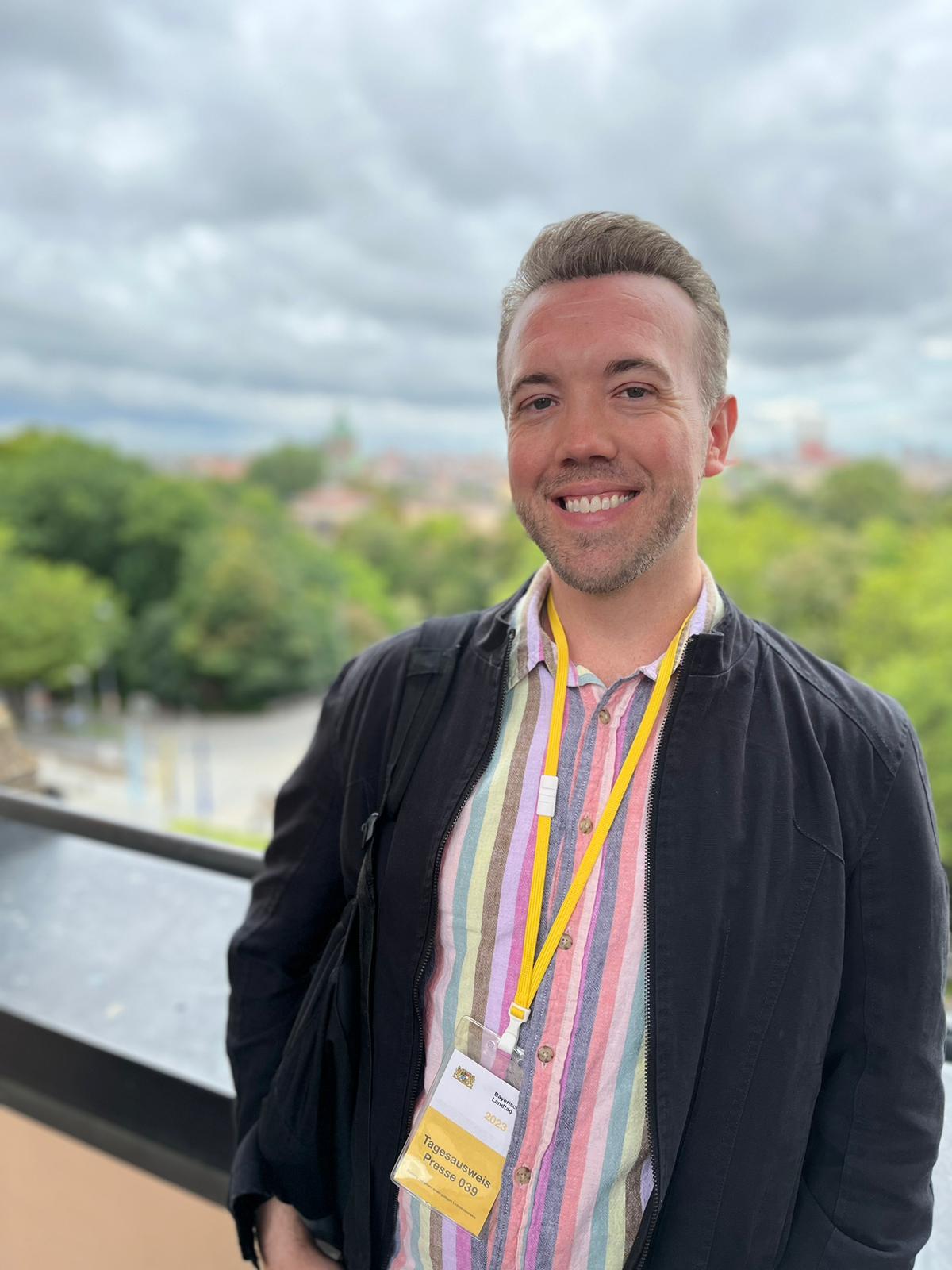
The 2023 RIAS Alumni program was an opportunity like no other for professional broadcast journalists. The VIP access to some of Germany’s top broadcast networks and political figures was unparalleled. Spending time in Cologne and Munich has helped to create lifelong connections with my German journalist counterparts. Not only have I learned an immense amount about German politics ahead of the Bavarian elections, I now have a network of new German journalists that I can reach out to when working on stories regarding their country and Europe overall. This kind of access and networking is invaluable and extremely unique thanks to the RIAS program. I walk away from this incredible experience with new understandings of German culture and politics. And I look forward to continuing the dialogue on both sides of the Atlantic with the lifelong relationships I’ve forged through RIAS
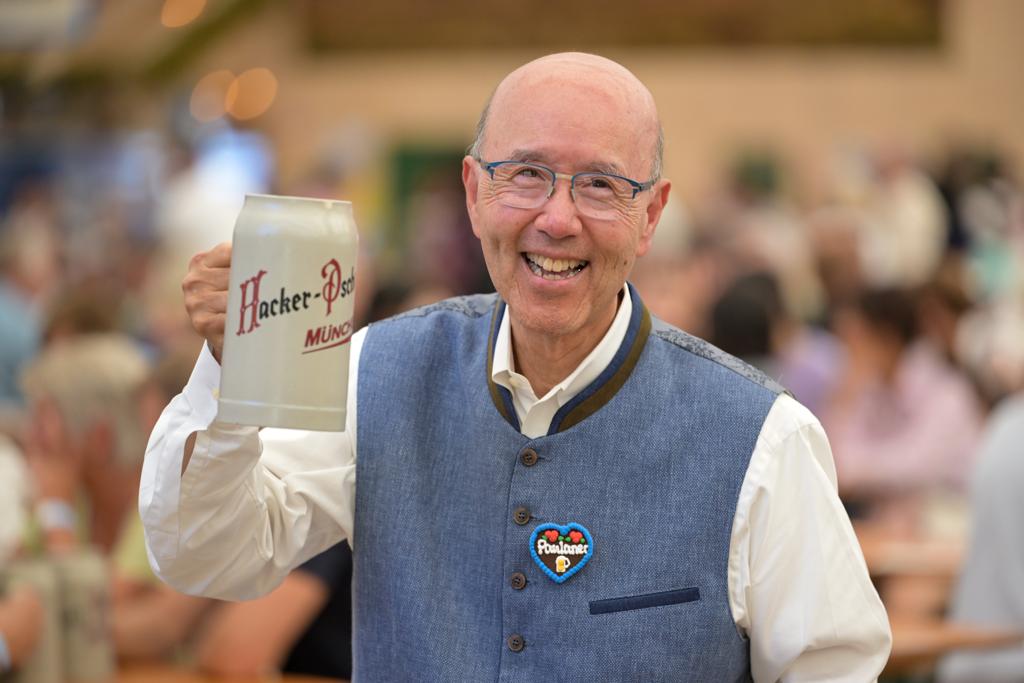 David Louie, San Francisco, California
David Louie, San Francisco, California
The true value of RIAS is greatly enhanced by the alumni program. Having first participated in 2007, so much has changed in Germany. At that time, Germany was dealing with cultural and social issues arising from immigrant workers from Turkey. Now it faces a new wave from Ukraine. To see today how Turkish immigrants are now entrepreneurs with doner kebab stands (along with currywurst on the menu) and other ventures reflects progress in integration and opportunity. To have had a brief encounter with a Ukrainian couple on the U-Bahn reminded me how Germany is continuing to evolve into a more diverse society.
On the media front, American media companies are dealing with the challenges of platform diversification and audience fragmentation. It was illuminating to hear from our German media partners how they are addressing these issues in creative ways, some of which have succeeded and others have not.
As a longtime Silicon Valley tech reporter, the visits to BMW and to the Deutsches Zentrum fur Luft und Raimfahrt were particularly impressive. The use of robotics in auto production has taken significant strides compared to what I saw in 2007 when we visited VW in Dresden. I was especially impressed by the space health research work.
Best of all, it was so exciting to see how old traditions such as Oktoberfest are as celebrated by the young generation as their elders. The alumni experience to me was a valuable first-person update, long overdue, to reacquaint myself with an important ally on many fronts.
Brittany Silverstein, KABC, Los Angeles, California
I feel very lucky to have been selected for this RIAS Alumni experience. Last year at this time, I went as a fellow and it exp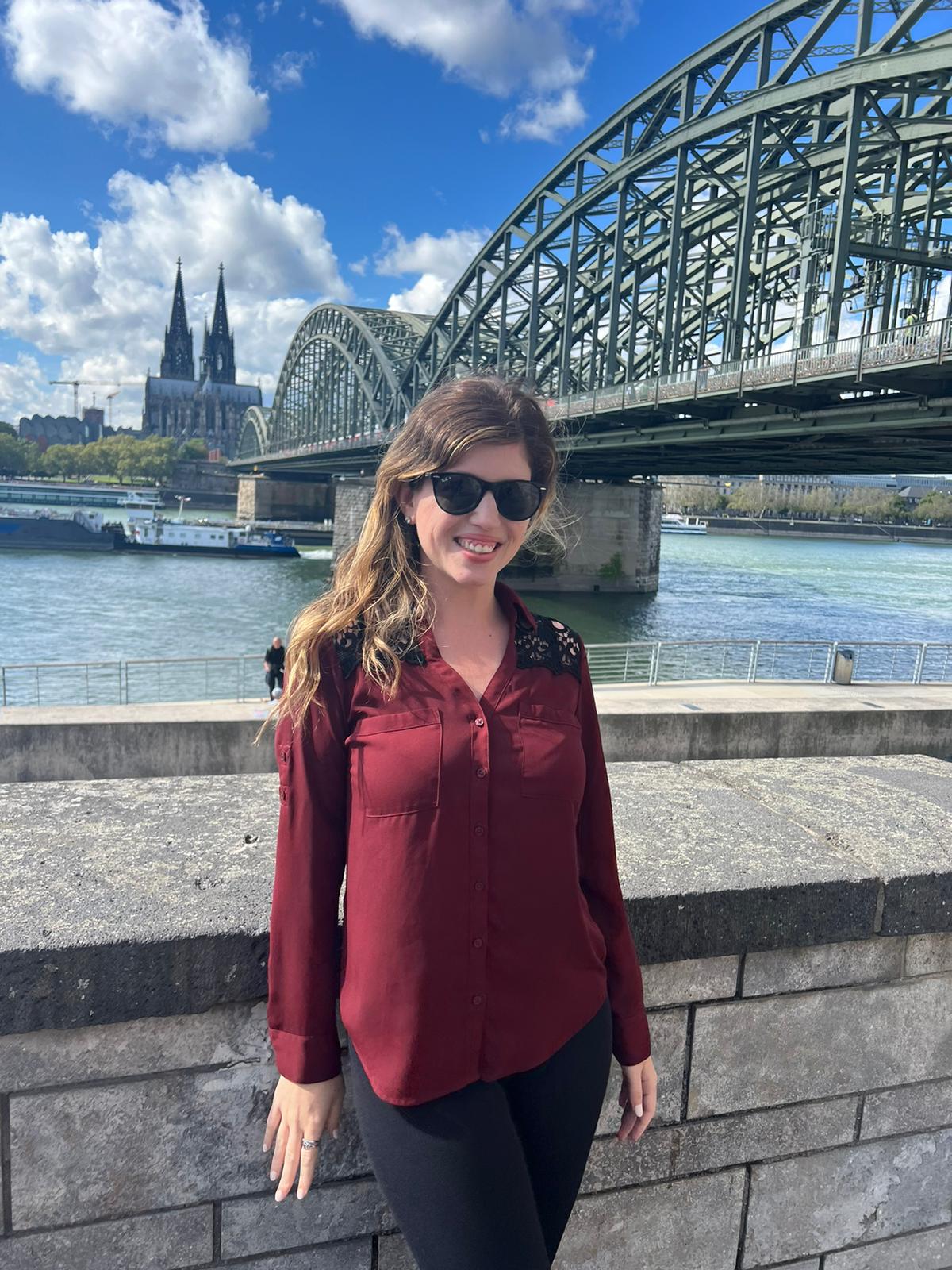 anded my horizons. It made me a better person, both personally and professionally. This year’s trip further expanded my knowledge of Germany as we got to explore Bavaria.
anded my horizons. It made me a better person, both personally and professionally. This year’s trip further expanded my knowledge of Germany as we got to explore Bavaria.
From meetings at BMW to a behind-the-scenes look at a brewery getting ready for Oktoberfest to conversations about religion at a Jewish synagogue, we really got to see different facets of Munich. I really enjoyed our day at Oktoberfest, which still carries old traditions and embraces new ones as visitors come from around the world.
Above all that, what I will remember the most is the people. I loved meeting and networking with other alumni and having good conversations about journalism. It was also great connecting with Cologne and Munich chapter hosts, who welcomed us with open arms to show us their cities. And of course, our awesome speakers that took the time out of their busy schedules to host us for meetings. I also have to give special thanks to everyone at RIAS for their help with the trip. Pam helped keep our group organized. And of course, I have to thank our fearless leader Erik Kirschbaum who worked endlessly to ensure we had the best experience possible… and with his guidance, we certainly did.
For the last two years, what started as a journalism fellowship with RIAS has turned into so much more for me. I met my now fiancé on the trip last year. I’ve made lifelong connections from both trips that feel like family. And now, I’m so excited and inspired to carry the torch and keep the Los Angeles RIAS chapter going.
“Danke schön” for the memories… and let’s keep them going!
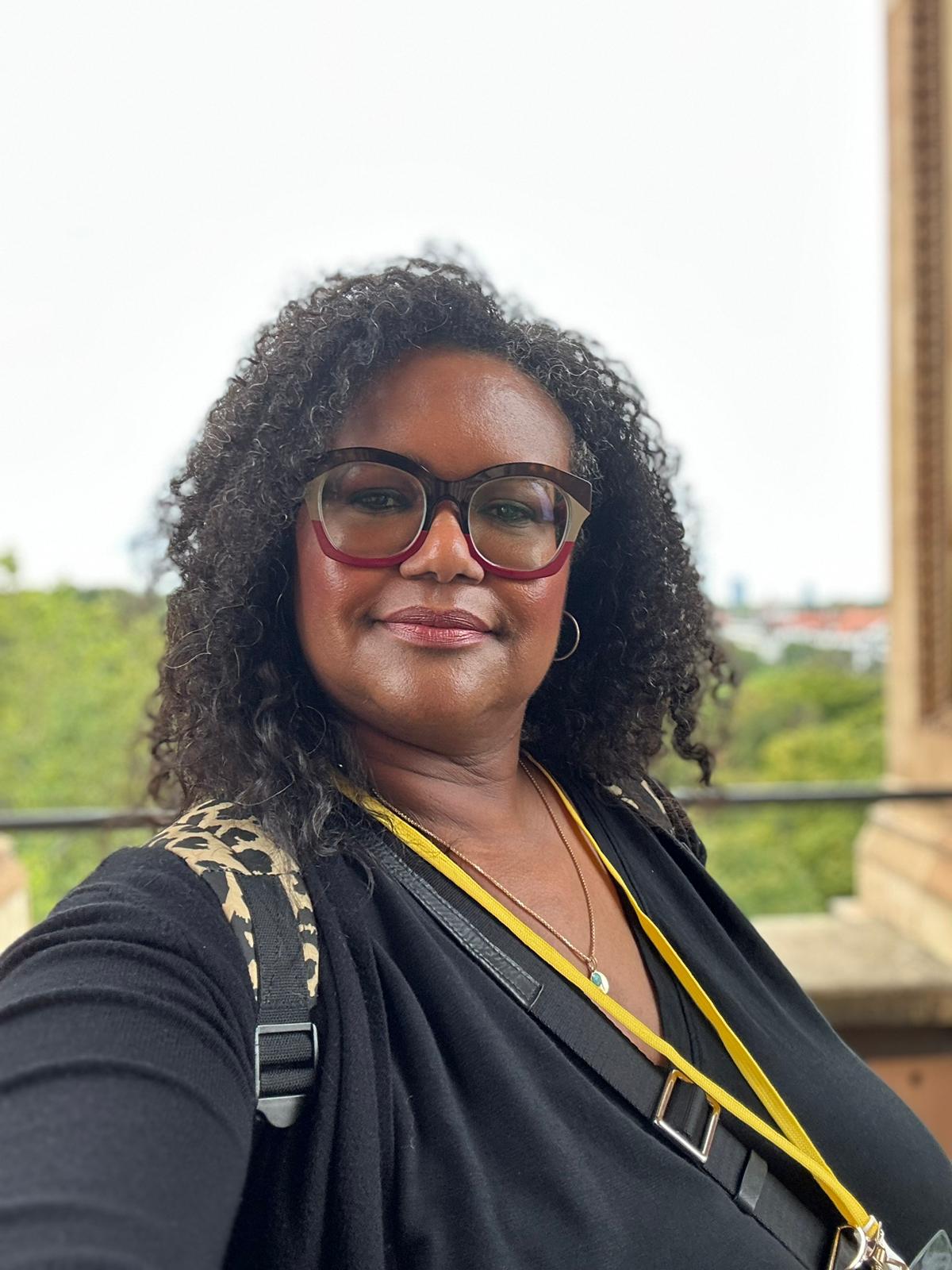 Tiffany Zeno, WNBC, New York, New York
Tiffany Zeno, WNBC, New York, New York
Getting perspectives unlike your own is not just refreshing as a journalist, it is necessary for professional growth. The experience of the 2023 RIAS Alumni trip did just that. It opened new doors to journalism, adventure, and travel. It showed that even though Americans and Germans are very different, we are so very similar. We are dealing with many of the same issues, same feelings and obstacles. That common ground is where we as journalists focus to help improve our communities, our countries and our world. Opening the door is one thing. Being in the room is another. RIAS gives us a seat at the table. Coming out of that room, the diverse group of alumni fellows are more thoughtful. A trait that makes us better storytellers. RIAS continues to lay the foundation of openness, diversity, thoughtfulness, and truth. That’s why I am proud to say that “I AM RIAS”.
Thomas Demane, KTLA, Los Angeles, California 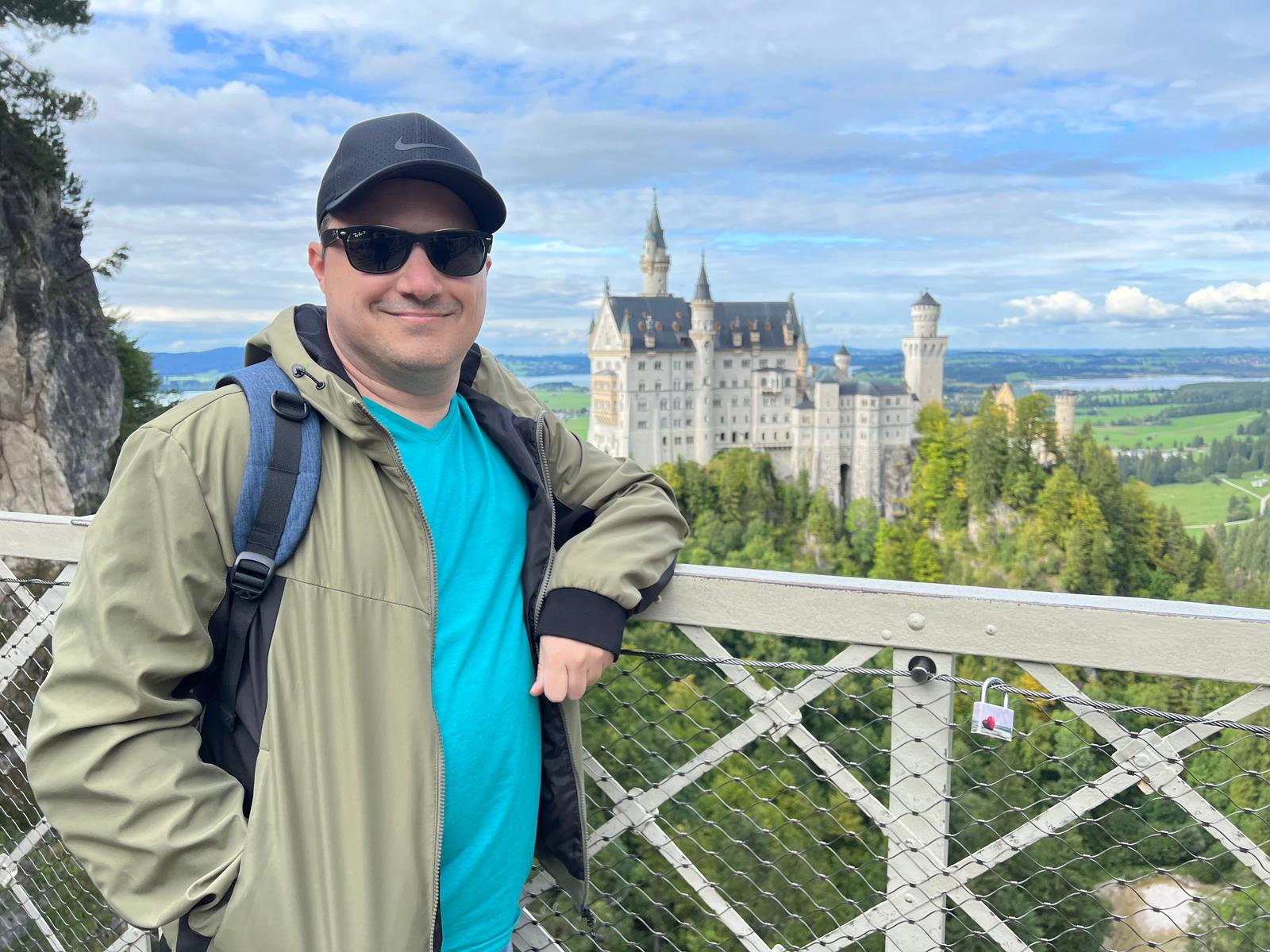
The 2023 RIAS alumni program to Cologne and Munich opened my eyes to realize just how similar our countries are, despite being so far apart. From religious to political issues… from social to climate issues… I gained a profound sense of understanding where Germany stands on things compared to the similar struggles in the U.S. I am forever grateful how this program has brought Brittany and I together, and it also has immensely expanded my network with new friends in all aspects of journalism.. whether it be at TV, radio, digital, print or in the university setting. It was refreshing to see where journalism is today through the eyes of our network, and the leaders we spoke with. At the same token, it was also refreshing to see how journalism is transforming before our eyes for the future. Thank you again, Erik and RIAS team, for another amazing, life-enriching program. Looking forward to many more RIAS programs in the years to come!
 Erika Angulo, NBC News, New York, New York
Erika Angulo, NBC News, New York, New York
I’m grateful to everyone who made the RIAS alumni September 2023 reunion in Cologne and Munich possible.
By bringing a diverse American group together with German journalists, organizers helped us learn from each other. We shared our experiences with reporting challenges, including the growth of AI, distrust in media and diminishing interest in war coverage.
We met with leaders on opposite sides of the political spectrum like the head of the Bavarian State Chancellery Florian Herrmann and the Bavarian state parliament member Katharina Schulze of the Green Party. Everyone we spoke with was generous with their time despite being busy with campaigning for the upcoming elections.
Opportunities to chat directly with lawmakers helped us discuss similar problems our countries face, like the struggle to help migrants without putting too much pressure on local infrastructure. We learned Germany is able to expedite the asylum seeking process to just a few months while the same process in the U.S. takes years.
During our time in Germany it was evident that through face-to-face conversations the RIAS program helps build bridges between our two countries.
Adam Reiss, NBC, New York, New York 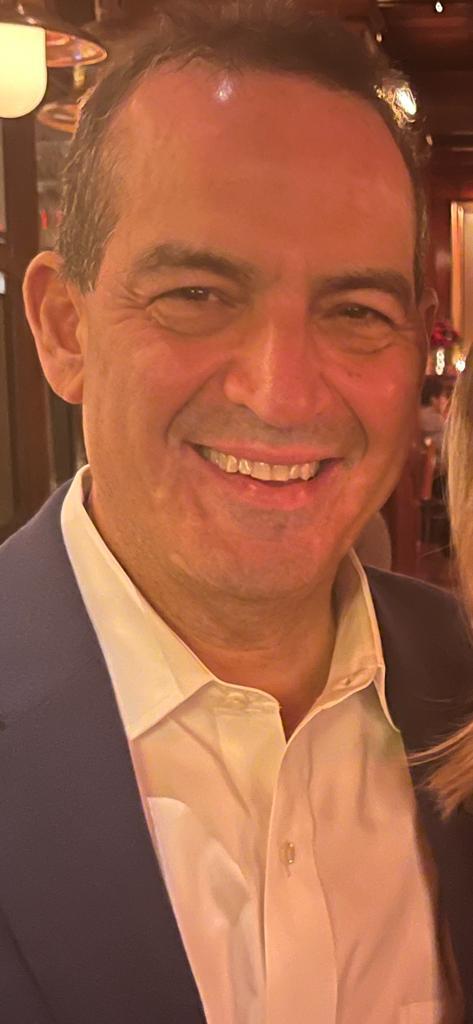
The Alumni trip to Cologne and Munich was something I will never forget. From the BMW factory with its futuristic manufacturing process to the modern Jewish museum in the heart of Munich where I found my roots. The background briefings at the various media outlets were very informative and the story of the political leader who had a satchel with Nazi writings was a fascinating story that I want to learn more about. We were very lucky to meet the political leaders and hear their frank explanation of their personal and political lives. Who can forget Oktoberfest? It absolutely blew my mind. I had never seen anything of this magnitude and excitement. The Paulaner group were incredibly generous and it was a pleasure meeting their staff and learning about the history of their brewery. Our group was cohesive, friendly, and interested in learning and I reconnected with old friends and made new ones both American and German and these are pals for a lifetime. Finally, as I have said many times, Erik Kirschbaum is a great leader. He accomplishes the impossible guiding us through the week of events and keeping us together on a common mission. He’s passionate and always has more to add to educate and give context. Thank you RIAS for a wonderful trip and for allowing me to be a part of this organization.
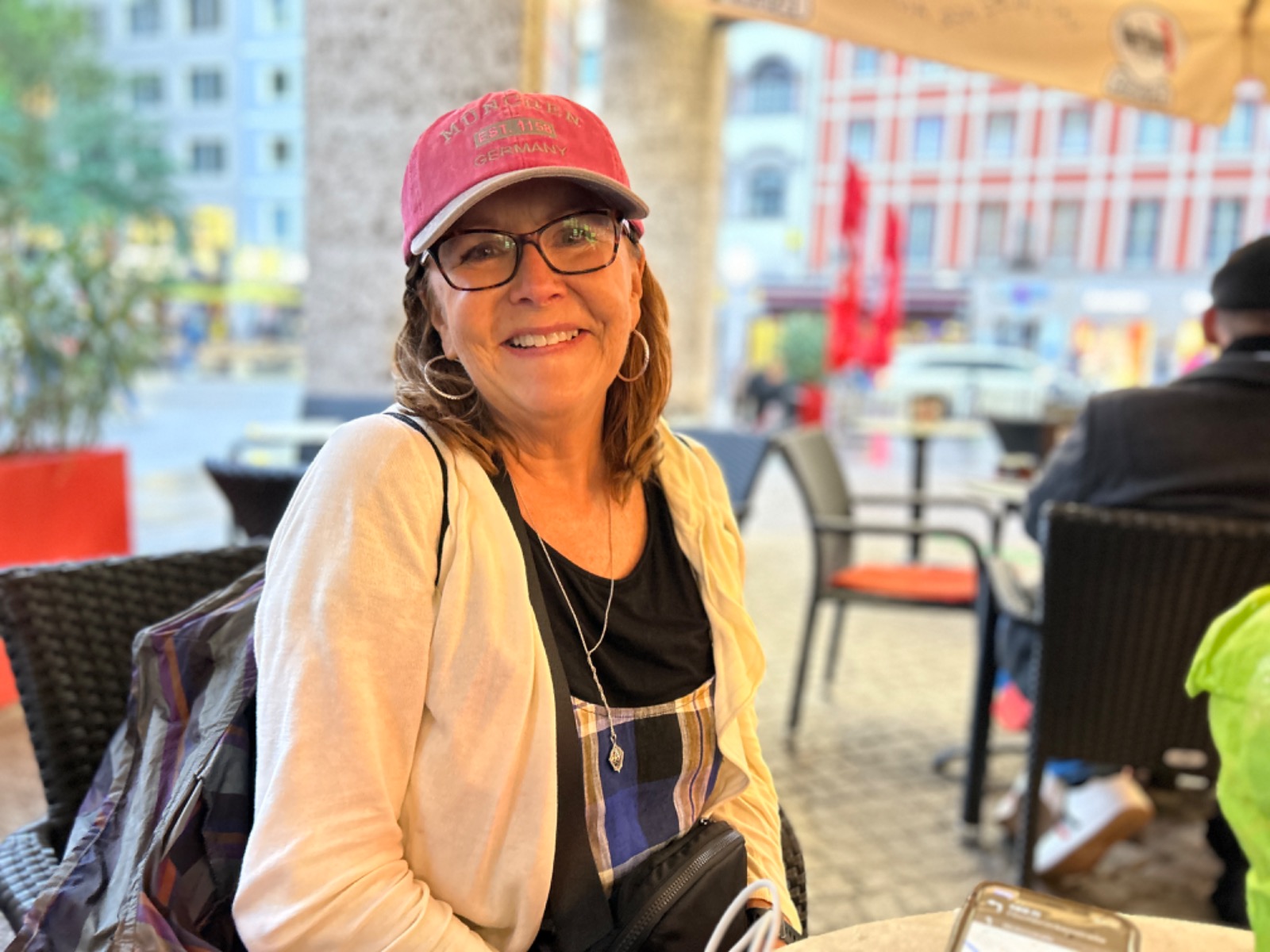 Lucy Himstedt, Evansville, Indiana
Lucy Himstedt, Evansville, Indiana
A once-in-a-lifetime opportunity is something to be treasured. That was the case for me when invited to participate in the 1999 RIAS Berlin program. To be asked to join again nearly 25 years later was quite unexpected and appreciated.
The 1999 experience was my first trip to Europe. It was then that I started paying more attention to the issues of our world outside our borders. As we have become increasingly global, I truly appreciate the confidence it gave me to say “yes” to other possibilities, such as an exchange in Ukraine which obviously proved important 18 months ago.
Many of this year’s experiences were directly relevant to me. It was interesting to see how the BMW facility operates as we have an economically important Toyota plant in our market. Evansville has a large German presence including our Germania Mannerchor social club and singing group, a Fall Festival akin to a baby Oktoberfest, and a Volksfest. The opportunity to experience Oktoberfest first hand was not only fun, but eye opening regarding logistics.
We are also home to two museums stemming from our role in building LSTs and P-47 Thunderbolts during WWII, including the only seaworthy LST in existence. Our visit to Dachau was a sobering reminder that these parts of my community represent a real and tragic time in our shared history.
Most of all, the chance to be a part of this year’s alumni program reminds me that everything good and bad in our world often gets down to relationships – how they’re cultivated, nurtured, and appreciated. I appreciate all of you for your hard work in bringing our shared world together through education and experience.
Joel Waldinger, PBS Wisconsin, Madison, Wisconsin
The 2023 RIAS alumni program afforded me an opportunity to delve deeper into German politics on a regional level. The Bavarian elections are a microcosm of the much larger national issues like immigration, Ukraine, etc. The extremes that are evident in U.S. politics are also having an impact in Germany. It is interesting to see how that will play out and what trend lines continued after the last federal elections in 2021. As one Bavarian said, we are German but yet, we are different, and it was interesting to see that dynamic in Munich. It was also great to reconnect with old and new friends alike who are part of the German RIAS Network. Thank you for the opportunity.
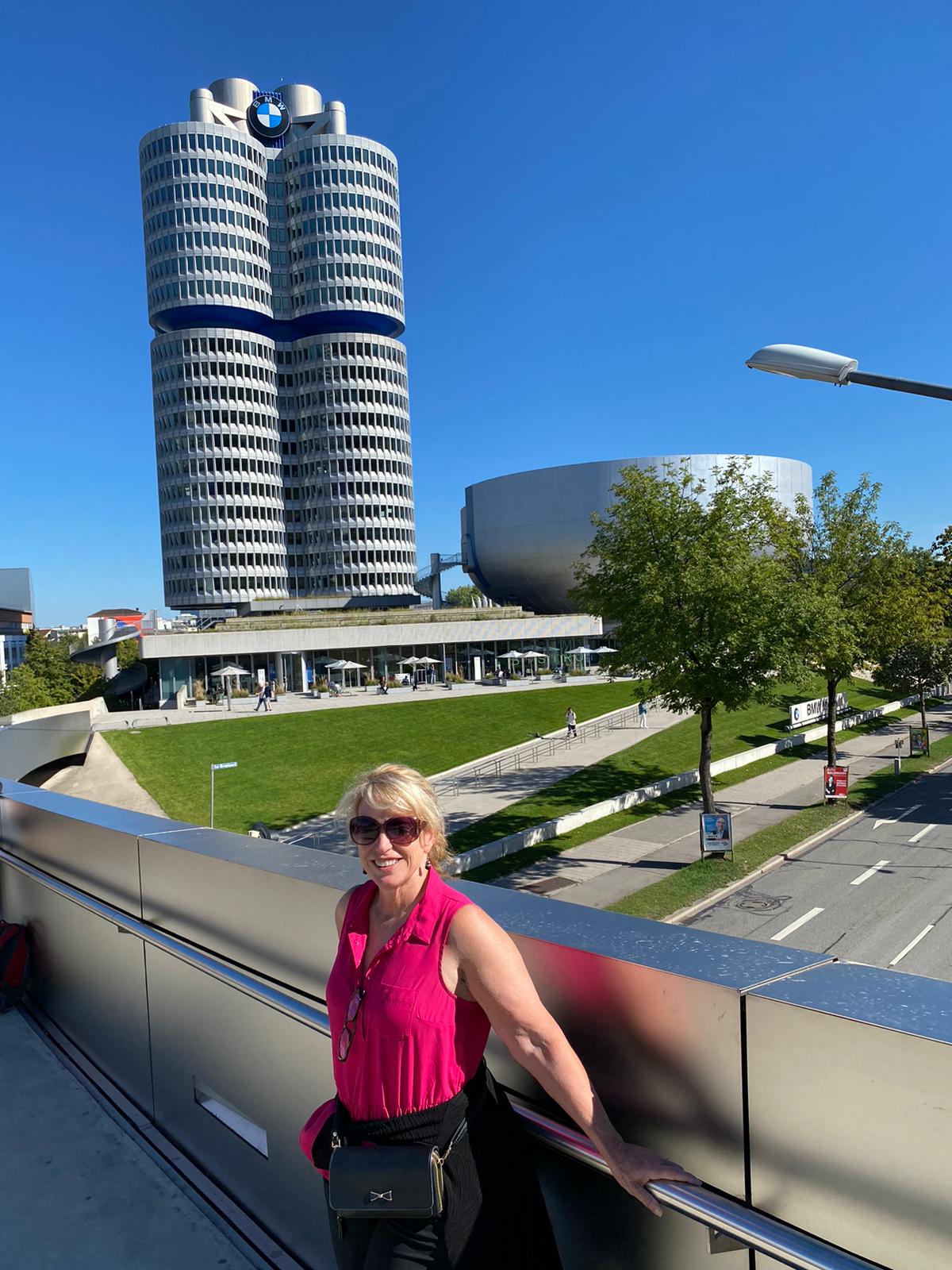 Kristin Emery, KDKA, Pittsburgh, Pennsylvania
Kristin Emery, KDKA, Pittsburgh, Pennsylvania
My RIAS journey began back in 1994 and has continued into a fourth decade involving incredible exchange journeys to Germany from just after reunification to hosting nearly 10 German journalists at local stations in three different states over twenty years and return trips including this alumni gathering. Each experience has been enriching, educational and has fed my mind and soul. You never know where life will take you and I could not have imagined being involved with a better group of journalism professionals. Thank you to the RIAS board, staff and the Cologne and Munich chapters for making this trip possible and amazing. From meeting BMW executives to addressing the upcoming elections and the war in Ukraine to learning logistics of the billion-dollar generating Oktoberfest, this was a wonderful opportunity.
David Wagner, San Angelo, Texas 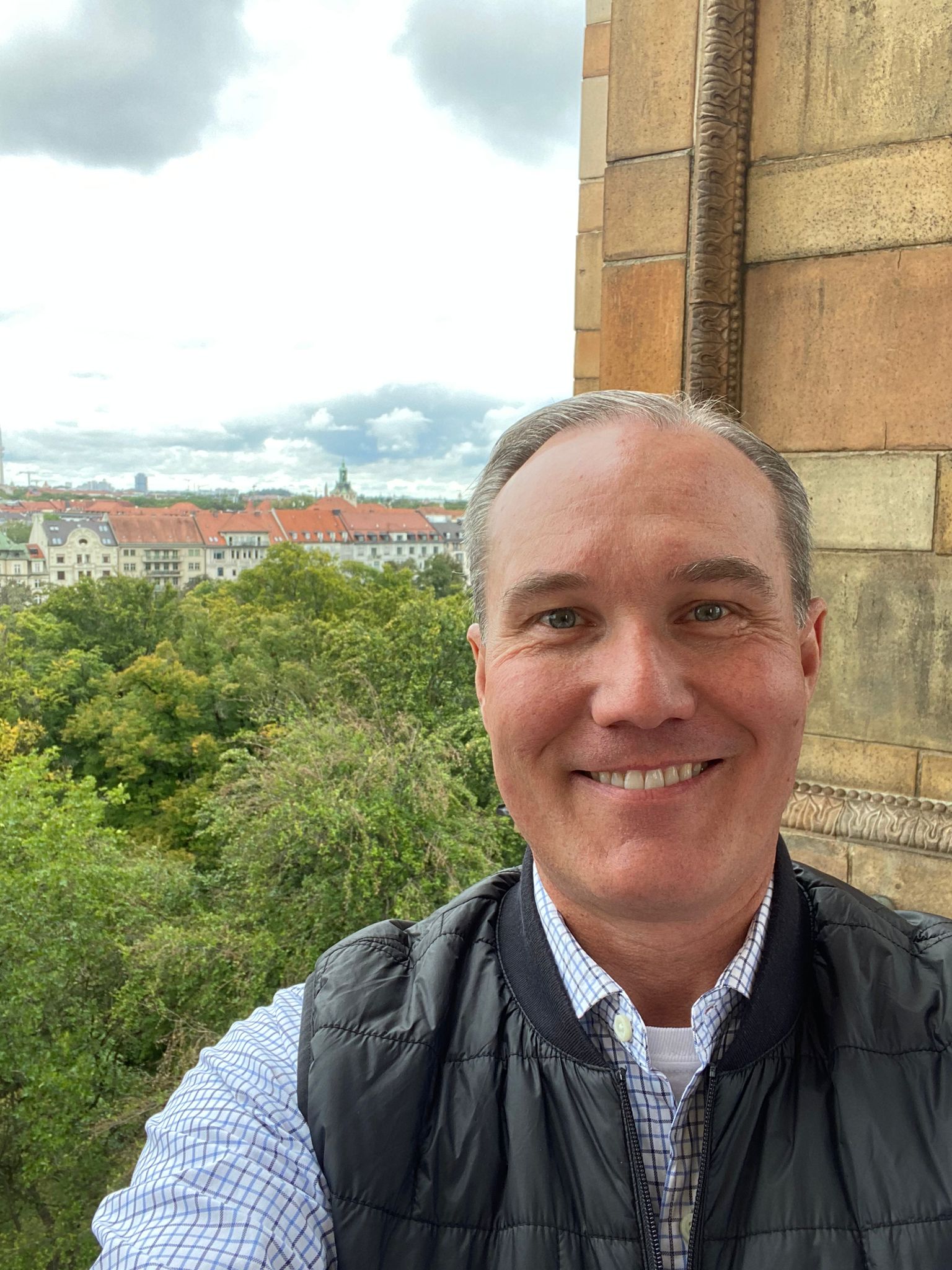
First let me say that people are what make this program. From the RIAS board and staff…to the amazing Germans and Americans who take time to speak to participants…to the journalists who are lucky enough to be chosen to participate.
I first heard about RIAS when I was an anchor, however we all know how it is getting consecutive weeks off in the broadcast business.
So, when I became a News Director in 2011 and then joined the RTDNA board I was reminded of the program and was humbled to be chosen in the fall of 2019. Those two weeks changed so much for me professionally and personally, being that it was my first trip abroad. My colleague and I shot a short documentary while on the program, and were humbled to win the RIAS media prize.
Then being selected for this year’s Alumni program was really the icing on the cake. Even before touching down in Germany other alums, who I had not met previously, reached out and we began connecting to talk travel plans etc.
Returning to a city we stopped in on the initial program allowed me to see people I had met in 2019.
Then seeing a new and completely different German community really helped me to understand how diverse the country really is, similar to the United States. The two Alumni chapters in Cologne and Munich really outdid themselves getting us some amazing and insightful appointments, while showing us the differences in their communities. RIAS will always hold a special place in my heart because of the friendships I’ve made from Germany and those who live in states across the US. So again ALL the people who take part in this program are what makes it the very best!
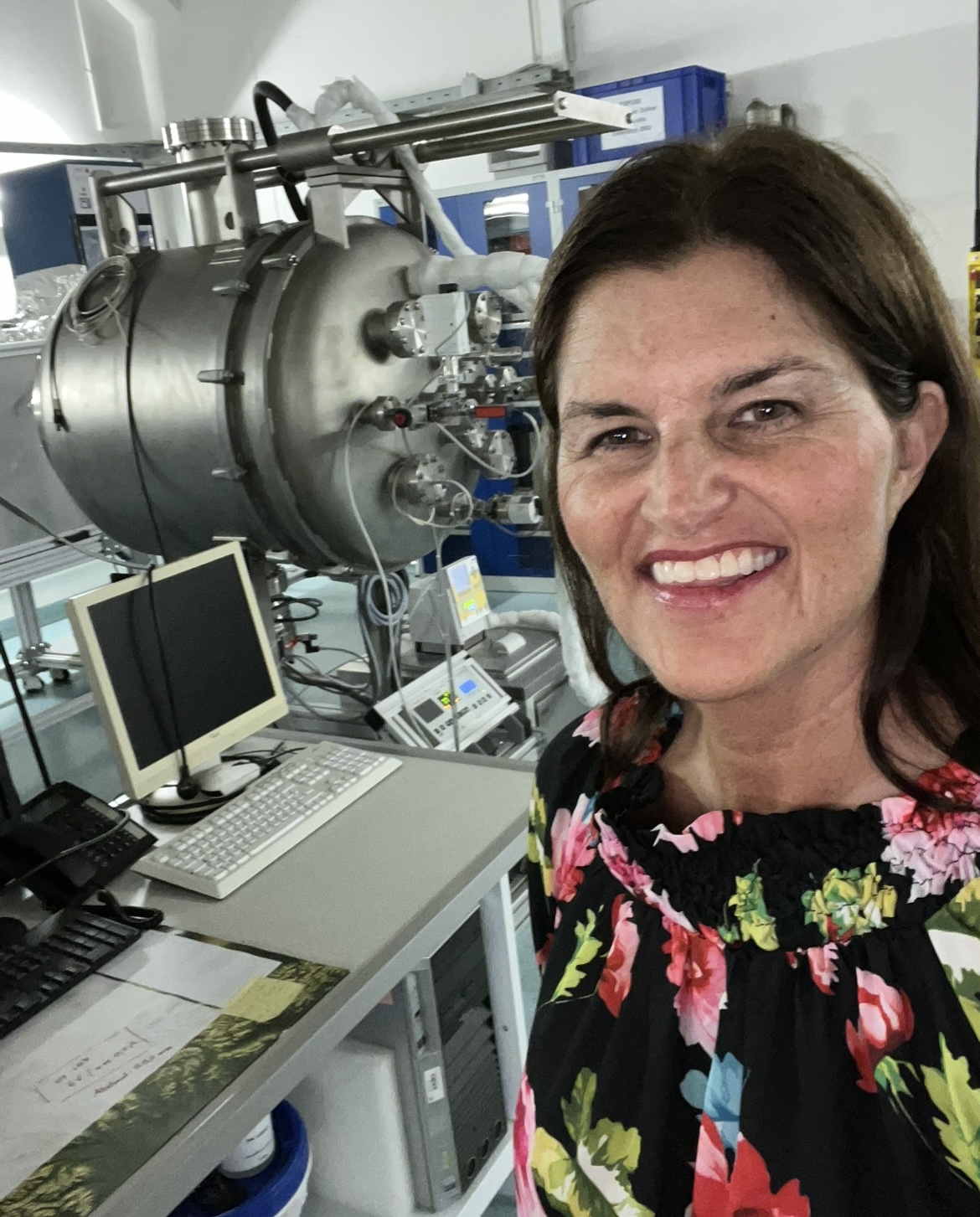 Katherine Bennett, CNN, Atlanta, Georgia
Katherine Bennett, CNN, Atlanta, Georgia
I am truly blessed and honored to be a part of the RIAS Berlin program. The experiences and connections I have made through RIAS are truly priceless.
The alumni program is the backbone of the organization. We help organize and support many of the programs the professional journalists experience. Last year I hosted a journalist from Germany and will help fellow broadcaster Faith host a journalist in Atlanta again this year. Many other RIAS alum across the U.S. and Germany also organize local programs – which are critical to the organization’s growth and development. I am thankful that RIAS supports us in these endeavors.
I look forward to many more positive years with this organization and meeting and reconnecting with RIAS journalists.
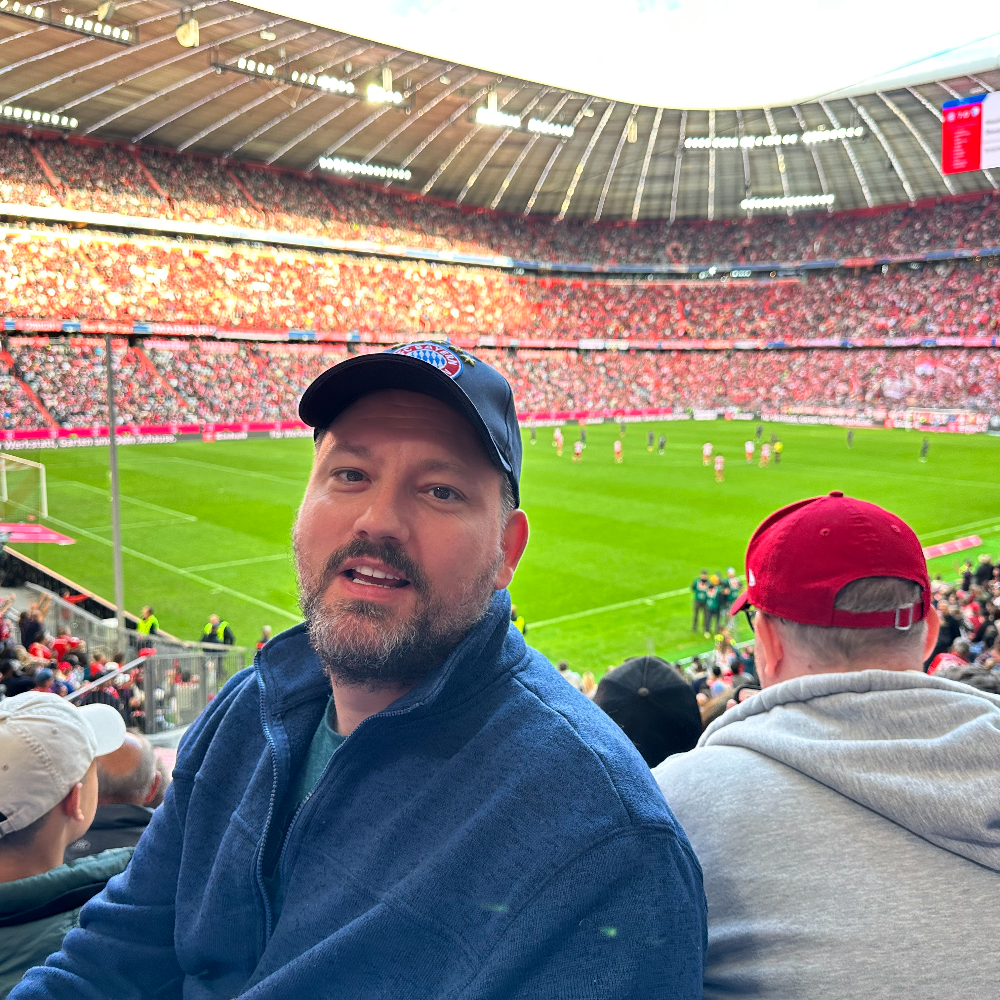 Tyler “TJ” Speicher, Executive Director, Content & Global Operations, WMVision International, Slovenia
Tyler “TJ” Speicher, Executive Director, Content & Global Operations, WMVision International, Slovenia
Experiences.
That’s what journalists are meant to convey to their listeners, viewers, or readers.
What they experienced.
And the last 6 days in München for me were just that: An Experience.
In a city I hadn’t visited in almost 15 years, and one I now live a few hours away from, I had some that I could never have experienced had it not been for the exceptionally hard work of the RIAS München Alumni Chapter. They truly went above and beyond to share their city with us. From politics on both sides of the spectrum, to sports, to how the news business is changing, to…well…BIER, I cannot express enough my gratitude to Susan, Maren, Gregor, & Sven, (and anyone else I missed) for connecting us with Paulaner, BMW (still waiting for my free sample!), FC Bayern München (thanks to honorary member Louisa; Mia San Mia), the CSU, the Greens, Suddeutscher Zeitung, and the Bayrischer Landtag. We saw what goes into protecting and feeding all the revelers at Oktoberfest. And the engineering required to keep that Oktoberfest Märzen the perfect temperature as it goes from tank to tap to Mass to consumer. And I know they were all proud to show us their hometown, having shared experiences with them in mine. To say we had too many sessions to choose from is not a bad thing!
Others have also discussed the connections we have via the RIAS program. And those, too, are some of the most important things we take home from our week in Germany. Unfortunately, I was unable to meet this group in Köln, one of my favorite cities to walk. Instead, I met these folks at the Hotel Obermaier. To say we coalesced quickly, between those I knew and those I was just getting to know, would be an understatement. I’ve made life-long friends in RIAS before, and I continue to do so today. And connections are always important in our field, as someone knows someone who knows someone who can give you a hand, a source, or some content.
So as I return to my “new” life in Europe, I again say auf Wiedersehen to my RIAS friends and family, knowing full well we’ll be across a table singing “Ein Prosit” again before we all know it. Oans, zwoa…
 Ryan Burrow, WGN, Chicago, Illinois
Ryan Burrow, WGN, Chicago, Illinois
When anyone asks what my favorite part of this RIAS alumni trip was, my brain tangles into knots before I clumsily blurt out…”uh…everything!”
The truth is every moment of the nine day trip I was learning, exploring, or connecting in a way that will benefit my own understanding and career.
Every topic we discussed gave me a fresh perspective on my own community (Chicago Cardinal Blasé Cupich is actually viewed as conservative in German standards, especially on LGBTQ rights).
Every place we visited offered a better understanding of life and media in Germany and the world (While crime and courts lead discussions in Chicago, Germans are focused on rising rents and energy costs).
Every bus and train ride or meal with a fellow journalist offered a refreshed view on media outside my Chicago bubble (Gregor, I need you to talk with my company about A.I. ASAP!).
The RIAS team also helped me set up a series of interviews for my Olympics podcast I’ll be rolling out over the next month.
I head back to Chicago armed with a fresh perspective on politics, immigration, energy costs, religion, aerospace, cannabis, public transit, the auto industry, crime, education, labor, Ukraine, beer brewing, sports, and the media industry. I also have infinite new story ideas to share with my team, a dozen new contacts, 30+ new friends from the U.S. and Germany…and a surprising expertise on lederhosen and dirndl fashion.
Picking one single event, conversation or sight as my favorite is a hopeless endeavor. So, yeah…uh…everything!
Dean Kurth, Fox News, New York, New York 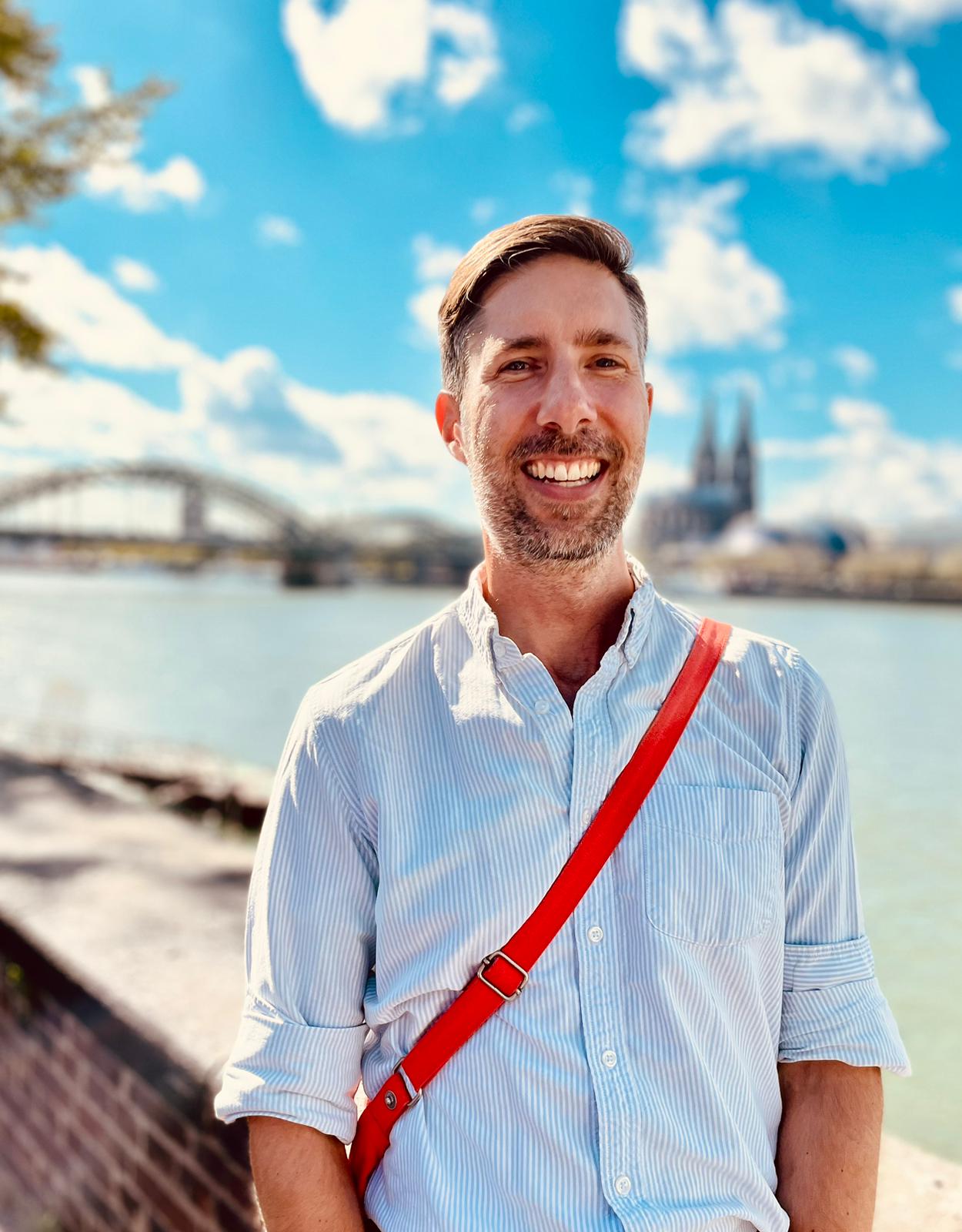
As a mid-career broadcast journalist, the RIAS alumni program in Cologne and Munich came at the perfect time to remind me why I got into this business in the first place and inspire me to approach my work with a renewed sense of purpose. RIAS programs an extensive and wide-ranging agenda providing unprecedented access to various media professionals and politicians. But it also brings together an incredible group of talented journalists whose professionalism, passion and integrity I will aspire to back in my newsroom in the months and years ahead. The unique and varied RIAS experiences are above and beyond any of the media networking events and journalism conferences I’ve attended in the past, and I’m incredibly grateful to have had the opportunity to be a part of such an esteemed, accomplished and FUN group of people. I will be watching and supporting RIAS in any way I can as it continues to support and unify journalists in the ever-changing media landscape.
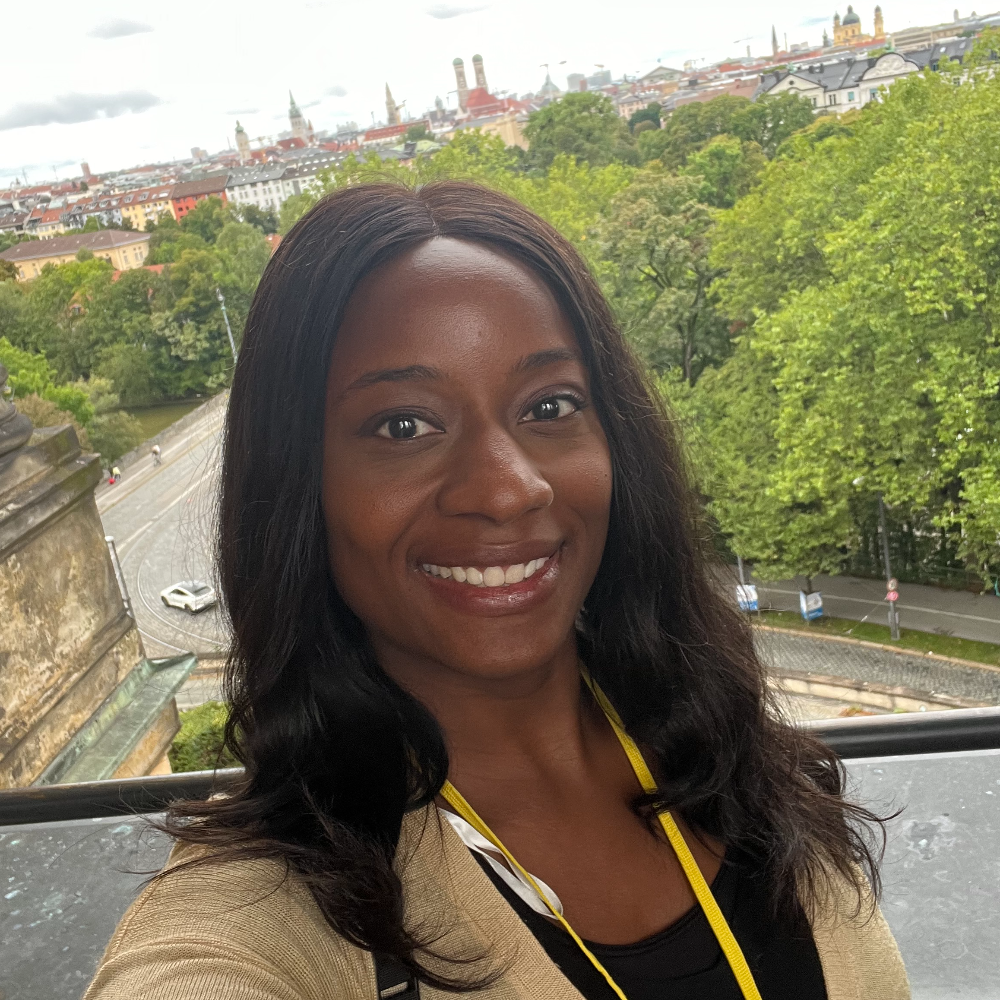 Jessica Prater, CNN, New York, New York
Jessica Prater, CNN, New York, New York
During my first RIAS program in 2018 I met American and German journalists that became an important part of my professional network. Over the years, we kept in touch through social media, zoom calls and email. However, this 2023 Alumni program helped strengthen those bonds even more. The alumni program also gave me experiences that I would only be able to do through RIAS.
A few personal highlights:
I enjoyed meeting with the political science students from the University of Bonn. It was great to speak with the inquisitive young men with bright minds. Their knowledge of American political systems was also impressive.
Meeting Birgit Wentzien, the Editor in Chief of Deutschlandfunk was also something I will cherish. I was expecting this to be more of a lecture and her telling us about her life. However, it ended up being a roundtable discussion of us sharing the issues we are both facing in the newsroom such as increasing diversity and working to capture younger audiences without neglecting the old faithful. This exchange was just as beneficial to her as it was to us. It was great to have that dialogue.
I also must mention I was very impressed by Bavaria’s Greens Party leader Katharina Schulze as she gears up for the October 8th election!
Oktoberfest was mind-blowing! It was fascinating to go behind-the- scenes with Paulaner Brewery and discovering what Oktoberfest means to Bavaria far exceeded any of my expectations. This was also a great moment for the German journalists to show us their culture and why they take so much pride in the celebration.
I must say, my most special moments of the program came from mingling with my fellow journalists and sharing newsroom struggles and challenges. Grabbing coffee together or exchanging resources while having breakfast was most beneficial to me. What RIAS proves is we are more alike than different. I’m so happy to be a part of this alumni program and look forward to working with RIAS in the future.
Maggie Kerkman, Fox News Channel, Dallas, Texas 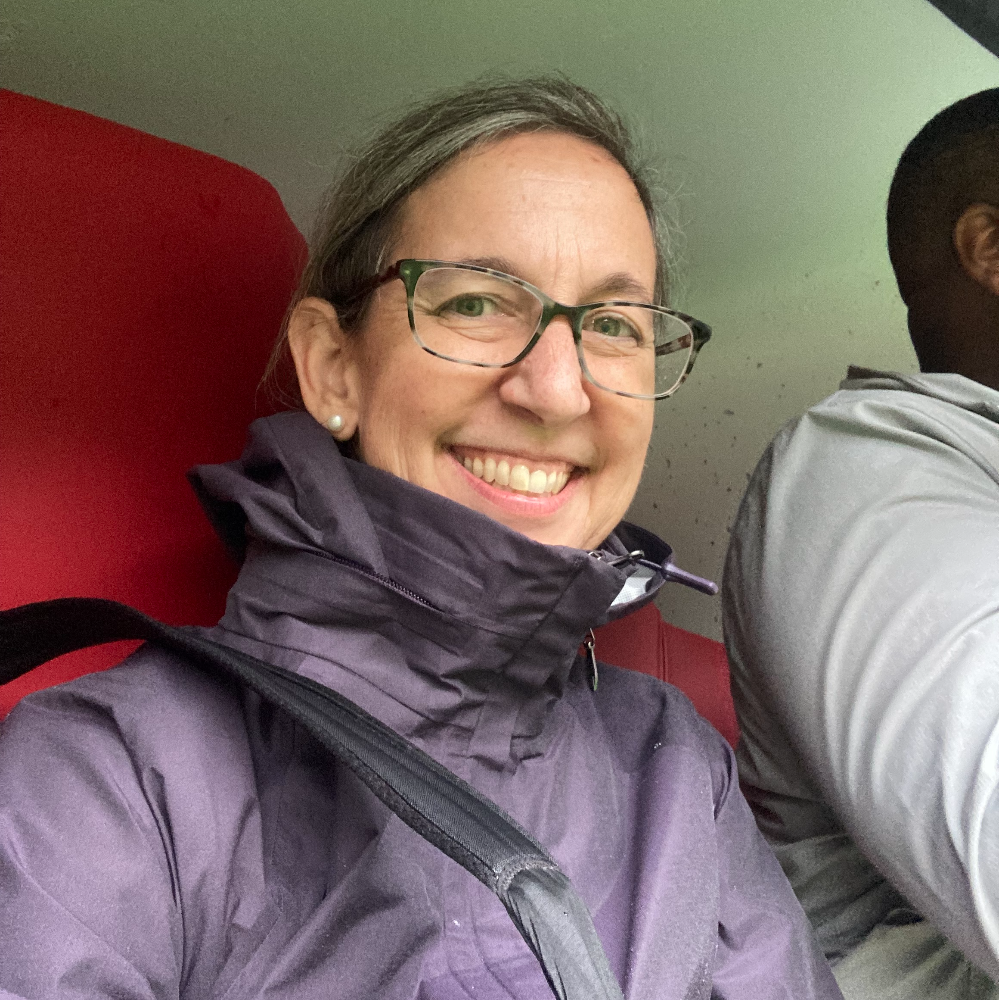
Traveling to Germany on a RIAS trip is a study in similarities and contrasts.
It’s a window into how another country maintains a multiparty system, but as in the US, struggles with a divided electorate and the threat of extremists. It’s also a thought provoker- as our country faces shutdown – would our legislature be more apt to work together and compromise if parties needed to make deals just to get and maintain power?
Some of the issues facing both countries are eerily similar. Front and center is immigration. I could have been at a press conference with a US Mayor or Governor when I heard about the increasing number of asylum seekers, concerns about caring for them all and frustration with the federal government— and home countries not accepting returned migrants.
On the lighter side- there’s Oktoberfest. It felt a bit like the enormous Texas State Fair, but with huge beer halls. A trip to the police office proved fascinating. Police officers were in a room watching high tech cameras aimed at crowds in locations all over the Wiesen. Officers were zooming in and out and around. Yet later we learned that video and others like it could not generally be released to the media, a marked contrast to the US where police departments routinely release body cam and other video – both to assist with crime solving or to provide transparency.
Our colleagues in the media provided a similar comparison / contrast. We heard about declining audiences and the attempt to attract younger audiences and making workflows more “synergistic.” It sounded familiar to many of us in the audience. But we also walked through big bright workspaces that seemed like they could be home to a tech startup, the least of which would be better than any newsroom I’ve ever worked in.
The head of the RIAS program says he hopes it opens eyes— for sure it has done that. We see Germany but also ourselves more clearly.
Jeremy Chen, WVIT, Hartford, Connecticut 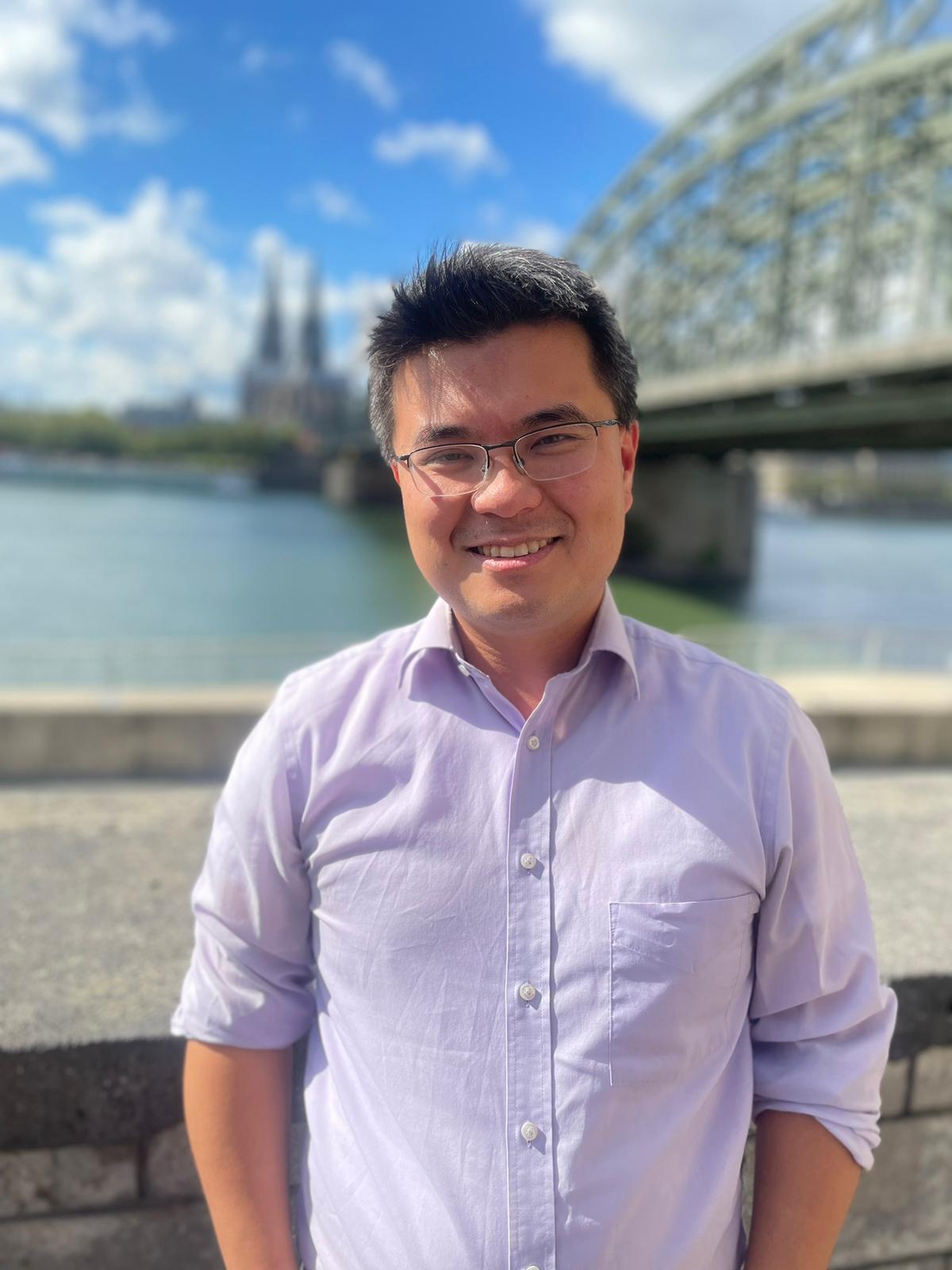
It was again an honor to be part of this year’s alumni group in Cologne and Munich. The conversations that were had during this week were absolutely enlightening and also showed the changing dynamics in a distinct German state, Bavaria and the overall media landscape.
Whether it was exploring the directions public broadcasters are looking to take with more digital offerings while adjusting for current staffing to the importance Oktoberfest is for the Munich and Bavarian economy, it all left a memorable impression on me.
The care Germans have for the quality of journalism, especially on the TV side is especially evident, with allowing for more in-depth pieces, and reporters being able to be paired with crews everyday to accomplish the very foundation of what we do, inform the public. I hope to take these aspects and bring them back to America.
Thank you again for this opportunity.
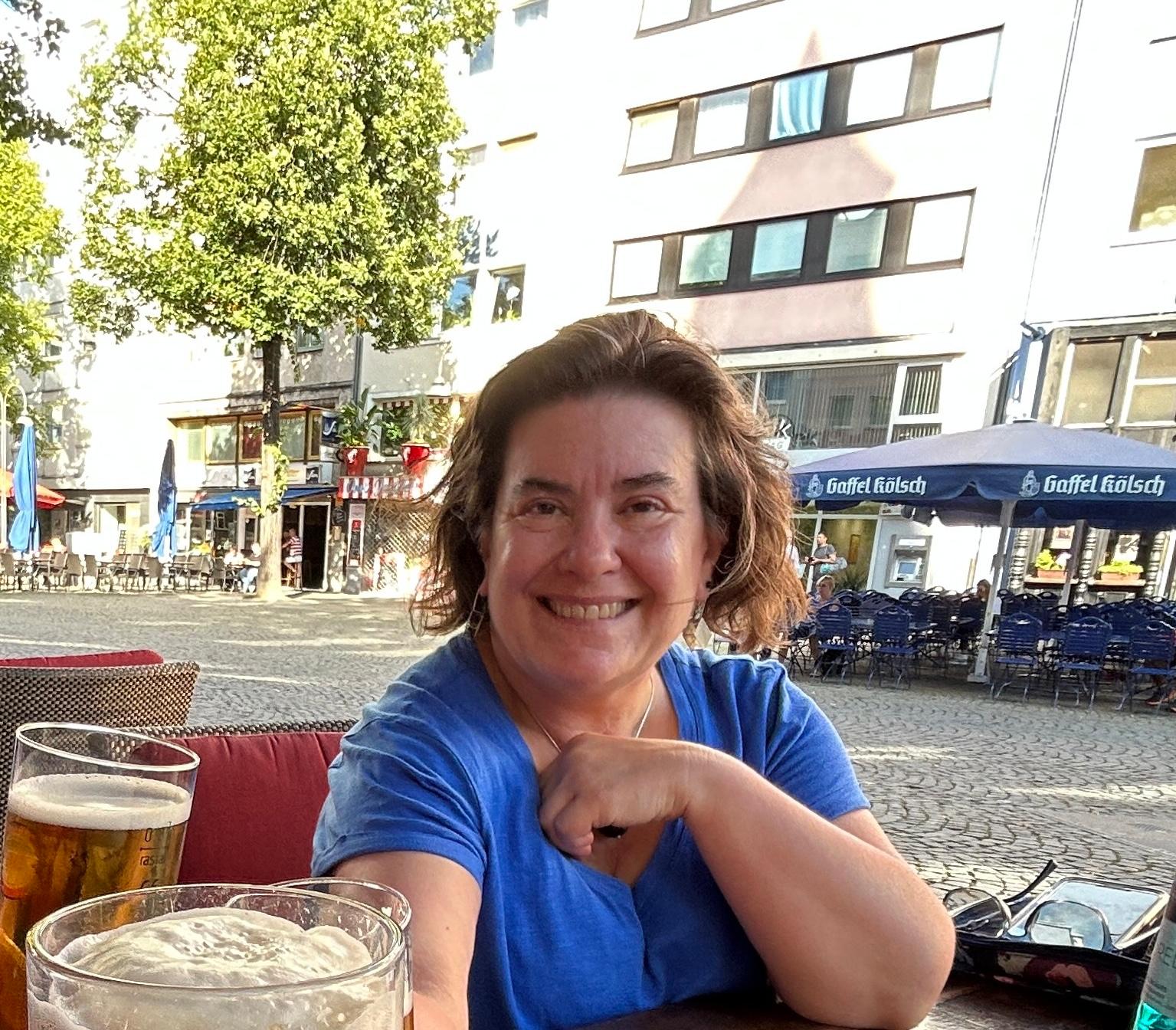 Bonnie North, American Public Media Group, Saint Paul, Minnesota
Bonnie North, American Public Media Group, Saint Paul, Minnesota
Why do we travel? To have fun, sure. But I would say even more to take ourselves out of our everyday lives – to understand, even a little bit, how others see the world.
The RIAS programs are travel on steroids. When I go on these trips (this was my third), my world expands. It takes me weeks to fully absorb everything I learn during the one week we have together. There is no other program I’m aware of that gives journalists access to so much.
From talks with politicians to unique cultural experiences, RIAS gives me insight into how Germans live: how they think, what’s important to them domestically and globally, what they think of the United States, how they celebrate and have fun. This all makes me a better global citizen and a better journalist, and I bring all of that back to my work here.
The German RIAS chapter members go above and beyond to make these brilliant opportunities possible for us. I can’t thank them enough. Additionally, the informal conversations we have with them about journalism are equally important. It’s reassuring we’re facing many of the same issues in our rapidly changing profession. After these chats, I’m more confident we’ll find good solutions to those issues.
Cultural exchange between ordinary citizens has always been a crucial way to advance understanding between peoples. We are a tribal species and it’s all too easy to stay in our safe bubbles. RIAS is a bracing antidote to cultural complacency and lazy thinking. Long may it wave.
Joe Sampson, Miami University, Oxford, Ohio 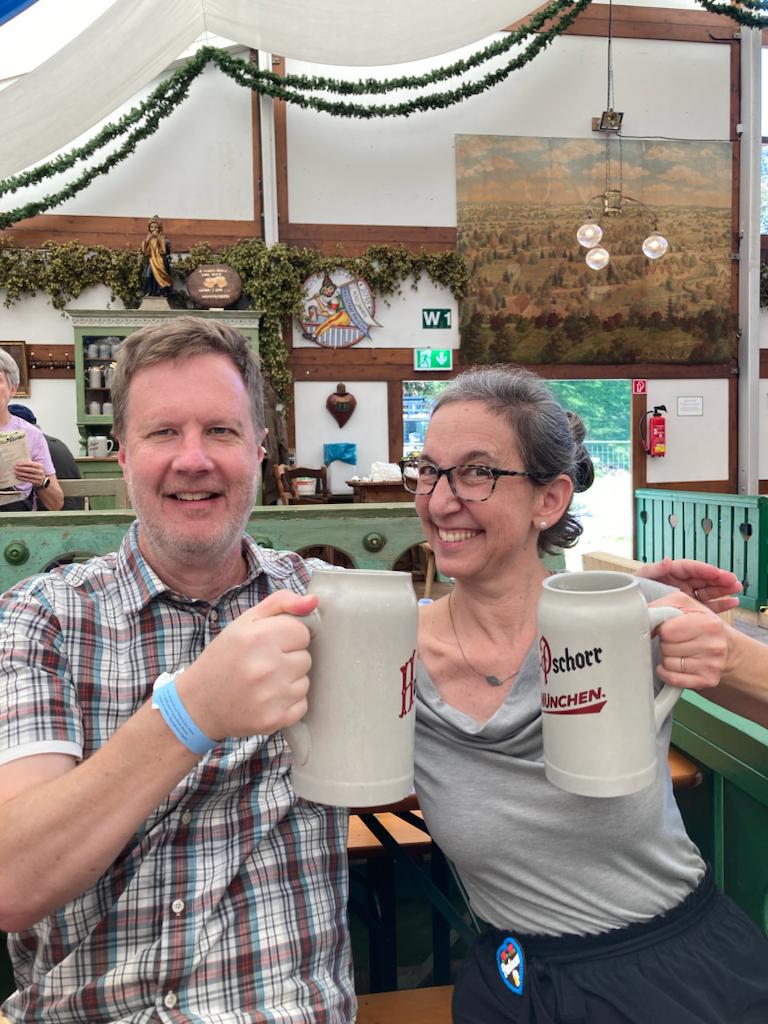
RIAS has a long history of providing participants with unmatched access to German policy makers, industry leaders and working journalists. That proved to be true once again during the September 2023 alumni program in Cologne and Munich as American guests enjoyed visits to newsrooms in both cities, enriching and candid conversations with members of the CSU and Green parties (as they campaigned for seats in the upcoming Bavarian government elections), along with visits to the famed BMV assembly line in and the famous Paulaner brewery during Oktoberfest in Munich.
And yet for me, the quieter moments proved most rewarding and proof of the wide range of lessons to be learned through active listening. A small group gathered at a synagogue in Munich where RIAS alums learned about the progress made and work yet to be done to improve relations between Germans and Judaism . In Cologne during a visit to the German Space Institute, we saw firsthand how at a time of increased global isolation, countries are working together to advance science and technology for the betterment of our shared planet. And for this American educator, a visit to DJS- Germany’s oldest and most widely respected journalism school proved most impactful. Hearing young German journalism students reflect on democracy’s fragility and journalism’s role in meeting its needs- was especially meaningful and inspiring. Those sentiments now fuel me as I return to my teaching duties at Miami University in Oxford, Ohio. My sincere thanks to RIAS for these remarkable opportunities
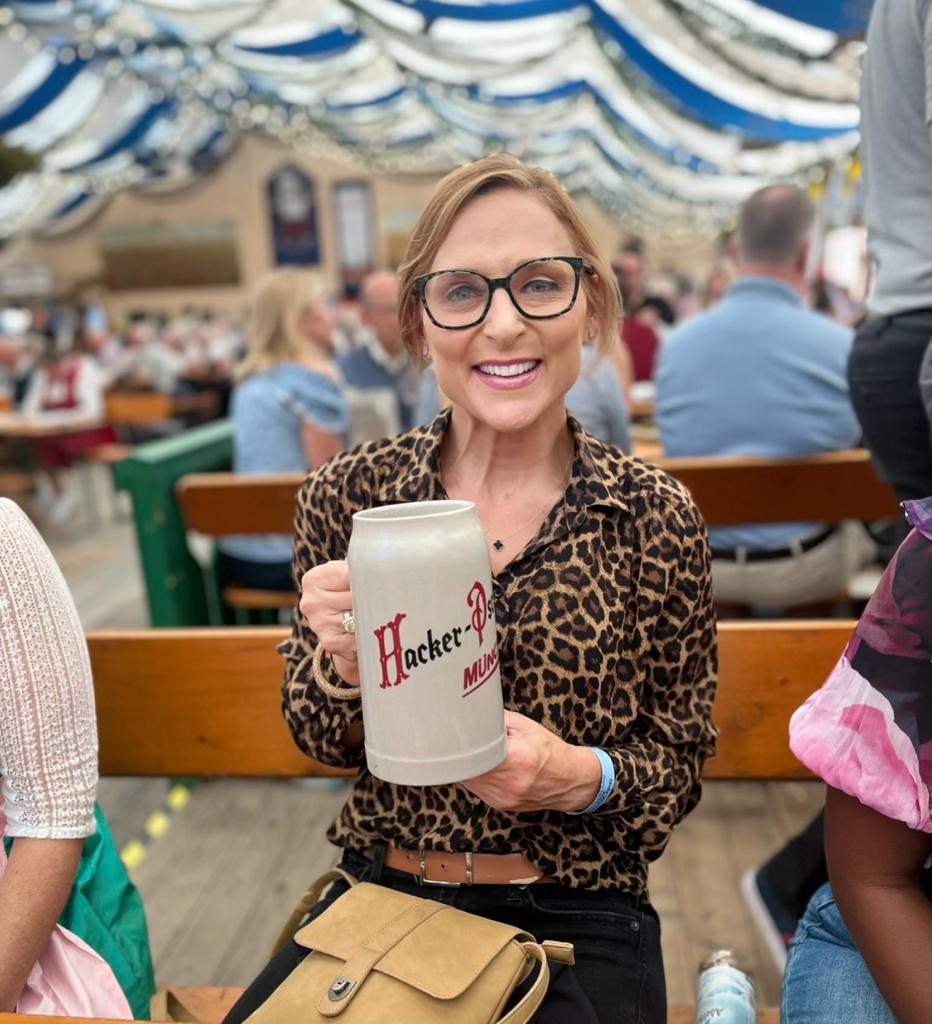 Jill Konopka, Mower Agency, Albany, New York
Jill Konopka, Mower Agency, Albany, New York
15 years after I was accepted as a RIAS fellow in Berlin, in 2008, I was invited back to the alumni program. Our trip to Cologne and Munich was beyond anything I ever could have imagined, and absolutely life changing.
The connections made with fellow Americans and German journalists will help both personally and professionally (and already has). I feel extremely grateful to have been part of a group of such prestigious humans, folks who are insatiably curious, intelligent, thought provoking and diverse in their backgrounds and thought process.
I am still in awe by the time and attention provided to us RIAS fellows, from German politicians in the midst of aggressive campaigning and time running out gearing up for the elections in Bavaria. Hearing parties’ different perspectives and how the government operates in Germany was fascinating and a wonderful learning experience. I think 15 years later, I was able to digest so much more from this trip, having had life experience in between and the foundation laid from my first RIAS trip to Berlin in 2008.
That was also the time I visited the VW plant in Dresden, and the comparison of plant operations there 15 years ago to today, at BMW headquarters in Munich was eye opening. Watching a mostly robotic assembly line in action put plant operations in 2023 into perspective. BMW is so symbolic to Germany and I learned a great deal about how important it is that they continue to be a good neighbor, as they work to update plant operations in a difficult and tedious way.
Having experienced Oktoberfest was my favorite leg of our journey. I loved the culture, people and pride of Oktoberfest. I loved meeting with top brass at the Munich police station and learning about what it takes to keep festival goers safe and secure throughout the duration of the event. As if that wasn’t enough, we also got a rare inside look of the kitchen and beer areas and learned more about the seamless operations keeping festival goers happy. I was amazed by how easy the Germans make it look and how much fun everyone was having in such a crowded yet calm environment.
I had signed up for another session before I found myself accidentally with a group heading to a Jewish synagogue in Munich and meeting with the Director of Communications. Wow, looking back I am so grateful for this opportunity. Hearing about the issues still facing the Jewish community today, in 2023 was eye opening. And I left having gained a much better understanding of the tremendous amount of work still happening within the Jewish community.
I leave so inspired by our German counterparts. How Germans don’t rush things like Americans do. How they are resourceful, strategic and thoughtful in the way they approach work, politics and life. And the fact is many Germans seem to know more about the U.S. than some Americans do. This inspires me to do and be better going forward. Thank you, RIAS!
Terry Anzur, Palm Beach County, Florida 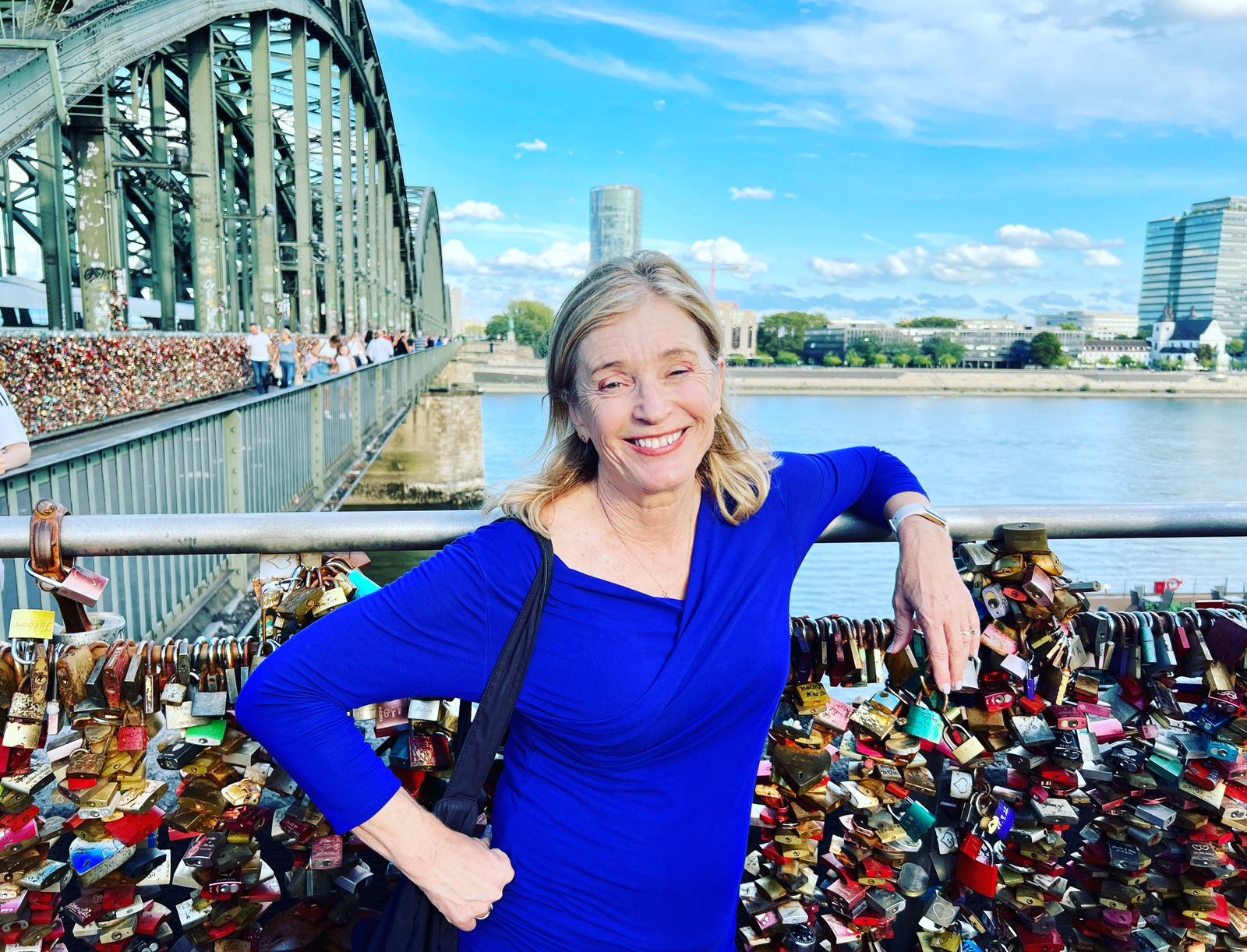
Ever since I began hosting German journalists in the 1990s, RIAS has enriched my life and career path in countless ways. Over the years the top-of-mind issues have shifted from the legacy of World War II and the Cold War to European integration, migration and the environment. The 2023 alumni trip took us from the resilient spires of Cologne’s cathedral and the lofty frontiers of space exploration to the political landscape of Bavarian elections and the historic cultural tradition of Oktoberfest. I even had the opportunity to share the story of a German Jewish immigrant who played a transformational role in the development of TV news in the USA. But the core of RIAS remains the friendship we forge with our fellow journalists, both German and American. The growing alumni network builds a foundation of open minds, open doors and open hearts that is much needed in our changing media landscape. It is an honor to be part of RIAS and promote its benefits to the next generation of aspiring journalists.
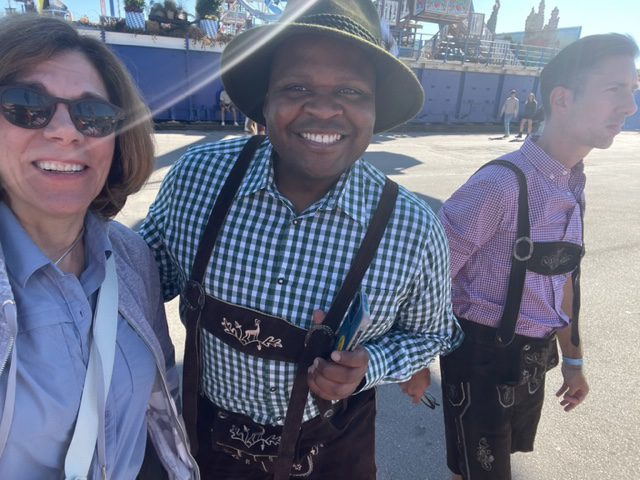 Marilyn Geewax, Industry Fellow at University of Georgia, Atlanta, Georgia
Marilyn Geewax, Industry Fellow at University of Georgia, Atlanta, Georgia
Once again, RIAS has given me an opportunity to deepen my understanding of US-German relations, and I am very appreciative.
No matter how many articles I have read about the difficulties facing the German auto industry, nothing could beat our in-person visit to BMW HQ. Touring that immense factory was a valuable experience for any journalist trying to understand the pressures facing the global auto industry.
And by traveling with the alumni group, I was able to connect with other journalists who have moved into the field of journalism education – or who are considering the switch. We were able to share teaching tips and explore the pros and cons of working as an adjunct professor.
This RIAS trip also provided me with a chance to expand my knowledge of Bavaria’s history – both good and bad. By attending Oktoberfest and then walking around Marienplatz and the Hofgarten, I could see the beauty and charm of this key German city. And then by visiting both Dachau and the Nazi Documentation Center, I could more deeply absorb the lessons of history.
This was an extraordinary trip, and I am grateful.
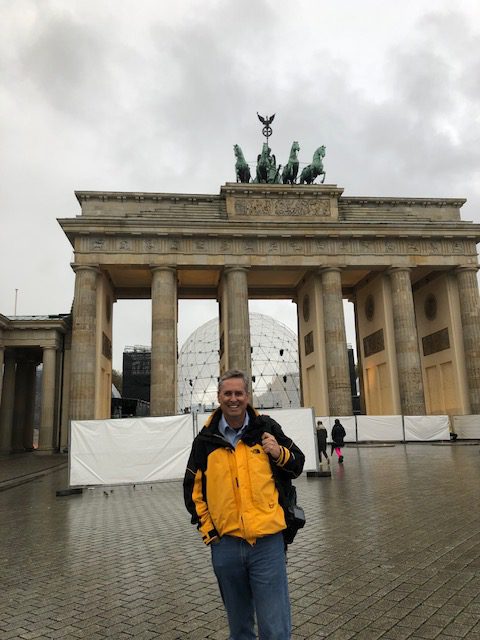 Buzz Conover, Arizona Public Media, Tucson, Arizona
Buzz Conover, Arizona Public Media, Tucson, Arizona
RIAS is an experience that can fundamentally change the way a person views the world. In 2002, I attended my first RIAS trip and my eyes were opened not to the differences between Germany and the United States but to the similarities. In the area of journalism, I quickly learned that it is really the same all over. We are all striving for the same thing, truth and the passing along of information.
But the real value of RIAS comes in the discovery of context. In 2019, I produced a 30-minute radio show on immigration in Germany. That show won the RIAS Media Prize but what was more satisfying to me was the comments I still receive from listeners in Arizona. They were amazed to learn that the struggles to deal with immigrants, assimilation, and new cultures were not unique to the area. The listener’s eyes were opened to the reality that we are all tied together and can learn from one another.
Friendships are also a big part of the RIAS experience. I now count German journalists I have met and hosted as friends and colleagues. I know that I can turn to them with questions about what is going on in the world and they can do the same with me.
The student programs, which I have participated in as a host, are equally as valuable as we work to prepare the next generation of journalists. It helps open their eyes early in their careers to the importance of collaboration and understanding of other cultures.
RIAS is truly a life altering program and I will always be a strong supporter of the program.
Debbie Block, Voice of America, Washington DC 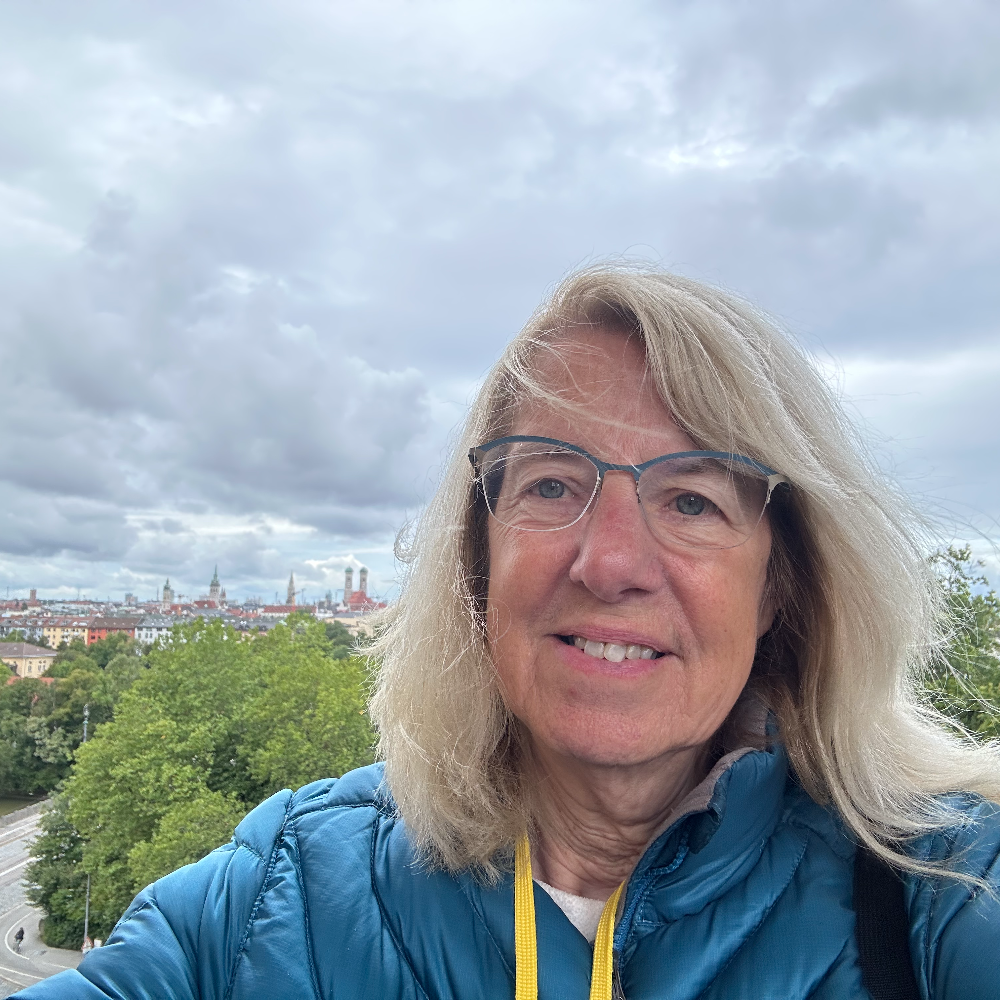
I am very grateful to have attended another RIAS program that has allowed me to be part of an exchange program that has made me a better international reporter for Voice of America, especially when I am including information regarding Germany in my stories.
This alumni program, in particular, has given me additional insight into the current political situation and thinking in Germany, especially concerning the Bavarian elections. I gained more knowledge on where the parties in Germany stand on various issues, especially regarding Ukraine and immigration. I found it fascinating to learn which politicians and parties are in agreement on these issues and those that are far apart. What comes across to me is the influence Germany has on immigration in Europe, and perhaps concerning Ukraine as well.
I also learned a lot during other parts of the program, such as during my visit to the German Space Agency, where an enthusiastic microbiologist told us he was looking forward to the day when he could examine dirt from Mars. And while touring the BMW plant, as well as the Paulaner Brewery, both of which were very interesting, I gained more knowledge about Germany economically.
I also appreciated getting a better understanding of the culture of Bavaria during the Octoberfest celebrations. When I did an interview with a representative from Paulaner, he provided a heartwarming explanation about the importance of Octoberfest to his heritage.
I think the alumni program is important because it allows seasoned journalists to continue getting a more in-depth view of Germany by coming to the country. And also, importantly, to maintain friendships with both American and German journalists, as well as making new friends. Thank you RIAS.
RIAS Accompanying Official
Erik Kirschbaum, Executive Director RIAS Berlin Commission, Berlin
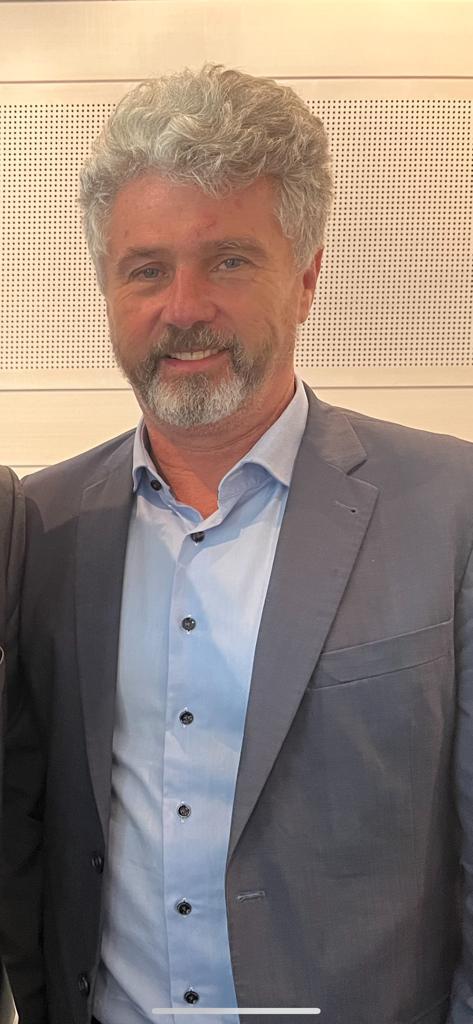 The idea that led to the creation of the RIAS Berlin Commission alumni programs started innocently enough with an innocuous question at RIAS Berlin commission board meeting a few years ago — when a senior diplomat at the USA embassy in Berlin and RIAS board member asked my predecessor: “Can you do more for the alumni?“ A few months later, when it was suddenly my job as the newly elected executive director to come up with answers to that, that I came up with an idea to tap into the enthusiasm across Germany and the USA for RIAS.
The idea that led to the creation of the RIAS Berlin Commission alumni programs started innocently enough with an innocuous question at RIAS Berlin commission board meeting a few years ago — when a senior diplomat at the USA embassy in Berlin and RIAS board member asked my predecessor: “Can you do more for the alumni?“ A few months later, when it was suddenly my job as the newly elected executive director to come up with answers to that, that I came up with an idea to tap into the enthusiasm across Germany and the USA for RIAS.
And that’s how these energy-filled RIAS alumni programs started. Instead of taking the usual smaller groups of 10 or 12 journalists, now about 30 or more former participants come together for one packed week of meetings to explore what is going on in Germany or the USA these days or explore what has changed since they first took part in a full fellowship years or decades earlier. The alumni members cover about half the costs themselves, paying their airfare from their own pockets to help keep costs to a minimum, and thus make it possible to put together these really ambitious educational programs for 30 people instead of just 10 or 12.
On paper, it all sounded like a reasonable idea with some potential. But in reality, it has turned out to be infinitely more interesting, more valuable, and more enriching for the participants — and me too — than I would have ever imagined. Because they come so hungry to learn new things about Germany, because they already have a good understanding about how challenging the RIAS programs are, and because they are so eager to network amongst themselves and with our German-based alumni, the RIAS alumni programs have turned into a thoroughly enjoyable and deeply rewarding experience for the participants themselves and for the organizers as well. There is no shortage of new connections, new friendships and new ideas.
And these six alumni programs since 2019 have also greatly helped strengthen our alumni networks that are so eager to return something to RIAS by hosting visiting Americans or Germans, by helping put together even better programs for the next group of visiting Americans or Germans, and to really stay connected to the RIAS Berlin Commission network.
Thanks to the 32 Americans who traveled with me around and from Cologne to Munich and around Munich all last week to learn more about Germany — and themselves. It was a joy to be part of this.
September 27, 2023
Pam Ortega named RIAS Alumna of the Year 2023
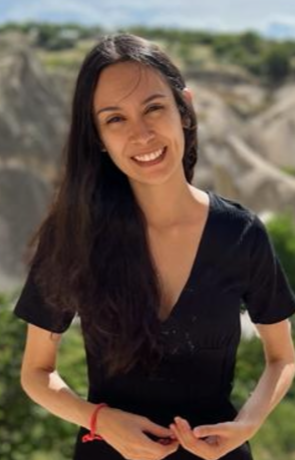 and German journalists and students together. Ortega participated in the original RIAS student program for Americans in 2018 and took part in a RIAS standard program in 2022.She has helped RIAS organize its programs for German journalists and students in the United States and worked hard to help American journalists and students get ready for the fellowships to Germany.
and German journalists and students together. Ortega participated in the original RIAS student program for Americans in 2018 and took part in a RIAS standard program in 2022.She has helped RIAS organize its programs for German journalists and students in the United States and worked hard to help American journalists and students get ready for the fellowships to Germany.unanimously selecting Ortega from a field of six finalists from Germany and the United States for Alumni of the Year honors
September 25, 2023
RIAS Berlin Commission director to step down, search for replacement starts
Erik Kirschbaum, the executive director of the RIAS Berlin Commission since 2016, said he will be stepping down by the end of the first quarter in 2024 after leading the German-American exchange program for broadcasting journalists for the last seven years. The number of exchange programs to Germany and the United States has nearly doubled from five to eight since 2016 and the number of American and German journalists traveling across the Atlantic to learn more about each other’s countries has also doubled from around 50 each year to about 130 per year.
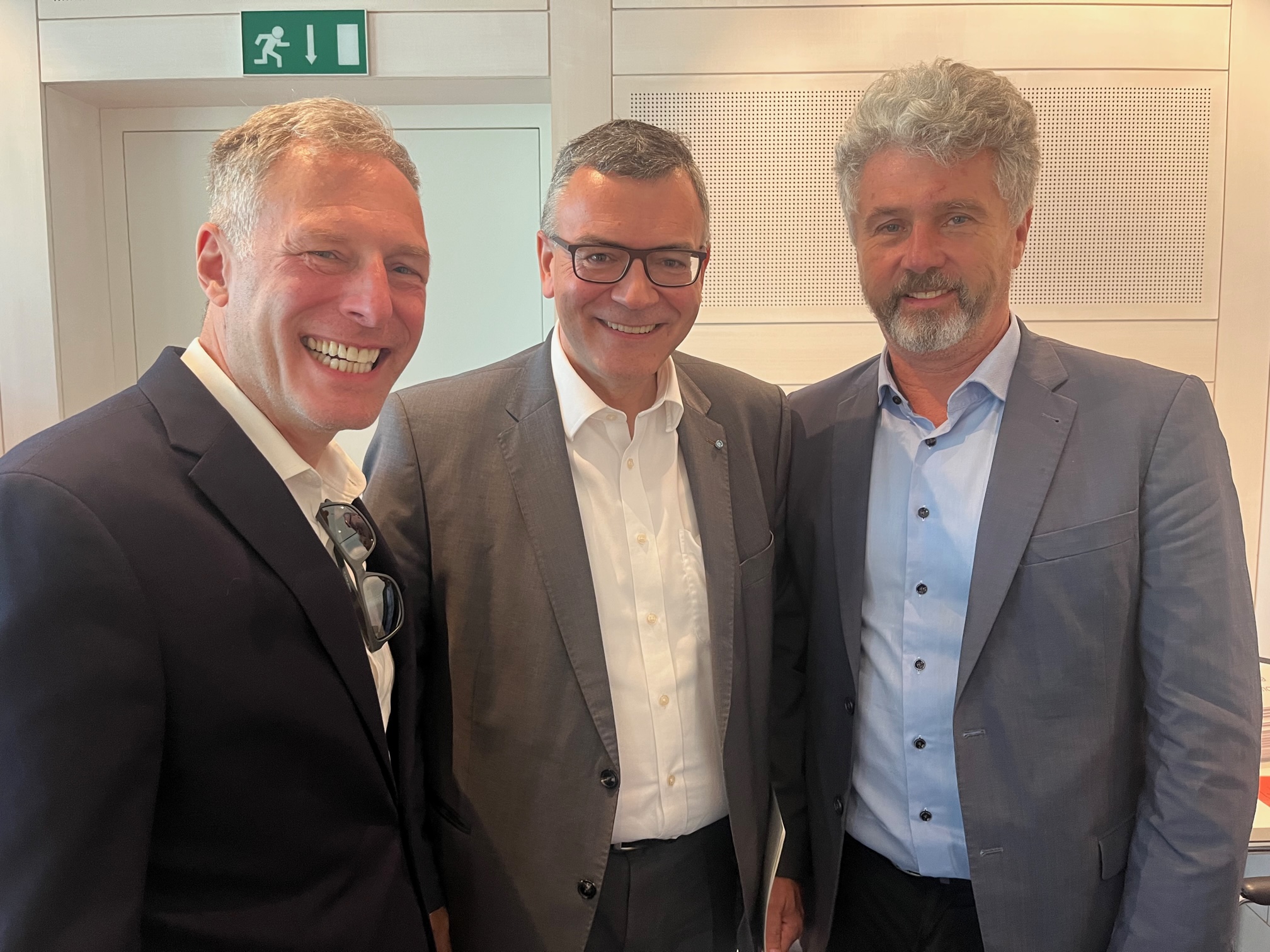
The German-American exchange program based in Berlin announced it has started a search for a new executive director for the Berlin-based binational organization. Candidates for the position with a target starting date in early 2024 can write to info@riasberlin.org for further information and further details about the opening will be published shortly.
“It’s been a great honor to lead the RIAS Berlin Commission over the last seven years,” said Kirschbaum, who also served as a member of the 10-person RIAS board from 2013-16 and was a guest speaker for RIAS programs since 1997. “I appreciate the board’s support for all the reforms we made to strengthen RIAS, and I will cherish the alumni network for all the energy the journalists have poured into improving our programs.” Kirschbaum, 63, said he plans to focus on journalism and writing again as well as further develop renewable energy and property projects.
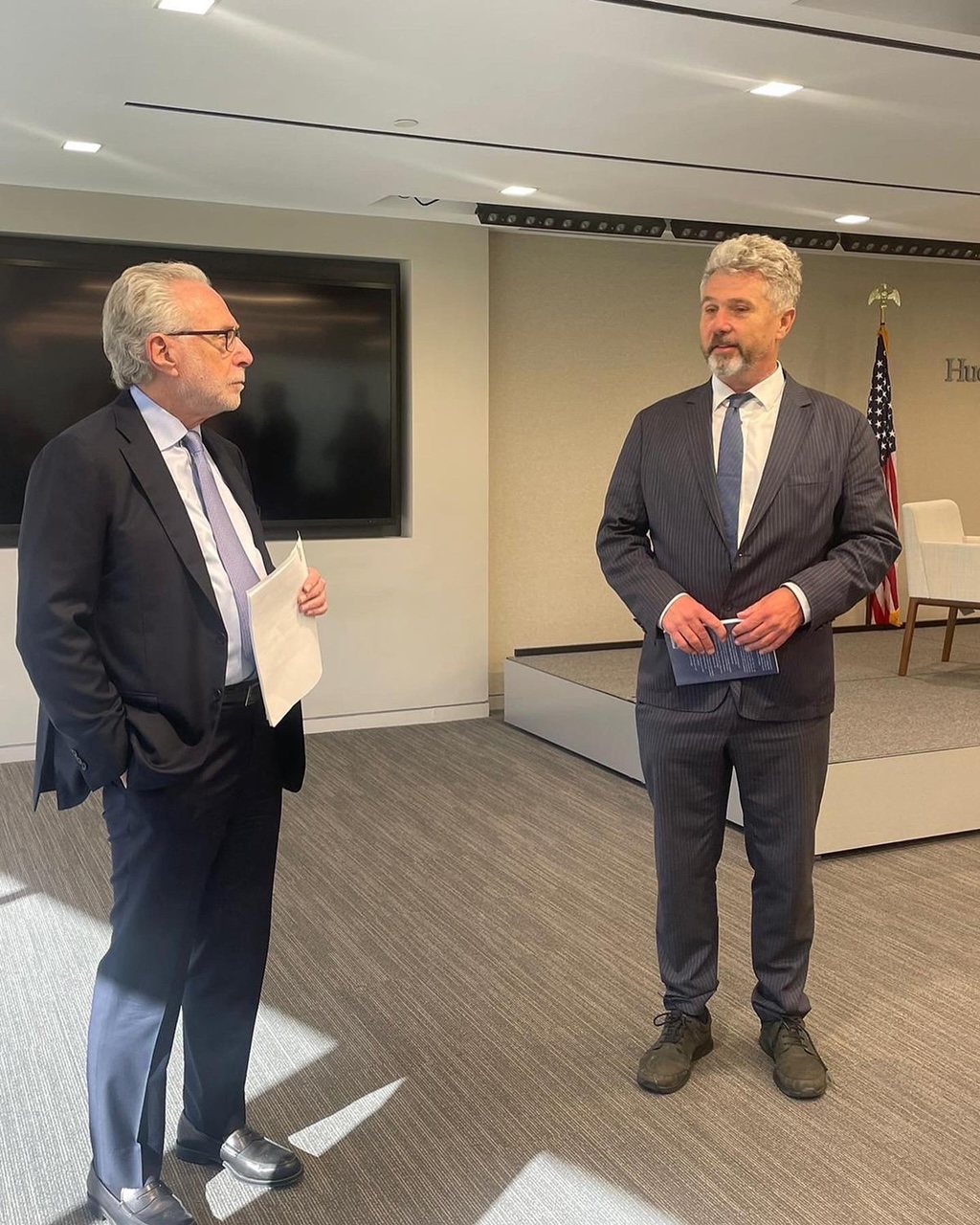
The RIAS Berlin Commission is a binational German-American organization that was created in 1992 by the German and US governments to promote transatlantic exchanges in the field of broadcasting journalism, expand horizons and create transatlantic networks for broadcasting journalists from across both countries. Nearly 2,000 German and American journalists and journalism students have taken part in the exchange programs that last from one to three weeks over the years, including many leading and important broadcasting journalists in both countries. Hundreds of alumni take part in alumni programs, events with their local chapters and support visiting journalists from Germany and the United States.
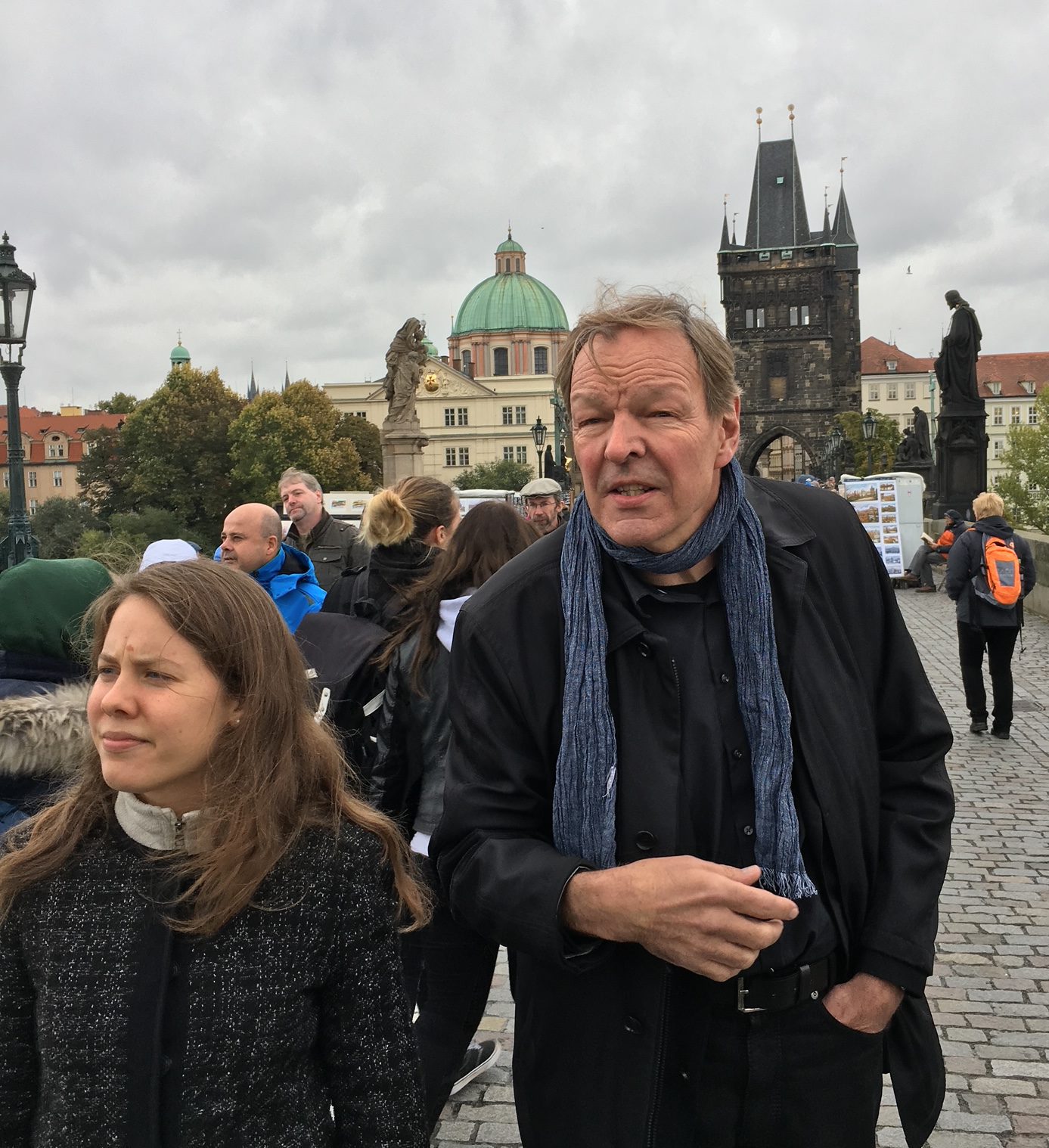
RIAS Berlin Commission also holds an annual RIAS Media Prize competition for outstanding radio, TV and digital journalism aired in Germany and the United States; among the recent winners were Wolf Blitzer (CNN), Ingo Zamperoni (ARD), Jan Philipp Burgard (ARD), Katrin Bennhold/Claire Toeniskoetter (The Daily at The New York Times) and Stephanie Wolf (Louisville Public Media).
Kirschbaum is the second executive director to lead RIAS and followed in the footsteps of Rainer Hasters, who helped create and shape the programs as executive director for 25 years from 1992 to 2016.
Following is a personal note Kirschbaum sent to the participants and prize winners at RIAS:
Dear friends at RIAS
Thanks for all your wonderful support, your questions, your curiosity and your hunger to learn over the last 7 years on RIAS programs, at RTDNA conventions and especially on our six big 30-person alumni programs since 2019. I wanted to let you know that I will be stepping down as executive director of RIAS in about 6 months as soon as a new director is in place. I’m hoping to return to more writing and journalism work in the next chapter of life as well as catching up on some of the sleep that I missed out on since this unforgettable ride started back in 2016. I’m also eager to catch up with family, my children and grandchildren. Some new solar power and property projects are also in the works. And in the event that anyone out there in the RIAS alumni network or elsewhere is interested in one of the best jobs in the world, please reach out if you need any further information. There will be more details on the RIAS website and published elsewhere soon.
In this last chapter over the last 10 years at RIAS, including the first 3 years as a member of the board and the 13 years before that as a guest speaker in Bonn and Berlin, it was an honor and privilege to meet you, travel with you, learn new things with you and laugh with you. You took me out of my comfort zone and I enjoyed every minute of it. You’ve given me a lifetime‘s worth of memories over the last 7 years along with myriad new friendships. Your insatiable appetite to learn has been inspiring. Probably more than anything else, I’ve enjoyed watching you grow on — and after — our ambitious programs …..apologies if they seemed overly challenging or demanding at the time. I have also learned a tremendous amount from you and your groups. The goals are to expand horizons, build transatlantic networks and keep the spirit of the original RIAS radio and TV stations alive. I wanted to take you a bit out of the „comfort zone“ and appreciate your willingness to go there with me. Thanks again for all your „hard rowing“ over the years. I also really appreciate your support in helping me grow the alumni network, increase diversity in all our programs, and forever improve our schedules.
I think we accomplished a lot together—not the least of which include two horizon-expanding student programs each year and our energy-filled alumni programs. I will be eternally appreciative of all of the alumni who altruistically volunteer so much of their time to make our programs and alumni chapters better every year. I honestly can’t thank you enough for all you’ve done over the years and am looking forward to seeing you again and staying connected.
Sincerely
Erik
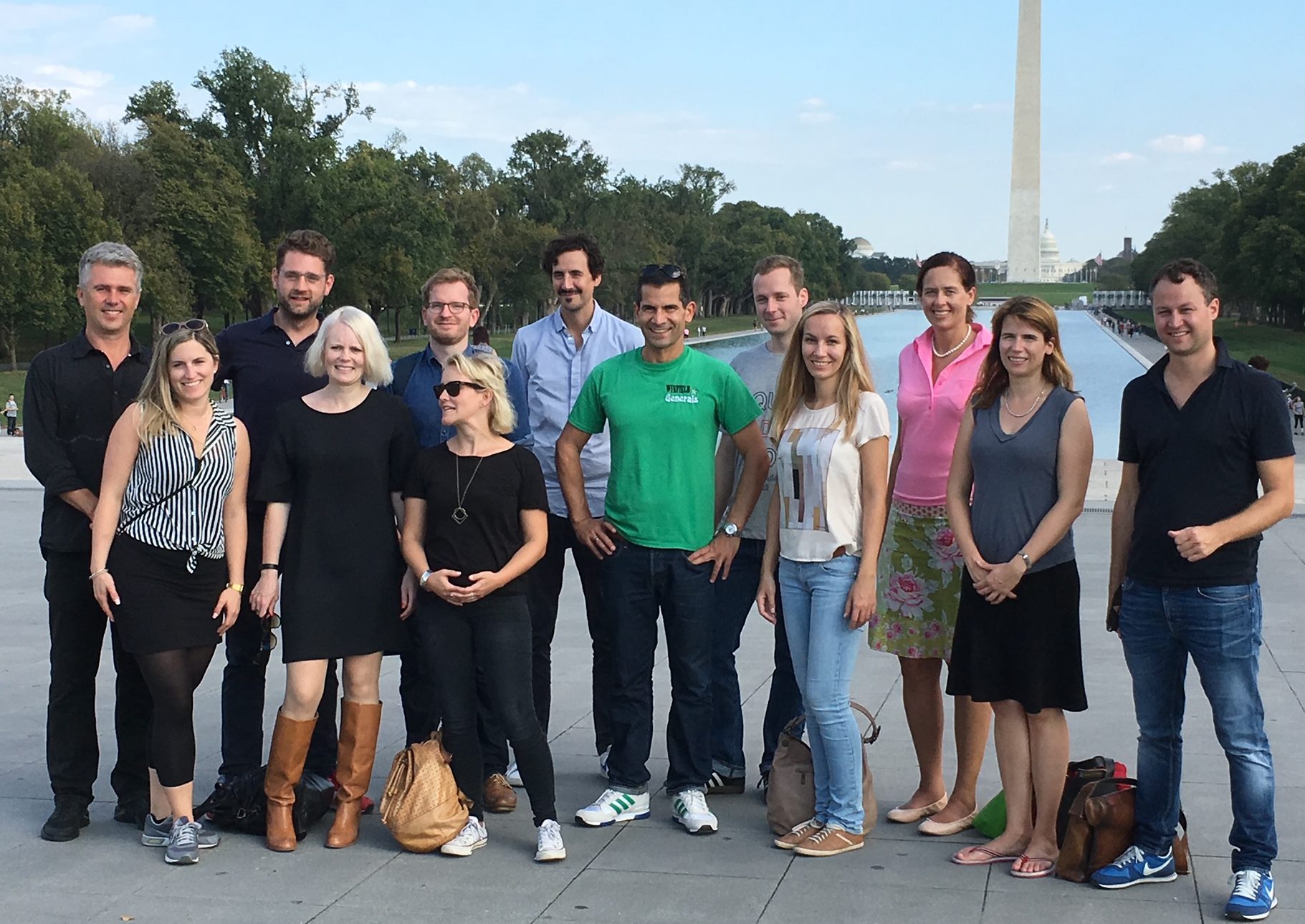
In Munich, American journalists meet political leaders, journalists, visit Oktoberfest
The third RIAS Berlin Commission “short/alumni” program moved from Cologne to Munich on Germany’s famous high-speed Intercity Express (ICE) train at speeds of up to 240 kilometers per hour on September 19 for the second half of the program for the 32 American journalists. Several of the reporters used the four-hour train ride to file live reports back home to their stations in the USA.
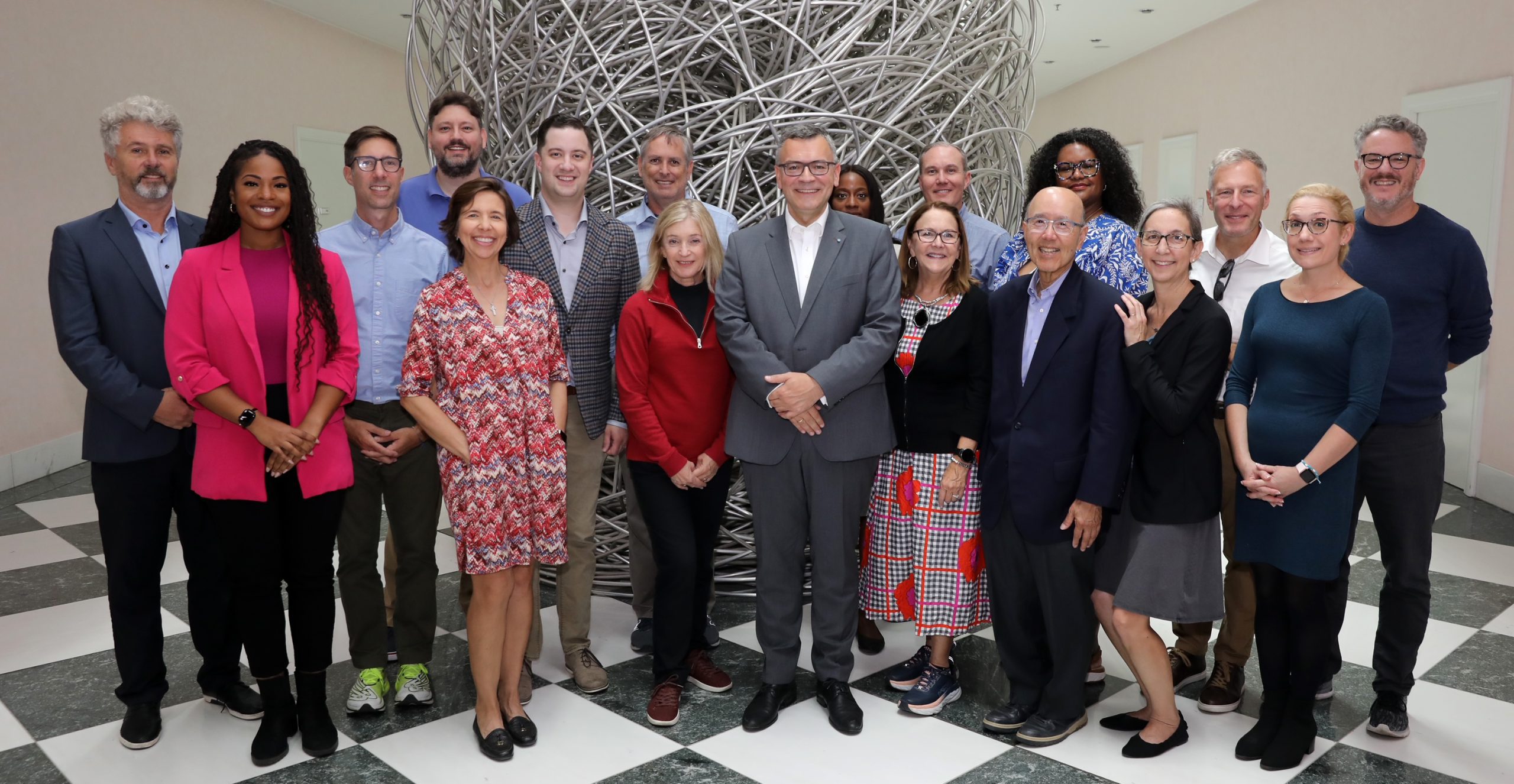
After arriving in Munich, they moved quickly to their first appointment in Munich at the Paulaner brewery in Nockherberg to learn more about the art of beer making from two “Braumeister” at the brewery that traces its origins to the 16th century. The Americans learned how ultra competitive the beer making industry is in Germany and how Paulaner strives to improve its product each year. They also visited the BMW headquarters in Munich for a tour of the factory, visited Munich’s Jewish community, Bavarian TV/Radio headquarters and spent an hour talking with Bavaria’s state secretary for Federal Affairs and head of the state chancellery – Florian Hermann. He talked about the Bavaria state election on October 8 and the pressures on the ruling Christian Social Union party.
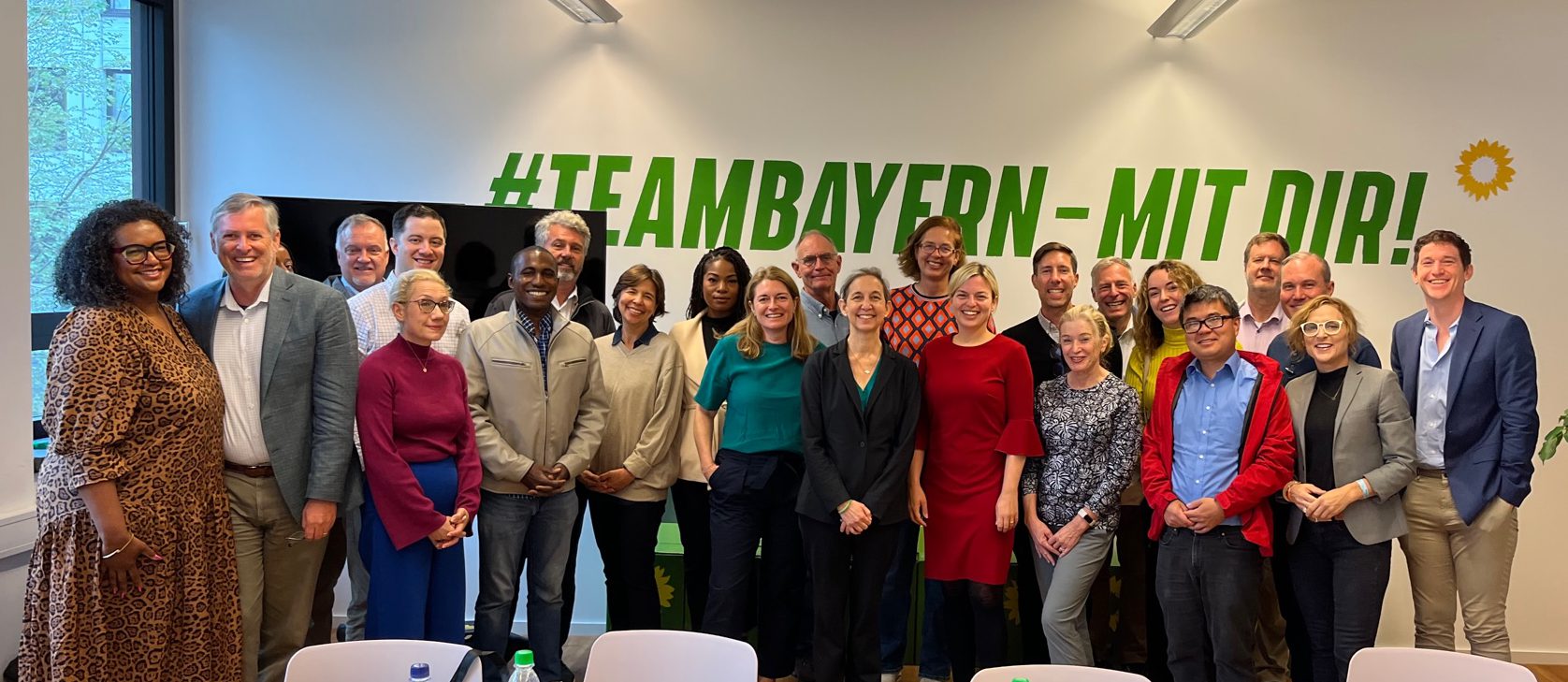
The Americans also had a talk with senior journalists at BR TV and spent an afternoon at the world-famous Oktoberfest learning more about the special challenges facing the festival’s 600-person police force, how Paulaner has developed new high-tech patents to improve the efficiencies in their 8,000-seat beer tents, and had a talk with the CEO of Paulaner about how the brewery has emerged from a difficult Covid-19 era.
With the Bavaria state election looming, the Americans also had the chance to talk with the leader of the opposition Greens party Katharina Schulze, who talked about lessons she learned in Detroit in 2008 as a campaign worker for the US candidate at the time Barack Obama and how she has brought the US-style “door-to-door” campaigning to help her party in Bavaria. They also talked to CSU member of state assembly Gerhard Hopp about the CSU campaign and his district in the eastern region of Bavaria near the Czech border.
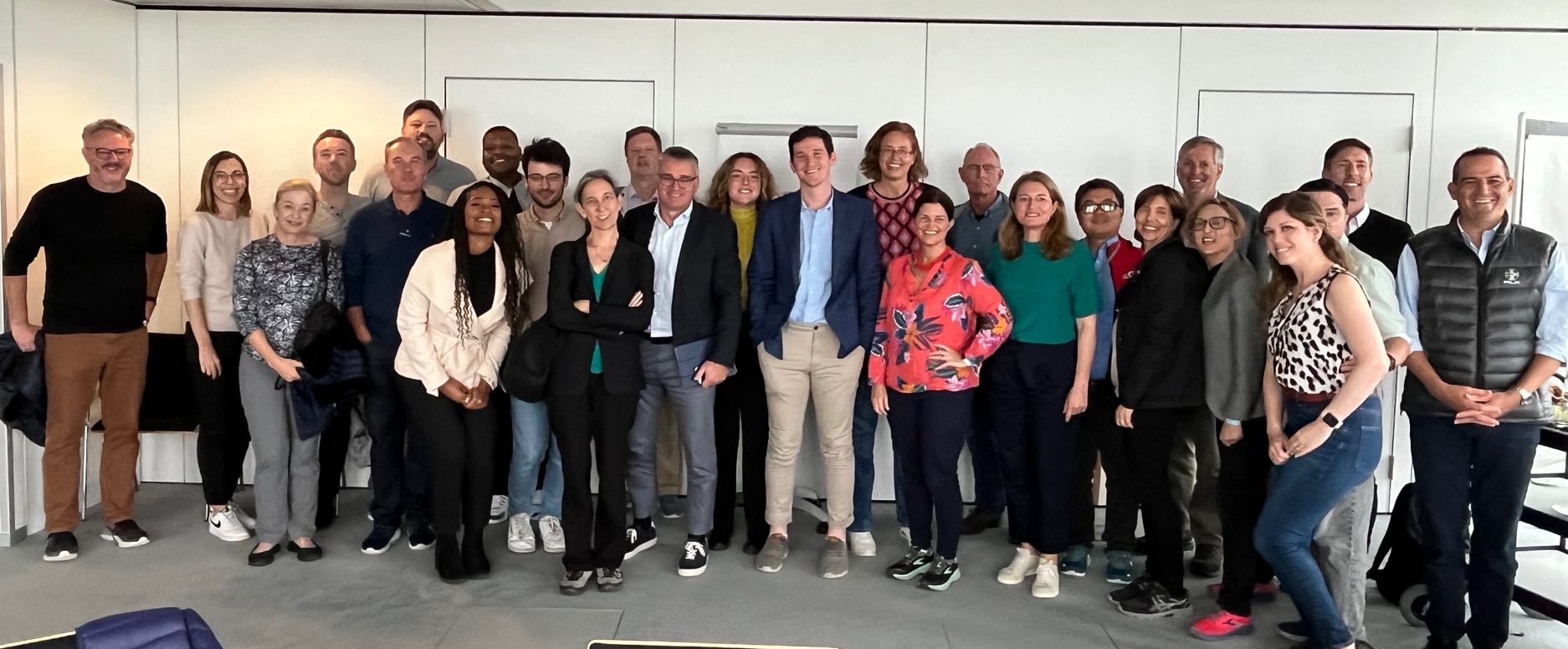
They also had the chance to talk with Stefan Kornelius, a senior editor at the Sueddeutsche Zeitung newspaper. They visited the Allianz Arena for a behind-the-scenes look at the stadium that is home to the Bayern Munich soccer team, visited the DJS German broadcast journalism school and many visited the Dachau concentration camp memorial outside of Munich.
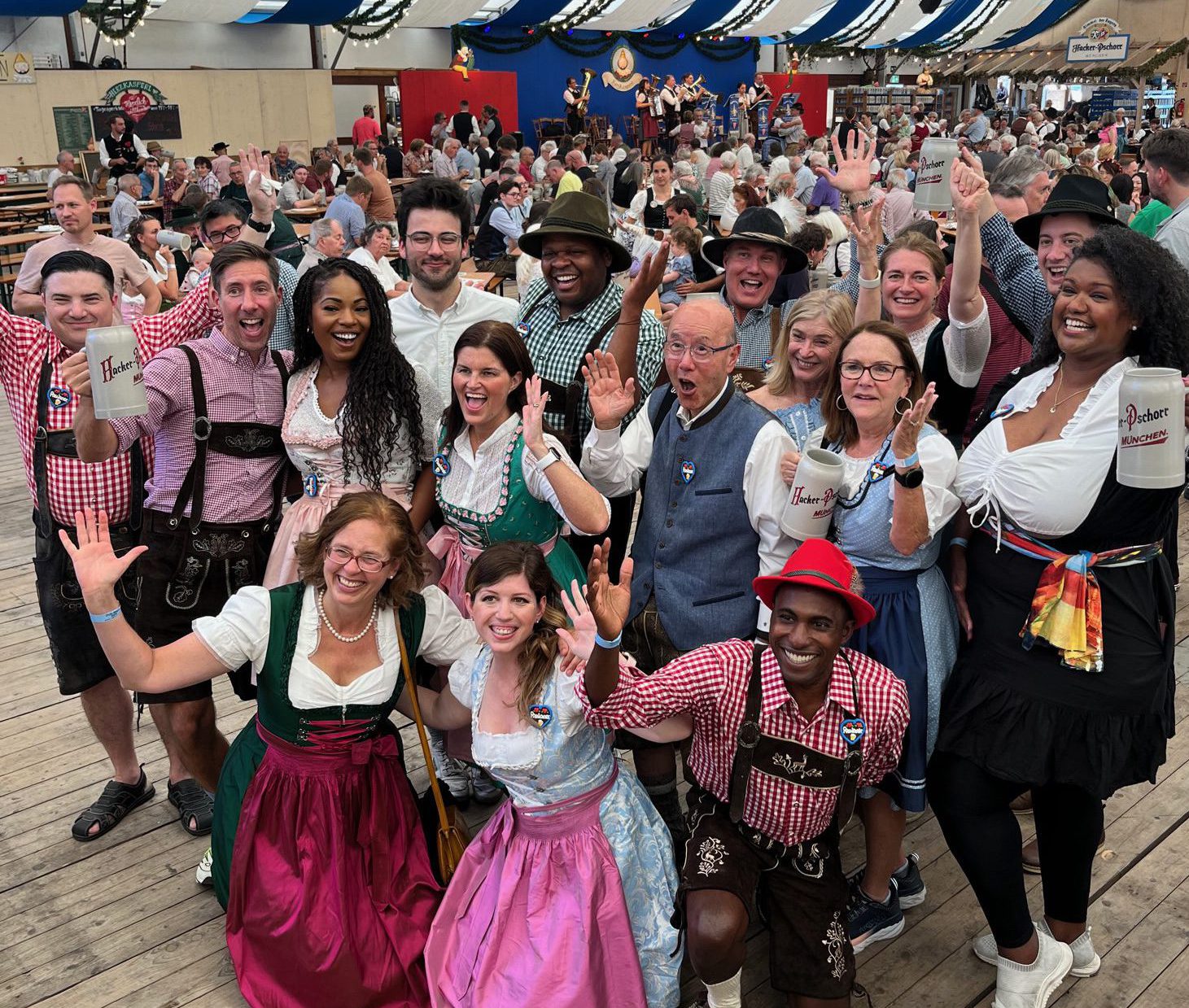
The program was organized for the most part by the RIAS local alumni chapters in Munich and Cologne. The Americans met dozens of German RIAS alumni during the program, which is designed to deepen their knowledge of Germany and transatlantic relations years and sometimes decades after they first took part in a RIAS program. Many of the Americans also used the program meetings for stories they worked on for their stations back home in the USA.
September 18, 2023
In Cologne, American journalists start one-week special alumni program
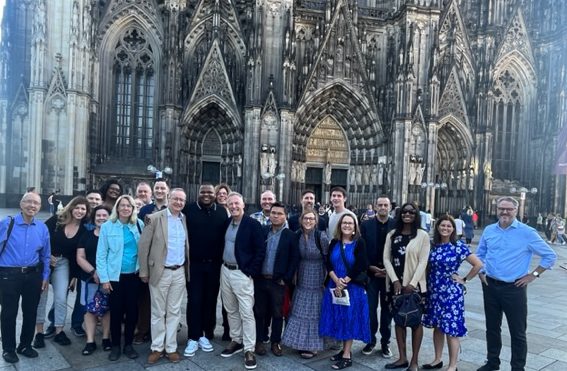 American journalists who took part in RIAS Berlin Commission exchange programs over the last 25 years came together in Cologne for the start of a special one-week “short/alumni” program designed to take an updated look at Germany, make new connections with other US-based alumni members and meet with German alumni of the binational program.
American journalists who took part in RIAS Berlin Commission exchange programs over the last 25 years came together in Cologne for the start of a special one-week “short/alumni” program designed to take an updated look at Germany, make new connections with other US-based alumni members and meet with German alumni of the binational program.
The Americans got off to a flying start with an hour-look meeting with the program director of WDR television in Cologne, Jörg Schönenbörn right after he anchored the popular weekly “Presseclub” television talk show watched by millions of German viewers each Sunday.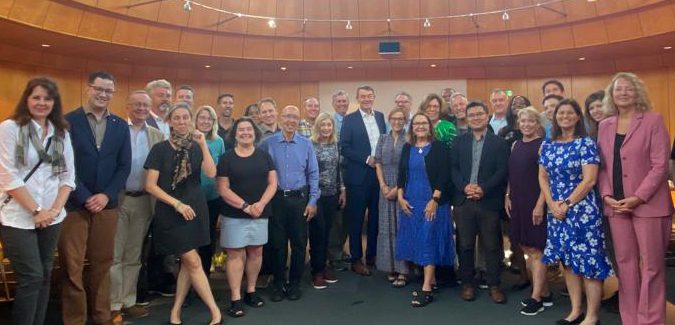
Schönenbörn talked about Germany’s worsening housing shortage, the upcoming important regional election in the state of Bavaria, some of the changes and developments in German broadcasting media and his epiphany back during the 2016 election in the United States working on a story in New Mexico when he suddenly understood why Donald Trump had struck such deep chord among ordinary Americans.
The Americans also had the chance to visit WDR radio and TV newsrooms, talk with journalists Jutta Drug, Birgit Becker as well as “1Live” reporter Mathis Trapp. They also had a chance to attend a Catholic service inside the Cologne Cathedral. On Monday, a group of Americans visited the “Kölner Stadtanzeige” newspaper for a talk with Joachim Franke, a former priest turned reporter who has helped uncover scandals involving the powerful Catholic church in Cologne.
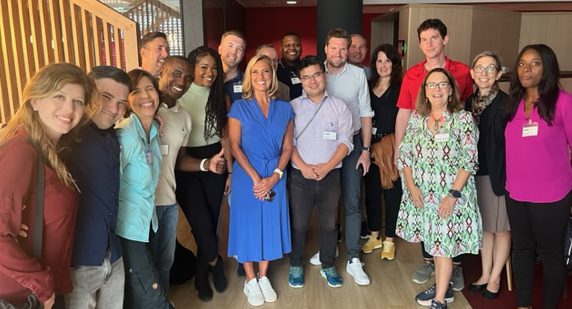 They also visited NTV and RTL television news studios across the Rhine River, and talked with anchor Gesa Eberl and Gordian Fritz, a correspondent who has covered the war in Ukraine for the commercial networks. Several Americans also had the chance to visit the German Aerospace Center and learn more about the country’s space program. A group of political science students from Bonn University spent part of the afternoon talking to the Americans about their tuition-free studies in Germany and the challenges they face.
They also visited NTV and RTL television news studios across the Rhine River, and talked with anchor Gesa Eberl and Gordian Fritz, a correspondent who has covered the war in Ukraine for the commercial networks. Several Americans also had the chance to visit the German Aerospace Center and learn more about the country’s space program. A group of political science students from Bonn University spent part of the afternoon talking to the Americans about their tuition-free studies in Germany and the challenges they face.
Third American RIAS alumni program starts in Germany on September 16
A group of 33 RIAS Berlin Commission alumni members from the United States will spend seven days in Germany learning more about the country that they first visited years or even decades earlier on one of the binational organization’s transatlantic journalist exchange programs. The Americans will be coming from across the United States to Cologne from September 16-19 and Munich from September 19-24 to catch up with developments in Germany and to learn more about an important regional election in the southern state of Bavaria in early October.
They will visit journalists and political leaders during their fellowship and especially other members of the German alumni network during the two dozen meetings organized with help from the local German alumni chapters in Munich and Cologne. The goal of the alumni programs, which were started in 2019 in Berlin during the celebrations marking the 30th anniversary of the fall of the Berlin Wall, are to build networks amongst American alumni of the more than 70 programs to Germany since 1992 as well as connect the American journalists with their German counterparts. Several of the American alumni members taking part in the program will also be sending stories back to their home networks in the United States.
This will be the fifth RIAS Berlin Commission alumni program in the last five years. After the first 30 Americans visited Berlin in 2019, another group of 17 American alumni was in Berlin during the German elections in September 2021. A group of 30 German alumni spent a week in New York City in October 2021 just before the United States reopened its borders to European Union visitors after the Covid-19 travel ban on EU citizens and another group of 35 German alumni spent a week in December in Washington DC in late October 2022 just before the US midterm elections.
Here are the participants:
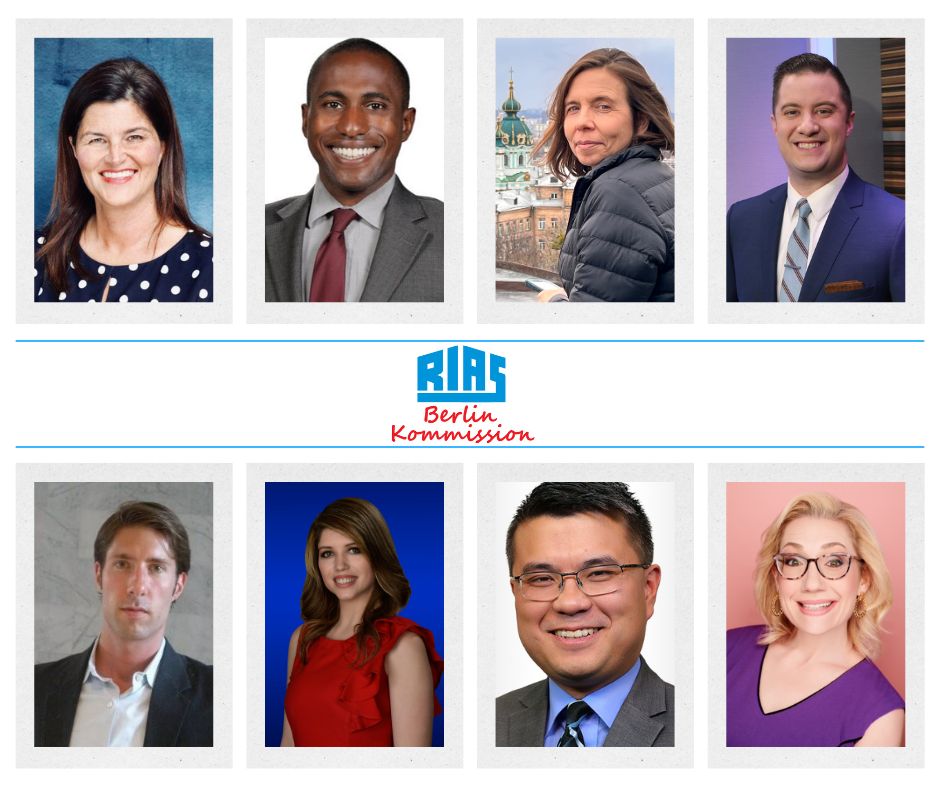
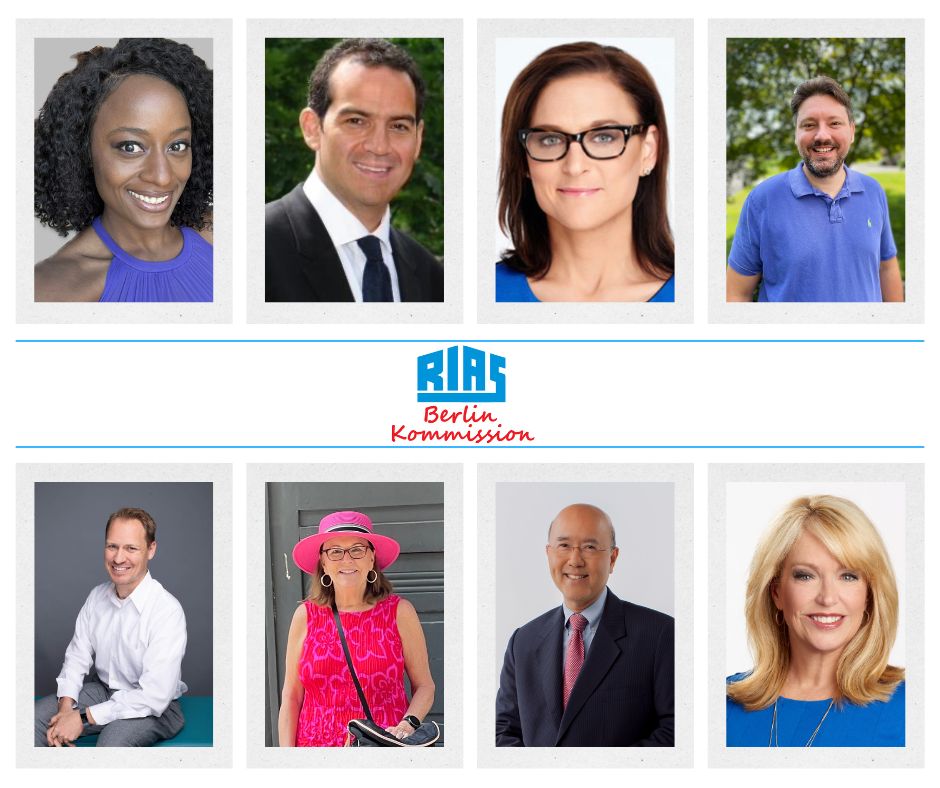
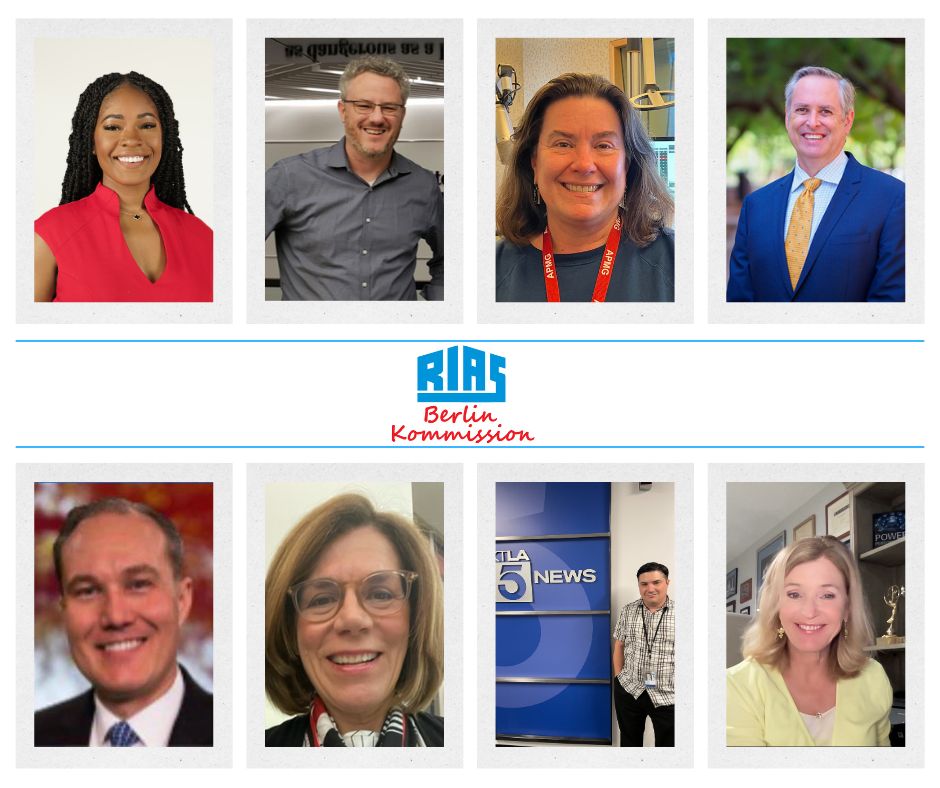
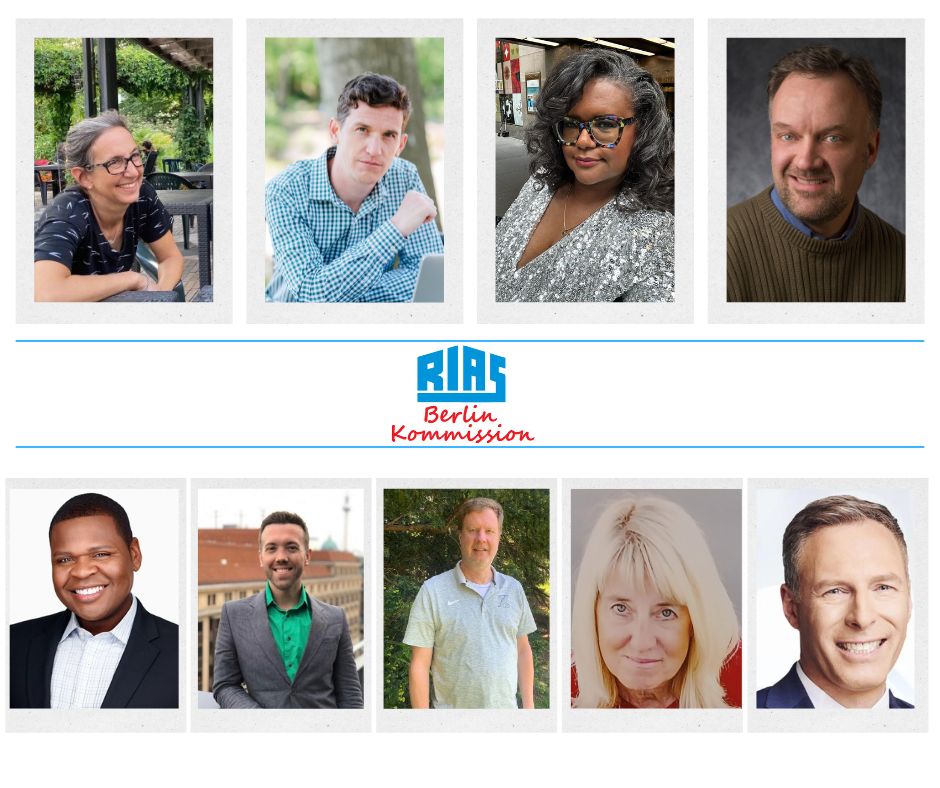
RIAS group from USA visits Cologne, Brussels, Erfurt and Berlin
A group of eight mid-career American journalists spent a busy first week of their RIAS Berlin Commission fellowship learning more about German and European broadcasting and politics on visits to Cologne, Brussels and Erfurt.
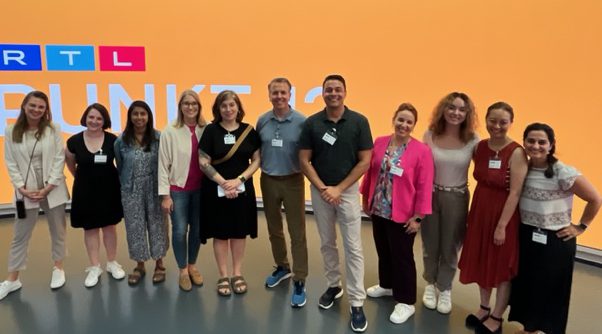 The eight Americans from across the United States first spent two days visiting newsrooms and journalists at the WDR TV and radio public broadcasting stations in Cologne as well as NTV and RTL, two leading German commercial networks across the Rhine River. The Americans also went to talk with an editor of “Domradio”, a feisty and independent radio station funded by the country’s churches. They also met more than a dozen members of the Cologne Alumni Chapter at a beer garden, which are part of the summer-time culture in a country with relatively little air conditioning.
The eight Americans from across the United States first spent two days visiting newsrooms and journalists at the WDR TV and radio public broadcasting stations in Cologne as well as NTV and RTL, two leading German commercial networks across the Rhine River. The Americans also went to talk with an editor of “Domradio”, a feisty and independent radio station funded by the country’s churches. They also met more than a dozen members of the Cologne Alumni Chapter at a beer garden, which are part of the summer-time culture in a country with relatively little air conditioning.
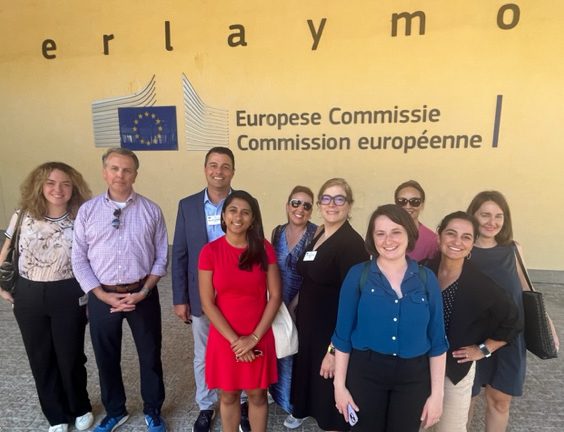 The group also visited NATO and European Commission officials during their two days in Brussels that followed and also had the chance to meet American and German journalists working in Brussels for Politico, the Washington Post, Deutsche Welle, NPR and the DPA news agency. They also had an alumni get-together in Brussels.
The group also visited NATO and European Commission officials during their two days in Brussels that followed and also had the chance to meet American and German journalists working in Brussels for Politico, the Washington Post, Deutsche Welle, NPR and the DPA news agency. They also had an alumni get-together in Brussels.
The Americans finished off their first week with a high-speed ICE train train from Brussels to the eastern German city of Erfurt, where they met the Thuringia state conservative party leader Mario Voigt, the head of the state’s office for the protection of the constitution Stephan Kramer, and a rising young star in state’s CDU, Lili Fischer. It was the fifth RIAS Berlin Commission Exchange program this year and third with Americans visiting Germany.
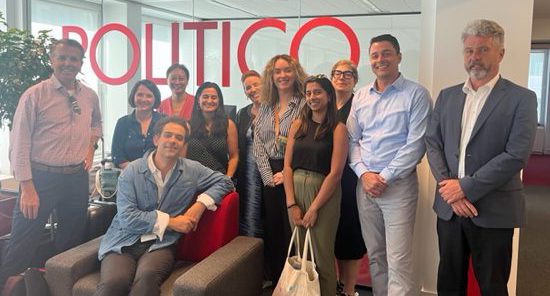
8 American journalists heading to Europe for 2-week RIAS fellowship
The participants are:
Bita Ryan, NBC News, Los Angeles, California
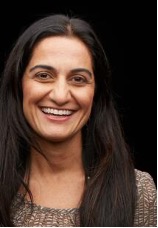 Ryan is an award-winning producer for NBC News, based in Northern California. With more than 25 years of experience, she covers breaking news and feature stories throughout the region, reporting, writing, and producing for NBC Nightly News, the Today Show, and MSNBC. Her work has been recognized with an Emmy, Edward R. Murrow, Peabody, and most recently, a New York Press Club award for her latest work covering the 80th anniversary of the attack on Pearl Harbor. Ryan has covered significant historical events such as 9-11, Hurricane Katrina, three Presidential elections, and reported from five Olympic Games.
Ryan is an award-winning producer for NBC News, based in Northern California. With more than 25 years of experience, she covers breaking news and feature stories throughout the region, reporting, writing, and producing for NBC Nightly News, the Today Show, and MSNBC. Her work has been recognized with an Emmy, Edward R. Murrow, Peabody, and most recently, a New York Press Club award for her latest work covering the 80th anniversary of the attack on Pearl Harbor. Ryan has covered significant historical events such as 9-11, Hurricane Katrina, three Presidential elections, and reported from five Olympic Games.
Jason Whitely, WFAA, Dallas, Texas
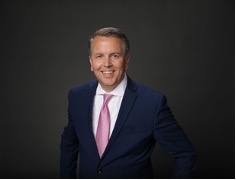 Whitely is a senior news reporter at WFAA in Dallas / Fort Worth and host of Inside Texas Politics, a weekly political television program that is broadcast statewide on eleven Texas television stations every Sunday morning. Whitely’s also co-hosts the Y’all-itics political podcast. In 2022, one of Whitely’s documentaries, “Let Us Die”, premiered at the Dallas International Film Festival. In addition to politics, Whitely also covers aviation with American Airlines and Southwest Airlines both based in North Texas. He has witnessed five executions of prison inmates on Texas’ Death Row and produced live coverage from ten hurricanes.
Whitely is a senior news reporter at WFAA in Dallas / Fort Worth and host of Inside Texas Politics, a weekly political television program that is broadcast statewide on eleven Texas television stations every Sunday morning. Whitely’s also co-hosts the Y’all-itics political podcast. In 2022, one of Whitely’s documentaries, “Let Us Die”, premiered at the Dallas International Film Festival. In addition to politics, Whitely also covers aviation with American Airlines and Southwest Airlines both based in North Texas. He has witnessed five executions of prison inmates on Texas’ Death Row and produced live coverage from ten hurricanes.
Ariel Plotnick, Washington Post, Washington, D.C.
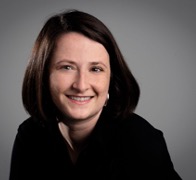 Plotnick is an audio producer for “Post Reports,” the Washington Post’s flagship daily news podcast. She produces everything from daily, breaking news to long form, character driven features. Her work has been included in numerous award packages, including the Post’s 2022 Pulitzer Prize for Public Service and a 2022 du Pont-Columbia Award. Before joining The Post, she worked at multiple NPR member stations, filing stories for local and national broadcasts. Plotnick holds a masters from UC Berkeley’s Graduate School of Journalism.
Plotnick is an audio producer for “Post Reports,” the Washington Post’s flagship daily news podcast. She produces everything from daily, breaking news to long form, character driven features. Her work has been included in numerous award packages, including the Post’s 2022 Pulitzer Prize for Public Service and a 2022 du Pont-Columbia Award. Before joining The Post, she worked at multiple NPR member stations, filing stories for local and national broadcasts. Plotnick holds a masters from UC Berkeley’s Graduate School of Journalism.
Michael Schwanke, KWCH, Wichita, Kansas
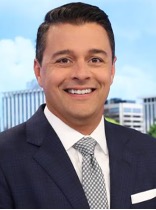 Schwanke is the evening anchor, investigative reporter and assistant news director for KWCH in Wichita, Kansas. Schwanke has worked in many roles at KWCH over the last 23 years, starting as a multimedia journalist, weekend anchor, investigative reporter and now evening anchor. He is a two-time Emmy award winner and has won various other awards including the national Edward R. Murrow and three regional Edward R. Murrow awards.
Schwanke is the evening anchor, investigative reporter and assistant news director for KWCH in Wichita, Kansas. Schwanke has worked in many roles at KWCH over the last 23 years, starting as a multimedia journalist, weekend anchor, investigative reporter and now evening anchor. He is a two-time Emmy award winner and has won various other awards including the national Edward R. Murrow and three regional Edward R. Murrow awards.
Susan Huang, CNN, Atlanta, Georgia
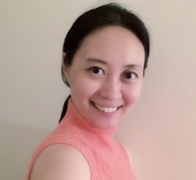 Huang is a senior producer at CNN International, based at the network’s headquarters in Atlanta, Georgia. She has over two decades of newsroom experience writing, producing and supervising breaking news, newscasts, and specials. She has extensively covered the War in Ukraine, the coronavirus pandemic, North Korea’s nuclear program, and Europe’s migrant crisis. She is an Emmy award-winning journalist honored as part of a team for sharing the stories of people working to change the world, and is a former Jefferson Fellow.
Huang is a senior producer at CNN International, based at the network’s headquarters in Atlanta, Georgia. She has over two decades of newsroom experience writing, producing and supervising breaking news, newscasts, and specials. She has extensively covered the War in Ukraine, the coronavirus pandemic, North Korea’s nuclear program, and Europe’s migrant crisis. She is an Emmy award-winning journalist honored as part of a team for sharing the stories of people working to change the world, and is a former Jefferson Fellow.
Deepa Shivaram, NPR, Washington, D.C.
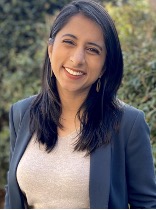 Shivaram is a political reporter at NPR where she covers the White House, Department of Justice and elections for radio and digital, and on The NPR Politics Podcast. She joined NPR as a digital reporter in 2021, covering domestic and international breaking news. Previously, she was an NBC News campaign embed during the 2020 election, where she reported on the Kamala Harris and Elizabeth Warren campaigns.
Shivaram is a political reporter at NPR where she covers the White House, Department of Justice and elections for radio and digital, and on The NPR Politics Podcast. She joined NPR as a digital reporter in 2021, covering domestic and international breaking news. Previously, she was an NBC News campaign embed during the 2020 election, where she reported on the Kamala Harris and Elizabeth Warren campaigns.
Laura Evans Baines, KIRO, Seattle
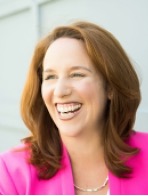 Evans Baines is a journalist with 23 years of broadcast news experience in 6 markets. She is currently a news director at KIRO in Seattle. She is a second year doctoral student working on her DBA. Evans lived in Germany as a student from 1998-2000 and is thrilled to be able to go back as a seasoned journalist 23 years later. In her free time, she is a hiker who also loves skiing, biking, and camping.
Evans Baines is a journalist with 23 years of broadcast news experience in 6 markets. She is currently a news director at KIRO in Seattle. She is a second year doctoral student working on her DBA. Evans lived in Germany as a student from 1998-2000 and is thrilled to be able to go back as a seasoned journalist 23 years later. In her free time, she is a hiker who also loves skiing, biking, and camping.
Shirley Zilberstein, NBC News, New York, New York
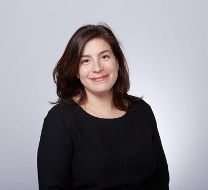 Zilberstein is a New York-based director of news standards for NBC News and the NBCUniversal News Group. Shirley started her career in politics, working for a presidential campaign, but quickly realized she preferred to cover politics from the outside than be entangled in it. She worked for years at CNN – first in Washington, DC and later in New York – field producing political stories on the campaign trail and national stories like hurricanes, plane crashes and culture clashes. Zilberstein has spent the second half of her career at 30 Rock, first as an Executive Producer at MSNBC, where she launched the show “Melissa Harris-Perry” and Craig Melvin’s first show, then at NBC News as director of the politics desk in 2020 and now the news group standards and practices team, guiding fellow journalists through ethical issues in their reporting efforts.
Zilberstein is a New York-based director of news standards for NBC News and the NBCUniversal News Group. Shirley started her career in politics, working for a presidential campaign, but quickly realized she preferred to cover politics from the outside than be entangled in it. She worked for years at CNN – first in Washington, DC and later in New York – field producing political stories on the campaign trail and national stories like hurricanes, plane crashes and culture clashes. Zilberstein has spent the second half of her career at 30 Rock, first as an Executive Producer at MSNBC, where she launched the show “Melissa Harris-Perry” and Craig Melvin’s first show, then at NBC News as director of the politics desk in 2020 and now the news group standards and practices team, guiding fellow journalists through ethical issues in their reporting efforts.
US journalism students complete 3-week RIAS fellowship to Germany
A group of 13 American students from universities across the United States took part in a jam-packed three-week RIAS Berlin Commission fellowship in Berlin, Dresden, Erfurt, Magdeburg and Leipzig. The fourth annual European Recovery Program (ERP) summer program fellowship was created thanks to a grant from the Economy Ministry’s Transatlantic Program.
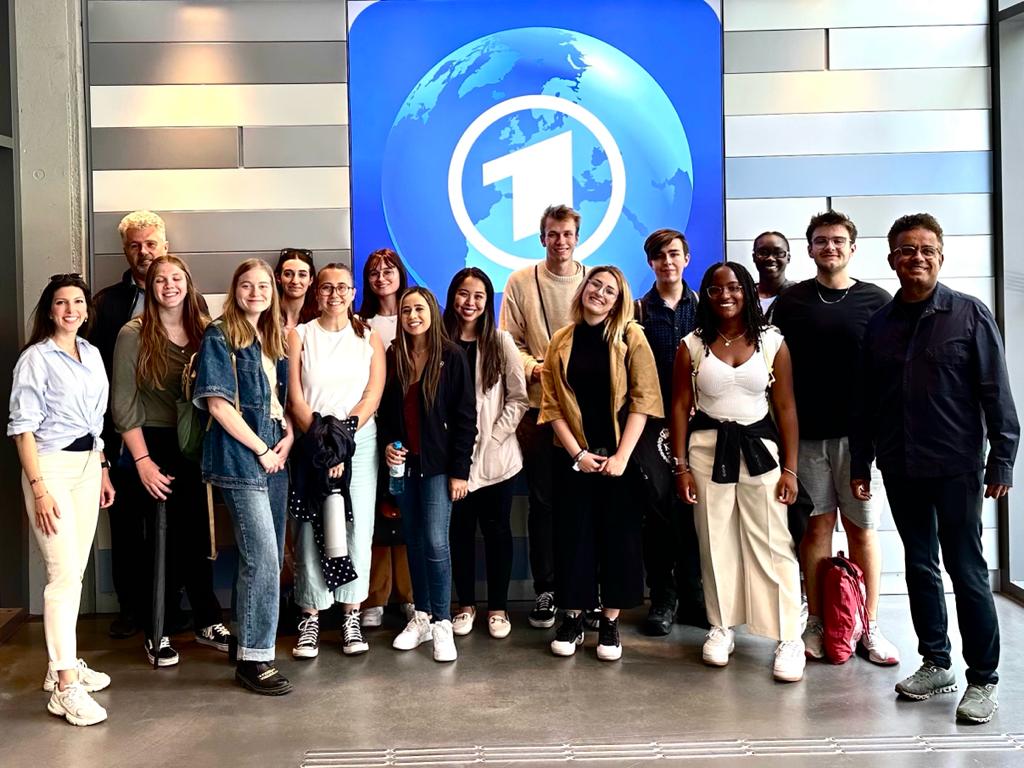
The American students were in Germany from June 18 to July 8 and came from universities across the Midwest, South and Southwest: the University of Oklahoma (3), Arizona State University in Phoenix (2), University of Arizona in Tucson (2), University of Miami-Ohio (2), University of Georgia (1), Elon College in North Carolina (1), Ithaca New York (1), and University of California-Berkeley (1). For many of the American students it was their first trip outside the United States and for some the first journey outside their home region.
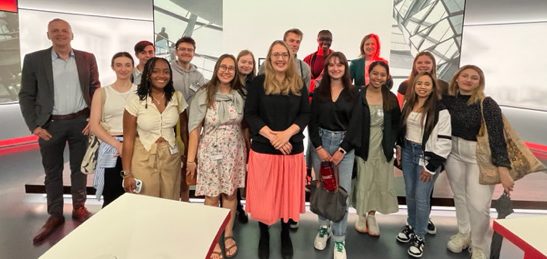
The students had dozens of meetings with German journalists, editors, directors, politicians, community leaders, experts and political analysts. The Americans also learned more about the role that broadcast journalism, including from the legendary Radio in American Sector Radio and TV broadcaster (RIAS), played during the Cold War. The American students also had numerous encounters with German students and young journalists on trainee programs in Germany.
The Americans visited journalists and students in Leipzig and Hamburg during their final week of the program, talking with journalists at ARD’s “Tagesschau” news broadcast such as anchor Michail Pawletz and Der Spiegel news magazine in Hamburg with senior editors Hendrik Behrend and Julia Lang. In Leipzig they met with journalist at MDR TV such as Sven Knoblauch and Radio Mephisto student radio station in Leipzig on a busy day organized by RIAS alumni Til Schäbitz, Miriam Wüst and Sarah-Maria Köpf.
They had the chance to meet German government spokesman Wolfgang Büchner for an hour-long briefing. They also had a meeting with Fabrizio Micalizzi, chief of staff in the Foreign Ministry’s Transatlantic Coordinator’s Office. The Americans also had the chance to talk with NTV and RTL journalists Christian Wilp, Nina Lammers and Katharina Kühnert as well as watching the live interview with Greens’ party parliamentary floor leader Katharina Dröge. They had the chance to ask Dröge questions as well after the interview and she admitted to the Americans it was at times a challenge for three different parties to share power in a three-party coalition government.
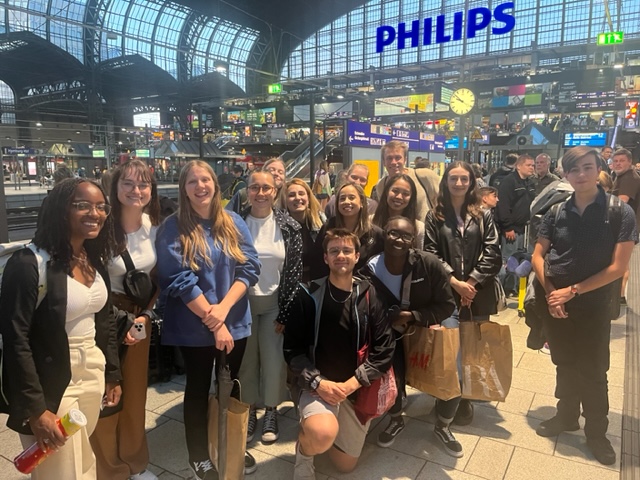
The goal of the ERP program is to expand horizons, help connect young American journalism students with their peers in Germany and help aspiring journalists in both countries learn more about journalism training in each others’ countries. The ERP program is supported by the Transatlantic Program of the Federal Republic of Germany. It is funded by the European Recovery Program (ERP) of the Federal Economy and Energy (BMWi) Ministry.
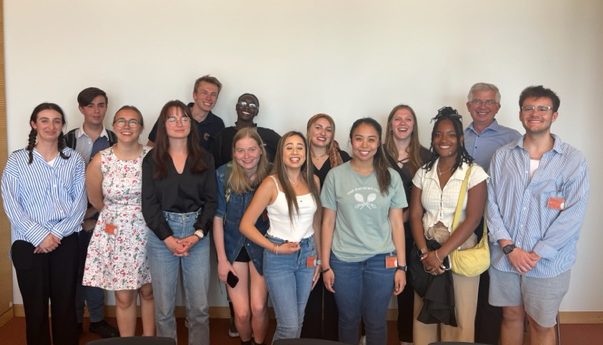
The American students also had the chance to talk with Andrew Ullmann, who is the only member of parliament in Germany with a US passport. Ullmann was born in Los Angeles and lived in California for more than a decade before returning to Germany with his family. He later studied medicine in the USA as well and talked at length and in great detail about the differences between the US and German health insurance and medical systems.
The first week was spent visiting media outlets, students and trainees at TV stations in Dresden, Erfurt and Magdeburg in formerly Communist East Germany. The second week featured meetings in Berlin with TV journalists at the commercial Welt TV network, at Deutsche Welle international broadcaster, at the Holocaust memorial in Berlin, at the former Stasi prison in Hohenschönhausen and the former Stasi headquarters in East Berlin. They also had the chance to watch ZDF Morgenmagazin live and meet with its editor in chief Andreas Wunn. They toured the ethnic Kreuzberg neighborhood with former Greens political leader Özcan Mutlu, met American swing dance band leader Andrej Hermlin and visited the US Embassy. The young Americans also learned more about tight gun controls in Germany that have all but put an end to school shootings, and the health insurance system that covers almost everyone in Germany.
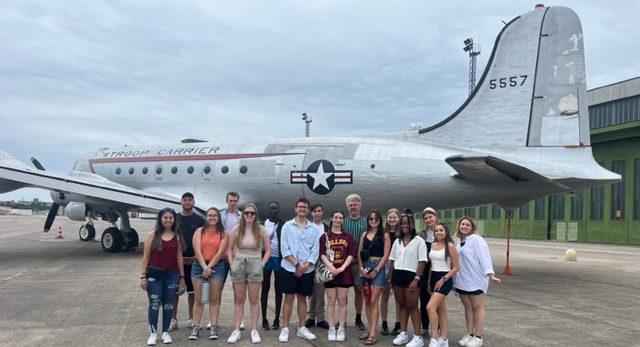
Impressions of American journalism students after their 3-week fellowship to Germany
Here are some impressions from 13 American journalism after a three-week fellowship with the RIAS Berlin Commission to Berlin, Dresden, Magdeburg, Erfurt, Leipzig and Hamburg from June 18 to July 8, 2023. The goal of the ERP program, which was created with support from a grant from the Economy Ministry, is to expand horizons, help connect young American journalism students with their peers in Germany and help aspiring journalists in both countries learn more about journalism training in each others’ countries.
Abby Bammerlin, Miami University, Oxford, Ohio
I´ll remember my time in Germany and on the RIAS program not by the places I went, but by the people we met and the stories they told. This experience allowed so much cultural exchange between Germans and Americans and I’ve learned so much about the German government, international politics and media. Our discussions with German journalists and politicians led us all over the map. We talked about the rise in right-wing parties and extremism across Europe, Germany’s leadership in the fight against climate change, the impact of free healthcare and education, and how the separation of East and West changed the landscape of German politics and society. Every conversation was more insightful than the last as we grew to understand more about Germany and the challenges it faces as a nation. Now that I’ve returned home, I’ve begun looking at the U.S. in a different way. I see how the U.S. makes decisions that will impact the world. I couldn’t be more grateful to have had this experience and to have gained a new perspective.
Alicia Clanton, Elon University, Elon, North Carolina 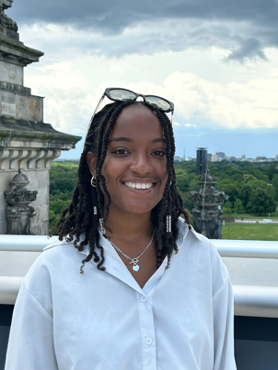
I was never able to fit a study abroad program into my college schedule, so I was extremely grateful to embark on this experience right after graduation! It was enlightening to learn how the news operates in Germany compared to the US, and to compare the national discourse over gun rights, environmental protection, and how to remember and teach dark histories. All the while, I built friendships with young journalists from all over the U.S. This has been an excellent opportunity, and I look forward to applying what I learned in my career.
Samantha Morris, Arizona State University, Phoenix, Arizona
 In the East German city of Dresden, the triumphant architecture of the Frauenkirche (Church of Our Lady) was overwhelming. It now stands as a symbol of peace and reconciliation following its 1993-2005 reconstruction, once reduced to a massive pile of rubble after being bombed during WWII. Sitting in the upper pews of the church, I couldn’t help but feel choked up. You are so close to the history, the dread, the pain that war brings. And as blood continues to shed in Ukraine, it’s a even more poignant reminder that peace is a fragile thing. This is just one of the several unforgettable experiences that have been cemented in my mind by the wonderfully gracious speakers that presented to us. On a RIAS trip you won’t just be transfixed by the pastel walls and arches in the grand Church of Our Lady, or wonder at the variety of paintings preserved on the former Berlin wall’s East Side Gallery. You will hear from the experts themselves, the artists, the politicians and the journalists, many of whom were there for it all. Above all you have a front row to ask questions. In a RIAS program you have access, and in journalism access is everything. I have to thank our director Erik Kirschbaum, and all of the speakers for all their time and patience on this whirlwind of the last three weeks. I also now share this experience with 12 other young journalists forever changed as we move into our careers together. Thank you to all!
In the East German city of Dresden, the triumphant architecture of the Frauenkirche (Church of Our Lady) was overwhelming. It now stands as a symbol of peace and reconciliation following its 1993-2005 reconstruction, once reduced to a massive pile of rubble after being bombed during WWII. Sitting in the upper pews of the church, I couldn’t help but feel choked up. You are so close to the history, the dread, the pain that war brings. And as blood continues to shed in Ukraine, it’s a even more poignant reminder that peace is a fragile thing. This is just one of the several unforgettable experiences that have been cemented in my mind by the wonderfully gracious speakers that presented to us. On a RIAS trip you won’t just be transfixed by the pastel walls and arches in the grand Church of Our Lady, or wonder at the variety of paintings preserved on the former Berlin wall’s East Side Gallery. You will hear from the experts themselves, the artists, the politicians and the journalists, many of whom were there for it all. Above all you have a front row to ask questions. In a RIAS program you have access, and in journalism access is everything. I have to thank our director Erik Kirschbaum, and all of the speakers for all their time and patience on this whirlwind of the last three weeks. I also now share this experience with 12 other young journalists forever changed as we move into our careers together. Thank you to all!
Pacey Smith-Garcia, Arizona State University, Phoenix, Arizona
After three weeks in Germany I discovered many aspects of German media and culture I had 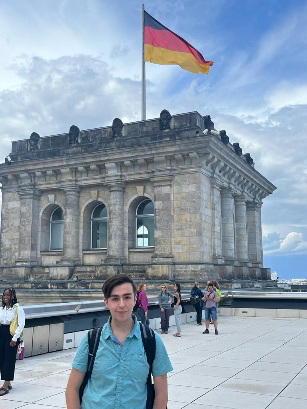 previously never known about. German media is required to provide coverage for the Sorbs and to provide media in their language. In the U.S the government provides very little for communities that exist outside the mainstream language and culture to establish and maintain media. At the same time German culture of remembrance for its past atrocities stands as a near opposite to the U.S. The U.S government has worked hard to ease its past crimes let alone make them as public as a conversation in Germany. Much like the Sorbian media this culture of remembrance is seen as a good thing by a majority of the population. I feel like these two things can serve as important lessons to take back to America. These will hopefully impact my career and the communities I serve.
previously never known about. German media is required to provide coverage for the Sorbs and to provide media in their language. In the U.S the government provides very little for communities that exist outside the mainstream language and culture to establish and maintain media. At the same time German culture of remembrance for its past atrocities stands as a near opposite to the U.S. The U.S government has worked hard to ease its past crimes let alone make them as public as a conversation in Germany. Much like the Sorbian media this culture of remembrance is seen as a good thing by a majority of the population. I feel like these two things can serve as important lessons to take back to America. These will hopefully impact my career and the communities I serve.
Litzy Silos, University of Oklahoma, Norman, OK
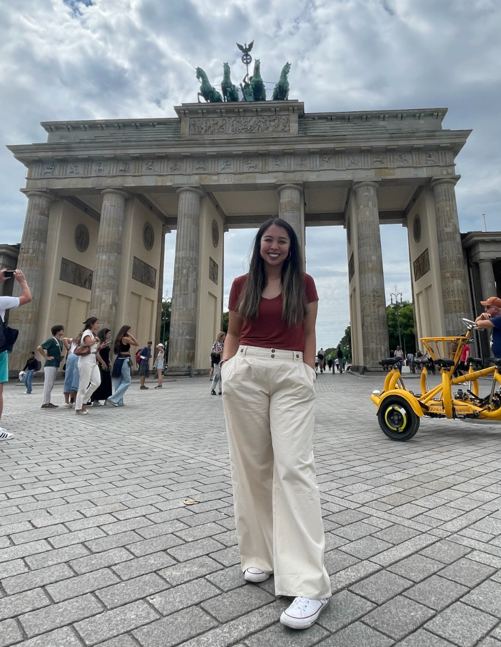 I never pictured myself going to Germany as a college student, as my career ambitions lie elsewhere. Nonetheless, having participated in the RIAS program provided me with the opportunity to visit so many museums, learn the significance the media has on the lives of Germans today, and listen to politicians from different parties speak about what they represent – all in the span of three weeks. I might have only gotten a snippet of one of these highlights as a tourist; with RIAS, I was able to do that and more. I’ll never forget, and will appreciate in particular, the days we had with a former Stasi prisoner– a current historian willing to share his story with those who want to listen. I respect that Germany’s history is not forgotten. And it’s not just one ‘history’, but all the histories. I also appreciated looking at the immigration issue miles and miles away from where I was born. In this sense, it provided me with the idea that no one country or continent handles the situation ‘better’ than the other. It’s all a matter of seeing the picture with a new lens. I came into Germany knowing there was a wall, but that was all I knew–that it was a wall. Now I know that on one side of the wall, people were spied on, and it makes sense why the country has the privacy laws it has today. It makes sense to me, why in Germany, a monthly fee is placed in each household for public broadcasting. You don’t have to agree with how a country is run, but I urge you to take a look into another nation’s history and current life, especially if you want to become a journalist. RIAS Berlin Commission, thank you for the opportunity, to everyone else who contributed to this experience, thank you for your time and your insights.
I never pictured myself going to Germany as a college student, as my career ambitions lie elsewhere. Nonetheless, having participated in the RIAS program provided me with the opportunity to visit so many museums, learn the significance the media has on the lives of Germans today, and listen to politicians from different parties speak about what they represent – all in the span of three weeks. I might have only gotten a snippet of one of these highlights as a tourist; with RIAS, I was able to do that and more. I’ll never forget, and will appreciate in particular, the days we had with a former Stasi prisoner– a current historian willing to share his story with those who want to listen. I respect that Germany’s history is not forgotten. And it’s not just one ‘history’, but all the histories. I also appreciated looking at the immigration issue miles and miles away from where I was born. In this sense, it provided me with the idea that no one country or continent handles the situation ‘better’ than the other. It’s all a matter of seeing the picture with a new lens. I came into Germany knowing there was a wall, but that was all I knew–that it was a wall. Now I know that on one side of the wall, people were spied on, and it makes sense why the country has the privacy laws it has today. It makes sense to me, why in Germany, a monthly fee is placed in each household for public broadcasting. You don’t have to agree with how a country is run, but I urge you to take a look into another nation’s history and current life, especially if you want to become a journalist. RIAS Berlin Commission, thank you for the opportunity, to everyone else who contributed to this experience, thank you for your time and your insights.
Jaqueline GaNun, University of Georgia, Athens, Georgia 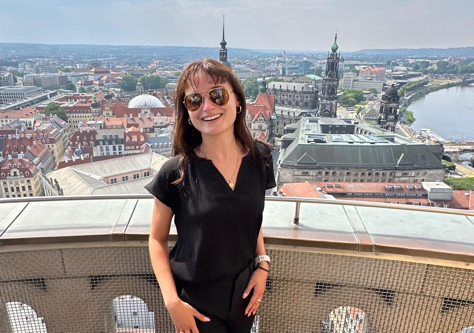
Before this trip, I had never heard of Erfurt or Magdeburg. It certainly would never have crossed my mind to travel to either city. After spending three weeks in Germany through RIAS, I can say one of the most rewarding aspects of the program was the diversity of cities we visited. We met people with such varied upbringings and career paths that contributed to our understanding of what it means to live in Germany both historically and today. I will never forget our conversations with Peter Keup about his experiences in the GDR, or Kani Alavi welcoming us into his studio. Being a journalist is about discovering and sharing people’s stories; to do that, you need to explore and learn about the world. This program helped me do that.
Arine Mkhitaryan, University of Oklahoma, Norman, Oklahoma
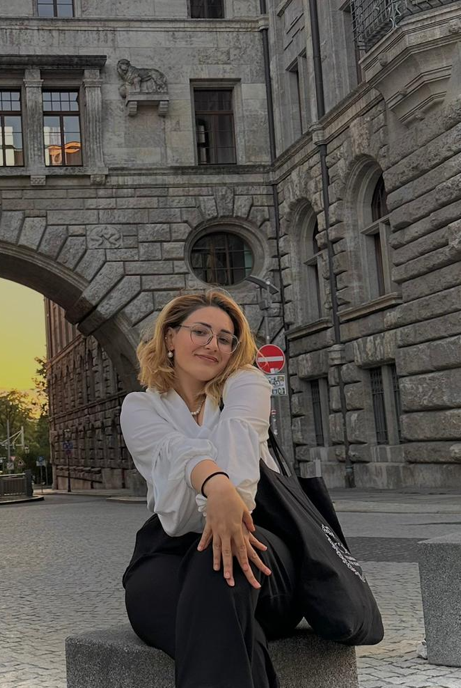 “The world is closing in. And did you ever think that we could be so close like brothers?” Communism and Capitalism, East and West, two worlds that got united with the fall of the Berlin Wall. What could be more iconic than exploring international understanding in Germany? Maybe singing “Wind of Change” in East Germany with East Germans, fully experiencing what the fall of the wall could feel like? Sam told me CIA was involved in the process of writing this song, but my idealistic self will choose to ignore that information. The wind of change hit me in Germany during the RIAS exchange program for students. I realized on the first day of the program: I am the collective of East and West. I grew up in the East bloc, but I was representing the West. What kind of Stasi spy was I? Of course, I am not a spy, but the load of information I received could definitely satisfy any spy. Germany’s past shaped its collective way of decision-making and emphasized the importance of freedom of speech and media. People there know the essence of one voice and how individuals matter for the good of the collective. The media can never be perfect, but in Germany, I saw the model of journalism closer to perfection. Understanding Germany became easier when talking to the people that have some kind of influence on the public. Every single person we talked to influenced me as well in different ways. Starting from media people and politicians, ending with activists and musicians that touched my soul to the point of tears. I became addicted to learning, addicted to stories, addicted to people and finally, addicted to asking questions. I also became addicted to the group of like-minded peers, who became a safe space and support system for me and for each other. It made it easier, that everybody had the same goal: broaden horizons, challenge and being challenged. To conclude, I want to make sure everyone understood: I am not a spy, I am just a sample of how Westerners and Easterners can actually be close like brothers. Thank you!
“The world is closing in. And did you ever think that we could be so close like brothers?” Communism and Capitalism, East and West, two worlds that got united with the fall of the Berlin Wall. What could be more iconic than exploring international understanding in Germany? Maybe singing “Wind of Change” in East Germany with East Germans, fully experiencing what the fall of the wall could feel like? Sam told me CIA was involved in the process of writing this song, but my idealistic self will choose to ignore that information. The wind of change hit me in Germany during the RIAS exchange program for students. I realized on the first day of the program: I am the collective of East and West. I grew up in the East bloc, but I was representing the West. What kind of Stasi spy was I? Of course, I am not a spy, but the load of information I received could definitely satisfy any spy. Germany’s past shaped its collective way of decision-making and emphasized the importance of freedom of speech and media. People there know the essence of one voice and how individuals matter for the good of the collective. The media can never be perfect, but in Germany, I saw the model of journalism closer to perfection. Understanding Germany became easier when talking to the people that have some kind of influence on the public. Every single person we talked to influenced me as well in different ways. Starting from media people and politicians, ending with activists and musicians that touched my soul to the point of tears. I became addicted to learning, addicted to stories, addicted to people and finally, addicted to asking questions. I also became addicted to the group of like-minded peers, who became a safe space and support system for me and for each other. It made it easier, that everybody had the same goal: broaden horizons, challenge and being challenged. To conclude, I want to make sure everyone understood: I am not a spy, I am just a sample of how Westerners and Easterners can actually be close like brothers. Thank you!
Isabella Gamez, University of Arizona, Tucson, Arizona 
One word stands out when I think of the German political system. That is democracy. Learning about Germany’s political system and comparing it to America’s made me realize just how important the word “democracy” is to Germans. There is a deep appreciation of this form of government that you don’t often see in the U.S. Visiting the Reichstag building, I walked around the glass dome and admired the transparency of the government in the policies they make for the people. On my way home, I recalled this memory as well as many others I made during the RIAS program. I’ll be forever grateful for this experience that I’m glad to call my first trip to Europe.
Linus Dentel, Ithaca College, Ithaca, New York
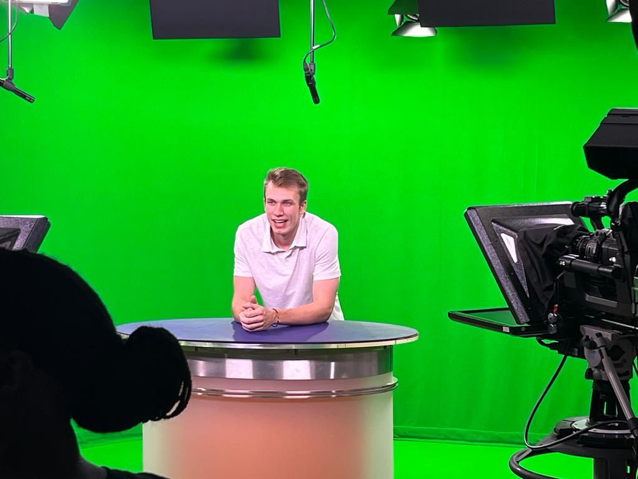 Over the last three weeks, I was fortunate to hear modern perspectives from individuals with great poise and intellect. From the open-minded group of students willing to discuss German nationalism (and it’s many layers), to the former Stasi prisoner who shared his life story, or to meeting an East Side Gallery artist who broke barriers by preserving them with art; each shared their story willingly. To me, these stories are the building blocks for the continued process that is reunification between East and West Germany. From the eyes of a student, Berlin, Dresden, Erfurt, Magdeburg, Leipzig and Hamburg were all new places for us to explore each with their own unique characteristics. From the eyes of a journalist, these cities offered something else: division. We observed during this program that Germany is a divided country just like the United States. Speakers like Andreas Weise, Julius van de Laar, Olaf Kische and Katharina Hamberger are among the many forward thinking people we met who recognize that without change there cannot be progress. Lastly, this program gave me the opportunity to forge new relationships which will last a lifetime and for that, I am grateful. Thanks to RIAS, I feel it’s fitting for me to end this by saying, “Ich bin ein Berliner.”
Over the last three weeks, I was fortunate to hear modern perspectives from individuals with great poise and intellect. From the open-minded group of students willing to discuss German nationalism (and it’s many layers), to the former Stasi prisoner who shared his life story, or to meeting an East Side Gallery artist who broke barriers by preserving them with art; each shared their story willingly. To me, these stories are the building blocks for the continued process that is reunification between East and West Germany. From the eyes of a student, Berlin, Dresden, Erfurt, Magdeburg, Leipzig and Hamburg were all new places for us to explore each with their own unique characteristics. From the eyes of a journalist, these cities offered something else: division. We observed during this program that Germany is a divided country just like the United States. Speakers like Andreas Weise, Julius van de Laar, Olaf Kische and Katharina Hamberger are among the many forward thinking people we met who recognize that without change there cannot be progress. Lastly, this program gave me the opportunity to forge new relationships which will last a lifetime and for that, I am grateful. Thanks to RIAS, I feel it’s fitting for me to end this by saying, “Ich bin ein Berliner.”
Julietta Bisharyan, University of California, Berkeley 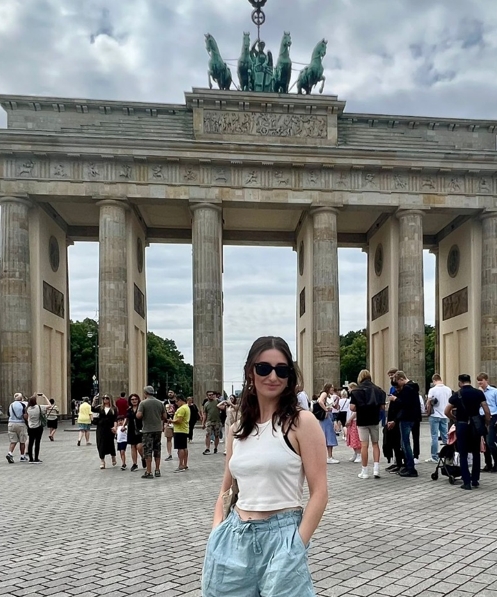
Over the past three weeks, I’ve learned a lot. While being an American affords numerous privileges, it’s crucial to understand that our country is far from perfect. Witnessing the Germans’ genuine commitment to addressing climate change only highlights the frustrations I feel about how this issue is handled back home. From free healthcare to tuition-free education, Germany seems to have found the right approach to many societal aspects. It’s a place where tangible progress is evident, which is something I wish I could confidently say about the United States. Above all, I deeply admire Germany’s openness regarding its dark history –– something that many other nations have yet to take the first step in. Everywhere you walk, there’s a reminder of the past and how it impacts the present. As I leave with 5 euros in my wallet, I carry with me not only fond memories but also many future story ideas that have been inspired by this transformative experience.
Mary Leopoldo, University of Arizona, Tucson, Arizona
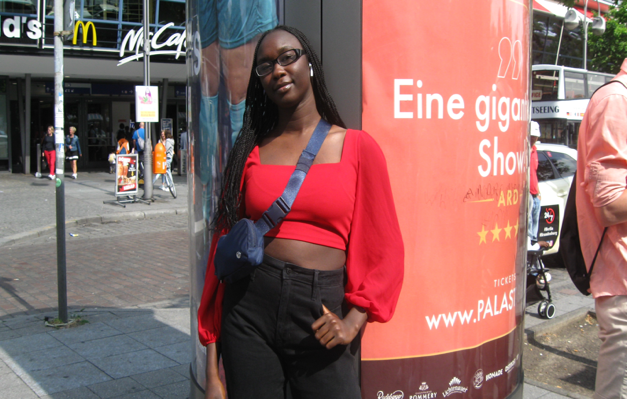 The past 3 weeks have been very informative. Learning and getting a deep understanding of Germany’s history and also how the government works. Visiting the Jewish memorial really puts everything to perspective and makes you appreciate highlighting your country’s wrongdoing and working towards better. Also meeting with the different political leaders helps you get a better understanding of what they believe and in what way they want to make Germany a better country not just in Europe but also around the world. Overall, I highly recommend this for anyone interested in how big of an impact journalism had during the cold war.
The past 3 weeks have been very informative. Learning and getting a deep understanding of Germany’s history and also how the government works. Visiting the Jewish memorial really puts everything to perspective and makes you appreciate highlighting your country’s wrongdoing and working towards better. Also meeting with the different political leaders helps you get a better understanding of what they believe and in what way they want to make Germany a better country not just in Europe but also around the world. Overall, I highly recommend this for anyone interested in how big of an impact journalism had during the cold war.
Daisy Tanner, Arizona State University, Phoenix, Arizona 
I grew up learning about a wall that divided a nation. I was taught about the differences between East and West Germany and watched videos of the wall falling. What the American education system failed to teach me was the negative impacts left after the wall fell. On this trip I talked to several people who grew up in the GDR, all of whom had a different experience and perspective. I met with a former Stasi prisoner, people who were proud to have served in the GDR military, and even to an East Side Gallery artist who painted the different emotions he saw on people’s faces as the wall came down. Talking to real people about their experiences and walking through multiple Eastern cities gave me a deeper understanding than I could have gotten from pictures in a textbook. I got to see how almost 30 years later the country is still trying to bridge the gap between the former East and West. The RIAS Berlin Commission gave me a glimpse into another world, one that I would not have been able to see on a typical tourist trip. The cultural experience and understanding I gained in just three weeks some people don’t even experience in a lifetime. I will forever be grateful for the opportunity that this program provided.
Jarred Watkins, Miami University, Oxford, Ohio
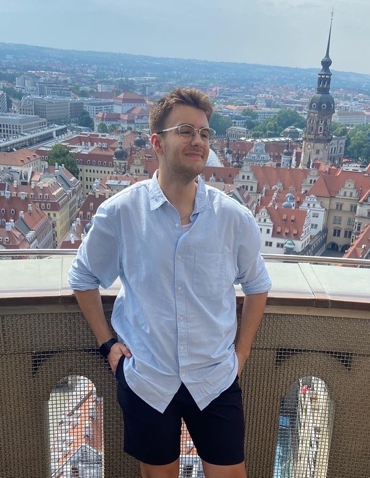 Exhausted from 24 hours on a plane and running between gates left me with only one thing to say to my father when he picked me up from the airport: “Germany, no, RIAS, has forever changed my perspective on what it means to be a democracy. We are not doing it wrong, but they are doing it right.” Even after my 13-hour slumber and morning coffee, what I told my father that night in the car stood true. We spoke to members of parliament, journalists, students, historians and even former Stasi prisoners who all spoke on what it meant to live in a divided country before it was a united democracy. We learned about the structures and systems of power both before and after reunification and the issues and successes of both. Truly an eye-opening experience.
Exhausted from 24 hours on a plane and running between gates left me with only one thing to say to my father when he picked me up from the airport: “Germany, no, RIAS, has forever changed my perspective on what it means to be a democracy. We are not doing it wrong, but they are doing it right.” Even after my 13-hour slumber and morning coffee, what I told my father that night in the car stood true. We spoke to members of parliament, journalists, students, historians and even former Stasi prisoners who all spoke on what it meant to live in a divided country before it was a united democracy. We learned about the structures and systems of power both before and after reunification and the issues and successes of both. Truly an eye-opening experience.
American journalism students on 3-week fellowship to Germany
The fourth annual RIAS Berlin ERP fellowship for American students in Germany got off to a flying 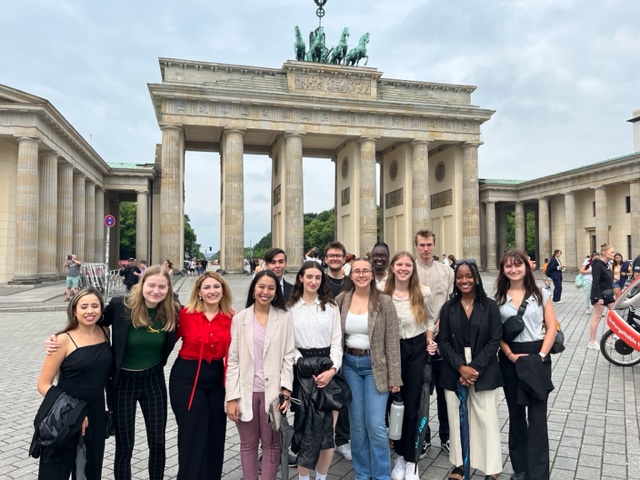 start with dozens of meetings with German journalists, editors, directors, politicians, community leaders, experts and political analysts. The Americans will spend a total of three weeks in Germany, learning more about the role that broadcast journalism, including from the legendary Radio in American Sector Radio and TV broadcaster (RIAS), played in the peaceful conclusion to the Cold War.
start with dozens of meetings with German journalists, editors, directors, politicians, community leaders, experts and political analysts. The Americans will spend a total of three weeks in Germany, learning more about the role that broadcast journalism, including from the legendary Radio in American Sector Radio and TV broadcaster (RIAS), played in the peaceful conclusion to the Cold War.
The 13 students came to Germany on June 18 from universities across the Midwest, South and 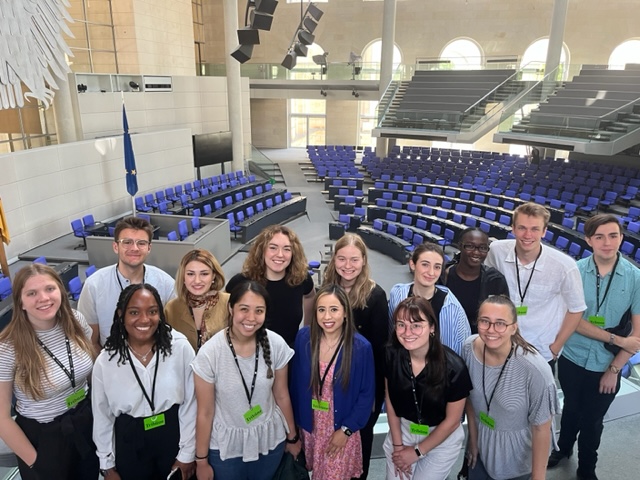 Southwest — such as the University of Oklahoma, Arizona State University in Phoenix, University of Arizona in Tucson, University of Miami-Ohio, University of Georgia, Elon College in North Carolina, Ithaca New York, and University of California-Berkeley. For many of the American students it was their first trip outside the United States and for some the first journey outside their home region.
Southwest — such as the University of Oklahoma, Arizona State University in Phoenix, University of Arizona in Tucson, University of Miami-Ohio, University of Georgia, Elon College in North Carolina, Ithaca New York, and University of California-Berkeley. For many of the American students it was their first trip outside the United States and for some the first journey outside their home region.
The goal of the ERP program, which was created with support from a grant from the Economy 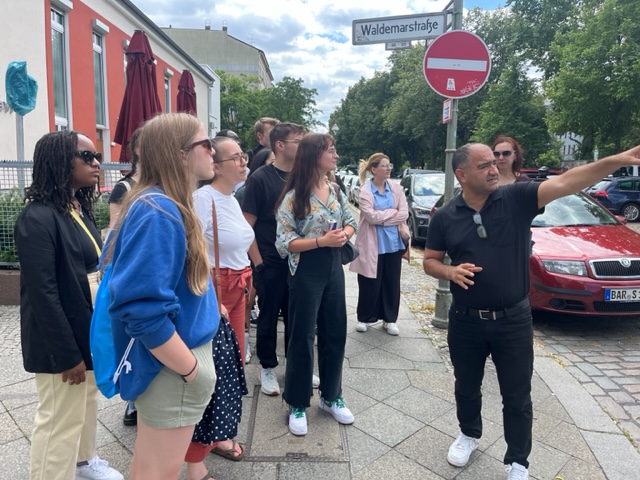 Ministry, is to expand horizons, help connect young American journalism students with their peers in Germany and help aspiring journalists in both countries learn more about journalism training in each others’ countries.
Ministry, is to expand horizons, help connect young American journalism students with their peers in Germany and help aspiring journalists in both countries learn more about journalism training in each others’ countries.
The ERP program is supported by the Transatlantic Program of the Federal Republic of Germany. It is funded by the European Recovery Program (ERP) of the Federal Economy and Energy (BMWi) Ministry.
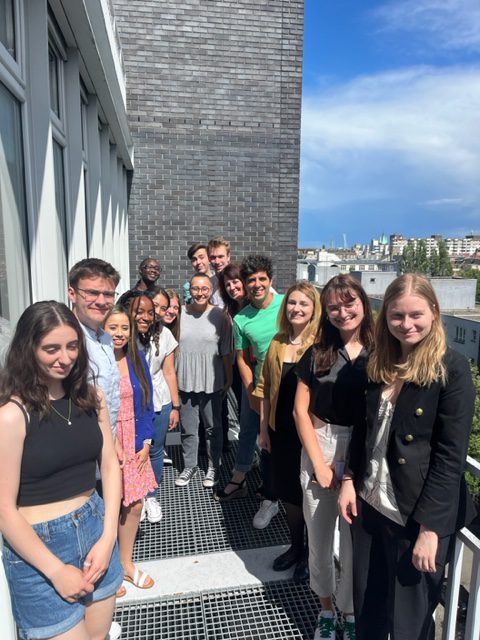 The first week of the program was spent visiting media outlets, students and trainees at TV stations in Dresden, Erfurt and Magdeburg in formerly Communist East Germany. They visited journalists working for MDR TV in Dresden, young politicians and student leaders in Erfurt and students and ZDF correspondent Andreas Weise in Magdeburg. The second week featured meetings in Berlin with TV journalists at the commercial Welt TV network, at Deutsche Welle international broadcaster, at the Holocaust memorial in Berlin, at the former Stasi prison in Hohenschönhausen and the former Stasi headquarters in East Berlin. They also had the chance to watch ZDF Morgenmagazin live and meet with its editor in chief Andreas Wunn. They toured the ethnic Kreuzberg
The first week of the program was spent visiting media outlets, students and trainees at TV stations in Dresden, Erfurt and Magdeburg in formerly Communist East Germany. They visited journalists working for MDR TV in Dresden, young politicians and student leaders in Erfurt and students and ZDF correspondent Andreas Weise in Magdeburg. The second week featured meetings in Berlin with TV journalists at the commercial Welt TV network, at Deutsche Welle international broadcaster, at the Holocaust memorial in Berlin, at the former Stasi prison in Hohenschönhausen and the former Stasi headquarters in East Berlin. They also had the chance to watch ZDF Morgenmagazin live and meet with its editor in chief Andreas Wunn. They toured the ethnic Kreuzberg  neighborhood with former Greens political leader Özcan Mutlu, met American swing dance band leader Andrej Hermlin and visited the US Embassy. The young Americans also learned more about tight gun controls in Germany that have all but put an end to school shootings, and the health insurance system that covers almost everyone in Germany.
neighborhood with former Greens political leader Özcan Mutlu, met American swing dance band leader Andrej Hermlin and visited the US Embassy. The young Americans also learned more about tight gun controls in Germany that have all but put an end to school shootings, and the health insurance system that covers almost everyone in Germany.
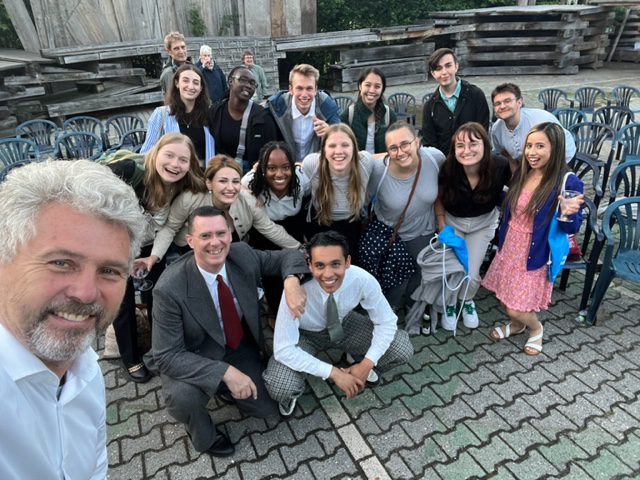 The Americans also visited the Allied Museum in West Berlin and the Tempelhof Airport in the center of the city that served as the main landing field during the 1948/49 Airlift that kept West Berlin a free city. They will also be spending a day in Leipzig and a day in Hamburg in their third and final week of the program that ends on July 8.
The Americans also visited the Allied Museum in West Berlin and the Tempelhof Airport in the center of the city that served as the main landing field during the 1948/49 Airlift that kept West Berlin a free city. They will also be spending a day in Leipzig and a day in Hamburg in their third and final week of the program that ends on July 8.
Impressions of American journalists after RIAS program to Germany
Here are some impressions from 10 American journalists after a two-week fellowship with the RIAS Berlin Commission to Brussels and Germany from June 4 2023 to June 17, 2023. The 10 Americans, many from Midwest, South and Southwest and several on their first trip to Germany, spent two days in Brussels, two in Cologne, two in Hamburg and a week in Berlin on a program to expand horizons and build networks between German and American broadcast journalists.
Sam Wright, Dakota News Now, Sioux Falls, South Dakota
The RIAS program provided an experience I didn’t know I needed. I think hands- on interactions teach the best lessons and this was filled with countless examples. Hearing from politicians and journalists about issues prevalent for people in Germany and Europe are similar conversations we are having in America (energy, economy, immigration, war). Because of this program, I am heading back to the United States as a changed person with new viewpoints that I hope will give viewers more perspective in my reports.
Scott Shafer, KQED, San Francisco, California
I had high expectations for the RIAS Berlin fellowship, and my two weeks in Belgium and Germany exceeded them all. The opportunity to have dozens of off the record, substantive conversations with a wide range of officials, journalists, activists and thinkers from across the political spectrum in Germany and the broader EU was invaluable to my understanding of the world. Sharing this experience with a diverse group of American journalists from across the country was something I will always remember and treasure. Thank you, Erik Kirschbaum and the entire RIAS family!
Deion Broxton, KMOV, St. Louis, Missouri
I think this was a once-in-a-lifetime program. The behind-the scenes access and off-the-record conversations with international, German, and U.S. officials will resonate with me for the rest of my life. The conversations had during the program has provided clearer context when consuming German/international news. I would recommend this program to anyone with the slightest interest in German journalism.
Barbara Banish, University of Wisconsin-Oshkosh
When people heard I was going on the RIAS Berlin fellowship, a common response was “That sounds like a fun vacation.” But their comment couldn’t be further from the truth; the fellowship is much more. It is an opportunity to connect with journalists and officials from across the nation and Europe, learn about German and Belgium institutions and government agencies, and deepen your understanding of world politics and people. The learning really starts before you board an airplane. As you answer a list of questions in advance, you learn what you didn’t know you needed to know, which gives you a background for what is to come. It truly is a life-changing program, and despite the exhausting pace, I wouldn’t change one thing. I will cherish the knowledge and the friendships for the rest of my life. Thank you, Erik Kirschbaum and the rest of the RIAS team!
Evan Koslof, WUSA9, Washington, D.C.
This trip was not a vacation. It was actually better than that. This was an incredible opportunity to learn about journalism and the political system in Germany. With each conversation with a top diplomat, news anchor, or foreign correspondent — my world expanded ever so slightly. I return to the states, with a more comprehensive worldview. I would recommend this program to anyone who wants to learn to be a better journalist and world citizen.
Liliana Soto, University of Arizona, Tucson, AZ
Gustavo Valdes, CNN, Atlanta, Georgia
The RIAS program for journalists proves that old dogs can learn new tricks. I arrived in Brussels with a blank slate, without preconceived ideas or expectations of the program and it paid off. From day one it was obvious the quality of the guest speakers and topics of discussion and the enthusiasm of the RIAS alumni that joined us and made us feel at home at every stop along the journey.
The visits with NATO, EU and U.S. gave us access to places not many of us get to visit during our careers and the talks with the officials gave us a good insight of the importance of transatlantic relations. The visits to local broadcasters allowed us to see how our German colleagues do their job, compare notes and pick a few tips on how we can improve our daily routine back home.
I particularly appreciated that the program included political voices from several points of views from the Left and Right who talked to us openly and didn’t shy away from our questions. I leave with a new perspective on US-Europe relations, how that partnership can be extended to other parts of the continent, and a new perspective in how to approach international stories taking in consideration how it might be seen both at home and across the Atlantic Ocean.
Dave Mistich, NPR, Morgantown, West Virginia
As a newscast producer who often deals with international stories, especially news from Europe and, more specifically, Germany — I often ask myself what sort of context I might be missing when I see some stories hit the wires and read through similar coverage in other outlets. It was this desire to better understand the Transatlantic dynamic, to experience and engage with German and EU politics, culture, history and news media that drew me to the RIAS program. To put it simply: I got what I asked for and a whole lot more. Thanks to a tour of a former Stasi Prison, a look at where the Berlin Wall once stood, discussions with spokespeople from the EU and NATO, meetings with German politicians and dozens of other leading journalists and other experts — I’m now a proud alumnus of the RIAS program, with ten times the knowledge and understanding I had before I arrived.
Maranda Whittington, WKRN, Nashville, Tennessee
I never thought that having a life in Europe would be possible for me until this trip. Having the opportunity to meet so many people and learn about their lives in Germany caused me to realize it’s something I could have too. I’m grateful to have been able to sit in rooms and hear the stories of other journalists as well as see how news operates in Germany. More than that I’m grateful that I learned all of this with nine other people who I can walk away from this experience calling my friends. It was a busy, but worthwhile experience that has bonded us together and I’m so glad I was able to learn and grow with a great group of individuals.
Adrienne DeMoss, KBTX, Bryan, Texas
The RIAS program provided an exchange of ideas, professionals and experiences that are not available anywhere else. The in-depth program leaves no stone unturned and journalists will return with a broad perspective and cultural understanding. From speaking with parliamentary members from different backgrounds to feasting with radio legends, RIAS fellows will be bring back important insights that will benefit newsrooms across the US.
Erik Kirschbaum, Executive Director, RIAS Berlin Commission
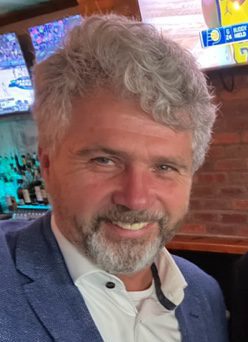 More than 40 high-level meetings over 12 days in 4 cities in 2 countries with speakers from dozens of different nationalities, interests and backgrounds might be daunting for anyone to digest. But these 10 American journalists from across the USA came to Europe well-prepared and ready with their pens, blank notebooks and open minds to learn as much as possible in less than two weeks. From a former Palestinian refugee who is now a successful political leader and book author to a west German member of parliament for the far-right AfD party and to the conservative mayor of Berlin, the Americans seized the chance to learn as much as they could from their guest speakers — and in that respectful style of as-neutral-as-possible American journalism they got so much out of their talks with scheduled and unscheduled speakers. Hats off for their stamina, curiosity and their flexibility to adjust to last-minute changes in the schedule.
More than 40 high-level meetings over 12 days in 4 cities in 2 countries with speakers from dozens of different nationalities, interests and backgrounds might be daunting for anyone to digest. But these 10 American journalists from across the USA came to Europe well-prepared and ready with their pens, blank notebooks and open minds to learn as much as possible in less than two weeks. From a former Palestinian refugee who is now a successful political leader and book author to a west German member of parliament for the far-right AfD party and to the conservative mayor of Berlin, the Americans seized the chance to learn as much as they could from their guest speakers — and in that respectful style of as-neutral-as-possible American journalism they got so much out of their talks with scheduled and unscheduled speakers. Hats off for their stamina, curiosity and their flexibility to adjust to last-minute changes in the schedule.
June 2, 2023
Images from the 2023 RIAS Media Awards Prize ceremony in Berlin
More than 200 journalists, politicians, board members, alumni and friends of the RIAS Berlin Commission joined US Ambassador Amy Gutmann and Grand Prize Winner Wolf Blitzer at the 2023 RIAS Berlin Commission awards ceremony in Berlin on Thursday, June 1. In her keynote speech, Gutmann said a free press is democracy’s essential ally and added it was a pleasure to join Wolf Blitzer and all of the prize winners to celebrate the achievements of an extraordinary group in defending democracy, and the values of a free world.
Blitzer won this year’s Grand Prize for his CNN documentary film “Never Again: The U.S. Holocaust Memorial Museum: A tour with Wolf Blitzer”. More than 100 RIAS Berlin alumni — journalists from the United States and Germany who have participated in RIAS Berlin exchange programs of one to three weeks over the last 32 years — were also at the ceremony that celebrates outstanding radio, TV and digital stories with a transatlantic or universal message that were aired in either of those two countries in 2022.
German journalist Claus Kleber was honored with a “Lifetime Achievement” award for his career in both the United States and Germany reporting on transatlantic issues, starting with his work at as the editor of the RIAS (Radio in American Sector) radio station in the late 1980s to his work as a foreign correspondent in Washington DC and later as the anchor of the popular “Heute Journal” evening newscast on ZDF television from Mainz. Kleber has been a longtime supporter of RIAS, giving guest talks and recruiting outstanding candidates for the RIAS exchange programs.
Also attending the awards ceremonies in Berlin’s Französicher Dom cathedral were journalists who have participated in RIAS programs — two three-week long exchange programs each year for German and American journalism students; four two-week long exchange programs for mid-career professional journalists from Germany and America each year; and one short/alumni one-week program each year for alumni participants.
Wolf Blitzer recalls recent harrowing discovery in speech at RIAS awards ceremony
Wolf Blitzer said he was deeply honored that his documentary film about the Holocaust Memorial in Washington DC told masterfully through the prism of his own family’s history in Poland, Germany and the United States for CNN had won top honors at the 2023 RIAS Media Prize awards ceremony. Blitzer, the son of Holocaust survivors, spoke about a harrowing discovery he made a few weeks ago while visiting a gas chamber in Auschwitz on a guided tour that it was where two of his grandparents had been killed.
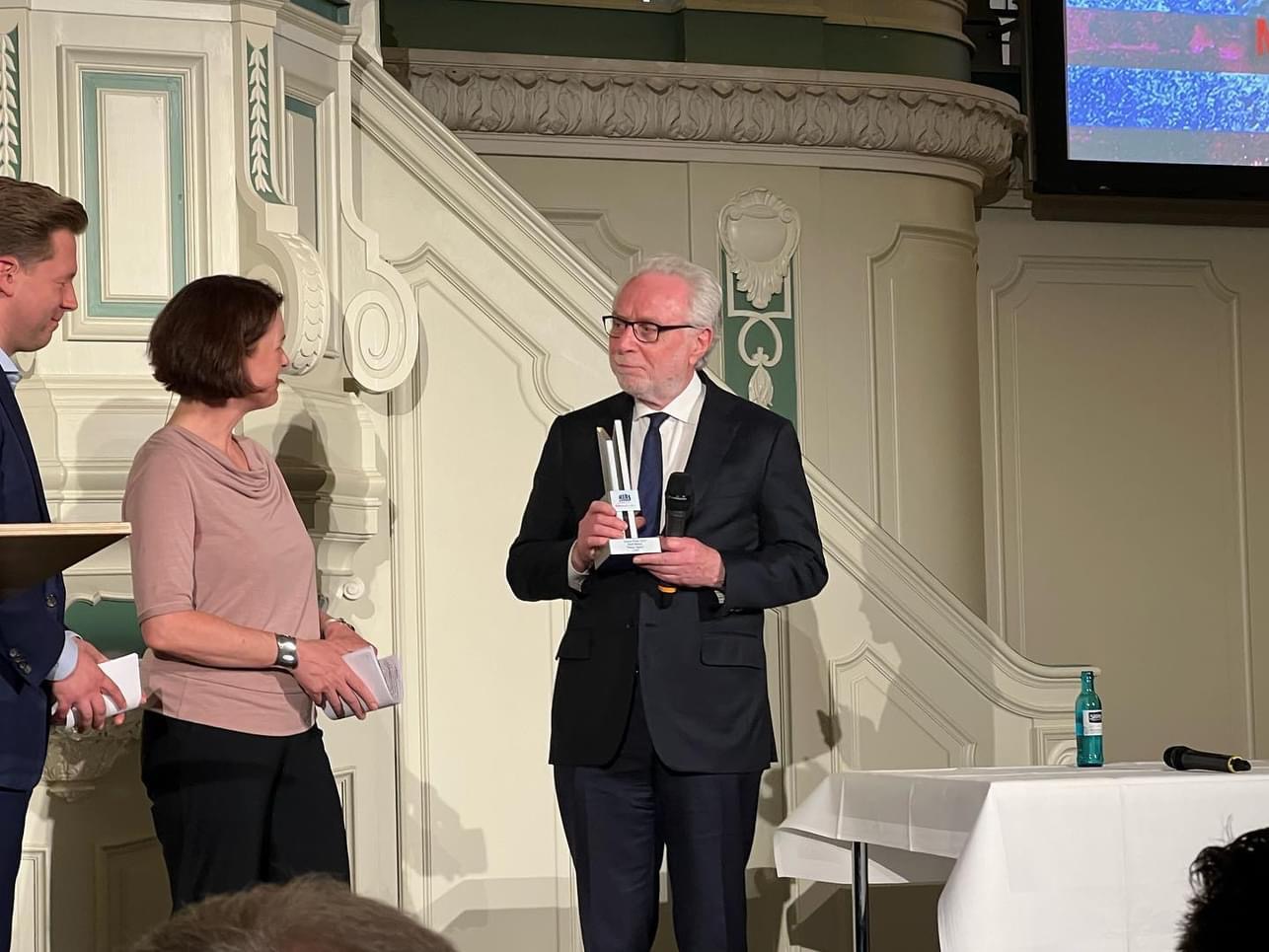 Blitzer told the audience of 220 German and American journalists and supporters affiliated with the 31-year-old exchange program at the ceremony in Berlin that he and his CNN team that worked on the prize-winning documentary “Never Again: A Tour of the U.S. Holocaust Museum” for nearly a year. He said that he knew his father’s parents had been killed at Auschwitz but little else about the details of their deaths until visiting the former concentration camp’s gas chamber in Poland a few weeks ago — when a guide informed him about details he didn’t know about.
Blitzer told the audience of 220 German and American journalists and supporters affiliated with the 31-year-old exchange program at the ceremony in Berlin that he and his CNN team that worked on the prize-winning documentary “Never Again: A Tour of the U.S. Holocaust Museum” for nearly a year. He said that he knew his father’s parents had been killed at Auschwitz but little else about the details of their deaths until visiting the former concentration camp’s gas chamber in Poland a few weeks ago — when a guide informed him about details he didn’t know about.
“This was one of the most emotional moments in my life,” Blitzer said, recalling the moment the guide asked him the town where his Polish Jewish grandparents came from. “He looked at me and paused. It was very dramatic. There were a bunch of people in this gas chamber. We were all watching and listening. He said to me ‘Your grandparents were killed in this gas chamber where we’re standing right now because this is where they brought the Polish Jews. They brought the Hungarian Jews and other Jews to Birkenau. But the Polish Jews, especially from the towns outside Auschwitz, were brought to this gas chamber. So your grandparents were killed in this gas chamber.’
“I was standing there and saw this gas chamber,” Blitzer added. “And it was a very, very emotional moment for me to learn – I didn’t know that – that my dad’s parents were killed inside this gas chamber where we were standing. And I did what I thought my grandparents and my mom and dad, who have both passed away, would want me to do at that moment. A very emotional moment. I said the Jewish memorial prayer, Kaddish, in memory of my grandparents. Knowing that when they were killed at Auschwitz, in this gas chamber, there was nobody to say Kaddish for them. So I said it. And it was just a very emotional moment for me. And it was, of course, something I’ll never forget.”
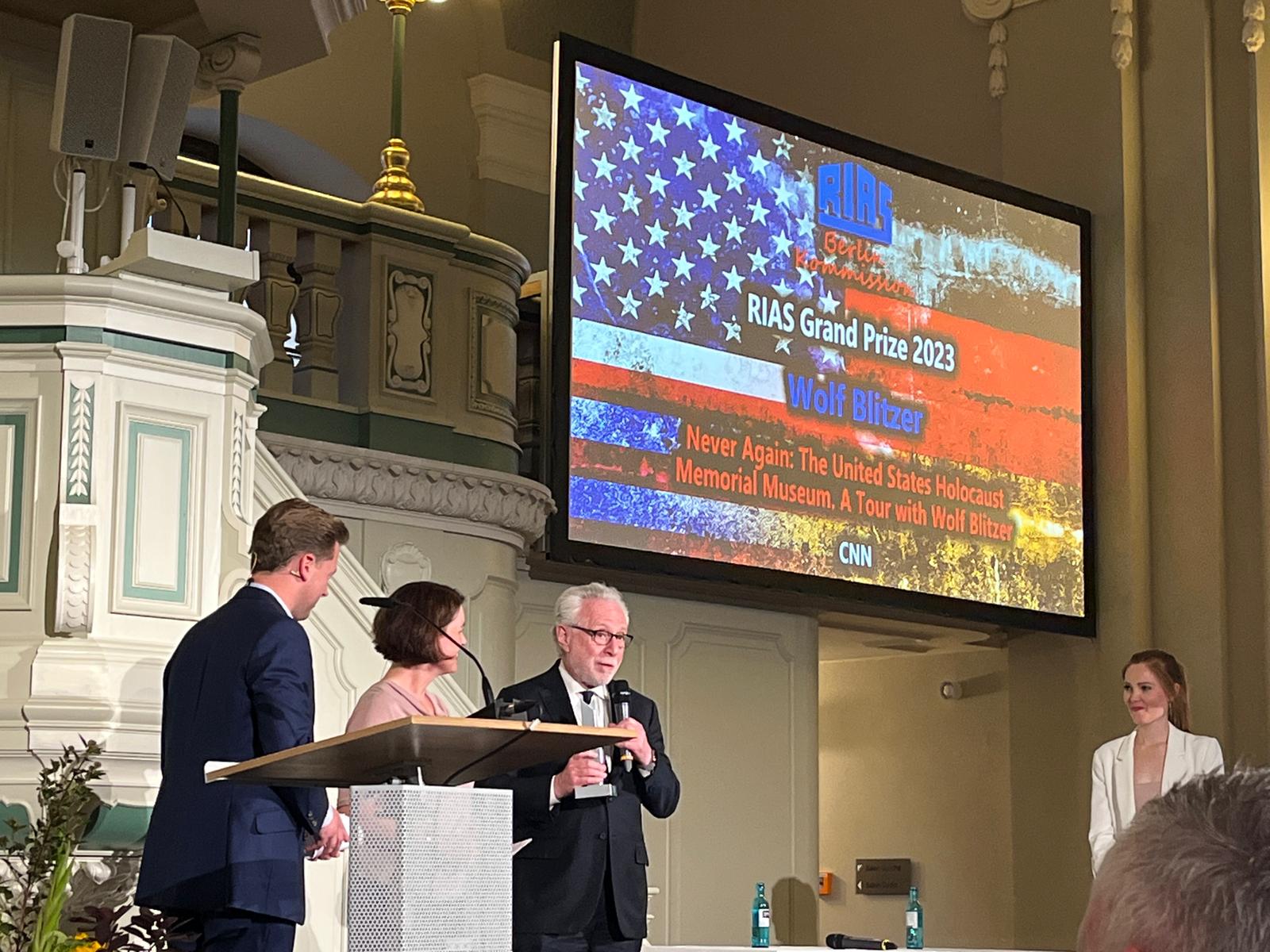 Blitzer, who received a standing ovation from the audience after telling the story of the recent visit to Poland, said that his parents had met on a train in Germany soon after surviving the Holocaust and lived for a time in the Bavarian city of Augsburg near Munich, where he and his older sister were born. His family immigrated to the United States when he was a toddler and settled in Buffalo, New York. He also praised American Ambassador Amy Gutmann, who was the keynote speaker at the annual awards ceremony paying tribute to outstanding German and American broadcast journalism that transcends borders, for talking about her father’s fleeing from Nazi Germany before she was born.
Blitzer, who received a standing ovation from the audience after telling the story of the recent visit to Poland, said that his parents had met on a train in Germany soon after surviving the Holocaust and lived for a time in the Bavarian city of Augsburg near Munich, where he and his older sister were born. His family immigrated to the United States when he was a toddler and settled in Buffalo, New York. He also praised American Ambassador Amy Gutmann, who was the keynote speaker at the annual awards ceremony paying tribute to outstanding German and American broadcast journalism that transcends borders, for talking about her father’s fleeing from Nazi Germany before she was born.
He also spoke about his father’s ever-lasting pride in seeing Blitzer, who began working at CNN 33 years ago, appearing on the network with a worldwide audience.
“He thought for him, personally, the greatest revenge to Hitler was to see his son report the news on worldwide television,” said Blitzer, 75. “It was for him so important that the next generation, that a Jewish reporter, could be seen on CNN reporting the news. It was just a very, very powerful feeling of revenge. His message to Hitler: take a look. See what you’ve done. You didn’t kill all the Jews and here is Wolf Blitzer, reporting the news on CNN.”
Blitzer, who has also been a guest speaker to RIAS Berlin Commission groups of visiting German journalists in Washington, said he was a believer in the power of exchange programs such as RIAS, which was created in 1992 after the Berlin-based German-language Radio in American Sector (RIAS) went off the air after the Cold War ended. And he vowed to continue to support RIAS programs in Germany and the United States.
“I promise I will be a very, very active and wonderful alum,” he said.
Blitzer said he and his team at CNN were especially honored to win the RIAS Berlin Commission’s Grand Prize for outstanding broadcast journalism in 2023 precisely because it was a German-American organization.
“This is so powerful for me. I’ve received many awards over the years for my journalism. But when I learned that this documentary that we did on CNN, ‘Never Again, a tour of the US Holocaust Memorial Museum’ was being honored with this grand prize….it says ‘Grand Prize’, not just ‘Prize’…. but ‘Grand Prize’….when I realized we were getting this Grand Prize, not from some American organization or some European organization but a German media, a German-American media organization…. Everyone, all of us at CNN were so excited. That it was this organization, RIAS, that it was decided they were going to honor CNN, and honor me, for this Grand Prize – it wasn’t just me; it was a whole team at CNN working on this documentary for almost a year, getting it ready — and it was just a very emotional experience for all of us. I’m just so glad that CNN decided to do it.”
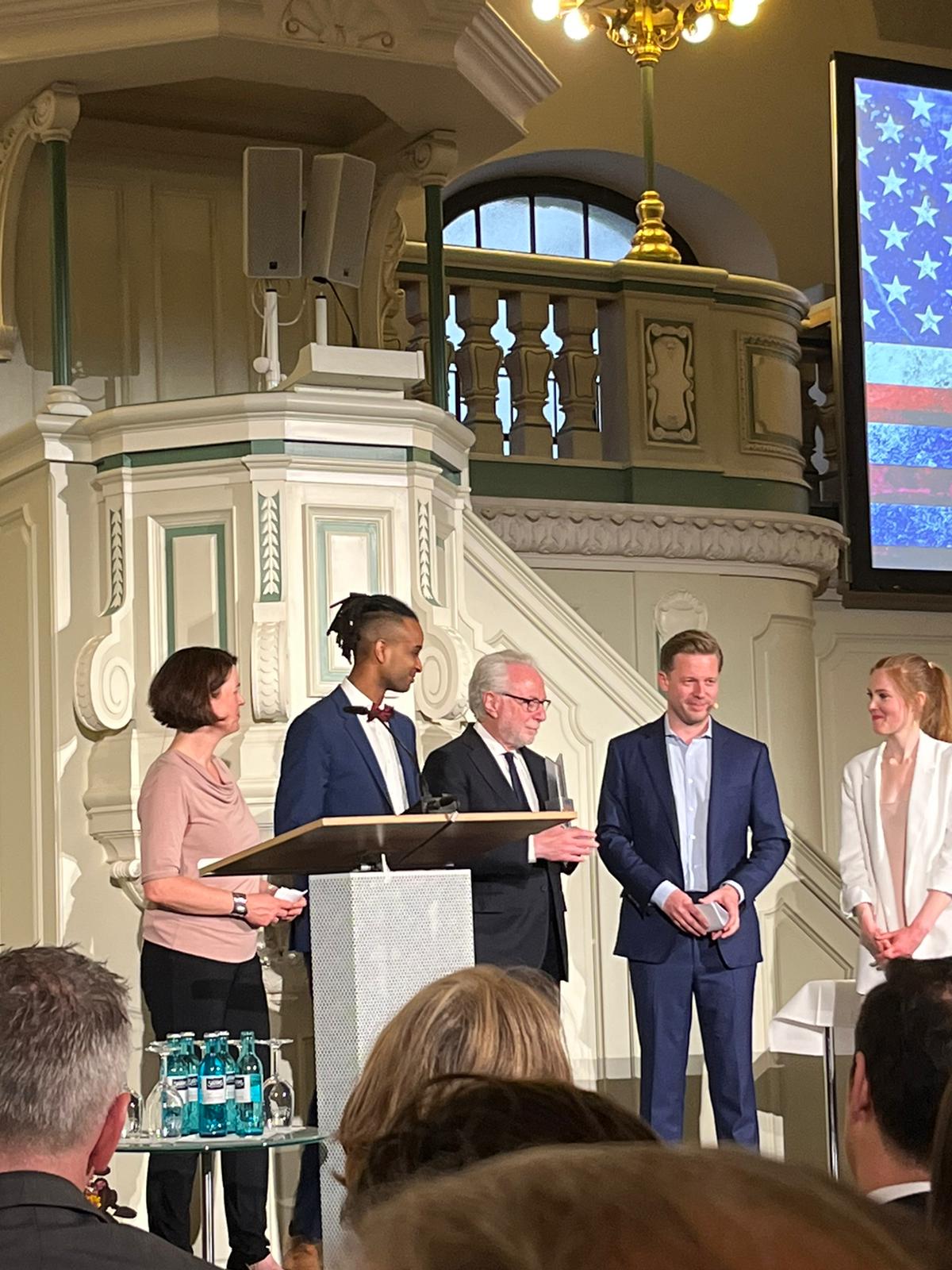
Interview with RIAS Berlin Commission Grand Prize winner Wolf Blitzer
Wolf Blitzer, a CNN reporter and anchor, talked about his documentary film “Never Again” for CNN that won top honors in the 2023 RIAS Media Prize competition in an interview for the www.riasberlin.org website. The film about the US Holocaust Memorial Museum in
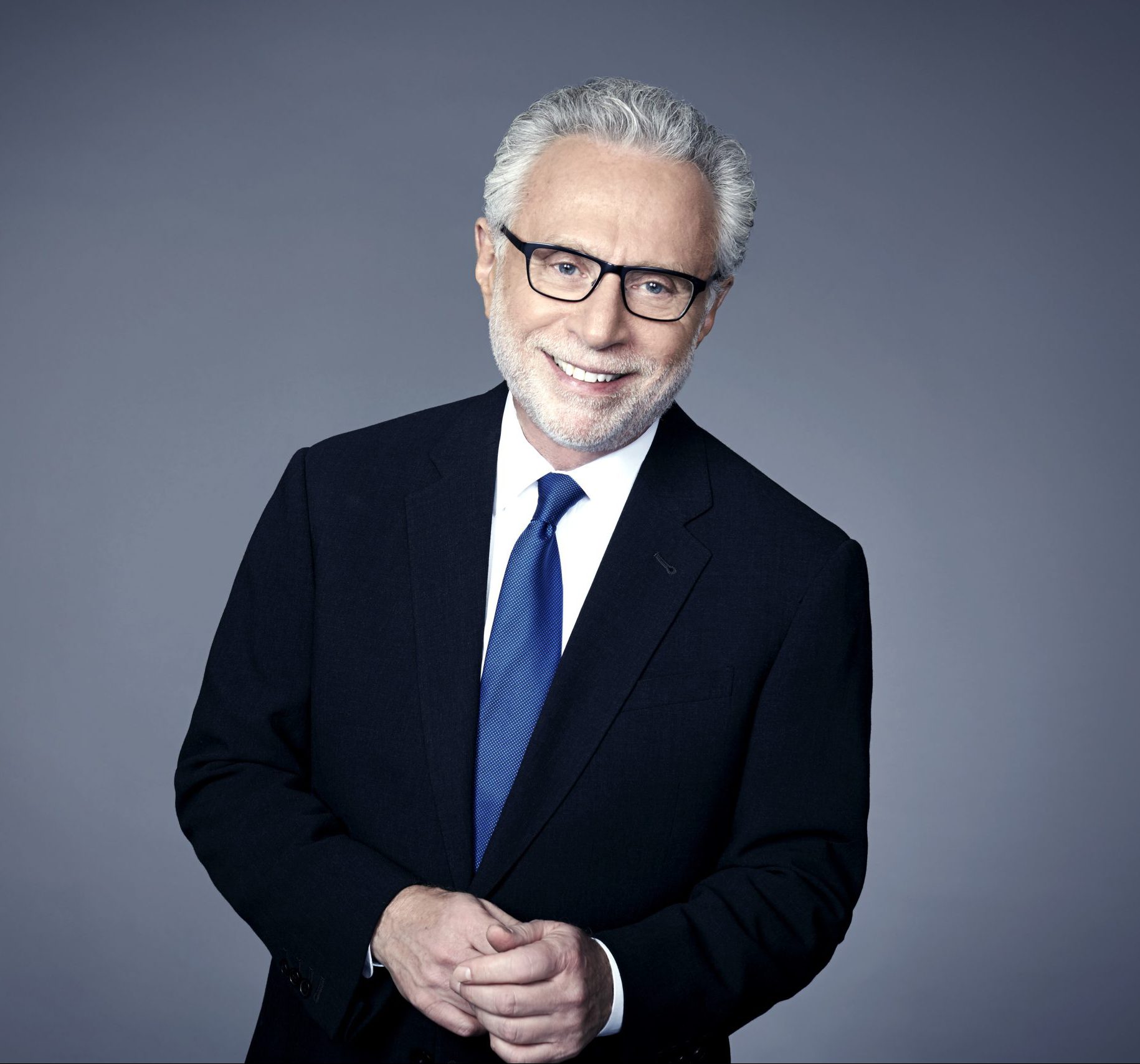
Washington narrated by Blitzer also includes his own personal reflections about his family and his four grandparents who were killed in the Holocaust. Blitzer — a journalist, anchor and author who has been at CNN since 1990 — said in the interview with RIAS board member Michael Gargiulo and executive director Erik Kirschbaum that he felt honored to win the annual competition’s “Grand Prize Award” and was looking forward to receiving the awards ceremony in Berlin on June 1.
Question: Journalists traditionally avoid making themselves the center of a story. Why did you feel it was important to highlight your own family’s experiences in the Holocaust?
Wolf Blitzer: “It’s a good question and you’re absolutely right. When I started out in journalism I worked for Reuters and I would come back from an assignment and I would tell these older British journalists what I thought and they’d say the same thing: ‘Nobody really cares, Wolf, what you think. Just give us the facts, give us the facts and we’ll report the news’. So you’re right, journalists like to stay away from being part of the news. They just want to report the news. But a few years ago, the then-president of CNN Jeff Zucker asked some of the anchors to do pieces about their heritage, their family history, their roots to give the viewers a little bit more knowledge about where they’re coming from and what they’re all about. He asked me to do. When they asked me, I was on an assignment in Israel and covering one of the wars that was going on with Hamas and Gaza and of course said ‘yes, I’d be happy to do it.’ Ever since I was a little boy I knew my parents were Holocaust survivors and I always knew that my four grandparents were killed in the Holocaust. So I decided I would tell that story. And we do a roots piece on CNN. It was about 8 minutes long. When I was in Israel and went to the Israeli Holocaust museum Yad Vashem. I knew that my dad had done an oral history. I went there and met with the director and he gave me some information about what my dad had told them years earlier when he was visiting Jerusalem. I knew my grandparents had been killed in the Holocaust but I didn’t know any details. It was then I discovered that my paternal parents had been killed in Auschwitz, which was news to me at the time. There it was at Yad Vashem documented. I decided that, as part of this piece that I was going to do for CNN about my roots, about my family history, I would fly over to Poland and go to Auschwitz. I had never been there. I went there and did a tour of Auschwitz and Birkenau. It was really powerful for me, very personal obviously, to see it. I included all that in the piece that I did for CNN. That was how I, initially, was reporting to our viewers for CNN in the US and around the world about my own family history and how it came out. More recently, CNN asked me to do a documentary on the US Holocaust memorial museum in Washington, 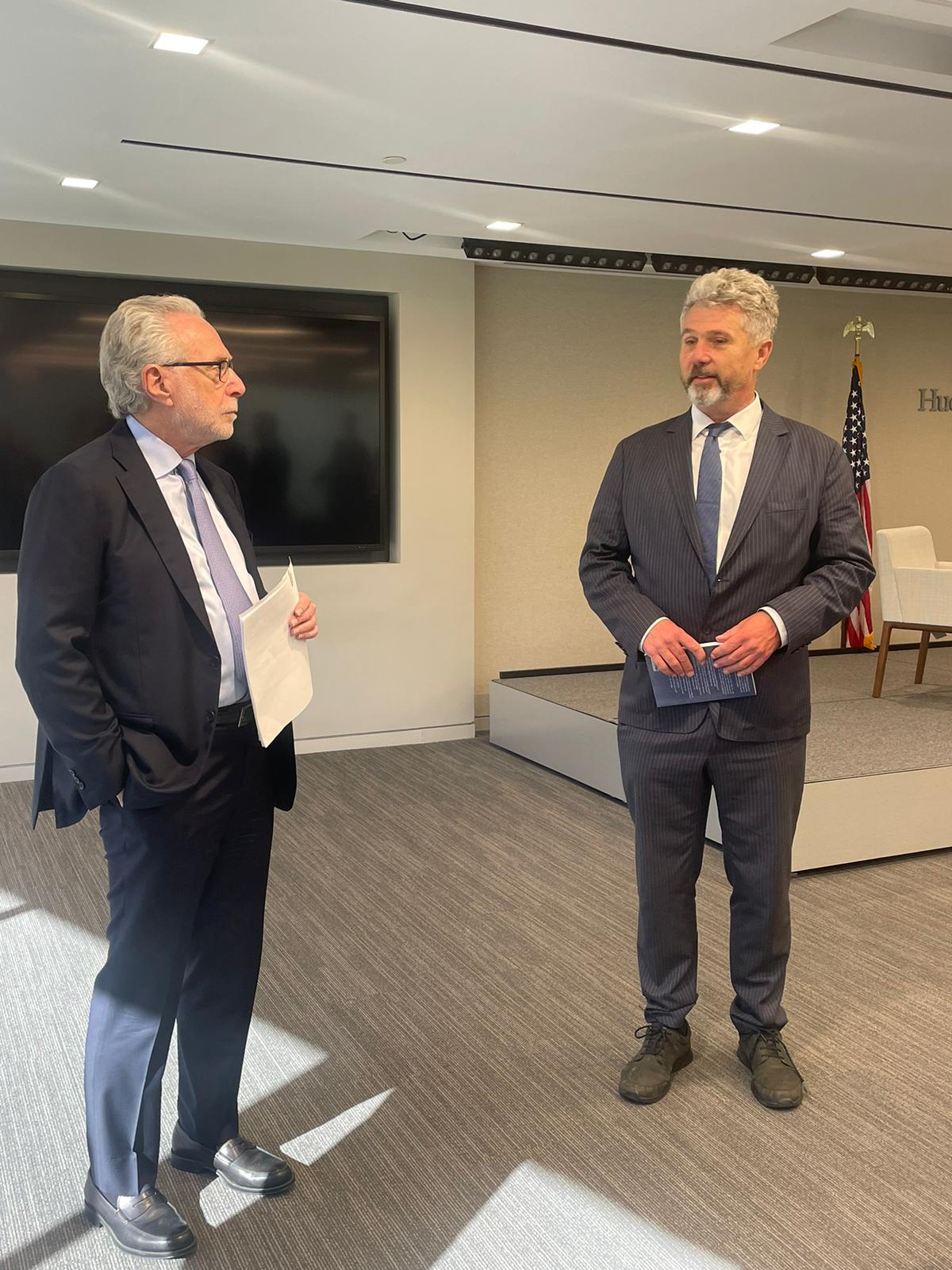 which I did and am so thrilled that you are honoring with the grand prize this year. In researching for that documentary, one of my producers discovered that my dad had done an oral history, a Q&A, with the Holocaust education Center in Hollywood, Florida. I found this one-hour Q&A. My dad had done a Q&A with the US Holocaust Memorial Museum in Washington too but that was audio only. The one in Florida was video, audio and video. It was so powerful for me to see it and learn more details. I included that in the documentary about the US Holocaust Memorial Museum in Washington with some actual sound from my dad talking about his experiences. It was very personal, very powerful for me. And I think it was very powerful for the viewers who watched it. So that’s how I came about reporting about my family history.”
which I did and am so thrilled that you are honoring with the grand prize this year. In researching for that documentary, one of my producers discovered that my dad had done an oral history, a Q&A, with the Holocaust education Center in Hollywood, Florida. I found this one-hour Q&A. My dad had done a Q&A with the US Holocaust Memorial Museum in Washington too but that was audio only. The one in Florida was video, audio and video. It was so powerful for me to see it and learn more details. I included that in the documentary about the US Holocaust Memorial Museum in Washington with some actual sound from my dad talking about his experiences. It was very personal, very powerful for me. And I think it was very powerful for the viewers who watched it. So that’s how I came about reporting about my family history.”
Question: What was it like for you in the course of making that documentary to walk though the Holocaust Museum, hear the descriptions of the exhibits, how emotionally difficult for you?
Blitzer: “It was very emotionally difficult but it was very important. I’ve been to the US Holocaust Memorial many times over the years so in connection with doing the work for the documentary it wasn’t new for me to see it because I had visited it on many occasions. But no matter how many times you go there, you see the images, you see the video, you see the pictures, you see the stories, it’s very meaningful, it’s very powerful. It’s part of our tradition of ‘Never Again’. That if we don’t learn from history, we’re bound to repeat it. That’s why it’s so important to learn and to say never again.”
Question: The youngest Holocaust survivors are now in their 80’s. Are you concerned that in the future, the Holocaust will be part of history, without the power of their personal testimony?
Blitzer: “That’s why it’s so important for these Holocaust survivors to give that personal testimony and to do it on video, to do it on tape, so that it’s going to be there forever. It’s going to be online. It’s really important. You’re absolutely right. Holocaust survivors sadly are dying. Years ago, 15 or 20 years ago, when I would go to the annual dinner of the US Holocaust Memorial Museum, at the beginning of the dinner, they would ask ‘Would all the Holocaust survivors please rise’. And we would all give them a big round of applause. In those days, several hundred people would stand up. In recent years, and I’ve gone to these dinners as well, when they ask for the Holocaust survivors to stand up, the last time I think maybe five or 10 people stood up, if that. So sadly they’re dying. Both my parents have passed away. My other relatives who are also Holocaust survivors have mostly passed away. I have one uncle who is still alive in Chicago, my mother’s younger brother. But everyone else is older, in the 80s or 90s and beyond and they died So it’s important to get their testimony to get their testimony on tape so it will be around forever.”
Question: In your documentary, you tied the anti-Semitism of the 1930’s with a rise in anti-Semitism today and a rise in anti-immigrant prejudice around the world. Are you concerned that history is repeating itself?
Blitzer: “It’s sad to see a rise in anti-Semitism here in the United States, as documented by the Anti-Defamation League. And it’s especially sad to see a rise in Holocaust denial in the United States and probably around the world but especially in the United States, where people are saying, you know, six million Jews were not killed. That’s just some fake story out there. To hear that, it’s pretty depressing. It’s obviously very sad when you see 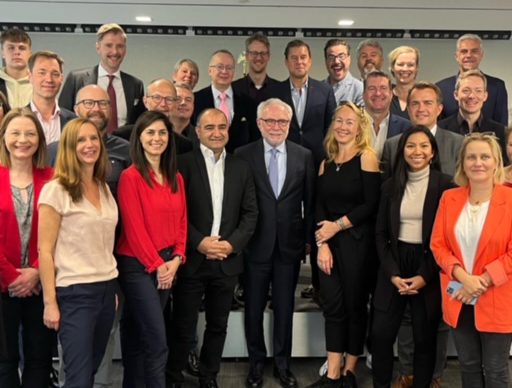 neo-Nazi movements gaining some strength. In Charlottesville, Virginia a few years ago, when you saw those young men walking and protest and screaming out ‘Jews will not replace us, Jews will not replace us’. It was hard for me to accept that and believe that was happening. At the time I remember thinking to myself ‘I’m sort of glad that my dad had passed away’ because he would have never believed he would hear or see something like that in the United States because this country had give our family a second chance to rebuild and establish new lives. He became an extremely patriotic American and loved this country for the opportunity it gave to him and his family. He would have been so upset to hear those young American men chanting ‘Jews will not replace us’ in Charlottesville, Virginia.”
neo-Nazi movements gaining some strength. In Charlottesville, Virginia a few years ago, when you saw those young men walking and protest and screaming out ‘Jews will not replace us, Jews will not replace us’. It was hard for me to accept that and believe that was happening. At the time I remember thinking to myself ‘I’m sort of glad that my dad had passed away’ because he would have never believed he would hear or see something like that in the United States because this country had give our family a second chance to rebuild and establish new lives. He became an extremely patriotic American and loved this country for the opportunity it gave to him and his family. He would have been so upset to hear those young American men chanting ‘Jews will not replace us’ in Charlottesville, Virginia.”
Question: How do you feel Germany has reckoned with the Holocaust and you said you’re excited about coming to Berlin, how do you feel about coming to Berlin to receive this recognition?
Blitzer: “I’m really honored that this film is being given the Grand Prize and I’m very excited about coming. I’ve been to Germany on many occasions and it’s always been an excellent opportunity for me. I was actually born in Augsburg, Germany. My parents had met after the war and they got married. They found a rabbi in Augsburg, a US army chaplain who married them. My older sister was born in Augsburg and I was born in Augsburg and eventually my family got immigration visas to come to the United States. The US House of Representatives and Senate had placed what was called the ‘Displaced Persons Act’ after World War Two that granted 400,000 visas to displaced persons, including Holocaust survivors. My dad waited in line one day in Munich and signed him up and the rest of the family that survived. Within a few weeks they had got permission to come to the United States. But they would tell you where you were going. They said to my dad, you’re going to Buffalo. My dad said: ‘Buffalo, where’s that?’ And they said ‘Buffalo, New York.’ My dad said ‘oh New York, there’s probably a lot of Jewish people in New York.’ He didn’t know that Buffalo that is 400 miles away from New York City. The family arrived in New York, started a new life. My dad did well. Eventually became a successful home builder. He would have been so angry, so upset if he would have heard the anti-Semitic comments coming from Charlottesville, Virginia. He wouldn’t have believed that would be possible in the United States.”
Question: In a talk last year that you gave to a group of RIAS Berlin Commission from Germany visiting Washington DC, it seemed that you know Germany well and appreciate the country’s coming to term with its past. Germany, as you know, has strict laws banning Holocaust denial. You can go to jail for Holocaust denial. How do you feel about Germany. Is it a force for good in the world?
Blitzer: “I think Germany has come to terms with its history and I’m very positive about what the reaction has been, especially in recent years. Recently, a few weeks ago, I went back to Auschwitz for what’s called ‘the march of the living’ where all these people come and do a little march from Auschwitz to Birkenau, which was the death camp right next to Auschwitz. And then there were all these events going on in Warsaw remembering the 80th anniversary of the Warsaw ghetto uprising. One of the highlights for me at an even at the Polin Museum, which is a relatively new museum dedicated to the 1,000-year history of the Polish Jewish community. The presidents of Poland, of Israel and of Germany spoke there. And the most powerful speaker was the president of Germany, Frank-Walter Steinmeier. He delivered a really powerful speech. It was so important because he didn’t just talk about Nazis, it wasn’t just the Nazis. He spoke about the Germans. ‘We Germans did this’. It was a very personal statement from the president of Germany acknowledging what was going on during the Holocaust. We all walked away, really admiring his words. He was very blunt, and very outspoken. He didn’t try to mince it. He didn’t just talk about Nazis. He spoke about Germans. And I thought that was very significant. This past weekend here in Washington DC I went to a premiere showing of a film ‘A pocketful of miracles’ about some Holocaust survivors. A really powerful film. They sat me next to the German ambassador to the United States, Emily Haber, who wanted to make a point of coming to the premiere of this film as well. So it’s really powerful to me, with just these little examples that I’m sharing, of how Germany has come to terms with their history. And I admire the Germans and the German people for doing that. It’s not easy, I’m sure, but it’s something that I admire and think it’s really important.”
Question: Is there anything else you’d like to add?
Blitzer: “I’m just very proud that you guys are going to be giving this film that we worked on this award. I’m looking forward to being there. I’ve really enjoyed meeting with these German journalists and students who’ve been here in Washington DC and I think it’s really important that we continue our dialogue. And that’s why I’m just excited about coming to Berlin and being there, and spending a few days and getting a little bit better sense of what’s going on. It’s exciting and important for me.”
Images from RIAS Berlin Commission ERP student program to USA
Fifteen German students spent three weeks learning more about politics, media and life in the United States in March and April during a European Recovery Program (ERP) Transatlantic fellowship with the RIAS Berlin Commission to the United States from March 17, 2023 to April 8, 2023. Here are some of the images from their impressions from the program:
The 15 students, many from eastern Germany and most on their first trip to the United States, spent nine days together as a group in New York before spreading out in smaller groups of one to three to seven different university towns in the Midwest, Southwest and Mountain states: the universities of Oklahoma, Arizona, Arizona State, Southern Illinois, Indiana, Wisconsin-Oshkosh and Montana.
The goal of the ERP program is to help connect young German journalism students with their peers in the United States and help aspiring journalists in both countries learn more about journalism training in each others’ countries. The ERP program is supported by the Transatlantic Program of the Federal Republic of Germany. It is funded by the European Recovery Program (ERP) of the Federal Economy and Energy (BMWi) Ministry.
RIAS New York guest speaker Gordon Huie visits RIAS group in Berlin
Gordon Huie, who has told his moving personal story of survival on 9/11 in New York to RIAS groups for the last three years, had the chance to visit the RIAS Berlin headquarters 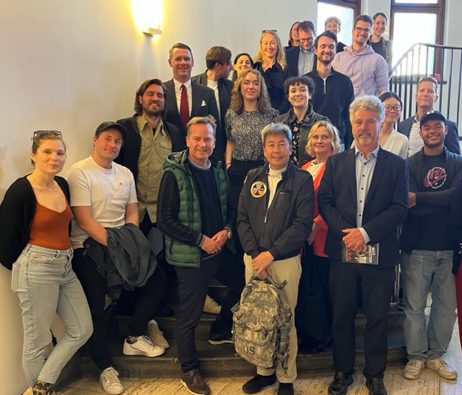 on May 8 and talk about his harrowing experiences on September 11, 2001 and beyond to a group of 20 RIAS alumni members and RIAS supporters. Huie is the only known “triple” from 9/11: a survivor, a first responder and a victim who lost a loved one.
on May 8 and talk about his harrowing experiences on September 11, 2001 and beyond to a group of 20 RIAS alumni members and RIAS supporters. Huie is the only known “triple” from 9/11: a survivor, a first responder and a victim who lost a loved one.
Huie’s talk was the latest in a series of RIAS Berlin Commission alumni talks and included members from German and US alumni programs (three Americans now living in Germany) dating from 1997 to 2023.
Huie, a former combat medic and off-duty orthopedic surgeon in New York, explained how he was in Lower Manhattan on 9/11 on doing research for a project when the attacks 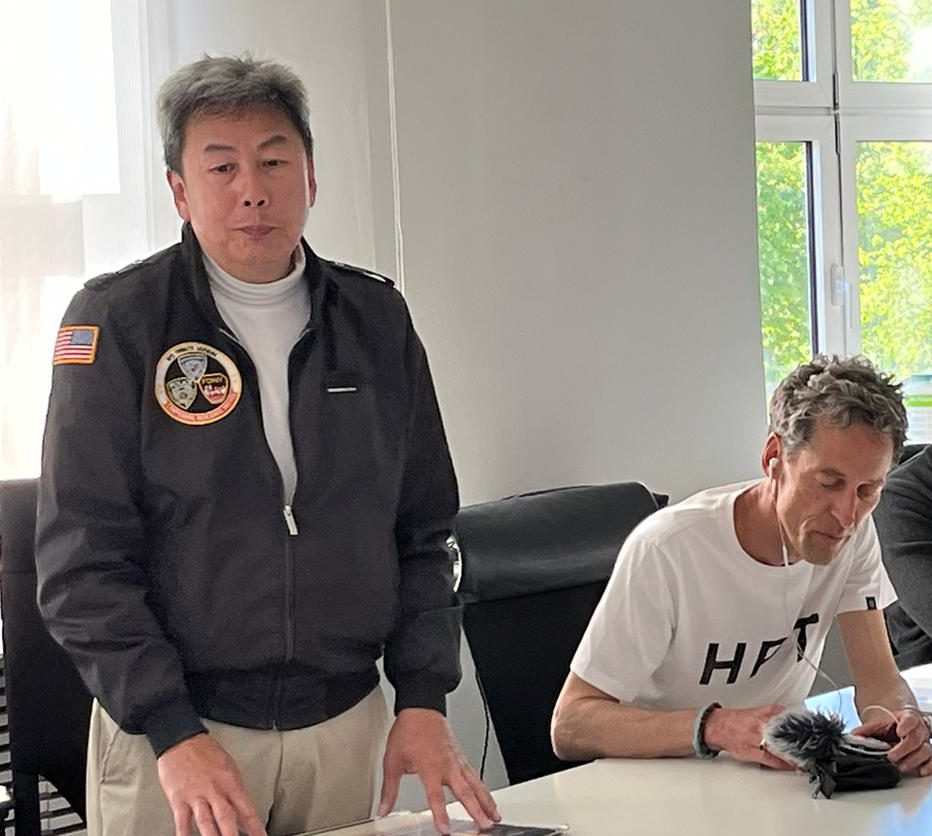 began. When the first World Trade Center building collapsed, Huie was on a street nearby the burning building, looking to see if he could help somehow, and narrowly escaped the blast waves of debris from the imploding building by diving to the ground. Others around him who did not hit the ground did not survive.
began. When the first World Trade Center building collapsed, Huie was on a street nearby the burning building, looking to see if he could help somehow, and narrowly escaped the blast waves of debris from the imploding building by diving to the ground. Others around him who did not hit the ground did not survive.
Huie said after the blast passed over his head, he recalled thinking the world was over. He said he was struck by the deathly silence around him on what was until that day always a busy New York City street corner. After a moment, he dusted himself off and headed to a nearby hospital to see if he could offer his help as a medical professional. He ended up working all day treating injuries in a makeshift operating room set up in a hospital conference room.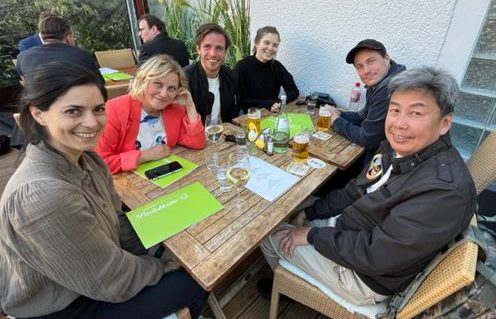
Later that evening, he found out from his father that his sister Susan had been in the World Trade Center for a business meeting that day even though she did not work there. He spent months in vain after that in Lower Manhattan trying to find her or anything he could about her. Huie also talked about the toxic dust that has led to serious illness and premature deaths for more than 4,000 people over the last two decades. He talked about his work as a docent at the now-closed “9/11 Tribute Museum” where he and others told their stories to groups of visitors.
After the talk, Huie and his daughter Kelly joined the RIAS alumni group for a get-together at a nearby restaurant. He has become an avid fan of Germany’s May-time speciality “white asparagus”.
On Tuesday, Huie and his daughter were also able to visit the US Embassy in Berlin where there is a memorial in the embassy’s courtyard commemorating the thousands of victims of the 9/11 attacks on the United States. In 2011, on the 10th anniversary of the attack, a piece of one of the steel girders of the Twin Towers was inaugurated as a memorial, including 11 German victims.
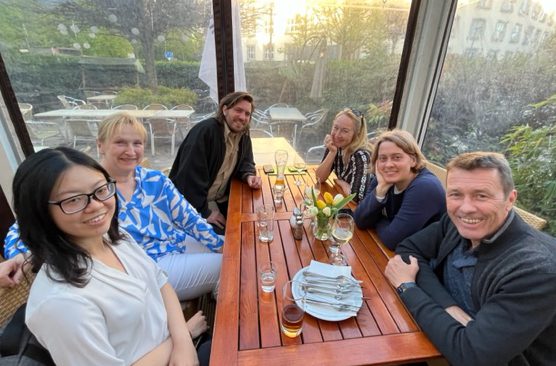
Images from German standard program in the USA March 2023
Ten German journalists spent two weeks learning more about politics, media and life in the United States in March during a RIAS Berlin Commission fellowship. During the first week in Washington, the Germans met distinguished guest speakers including Congressman Lloyd Smucker (R-Pennsylvania), Germany’s Transatlantic Coordinator Michael Link, Reuters’ White House correspondent Jeff Mason and ZDF correspondent Elmar Thevessen.
In Pennsylvania they met members of the Amish community in Elizabethtown and leading political scientists from Elizabethtown College and Franklin & Marshall College.
In New York they met among many others Staten Island borough president Vito Fossella, Broadway actress Angie Schworer and German Consul General David Gill. The Germans attended a service at the Abyssinian Baptist Church in Harlem and toured the Hasidic Jewish Community of Williamsburg, Brooklyn. They also got a tour of the Empire State Building and its never-ending sustainability efforts as well as the New York Times by The Daily senior producer Clare Toeniskoetter.
Impressions of German students from 3-week ERP exchange program to USA
Here are some impressions from 15 German journalism on a three-week European Recovery Program (ERP) Transatlantic fellowship with the RIAS Berlin Commission to the United States from March 17, 2023 to April 8, 2023. The 15 students, many from eastern Germany and most on their first trip to the United States, spent nine days together as a group in New York before spreading out in smaller groups of one to three to seven different university towns in the Midwest, Southwest and Mountain states: the universities of Oklahoma, Arizona, Arizona State, Southern Illinois, Indiana, Wisconsin-Oshkosh and Montana. The goal of the ERP program is to help connect young German journalism students with their peers in the United States and help aspiring journalists in both countries learn more about journalism training in each others’ countries. The ERP program is supported by the Transatlantic Program of the Federal Republic of Germany. It is funded by the European Recovery Program (ERP) of the Federal Economy and Energy (BMWi) Ministry.
Til Schäbitz, Leipzig University, visited University of Oklahoma
I’m sitting at the dinner table at my parents’ house. Right at this time, but last week, I was talking to the Deputy Chief of the Tulsa Police Department about gun violence and police support within the Black community. Two weeks ago, I had to explain to students at Oklahoma University that studying in Germany really is almost entirely tuition free. Exactly three weeks ago, I only had to walk across changed the street in New York from a visit in the UN to lunch with the German Consul General. All dressed up in a white suit; we were, after all, going to see a Broadway musical later. And four weeks ago, I was sitting exactly where I am sitting now – but as someone else. My time in the U.S. – filled with all imaginable encounters and conversations – has sharpened and honed me like hardly anything ever before. I learned to be truly persistent. To not be afraid of naivety and that as a good journalist you can be friends with unsavoury people without getting your hands dirty. Let’s see where I’ll be sitting in the future.
Jacqueline Albrecht, University Magdeburg-Stendal, visited Indiana University
There are no words to describe what I have experienced in the last three weeks. An intensive, eventful program packed with a wide variety of impressions. Starting in the diverse city of New York, where we visited various media outlets, had many interesting conversations and were able to get to know people and their stories. Meeting 9/11 survivor Gordon Huie is something I’ll always remember. Cultural highlights such as seeing my first Broadway show and a tour through the Jewish Quarter were also included. After a very intense and exciting 8 days, I went on to Bloomington, a liberal city in an otherwise very conservative state. Here I was able to get to know American university life, I was allowed to be part of various TV news shoots, for example, on a farm in the middle of nowhere in Indiana, and I had many conversations about topics such as the health system, gun rights, abortion and patriotism, which made me think and reflect a lot. I will never forget how students told me about their constant fear of gun violence, how, for the first time in my life, I had to spend part of the night in the basement because there was a tornado just a few kilometers away and how I visited a town that was completely destroyed by a tornado. My time at RIAS enabled me to not just to gain a lot of journalistic, cultural and personal experience. The program has also allowed me to see a side of the United States that I would never have seen on a normal tourism trip, and I am extremely grateful for that.
Linda Bachmann, Leipzig University, visited University of Wisconsin-Oshkosh
One highlight follows the next – this is how my three weeks with RIAS in the USA can be described! Peering into numerous newsrooms in New York and Wisconsin (including Bloomberg, NBC, Vice, Madison Magazine and the Oshkosh Herald) was a very rewarding experience! In Oshkosh (Wisconsin) I was also able to immerse in everyday university life and report on the election for the Wisconsin Supreme Court for the student newspaper Advance-Titan. I not only learned a lot about journalism in the US, but also about the culture. I was able to see how diverse this large country is: New York, Madison, Oshkosh and Chicago – as different as these cities are, there was a lot to discover everywhere! I will particularly remember the numerous conversations with Americans about politics and the differences and similarities between the USA and Germany. However, social inequality and racism are also part of the USA – I also learned a lot about that in the three weeks. The RIAS program is very intense, but I wouldn’t want to miss a single appointment!
Wiebke Bolle, FreeTech – Axel Springer Academy, Berlin, visited Southern Illinois University (SIU)
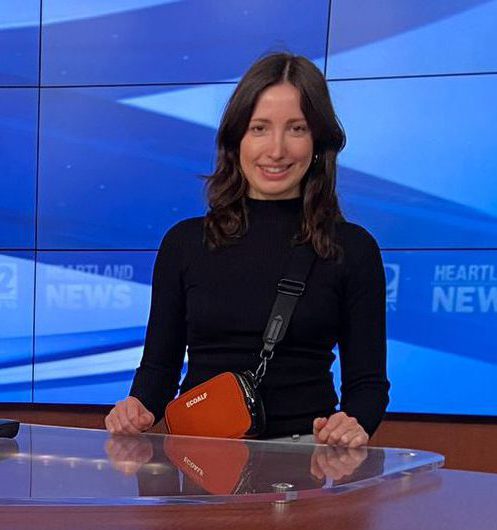
After a total of three weeks in New York City, St. Louis and Carbondale, I can say that I
not only learned a lot about journalism and the media system in the United States, but also met inspiring people. Some have become friends. Thanks to RIAS Berlin Commission, I’ve seen places I wouldn’t have had access to. I’m flying back with a suitcase full of great memories, challenging conversations and a lot of food for thought.
Abel Fekade, Leipzig University, visited University of Arizona
The last three weeks have been the most eventful time of my life. Even though I have been to the US before, the RIAS Program gave me the opportunity to explore this country i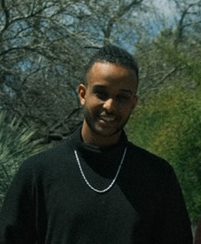 n all its diversity. I got to know a wonderful group of fellow students in New York City, who shared the same curiosity and open-mindedness. My personal highlights in the Big Apple were attending the Sunday service at Abyssinian Baptist Church Harlem und talking to Chivona and Hawk Newsome, the founders of Black Lives Matter New York, in the Bronx. The contrast between New York and my college station, the University of Arizona, could not have been more drastic. Not only did I find myself on the other side of the continent, but also I suddenly had to adjust to the desert-like weather in Tucson. I got the chance to visit Journalism, Communications and Photography classes and learned a lot about the American college life. I will always remember the unique time I got to experience thanks to the RIAS program.
n all its diversity. I got to know a wonderful group of fellow students in New York City, who shared the same curiosity and open-mindedness. My personal highlights in the Big Apple were attending the Sunday service at Abyssinian Baptist Church Harlem und talking to Chivona and Hawk Newsome, the founders of Black Lives Matter New York, in the Bronx. The contrast between New York and my college station, the University of Arizona, could not have been more drastic. Not only did I find myself on the other side of the continent, but also I suddenly had to adjust to the desert-like weather in Tucson. I got the chance to visit Journalism, Communications and Photography classes and learned a lot about the American college life. I will always remember the unique time I got to experience thanks to the RIAS program.
Clara Hoheisel, University Halle-Wittenberg visited Arizona State University
The music begins with a blaring sound, the spotlight sets the scene for a crowd of angels who seem to float about ten metres above the ground on a stage gallery. With their blaring trumpet fanfare, the angel performers introduce the Easter Pageant, the Passion Play of the LDS Church (Church of Jesus Christ of Latter- day Saints). The world’s largest annual performance of the Passion of Christ brings tens of thousands of people to Mesa, a city next to Phoenix, in the two weeks before Easter. This unique spectacle and the preceding discussion with two missionaries of the Church is my personal highlight of the 2023 ERP student programme. However, it is actually impossible to limit myself to just one highlight of the three intense weeks. In the first part of the program in New York City, we got the opportunity to visit some of the most renowned newsrooms in the US, including NBC, Bloomberg, ABC News and VICE. It was fascinating to experience first-hand how these media companies work and produce their news. I also found the off-the-record discussions with politicians and journalists enlightening and sometimes surprising, as they provided deep insights into their work and way of thinking. Especially memorable for me were the meetings with Juda Engelmayer, Harvey Weinstein’s crisis manager and
Phil Murphy, Governor of New Jersey. During the subsequent station week in Phoenix at the renowned Cronkite Journalism School of Arizona State University, I learned a lot about living and studying in the desert. Particularly instructive for me was a conversation with Congressman Alberto Olivas about the impact of “snowbirds”, Arizona’s winter visitors, on demographics and election results within the state. In conclusion, I can only reiterate how immensely grateful I am for the experience that the RIAS Berlin Commission provided me. During the three weeks, I learned how important it is to approach issues with as little bias as possible and that sometimes the best stories are in the details.
Kim Kristin Loschen, intern at Nordwest newspaper, Oldenburg, visited University of Wisconsin, Oshkosh
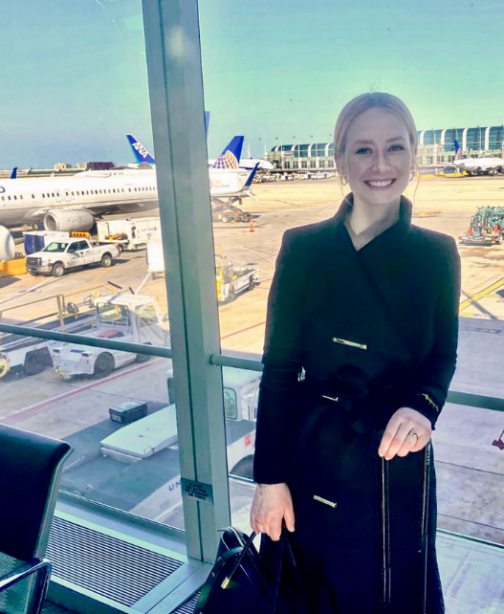 New York, New Jersey, Illinois and Wisconsin – crossing four states, a total of three weeks on the road, collecting impressive experiences, having exciting conversations – all this was made possible for me by the RIAS program in the US. I will especially remember the view of New York City from the Empire State Building, the trip to Door County and the visit to the Capitol in Madison. I can’t remember the last time I experienced such an intense time. My journalism career can greatly benefit in the coming years from covering the Wisconsin elections, talking with New Jersey Governor Phil Murphy and political issues with Oshkosh Mayor Lori Palmeri. I am also grateful to have met dedicated RIAS alumni Joel Waldinger, Tyler Speicher, and Barbara Benish. Other highlights for me were visiting NBC, Bloomberg and the ARD New York studio. It was very helpful to see how American colleagues are so passionate about journalism. Participating in this transatlantic dialogue gave me a unique opportunity to better understand the political, journalistic and cultural differences between the U.S. and Germany. The RIAS program is a great opportunity to broaden one’s skills and personal horizons.
New York, New Jersey, Illinois and Wisconsin – crossing four states, a total of three weeks on the road, collecting impressive experiences, having exciting conversations – all this was made possible for me by the RIAS program in the US. I will especially remember the view of New York City from the Empire State Building, the trip to Door County and the visit to the Capitol in Madison. I can’t remember the last time I experienced such an intense time. My journalism career can greatly benefit in the coming years from covering the Wisconsin elections, talking with New Jersey Governor Phil Murphy and political issues with Oshkosh Mayor Lori Palmeri. I am also grateful to have met dedicated RIAS alumni Joel Waldinger, Tyler Speicher, and Barbara Benish. Other highlights for me were visiting NBC, Bloomberg and the ARD New York studio. It was very helpful to see how American colleagues are so passionate about journalism. Participating in this transatlantic dialogue gave me a unique opportunity to better understand the political, journalistic and cultural differences between the U.S. and Germany. The RIAS program is a great opportunity to broaden one’s skills and personal horizons.
Lea Nischelwitzer, University Hagen visited Arizona State University
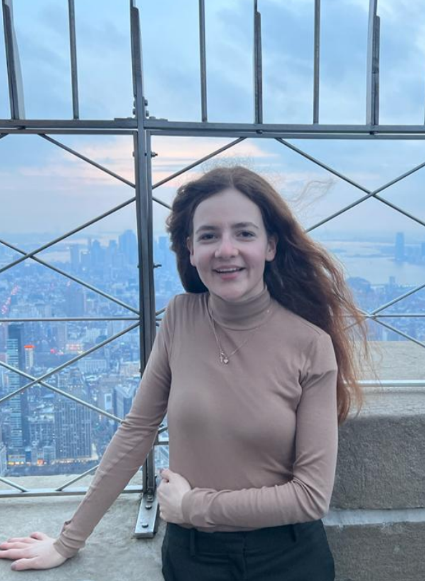 The three weeks of the Rias program exceeded all my expectations. In New York, we got the chance to talk to many decision-makers in the U.S. in person, to learn more about their professions and what drives them on a daily basis. And we also gained extensive insight into the American media landscape during our visits to the editorial offices of NBC, Vice and the ARD foreign studio. A highlight for me was the visit of the New Jersey Governor Phil Murphy. But what I remember even more were the many personal encounters with the extremely open and outgoing Americans who gave us an insight into their lives and their view of the world. During the two weeks in Phoenix, I got to know many journalism students, actively participated in college life and met many professors and experts who told me more about the political situation in Arizona, the water supply and religious life. Thank you so much for this wonderful organization – it has enriched my life in a lasting way and has already raised my interest in transatlantic issues who can’t wait to travel to the States again.
The three weeks of the Rias program exceeded all my expectations. In New York, we got the chance to talk to many decision-makers in the U.S. in person, to learn more about their professions and what drives them on a daily basis. And we also gained extensive insight into the American media landscape during our visits to the editorial offices of NBC, Vice and the ARD foreign studio. A highlight for me was the visit of the New Jersey Governor Phil Murphy. But what I remember even more were the many personal encounters with the extremely open and outgoing Americans who gave us an insight into their lives and their view of the world. During the two weeks in Phoenix, I got to know many journalism students, actively participated in college life and met many professors and experts who told me more about the political situation in Arizona, the water supply and religious life. Thank you so much for this wonderful organization – it has enriched my life in a lasting way and has already raised my interest in transatlantic issues who can’t wait to travel to the States again.
Anna Seikel, Leipzig University visited Indiana University
The time with RIAS in the United States – my first time in this country! – has been filled to the brim with new experiences. The experience in New York City at the beginning of the program still feels impossible to summarise, one of my highlights was definitely the conversation with Chivona Newsome, Co-Founder of Black Lives Matter NYC, in a black-owned brunch place in the Bronx. Our time at IU in Bloomington differed vastly from the week before but allowed us to make connections that I am sure will last long beyond our stay of two weeks and let us gain valuable insight into journalism in the US. Since Bloomington is a “blue” college town in the middle of a red state, everyone was really interested in hearing our opinions on dividing topics. The program also sparked much reflection and conversations about the fundamental differences between our seemingly similar countries – especially concerning (the lack of) gun regulation, populism and minority rights. An experience like no other!
Jana Sievers, Bielefeld University, intern at Braunschweiger Zeitung visited University of Nebraska
A visit to the UN in New York, the Midwest Journalism Conference in Minneapolis, Nebraska Public Media and a farm, somewhere in the middle of nowhere in Nebraska – these were my highlights in the three-week RIAS program, in addition to all the exciting conversations. During this time, I was able to observe not only behind the scenes what makes a good reporter, anchor – a good journalist – but what kind of mind-set I can approach journalistic work with. Especially in Lincoln, staying with a family, I learned about a piece of the reality of Midwestern Americans and, closely related to that, the unconditional drive for freedom of speech. RIAS enabled me to meet people with interesting life paths, through which not only a next door can open, but friendships can develop and ideas grow. What I take away from the Lincoln people is that the glass should always be half-full – never half-empty.
Malkam Goytom, Free University, Berlin visited University of Arizona
When I look back on the events, I am amazed at how much I experienced in three weeks. The RIAS program was an enrichment for me in many different aspects. Not only was I fascinated by the unique opportunity to exchange ideas with guest speakers from New York and thus gain information about American journalism. Also, the collection of different cultural impressions (especially: the contrast between New York and Arizona) and the exchange of political and social impressions with the students from Arizona has definitely shaped me. Finally, I can only thank everyone involved in the RIAS program for this unique opportunity. I hope that this program will continue for a long time so that future students get the chance to have the same experience.
Szuli Wendt, Free University, Berlin visited University of Oklahoma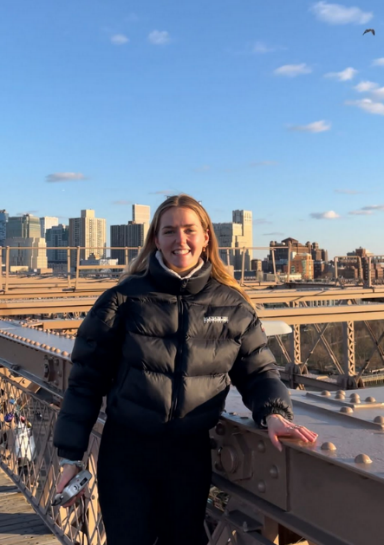
After three unforgettable weeks in the United States, I am returning home with more experiences, knowledge and new goals for my career and in life. The time in New Yorkgave me close insight into the life of New Yorkers, its media landscape, new friendships and the dream of working abroad as a journalist in the United States someday. Conversations with experienced and successful journalists gave me the opportunity to understand the American media landscape, the work as a journalist and the differences between German and American media. But not only the media outlets, journalists and politicians we got to talk to in New York was exciting for me, also the numerous cultural options of New York City amazed me. Visiting an American university for two weeks fulfilled my dream of experiencing college life in the United States. Together with the students I was able to study Journalism at the University of Oklahoma and get to know the culture of Oklahoma. Thanks to our wonderful coordinator at the university, I even got to experience a cheerleading practice, a softball and basketball game and visited a sorority house. We also talked a lot to the students about similarities and differences in studying journalism or living in Berlin or Oklahoma. I fell in love with the open and social aspects of Americans and will try to keep that mentality as I go back to Germany. I can say the RIAS program changed my life and career as a journalist and I hope to be back in New York City as an intern soon.
Simon Wörz, University of Munich visited University of Montana
 It was my first time on the other side of the Atlantic and I got to see two totally different sides of the USA through RIAS. The time in New York was super intense, filled with a flood of impressions and conversations. Then I went to Missoula for almost two weeks, to the Journalism School at the University of Montana. The contrast between NYC and Montana couldn’t have been greater – from a world metropolis to the snowy Northwest. But I learned that you can also meet conservative Americans in Manhattan and very liberal Americans in rural Montana. And how different the realities of life in one country can be.
It was my first time on the other side of the Atlantic and I got to see two totally different sides of the USA through RIAS. The time in New York was super intense, filled with a flood of impressions and conversations. Then I went to Missoula for almost two weeks, to the Journalism School at the University of Montana. The contrast between NYC and Montana couldn’t have been greater – from a world metropolis to the snowy Northwest. But I learned that you can also meet conservative Americans in Manhattan and very liberal Americans in rural Montana. And how different the realities of life in one country can be.
Miriam Wüst, Leipzig University visited Indiana University
Three weeks USA – a time full of adventures, surprises and conversations I will remember for the rest of my life. Not only did RIAS make it possible for me to visit the US for the first time – because of all the opportunities from RIAS I got an insight that will forever shape my view of the US in a way a normal holiday wouldn’t have been possible to do. Most memorable for me were the conversations about gun laws right after a school shooting in Nashville, a visit to a small town in Indiana that was hit by a tornado and a meeting with a 9/11-survivor. Beyond that, it was incredibly interesting to see the differences in local journalism between Germany and the US and still how similar it is in many ways. Those stories and impressions made me appreciate the USA in a deeply profound way. Beyond that, it was incredibly interesting to see the differences in local journalism between Germany and the US and still how similar it is in many ways. Those stories and impressions made me appreciate the USA in a deeply profound way. USA – a time full of adventures, surprises and conversations I will remember for the rest of my life. Not only did RIAS make it possible for me to visit the US for the first time – because of all the opportunities from RIAS I got an insight that will forever shape my view of the US in a way a normal holiday wouldn’t have been possible to do. Most memorable for me were the conversations about gun laws right after a school shooting in Nashville, a visit to a small town in Indiana that was hit by a tornado and a meeting with a 9/11-survivor. Beyond that, it was incredibly interesting to see the differences in local journalism between Germany and the US and still how similar it is in many ways. Those stories and impressions made me appreciate the USA in a deeply profound way.
The student program of the RIAS Berlin Commission brought me to the USA. Three weeks of international understanding were on the schedule. At first one week in New York, then two weeks in Norman, Oklahoma. Whether in New York or Oklahoma, I usually introduced myself three times a day to politicians, journalists, activists, contemporary witnesses or ordinary people. We met as strangers and then were either suddenly close or still distant – open or closed. Even if Americans seem at first glance open, they are, based on to my observation, only like that within the boundaries of their communities. The individual counts more in Germany. In the USA, on the other hand, it is almost impossible to live without a community. It starts at the American schools, the open-close mentality. During the three weeks I saw boundless blue skies. Traveled dead-straight roads for endless miles and experienced what it’s like when a city never sleeps. But I was also constantly part of a community without having to ask for it. Thanks to the RIAS Berlin Commission, I thought about society and community in ways I couldn’t have ever planned for.
Erik Kirschbaum, Executive Director RIAS Berlin Commission
Two weeks in USA gives German students insights into heartland states
A group of German journalism students spent two weeks at U.S. universities in the Midwest, Southwest and Mountain states on a RIAS Berlin Commission exchange program. They met American students, attended college classes on journalism, and got the chance to see how public radio and TV stations set up on the college campuses serve an audience that goes far beyond the college campus and to listeners and viewers across the states.

The 15 German students were on a three-week ERP Transatlantic Fellowship program in the United States and after spending the first week together in New York, they spent the following two weeks at eight different large state universities in smaller groups: Indiana, Southern Illinois, Wisconsin-Oshkosh, Nebraska, Oklahoma, Arizona, Arizona State and Montana. The program organized by the RIAS Berlin Commission is designed to help Germans learn more about how American students in the heartland states learn the trade of journalism as well as helping Americans in those states learn more about Germany.
In Lincoln, Nebraska, Jana Sievers visited one of the state’s biggest broadcasting stations, 10-11, that covers the entire state. She had the chance to meet and shadow Taryn and Jon Vanderford, who anchor a popular show called Pure Nebraska. She later joined a reporter from the station for a shift in the field. Sievers also visited a farm two hours away from Lincoln in Hastings, Nebraska operated by his University of Nebraska journalism professor Ken Fischer. “Agriculture is the most important business in Nebraska,” she said.
In Tucson, at the University of Arizona, Malkam Goytom and Abel Fekade attended journalism and photojournalism classes. They also visited RIAS alumni Buzz Connover at Arizona Public Media and got a look behind the scenes at the popular radio station.

They also spent one day traveling to the USA-Mexico border south of Tucson to learn more about the border and the political tensions surrounding it. Together with Arizona Public Media reporter Tony Paniagua, they drove to see the “wall” separating the USA and Mexican and crossed the border to Nogales, Mexico. There they learned about many of the issues involving undocumented immigrants crossing into the USA but also American guns that are smuggled across the border into Mexico. They also learned that many Americans in Arizona travel across the border to get dental treatments and pharmaceutical products for prices lower than in Arizona. Paniagua also interviewed Goytom and Fekade for an Arizona Public Media broadcast about their experiences that will be broadcast next week.
In Phoenix, while visiting Arizona State University, Lea Nischelwitzer and Clara Hoheisel spent time with RIAS alumni Bill Silcock and his wife Angela. They also visited the LDS church in Mesa outside Phoenix. “We met two young girls who made their missionary in this community. It was exciting to hear more about their perspectives of life and especially about their strong faith.” They learned more about the role of religion, politics, journalism careers Americans’ hopes for the future.
After spending 10 days at Southern Illinois University in Carbondale, Wiebke Bolle spent a few days visiting RIAS alumni at TV stations in St. Louis. She spent one day shadowing a reporter from St. Louis’s channel 5, Justina Coronel. She was working on a story about a robber who first robbed a gas station and then broke into a house.
In Wisconsin, Linda Bachmann and Kim Loschen wrote articles for the local student newspaper They got to work helping cover a local election in Oshkosh, Wisconsin. They were also the subject of a story about exchange programs.
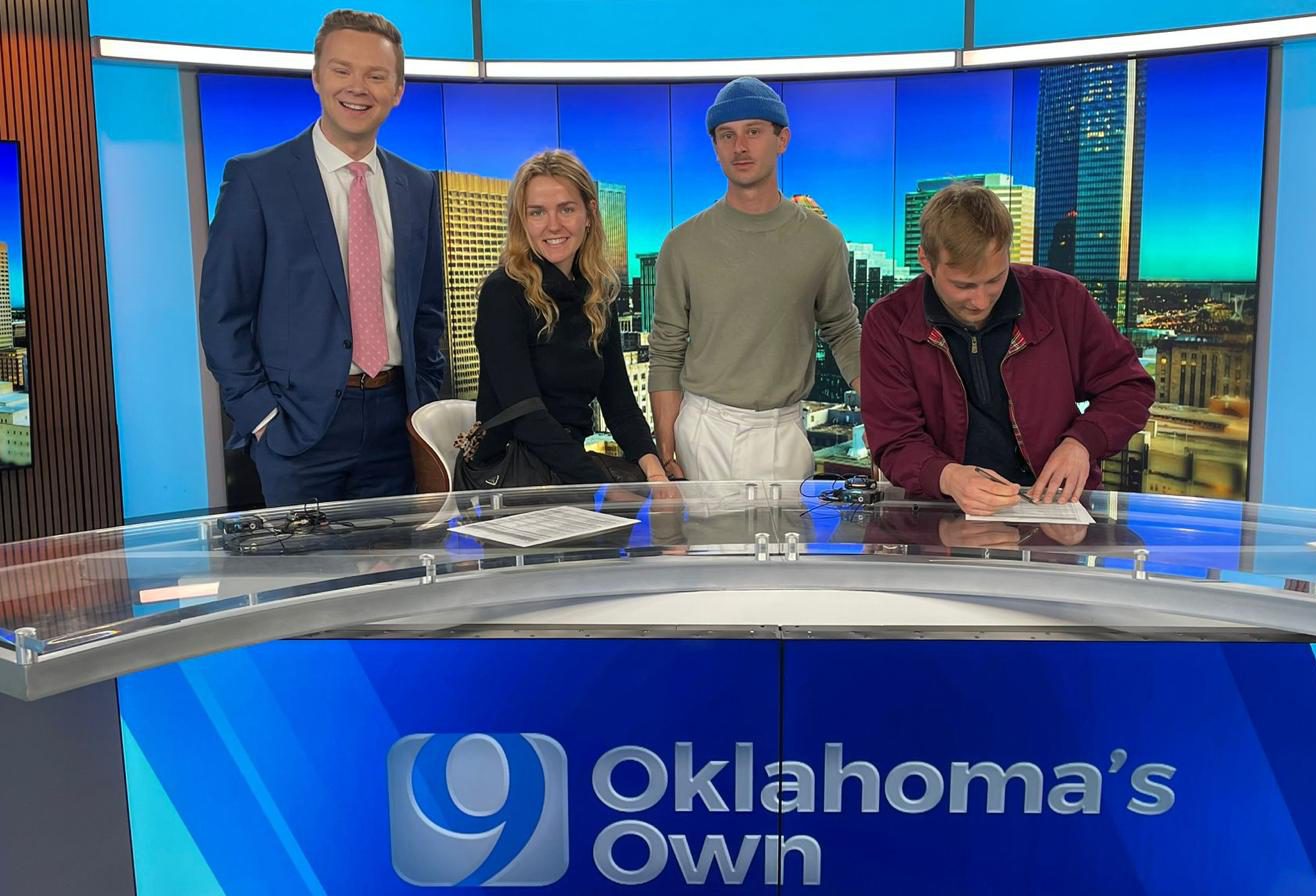 In Oklahoma, Til Schäbitz, Jakob Gierth and Szuli Wendt visited Oklahoma’s channel 9 news station and met the anchor, learning more about the pressures of his job and career. They learned how much important weather reports are in news in Oklahoma, especially early advance warnings on tornadoes that sweep across the state each year.
In Oklahoma, Til Schäbitz, Jakob Gierth and Szuli Wendt visited Oklahoma’s channel 9 news station and met the anchor, learning more about the pressures of his job and career. They learned how much important weather reports are in news in Oklahoma, especially early advance warnings on tornadoes that sweep across the state each year.
The goal of the ERP program, which was created with support from a grant from the Economy Ministry, is to expand horizons, help connect young German journalism students with their peers in the United States and help aspiring journalists in both countries learn more about journalism training in each others’ countries. The ERP program is supported by the Transatlantic Program of the Federal Republic of Germany. It is funded by the European Recovery Program (ERP) of the Federal Economy and Energy (BMWi) Ministry.
April 6, 2023
Impressions from German Journalists on USA Standard Program March, 2023
Impressions from 10 German journalists on a two-week RIAS Berlin Commission fellowship to the United States from March 5, 2023 to March 18, 2022
Madeleine Hofmann, ZDF TV & Deutschlandfunk, Berlin
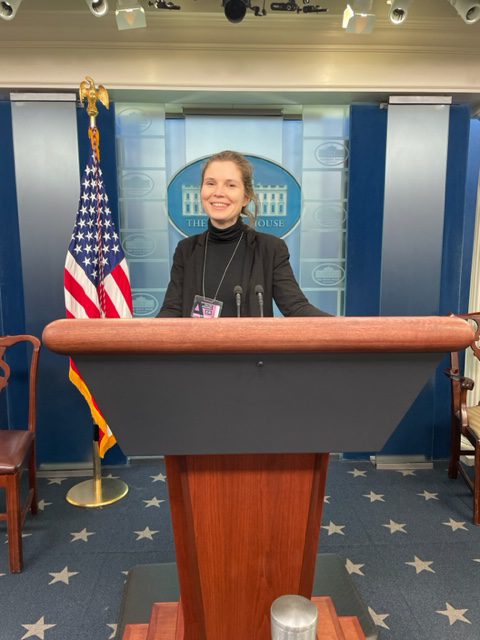 The two weeks in the US with RIAS have been more intense than I could ever have imagined – relating to a tight schedule with impressive encounters, unforgettable experiences such as entering the Capitol and White House press rooms, but also relating to a well curated group of extraordinary journalists who have become friends over this experience that at times felt almost unreal. I also got to know sides of the US that I didn’t know before such as rural Pennsylvania. Thank you RIAS for truly bringing the transatlantic dialogue alive.
The two weeks in the US with RIAS have been more intense than I could ever have imagined – relating to a tight schedule with impressive encounters, unforgettable experiences such as entering the Capitol and White House press rooms, but also relating to a well curated group of extraordinary journalists who have become friends over this experience that at times felt almost unreal. I also got to know sides of the US that I didn’t know before such as rural Pennsylvania. Thank you RIAS for truly bringing the transatlantic dialogue alive.
Friederike Rohmann, MDR TV, Leipzig
I can’t remember the last time I had such an intense two weeks as our RIAS trip to Washington, Pennsylvania and New York. I will probably always remember Joe Biden and the helicopter as well as the moving conversation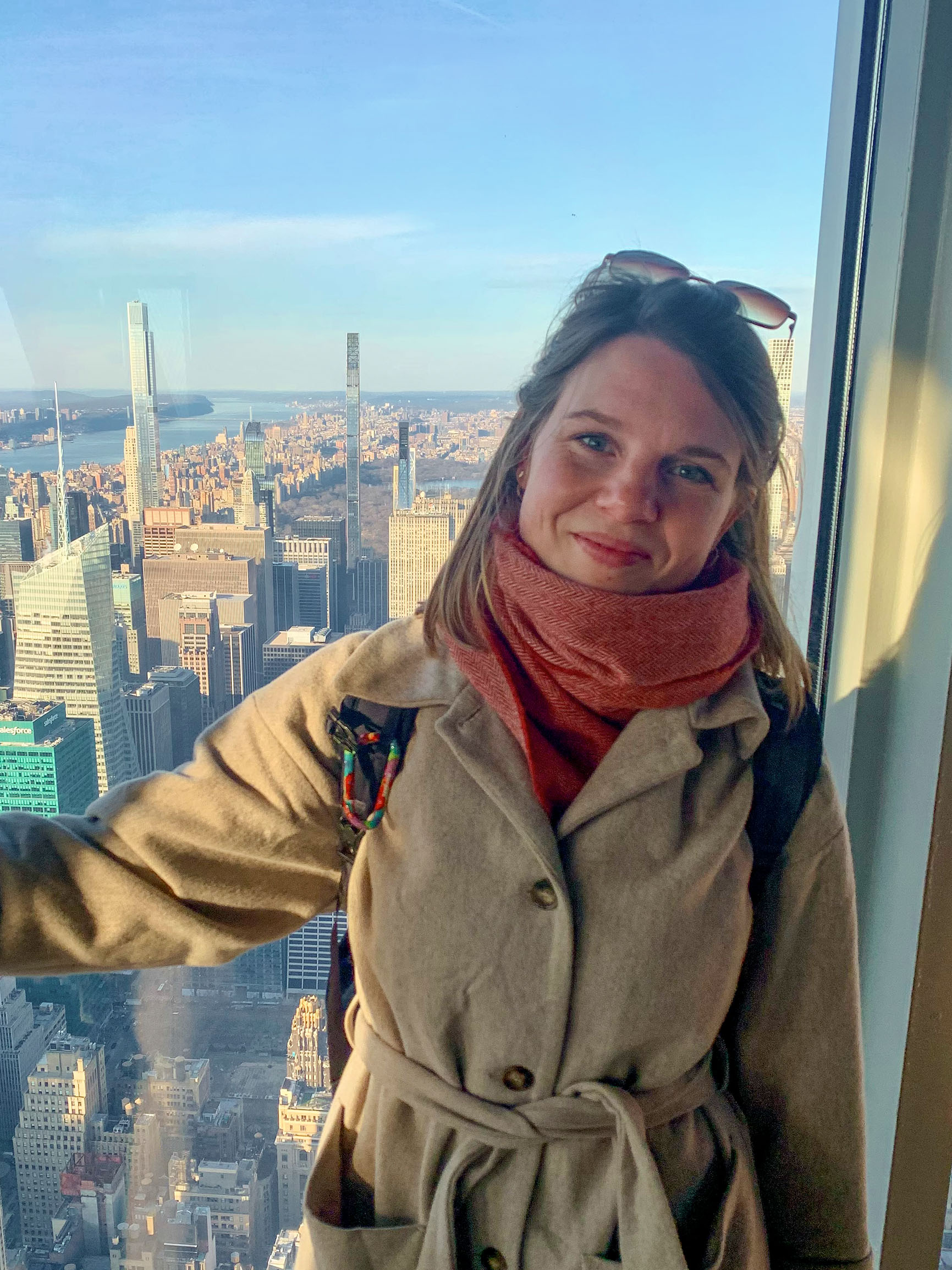 at the Capitol, the unique choir at Abyssinian Baptist Church or the evening at the world-famous Apollo Theater. Plus exciting and unique experiences in Pennsylvania and the realization that (Pennsylvanian) German / Dutch is indeed a language of happy people. I got insights I probably never would have gotten without RIAS. Plus a group of great people. A big thank you to RIAS, our guest speakers, and everyone who worked to organize this memorable trip.
at the Capitol, the unique choir at Abyssinian Baptist Church or the evening at the world-famous Apollo Theater. Plus exciting and unique experiences in Pennsylvania and the realization that (Pennsylvanian) German / Dutch is indeed a language of happy people. I got insights I probably never would have gotten without RIAS. Plus a group of great people. A big thank you to RIAS, our guest speakers, and everyone who worked to organize this memorable trip.
Maja Weber, Phoenix TV, ZDF TV, Bonn, Mainz
It was my first trip to the States. But after seeing so many movies, series and television news many sites, views and buildings seemed very familiar to me. This trip put it into perspective though. And showed the dimensions. Whereas in Washington the Capitol fully stood up to what I had imagined the White House seemed smaller than its iconography always had me believing. It still felt as though our group was part of a movie. I appreciated all the legendary sites, the access to closed circles such as think tanks or informal talks to politicians and the deeper going insights through the talks and special tours we were offered. Even as journalists who are used to access to very special places these talks were mind blowing and priceless. I am so glad that Rias has built and kept up such a high quality network that our group could benefit from. And I am proud to have the opportunity to be part of this great and fascinatig network in the future. But this trip was also meant to check and maybe give up the clichés and stereotypes one always has about a country and its media. In this goal it was absolutely successful. So going to rural Pennsylvania revealed that it was a very fascinating place, not dull at all. We even met an Amish person and later were offered a class in Pennsylvanian dutch – truly touching and heart warming because there was so much humanity and knowledge in all of this. Meeting colleagues and broadcasting journalists who worked just as hard and being as enthusiastic as we are felt reassuring and gave hope that journalism can really turn the world into a better place. Of course the experiences in New York were unforgettable and even more dream like than in Washington. Meeting a broadway legend with about 30 years on stage and then watching her perform in a musical was more than invigorating. Or going to the Apollo Theater, the historic place where Ella Fitzgerald started her brilliant carreer, all that was just so unbelievably enriching. Also because it all happened in the presence of New Yorkers who are just as mythical as their city. But in the end regular and fine people. Quick remark on the chosen hotel: perfect. Another cliché taken away by the trip was the unexpected meeting with a Republican Mayor who was open minded and seemed a very responsible politician. Being able to compare him to a true Trumpist who we also met was a relief and a very good experience. I already recommended this program to four very fine colleagues of mine in the past, two already after the trip and will definitely continue to do so. This unique program is to be held up by all means. As I said above, it was my first trip to the States. It certainly won’t be my last.
Mathis Trapp, WDR, Cologne
The two weeks fellowship in March of 2023 has shown me what RIAS is all about: connecting journalists and media experts on both sides of the pond, learning about each others’ everyday life, building networks and new friendships. Thanks to RIAS, I‘ve had an extraordinary experience. Seeing the U.S. President at the White House, hearing the touching story of Gordon, a 9/11 victim and hero in New York City, as well as experiencing what life in rural Pennsylvania is like, were just some of the many highlights of the trip. I‘ve been to the USA many times – but RIAS helped me learn so much more about the country and its people. I will greatly benefit from this both for my journalist career and personal life. Thank you!
Janett Eger, MDR, Leipzig
These were two very intense, exciting weeks. It is really amazing what kind of doors the RIAS Commission can open for German journalists. Very special for me was our visit to the White House Press Office. On that day we were even able to catch a glimpse of President Joe Biden, it was so exceptional. The lunch at the German Consulate was also highly interesting for me, being from East Germany. Consul David Gill is from my home state of Saxony- Anhalt, he helped to establish up the so-called Gauck Authority after German reunification. It was an experience to be able to talk to him! And also the visit to Pennsylvania, the whole history of the Pennsylvania Dutch and the openness of the Amish I will talk about for a long time. I thank RIAS for these two weeks in which I saw, heard and experienced a lot. And I thank my RIAS group, which was simply the best.
Sophie Wannemacher, RBB TV, Berlin
Our itinerary with the RIAS program in March 2023 included a week-long stay in Washington DC, followed by a two day visit to Pennsylvania and another week in New York. The trip provided a wealth of insights and experiences that were both enriching and informative. During our time in Washington DC, we were privileged to witness President Joe Biden take off in his helicopter from the White House – definitely one of the highlights during our stay in DC. We also had the opportunity to meet with a number of German correspondents, who generously shared their perspectives on their work and career paths. These discussions illuminated differences in media production between the USA and Germany, as well as provided a chance to explore politics with politicians from both parties. These interactions facilitated a deeper understanding of the political system in the USA, which was both eye-opening and insightful. Our stay in New York provided further opportunities to learn and engage with industry professionals. We visited major TV stations, including NBC and CBS, and met individuals working for Bloomberg and CBS. These experiences allowed us to observe firsthand the differences in media production between Germany and the USA, as well as gain insight into how to cultivate strong professional relationships. Overall, the trip was packed with new learnings, interesting experiences, and memorable moments. The trip provided a unique opportunity to understand the differences in media production, culture and politics. The opportunity to build strong professional relationships and engage with industry professionals was invaluable, and I am grateful for the opportunity to have participated in this program.
Laura Maria Weber, RTL News, Cologne
What a great time in the US! Washington – Pennsylvania – New York: Two weeks in America left a long-lasting impression on me. Getting to know the “American way of life” up close and personal and being where world politics are made, as well as getting to know the diversity of the people in the USA were unforgettable. A big thank you to RIAS for the wide selection of guest speakers, the great opportunity to look behind the scenes at American TV and radio stations and to exchange ideas with committed journalists on site! Being able to stand at the White House together with U.S. journalists and waiting for the U.S. president shortly before his take-off is probably one of the moments I will remember for a long time. In addition, the visit to the Amish in Pennsylvania and the guided tour through Williamsburg in New York by the community of Hasidic Jews were particularly inspiring meetings. A survivor of 09/11 gave us a very personal account of his experiences, which will remain in my thoughts for a long time. But also the tour through the different boroughs of New York like the visit of a gospel service in Harlem or the controversial exchange with the Republican Borough President of Staten Island are among the many highlights of this great trip. And last but not least, the encounters with such great journalists in the Rias program made the two weeks very special. It was a great pleasure to explore the U.S. with such nice and interesting people. I am honored to be a part of this group and thank RIAS and Erik very much for the unforgettable experiences, the chance to get to know America’s culture, politics and way of life in a very different way and the opportunity to participate in this program! Thanks a lot, it was a blast!
Christian Herrmann, NTV, Berlin
The RIAS program holds very special experiences in store for journalists. If you’re lucky, you’ll suddenly find yourself standing in the White House Rose Garden – just a few feet away from U.S. President Joe Biden, who is striding to his Marine One helicopter to fly to an important appointment. You get the chance to talk to American and German colleagues who have been reporting on the White House, U.S. politics or the U.S. in general for years or even decades – and know all the important, funny and crazy stories. You’re a guest to selected experts from important research institutes who can explain what the U.S. thinks of Germany, the influence of religion on U.S. elections, and why the Amish often have two smartphones: one official and one secret. In a word, the RIAS program is packed with unforgettable memories.
Julia Cruz, MDR, ARD, Leipzig
The two weeks with RIAS were very intensive and I was able to experience insights behind the scenes and structures of America’s politics and history. Without RIAS, I would never have had such an understanding from so many different facets. That is why I am very grateful to have been able to participate in the program – from visiting the White House to the background talks with journalists and Congressman L. Smucker. I was able to gain a lot of impressive insight and background information that will definitely help me in the future when reporting in my newsroom. There were new contacts and encounters that I will probably never forget. Thank you for that. Above all, I was able to experience first-hand testimonials: from the Amish during the trip to Pennsylvania or the memorable tour of the Hasidic Jews community. However, I was particularly moved by the report of the 9/11 survivor, who expressly described to us how he survived the day and also saved many lives in his capacity as a doctor. His sister was in the World Trade Center that day and died in that attack. He created images and impressions in my mind that I will never forget. Thank you for letting me be a part of RIAS and thank you as well to Erik and the organization and the RIAS group, without whom, the two weeks would never have been as wonderful as they were.
Jenny Barke, RBB, Berlin
Who can claim to have visited and seen the President of the United States in the White House? And even if this encounter stands out because of the “big shot” Joe Biden, many other program points are in no way inferior to it. We had the unique chance to visit the heart of U.S. democracy with an eyewitness of the storming of the Capitol, to walk through Williamsburg with a former member of the Hasidic Jewish community, and to commemorate 9/11 with a victim of the attacks on the World Trade Center. We traveled into strange worlds that probably remain inaccessible to tourists, like those of the Amish community and an ultraconservative Republican. A personal highlight for me was meeting Consul David Gill, who also grew up in Saxony. His personal transformation after the fall of the Berlin Wall is a striking example for me of the biographical opportunities that opened up for some “Easterners” after the fall of the Wall. As a journalist with a focus on Latin America, it was also exciting to hear, see and even taste the Latin American influences everywhere – and in some situations I got further with Spanish than with English. Thanks to RIAS, we also met an immigrant from Argentina who had to live illegally in the U.S. for years. And what would all these unique encounters have been without the exchange with my new nine journalist friends? It’s been a long time since I laughed as much as I did during the past 14 days
April 3, 2023
German students discover American Midwest, Southwest on RIAS ERP student program
Fifteen German journalism students have been spending two weeks in the Midwest, Southwest and Mountain states to learn more about how American students learn the journalism trade at universities, college campus radio and tv stations across the heartland states: Montana, Oklahoma, Nebraska, Illinois, Indiana, Wisconsin, and Arizona.
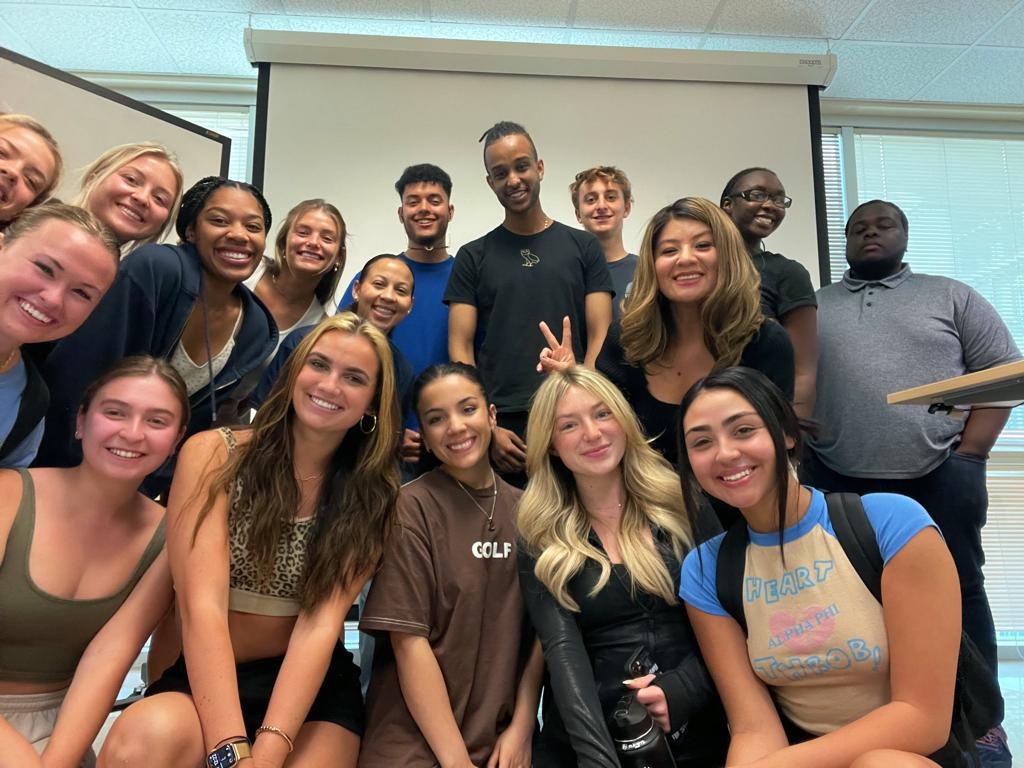
The 15 German students, including 10 who were on their first visit to the United States, spent the first week of their three-week ERP Transatlantic Fellowship program in New York together as a group, where they also met senior UN officials and New Jersey Governor Phil Murphy as well as German Consul General David Gill. The following two weeks have been spent in smaller groups of one to three at the seven universities in the Midwest, Southwest and Montana stations.
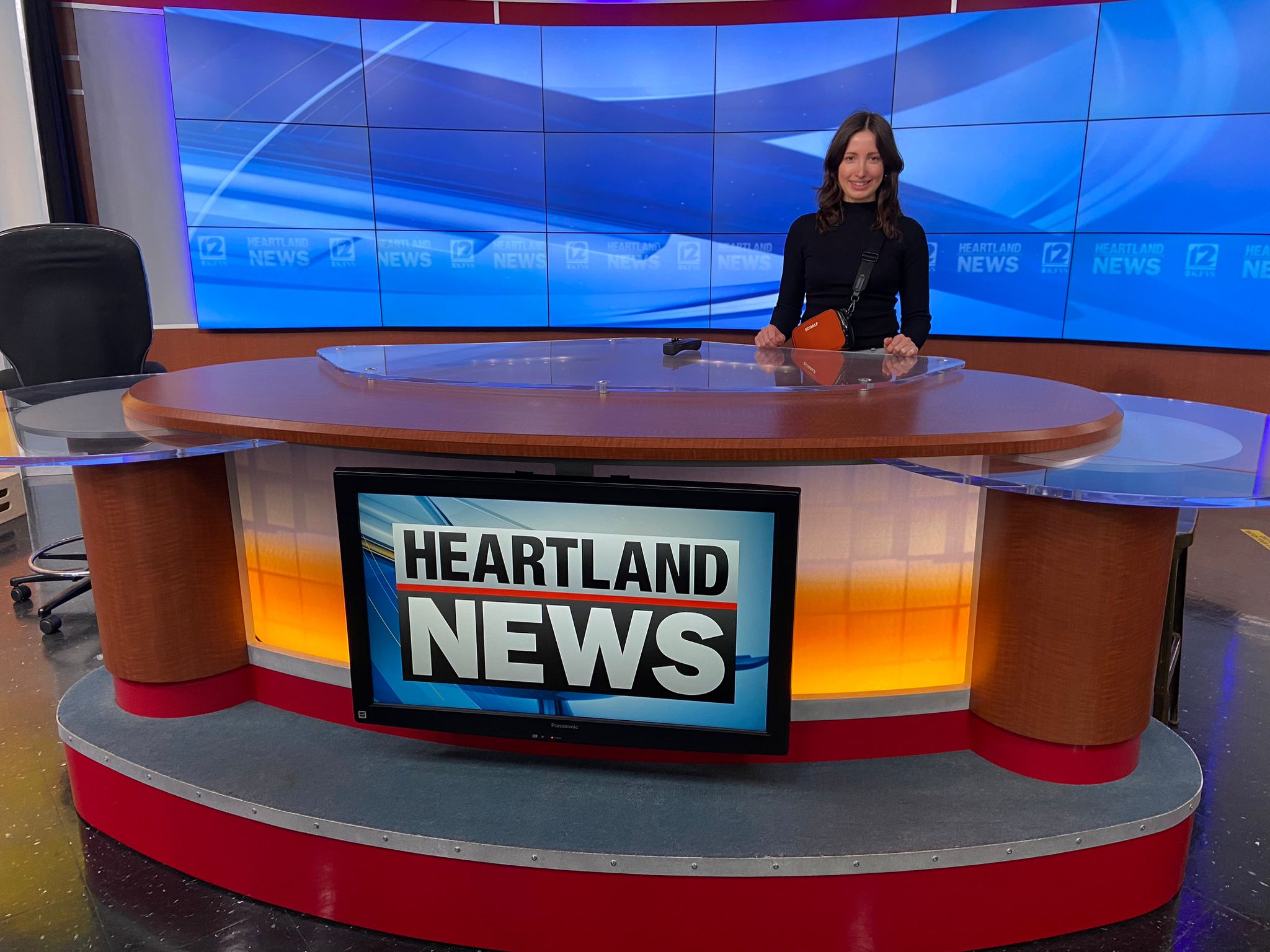
Simon Wörz visiting the University of Montana reported that the “contrast between the week in New York and the two weeks in Montana couldn’t be bigger.” He is attending some journalism classes in Missoula as well as a class called “Native News” where the students learn and report about the indigenous tribes while striving to avoid reproducing stereotypes and racism. “It’s really interesting,” he said. Another interesting lecture he attended was about audio journalism from a guest professor who had actually heard about Wörz’s own podcast in Germany. Wörz also shadowed one student who is working for the local tv station and learned how the news show gets produced every day. “It seems like everyone knows everyone in Missoula and I kinda like that vibe,” he said. He also visited the staff meeting of the student newspaper and the radio station on campus.
At Southern Illinois University, Wiebke Bolle has visited a local TV and radio station as well as the local newspaper. She also met high school students and answered their questions about Germany and journalism in Germany. Bolle also wrote an article for the student newspaper about gun control in Germany.
At the University of Indiana, Miriam Wüst reported that she, Anna Seikel and Jackie Albrecht visiting from Germany went to a TV shoot for the local TV station to a middle school about the FinalFour in Basketball, attended some journalism classes and went to a college baseball game. They also went to the state capitol building for a TV shoot and watched a debate about whether to change laws on alcohol. They also met a German professor that teaches at IU and talked to him about the university system in the US. They also visited the campus newspaper, a local farm and Miriam did an interview for the local TV station on the strict gun control laws in Germany. They also traveled to a local town in Indiana that was hit hard by a tornado last week.
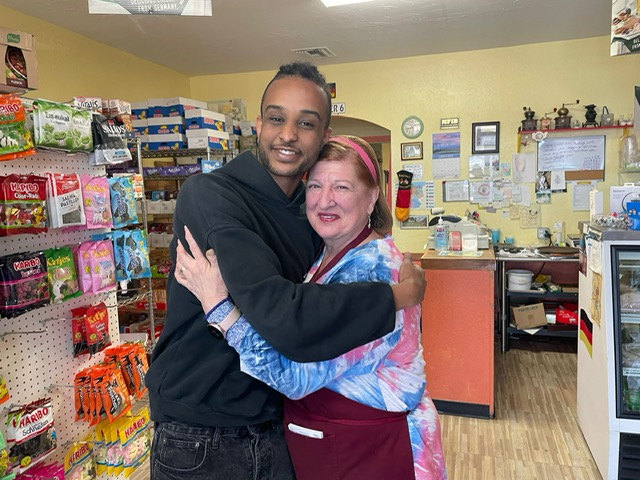
At the University of Arizona in Tucson, Abel Fekade and Malkam Goytom have been attending U of A broadcasting classes held by Liliana Sotos, who will be taking part in a RIAS program to Germany in June. They also attended communications and photojournalism classes and met with local students.
In Wisconsin, Linda Bachmann and Kim Kristin Loschen have been attended UW-Oshkosh classes and had a meeting with Oshkosh mayor Lori Palmer. The talked about her political career, racism in the United States, the next presidential election as well as housing issues in the United States and Germany. In Madison, they also visited WSUM-FM, the UW-Madison student radio station, and WISC-TV, the CBS affiliate in Madison.
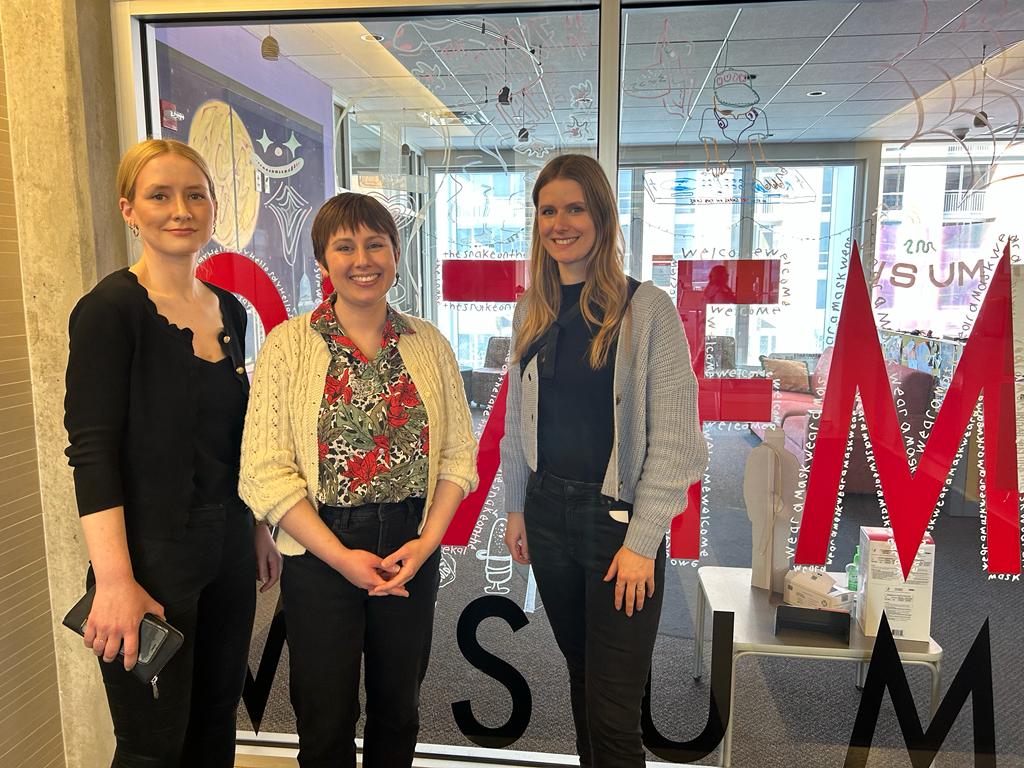
Schäbitz added that the Oklahoma students asked the German visitors about Germany, the Berlin
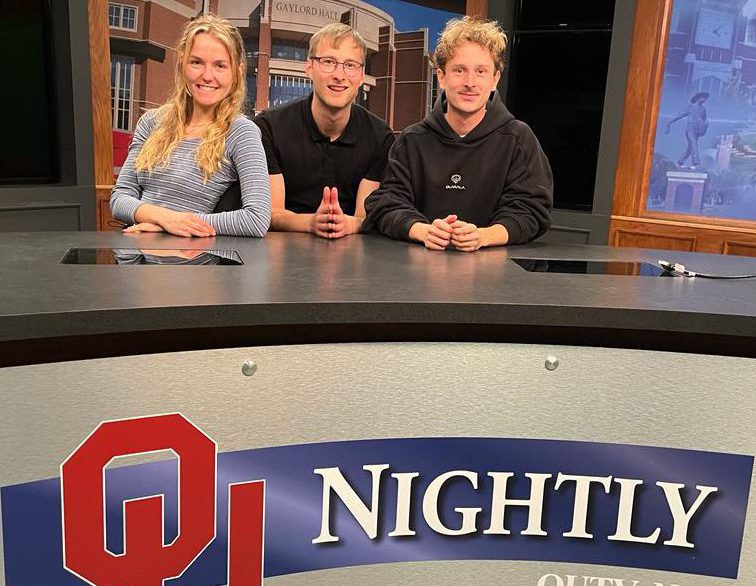
Wall, the Holocaust and sights to visit in Europe. “It was truly an amazing experience.”
April 2, 2023
RIAS Berlin alumni at Netflix premiere of “Transatlantic” with Ambassador Gutmann
 A group of RIAS Berlin Commission alumni attended an advance premiere screening of a new Netflix seven-part film series called “Transatlantic” in Berlin together with American ambassador Amy Gutmann and the film’s makers recently. The film by American author and film creater Anna Winger was inspired by the true adventures of the Emergency Rescue Committee and Julie Orringer’s 2019 novel, The Flight Portfolio.
A group of RIAS Berlin Commission alumni attended an advance premiere screening of a new Netflix seven-part film series called “Transatlantic” in Berlin together with American ambassador Amy Gutmann and the film’s makers recently. The film by American author and film creater Anna Winger was inspired by the true adventures of the Emergency Rescue Committee and Julie Orringer’s 2019 novel, The Flight Portfolio.
Gutmann, the RIAS Berlin Commission honorary chair, gave introductory remarks at the screening. The US Embassy and Netflix invited the group of 20 RIAS Berlin Commission alumni to attend the advance screening — the latest in alumni activities in Germany designed to keep the spirit of RIAS alive long after participants take part in fellowships to the United States and Germany.

Other alumni events this year include the June 1 RIAS Media Prize gala ceremony, the June 2 annual alumni get-together at the RIAS building as well as meetings with American RIAS groups in Berlin, Cologne, Hamburg and Leipzig in June, July and August.
There will also be a major American alumni program to Cologne and Munich from September 16 to 24. American alumni will have the chance to meet German fellows in Washington and New York in October as well as in Los Angeles in October.
Here is a list of some of the German RIAS Berlin Commission alumni who attended the Netflix screening in Berlin together with Ambassador Gutmann and about 200 Netflix guests:
Petra Gute, 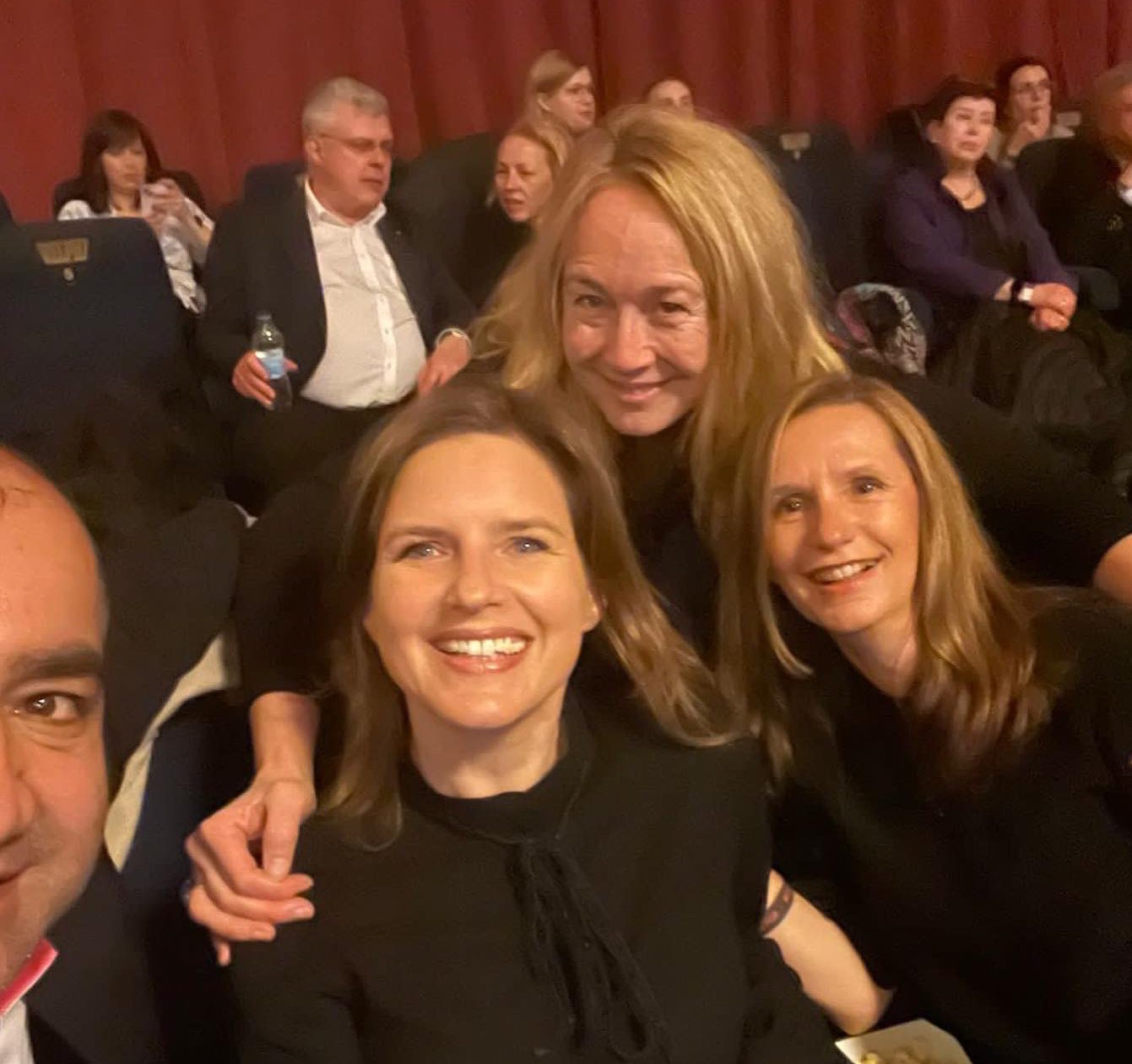 Dilek Üsük, Bettina Kasten, Nina Lammers, Kate Brady, Matt Karnitschnig, Oliver Sallet, Leonie von Randow, Friedrich Steffes-Ley, Jutta Müller, Sylvia Warnke, Rieke Smit, Andrej Hermlin, Joyce Hermlin, Tom Garus, Oezcan Mutlu, Susanna Hölscher, Christina Reif.
Dilek Üsük, Bettina Kasten, Nina Lammers, Kate Brady, Matt Karnitschnig, Oliver Sallet, Leonie von Randow, Friedrich Steffes-Ley, Jutta Müller, Sylvia Warnke, Rieke Smit, Andrej Hermlin, Joyce Hermlin, Tom Garus, Oezcan Mutlu, Susanna Hölscher, Christina Reif.
March 25, 2023
German students start 3-week ERP Transatlantic Program fellowship in New York
The second annual RIAS Berlin ERP fellowship for German students to the United States got off to a flying start in New York City during the first week with journalists, editors, directors, politicians, community leaders, experts and political analysts. The Germans will spend a total of three weeks in United States including two in the Midwest and Southwest and West, learning more about how Americans train to become broadcast journalists and about the political divisions in the country.
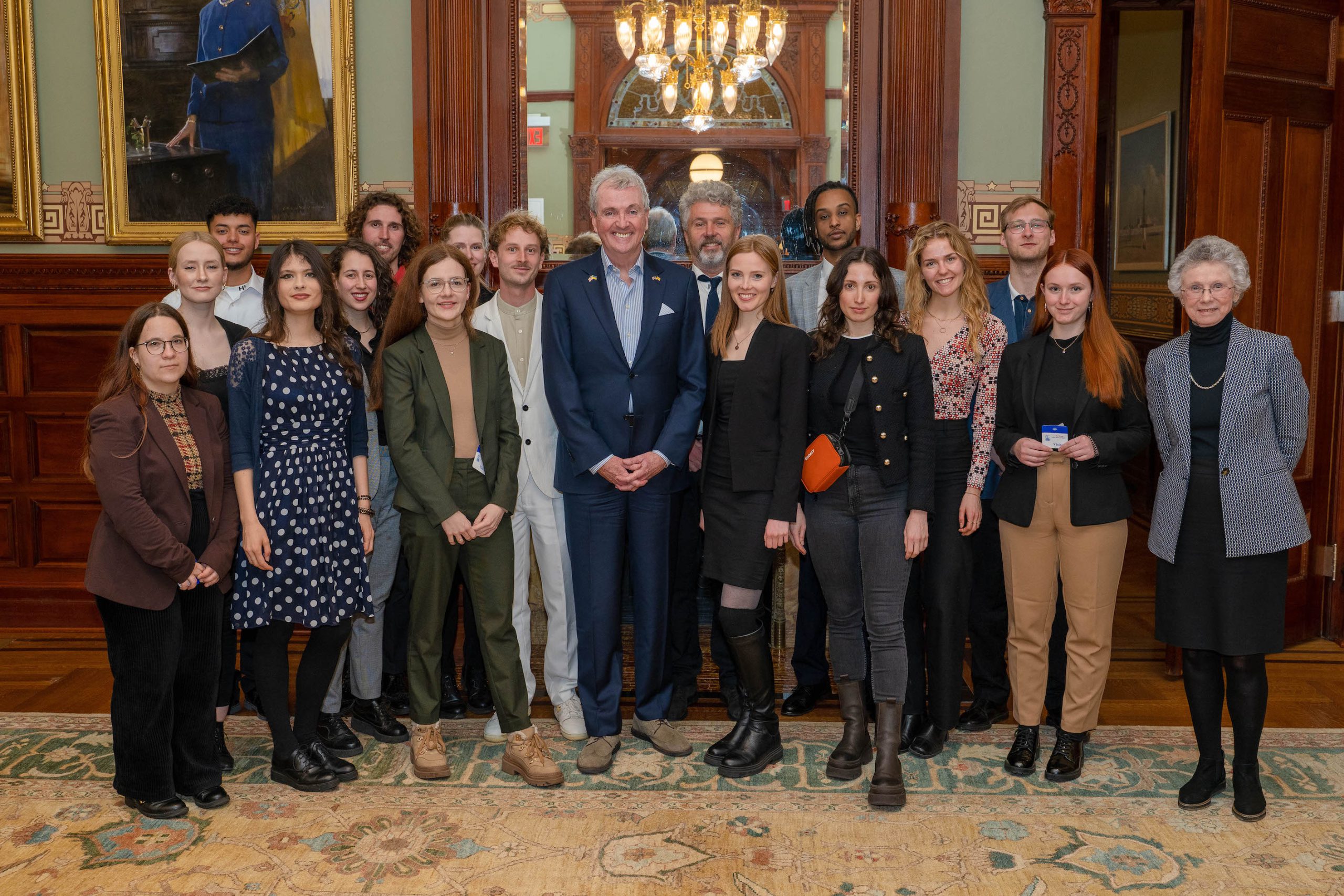
The goal of the ERP program, which was created with support from a grant from the Economy Ministry, is to expand horizons, help connect young German journalism students with their peers in the United States and help aspiring journalists in both countries learn more about journalism training in each others’ countries. The ERP program is supported by the Transatlantic Program of the Federal Republic of Germany. It is funded by the European Recovery Program (ERP) of the Federal Economy and Energy (BMWi) Ministry.
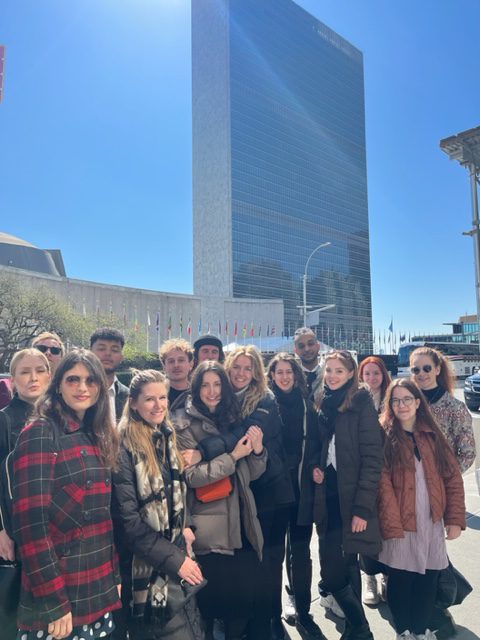
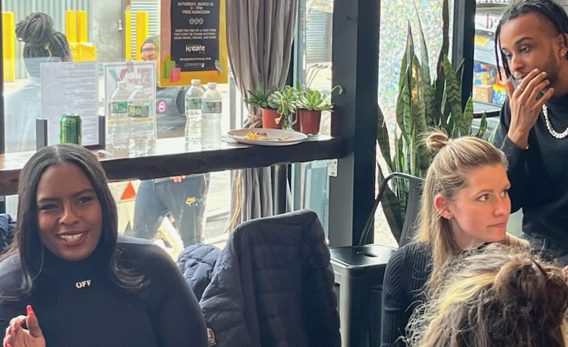
The Germans learned more about Bloomberg News and even got to briefly see former New York Mayor Michael Bloomberg in the broadcasting section of the newsroom at an ordinary desk. They also learned about the massive efforts going on at the Empire State Building to reduce carbon emissions on the 93-year-old building from the building’s media specialist Brock Talbot. The Germans got a look behind the scenes at one of the country’s largest utilities, ConEd, and learned how difficult it is to prevent blackouts in New York City. They also spent a fascinating afternoon the Bronx talking to Black Lives Matter co-founder Chivona Newsome and her work as a political activist as she tries to raise awareness about injustices towards Black Americans.
March 22, 2023
RIAS group tours New York at end of busy USA fellowship
A busy two-week fellowship to the United States for 10 German journalists concluded with a week in New York for more talks about politics, media culture and life in the United States after the group spent four days in Washington DC and two in rural southeastern Pennsylvania during the first week.
 The week in New York included attending a service at the Abyssinian Baptist Church in Harlem with its world-famous choir, meeting WABC reporter/anchor Chantee Lans, a tour of NBC News with senior producer Adam Reiss, a talk in German with WNBC news anchor Michael Gargiulo from his studio, a visit to UN headquarters and a fascinating off-the-record talk with chief spokesman Stephan Dujarric. The group also got to learn more about the 9/11 attacks on the World Trade Center from the only recorded “triple” — attack survivor Gordon Huie, who also got off the ground after narrowly surviving the fallout from the collapsing tower and rushed to a nearby hospital to help treat injured and later found out that his sister had unexpectedly been at a business meeting atop the building and was among those who perished.
The week in New York included attending a service at the Abyssinian Baptist Church in Harlem with its world-famous choir, meeting WABC reporter/anchor Chantee Lans, a tour of NBC News with senior producer Adam Reiss, a talk in German with WNBC news anchor Michael Gargiulo from his studio, a visit to UN headquarters and a fascinating off-the-record talk with chief spokesman Stephan Dujarric. The group also got to learn more about the 9/11 attacks on the World Trade Center from the only recorded “triple” — attack survivor Gordon Huie, who also got off the ground after narrowly surviving the fallout from the collapsing tower and rushed to a nearby hospital to help treat injured and later found out that his sister had unexpectedly been at a business meeting atop the building and was among those who perished.
They learned more about the political situation in the United States from German Consul General David Gill, who also talked about the moving ceremonies at the consulate when elderly Holocaust survivors who fled Nazi Germany come to reacquire their German citizenship and passports so many decades later. New York Times senior producer talked about the success of The Daily podcast and gave the journalists a brief tour of her newsroom and the Germans got the chance to meet and interview Broadway actress Angie Schworer before later watching her performance in the smash musical “Some Like It Hot” at the Shubert Theater. They learned more about the antiquated power grid in New York City at ConEd headquarters and later had a fascinating talk with ABC News senior producer DJ Cunningham before an eye-opening tour of the Hasidic Jewish community in Williamsburg, Brooklyn from Frieda Vizel.
The Germans also went back up to Harlem to see the famous “Amateur Night” Show at the Apollo Theater, took a tour of Bloomberg News, met Goethe Institute New York City director Joerg Schumacher and got a tour of the Empire State Building and its carbon-free retrofit from its media director Brock Talbot. Eager to learn more about conservative bastions in the United States, the German group took the Staten Island ferry to meet Borough President Vito Fossella, who in a lively discussion said the mob that stormed the US Capitol on January 6, 2022 was “wrong” but added that he did not believe the were planning or capable of overthrowing the government. The Germans also met CBS Sunday Morning senior producer Dustin Stephens before celebrating the end of their program at 1014nyc on Fifth avenue with about a dozen US RIAS alumni members from New York and 15 German students who just arrived in town to meet them ahead of their own three-week fellowship to the United States.
March 13, 2023
German journalists explore Washington, Pennsylvania on exchange program
A group of 10 German journalists spent a week in Washington DC learning more about they way politicians and journalists from both Germany and the United States do their work. The 10 Germans from public broadcasting and commercial networks in Berlin, Cologne, Leipzig, and Magdeburg had the chance to visit the press gallery in Congress, the White House press room with Reuters correspondent Jeff Mason, NPR and the WAMU radio station. They also had the chance to learn more from correspondents at 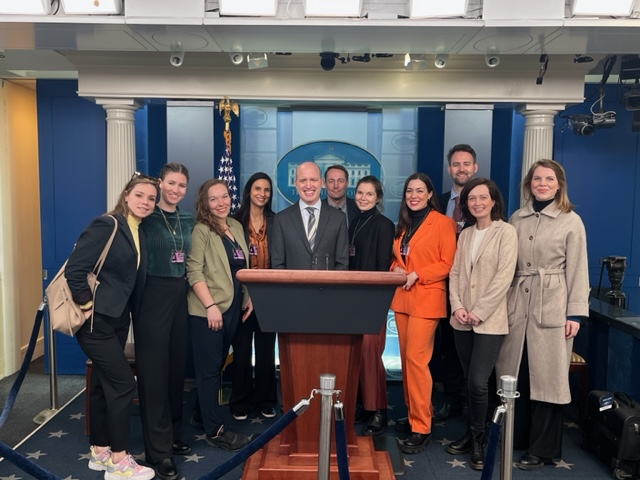 the Washington Post, Reuters, ZDF, Deutsche Welle, NTV, and Welt TV.
the Washington Post, Reuters, ZDF, Deutsche Welle, NTV, and Welt TV.
The journalists learned more about immigration issues and the millions of undocumented residents across the United States from a one-time immigrant Diego Sanchez who spent the first decades of his life in the United States undocumented — and how at times that many are disappointed with policies of Democratic presidents Barack Obama and Joe Biden that fell short of their campaign vows to improve the situation for the undocumented residents.
They also had the chance to talk with two RIAS board member Michael Link, the German government’s transatlantic coordinator, as well as Peter Rough, a senio
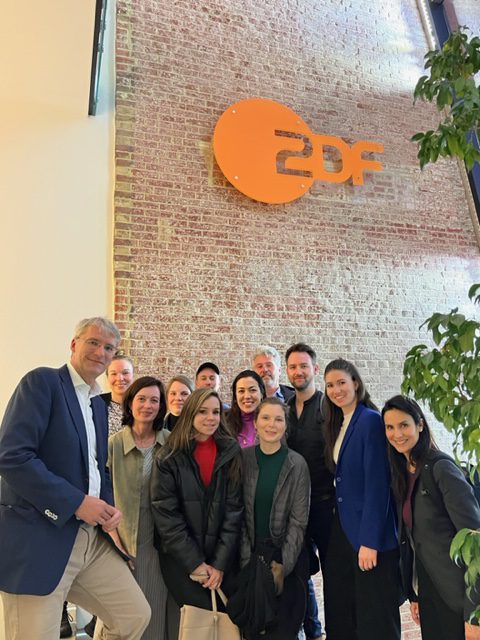 r fellow at the Hudson Institute. Former Deputy Secretary of State for Europe Matthew Boyse talked candidly about concerns in Washington on Germany’s support for Ukraine.
r fellow at the Hudson Institute. Former Deputy Secretary of State for Europe Matthew Boyse talked candidly about concerns in Washington on Germany’s support for Ukraine.
The Germans met about 20 American RIAS alumni at a reception in Washington as well.
The group spent two days in southeastern Pennsylvania learning more about the Amish, efforts to preserve the “Pennsylvania Deitsch” German-language, the conservative voting views of the Amish and many others rural Americans in economically struggling regions and about the traditions they preserved from their 18th century ancestors who immigrated from Germany.
March 2, 2023
15 German students head to USA for RIAS ERP program
A group of 15 German students will be traveling to the USA for a three-week RIAS Berlin Commission ERP fellowship starting on March 17. The students — 10 of whom are from eastern Germany — will spend a week together as a group in New York, visiting with American and German journalists, TV and radio stations as well as the Hasidic Jewish section of Williamsburg in Brooklyn and the Abyssinian Baptist Church in Harlem.
The students will then travel in smaller groups of one to three for two-week visits to American universities to learn more about how students in the United States prepare for journalism careers. The German students will visit American student journalists at the University of Oklahoma, Indiana University, the University of Nebraska, the University of Wisconsin-Madison and Wisconsin-Oshkosh, the University of Montana, the University of Arizona in Tucson and Arizona State University in Phoenix.
It will be the second of eight planed RIAS Berlin Commission fellowships in 2023 — four to the USA for German journalists and four to Germany for American journalists. A total of about 130 journalists from the two countries will be taking part in the exchange programs this year, one of the largest numbers since the German-American exchange program was created more than 30 years ago.
The ERP program is supported by the Transatlantic Program of the Federal Republic of Germany. It is funded by the European Recovery Program (ERP) of the Federal Economy and Energy (BMWi) Ministry.
In New York, the German student journalists will also meet a survivor of the 9/11 attacks on the World Trade Center, a senior Anti-Defamation league leader, a crisis communications manager, a major Con Edison power plant, the governor of New Jersey, borough of Staten Island senior officials, as well as attending Amateur Night at the Apollo Theater and a Broadway musical. They will meet with senior journalists from NBC News, WNBC, The New York Times, ABC News, Vice, ARD radio and television
Here is more information about the 15 German students taking part in the March 17-April 7 RIAS Berlin Commission fellowship:
Jacqueline Albrecht, University of Applied Sciences Magdeburg
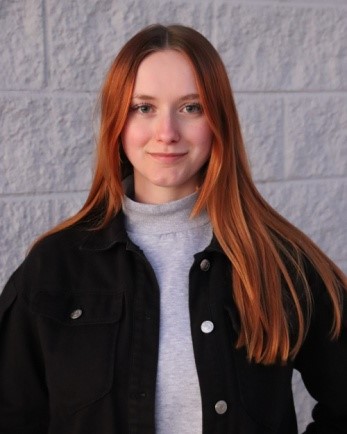 Jacqueline Albrecht is a journalism student at the UAS Magdeburg- Stendal and will graduate in 2023. In 2022 she did an internship at a radio station in Windhoek, Namibia and currently she is hosting the Campus-TV at her university. Albrecht plans to pursue a career in TV, travel or international journalism with a focus on telling stories about people, culture and society.
Jacqueline Albrecht is a journalism student at the UAS Magdeburg- Stendal and will graduate in 2023. In 2022 she did an internship at a radio station in Windhoek, Namibia and currently she is hosting the Campus-TV at her university. Albrecht plans to pursue a career in TV, travel or international journalism with a focus on telling stories about people, culture and society.
Linda Bachmann, Leipzig University, Leipzig
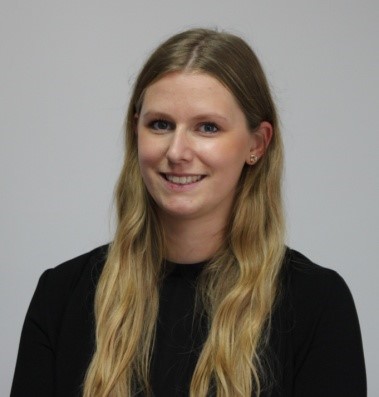 Linda Bachmann is studying journalism at University Leipzig. She also works full-time as a radio news anchor at Regiocast, a commercial radio company in Leipzig. Bachmann has worked on several projects on press freedom, fake news and intercultural exchange, for instance for Deutsche Welle public broadcasting, and also worked for Der Tagesspiegel newspaper in Berlin and MDR television in Leipzig.
Linda Bachmann is studying journalism at University Leipzig. She also works full-time as a radio news anchor at Regiocast, a commercial radio company in Leipzig. Bachmann has worked on several projects on press freedom, fake news and intercultural exchange, for instance for Deutsche Welle public broadcasting, and also worked for Der Tagesspiegel newspaper in Berlin and MDR television in Leipzig.
Wiebke Bolle, FreeTech, Axel Springer Academy, Berlin
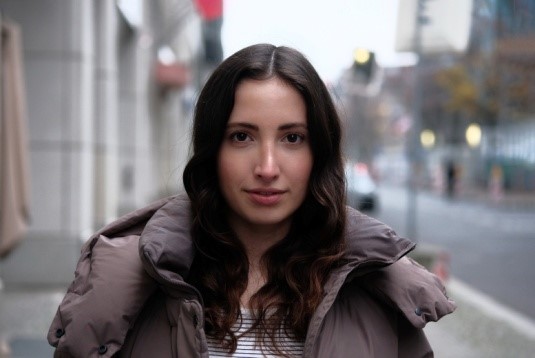 Wiebke Bolle is a graduate of the Axel Springer Academy of Journalism and Technology. For the past two years she’s been working at the science and news & society desk of Die Welt newspaper in Berlin. Bolle is hoping to write for major magazines and is also interested in podcasts and TV journalism.
Wiebke Bolle is a graduate of the Axel Springer Academy of Journalism and Technology. For the past two years she’s been working at the science and news & society desk of Die Welt newspaper in Berlin. Bolle is hoping to write for major magazines and is also interested in podcasts and TV journalism.
Abel Fekade, Leipzig University, Leipzig
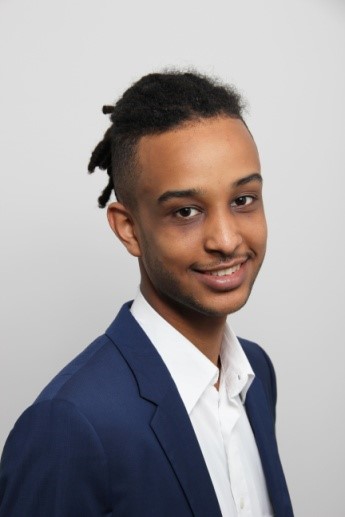 Abel Fekade recently earned a bachelor’s degree in communication and media studies from Leipzig University. He is currently working at the chair of journalism at Leipzig University, where he is co-teaching courses in journalism. During his studies, Fekade has worked in communications and corporate media for the BMW Group. He is planning to enroll into a related master’s degree program in the near future.
Abel Fekade recently earned a bachelor’s degree in communication and media studies from Leipzig University. He is currently working at the chair of journalism at Leipzig University, where he is co-teaching courses in journalism. During his studies, Fekade has worked in communications and corporate media for the BMW Group. He is planning to enroll into a related master’s degree program in the near future.
Jakob Gierth, FreeTech – Axel Springer Academy, Berlin
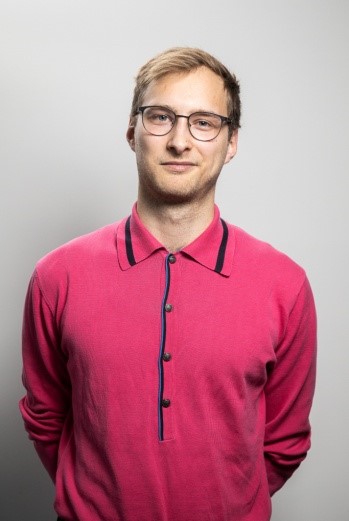 Jakob Gierth is both a journalist trainee for FreeTech academy, and a journalist for German publication “Die Welt” newspaper in Berlin. As a journalist, Gierth’s responsibilities include the development of and scripting for WELT’s science podcast. While working on his bachelor’s degree in communication science (University of Erfurt) Gierth minored in sociology and politics, and worked at multiple German radio stations. During this time he worked as editor, host, and customer advisor.
Jakob Gierth is both a journalist trainee for FreeTech academy, and a journalist for German publication “Die Welt” newspaper in Berlin. As a journalist, Gierth’s responsibilities include the development of and scripting for WELT’s science podcast. While working on his bachelor’s degree in communication science (University of Erfurt) Gierth minored in sociology and politics, and worked at multiple German radio stations. During this time he worked as editor, host, and customer advisor.
Clara Hoheisel, Martin-Luther University Halle-Wittenberg, Halle
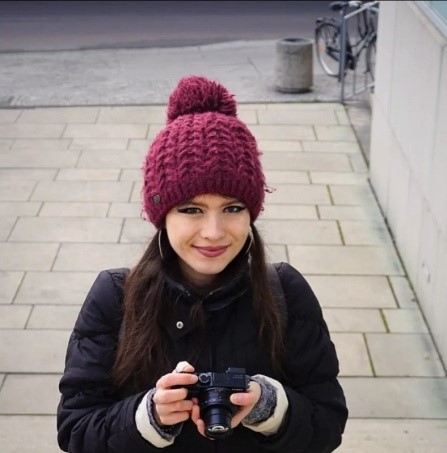 Clara Hoheisel has been studying for a master’s degree in multimedia and authorship (digital journalism) at the University of Halle (Saale) since 2021. She also completed her bachelor’s degree in media and communication sciences and psychology there. In addition, the 24-year-old writes for the university magazine “hastuzeit”, is active at the radio station Corax and has worked as an editor for MDR Kultur, Volksverpetzer and the Katapult magazine. She is also an alumna of the EU program youth4regions.
Clara Hoheisel has been studying for a master’s degree in multimedia and authorship (digital journalism) at the University of Halle (Saale) since 2021. She also completed her bachelor’s degree in media and communication sciences and psychology there. In addition, the 24-year-old writes for the university magazine “hastuzeit”, is active at the radio station Corax and has worked as an editor for MDR Kultur, Volksverpetzer and the Katapult magazine. She is also an alumna of the EU program youth4regions.
Kim Kristin Loschen, Nordwest newspaper, Oldenburg
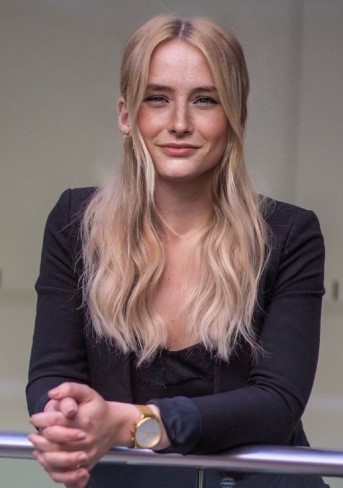 Kim Kristin Loschen is a trainee at a German daily newspaper – the „Nordwest-Zeitung”. She completed her Bachelor’s and Master’s degrees in linguistics and German as a foreign language. At the same time, the trained German teacher has worked for TV channels such as ZDF, WDR and Phoenix (C-Span for Germany) in the political department. Loschen aspires to be a foreign correspondent later in her career.
Kim Kristin Loschen is a trainee at a German daily newspaper – the „Nordwest-Zeitung”. She completed her Bachelor’s and Master’s degrees in linguistics and German as a foreign language. At the same time, the trained German teacher has worked for TV channels such as ZDF, WDR and Phoenix (C-Span for Germany) in the political department. Loschen aspires to be a foreign correspondent later in her career.
Lea Nischelwitzer, University Hagen, Berlin
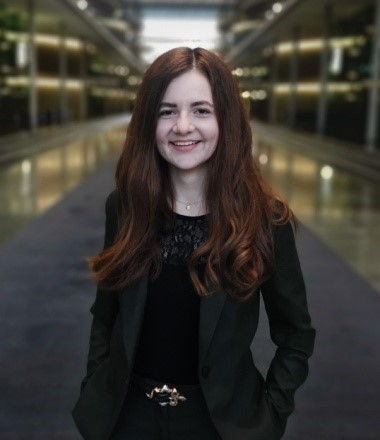 Lea Nischelwitzer is a Psychology studies student at the
Lea Nischelwitzer is a Psychology studies student at the
Hagen University, lives in Berlin and will graduate in 2023. During her studies, she worked for different regional and national media, among others for Die Welt and Handelsblatt newspapers. She is also taking part in a scholarship program of the Konrad-Adenauer-Foundation (JONA) that supports young journalists through seminars and workshops. Her goal is to work for national news media with a focus on politics. She is especially interested in international politics, economics and theology.
Til Schäbitz, Hamburg University, Leipzig University, Leipzig
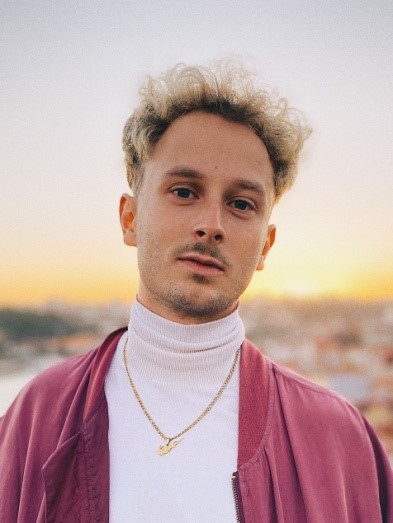 Til Schäbitz is working towards a M.A. in journalism and communication-science at the University of Hamburg while living in Leipzig. Alongside his studies he works as a freelance journalist, mainly anchoring radio shows (e.g. detektor.fm) and presenting News- Podcasts (e.g. SPIEGEL, t-online). His work was awarded with a German Radio Award 2021 for “Best Podcast”. As a researcher he published on 360°-VR-journalism.
Til Schäbitz is working towards a M.A. in journalism and communication-science at the University of Hamburg while living in Leipzig. Alongside his studies he works as a freelance journalist, mainly anchoring radio shows (e.g. detektor.fm) and presenting News- Podcasts (e.g. SPIEGEL, t-online). His work was awarded with a German Radio Award 2021 for “Best Podcast”. As a researcher he published on 360°-VR-journalism.
Anna Seikel, Leipzig University, Leipzig
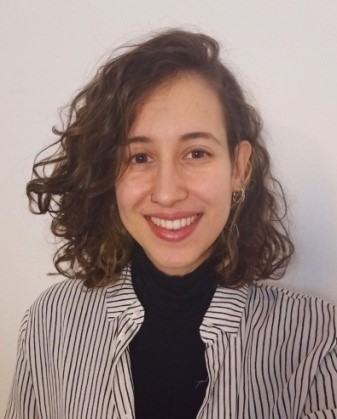 Anna Seikel has a BA degree in Communication and Media Studies, and is now studying towards an M.A. European Studies at Leipzig University. She is currently an intern at netzpolitik.org, a German initiative reporting on digital rights; and has been active as the head of the university politics section in Leipzig’s independent student newspaper ‘luhze’ until this year.
Anna Seikel has a BA degree in Communication and Media Studies, and is now studying towards an M.A. European Studies at Leipzig University. She is currently an intern at netzpolitik.org, a German initiative reporting on digital rights; and has been active as the head of the university politics section in Leipzig’s independent student newspaper ‘luhze’ until this year.
Jana Sievers, Bielefeld University, Braunschweiger Zeitung
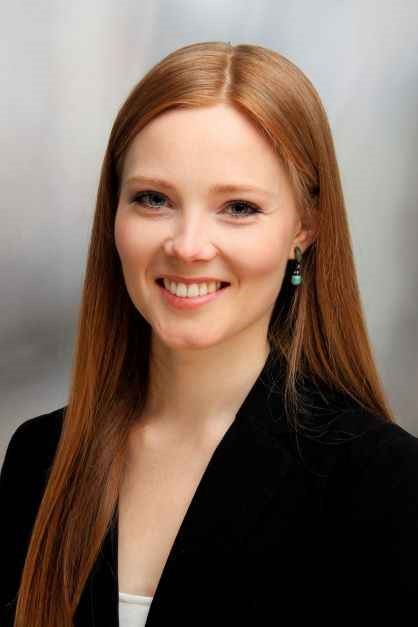 Jana Sievers will complete her Bachelors’ degree in history and literature at the University of Bielefeld in 2023. She has been working as an intern at Braunschweiger Zeitung newspaper (FUNKE Medien) and worked at other daily newspapers in the three previous years. Her special interests are health issues, school politics as well as international politics. She especially enjoys writing feature portraits, producing her own podcast and is eager to have a career in broadcast journalism.
Jana Sievers will complete her Bachelors’ degree in history and literature at the University of Bielefeld in 2023. She has been working as an intern at Braunschweiger Zeitung newspaper (FUNKE Medien) and worked at other daily newspapers in the three previous years. Her special interests are health issues, school politics as well as international politics. She especially enjoys writing feature portraits, producing her own podcast and is eager to have a career in broadcast journalism.
Szuli Wendt, Free University, Berlin
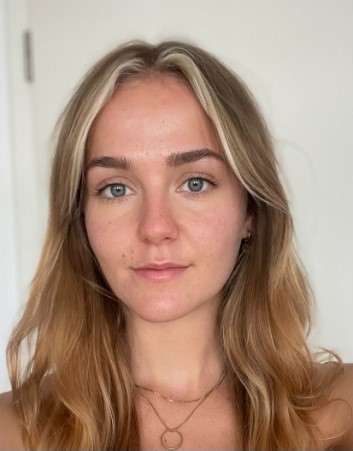 Szuli Wendt is studying Media, Communication, and Political Science at the “Freie Universität Berlin”. She grew up in Eastern Berlin. Alongside her studies she works for the regional public broadcasting “RBB Berlin Brandenburg” as the assistant of the editor in chief for the regional evening news show „Abendschau”. To fulfil her dream of becoming a news anchor to present relevant topics and news from all over the world, she also established her own “Interview” Podcast in 2020.
Szuli Wendt is studying Media, Communication, and Political Science at the “Freie Universität Berlin”. She grew up in Eastern Berlin. Alongside her studies she works for the regional public broadcasting “RBB Berlin Brandenburg” as the assistant of the editor in chief for the regional evening news show „Abendschau”. To fulfil her dream of becoming a news anchor to present relevant topics and news from all over the world, she also established her own “Interview” Podcast in 2020.
Simon Wörz, Ludwig-Maximilians-University, Munich
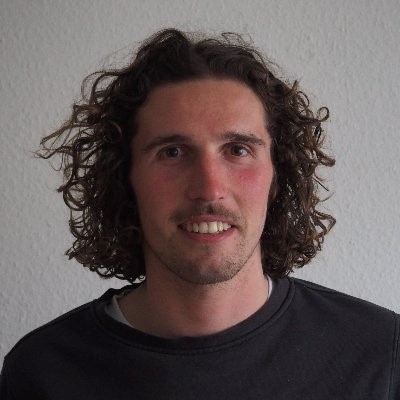 Simon Wörz is a graduate of the German School of Journalism in Munich. He is currently finishing his master’s degree with a semester abroad at the National Autonomous University in Mexico City. He has done various internships and contributed to regional and national newspapers like Stuttgarter Zeitung, Zeit or taz. Most recently, he worked for the public broadcaster Bayerischer Rundfunk on a non-fictional storytelling podcast and published an investigation about the business of carbon offsetting in the course of the soccer world cup in Qatar.
Simon Wörz is a graduate of the German School of Journalism in Munich. He is currently finishing his master’s degree with a semester abroad at the National Autonomous University in Mexico City. He has done various internships and contributed to regional and national newspapers like Stuttgarter Zeitung, Zeit or taz. Most recently, he worked for the public broadcaster Bayerischer Rundfunk on a non-fictional storytelling podcast and published an investigation about the business of carbon offsetting in the course of the soccer world cup in Qatar.
Miriam Wüst, Leipzig University, Leipzig
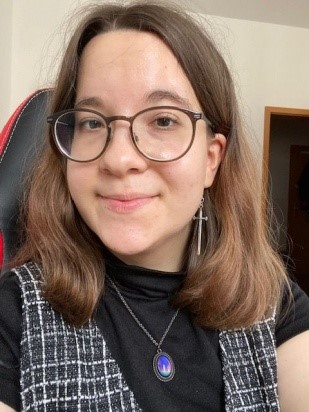 Miriam Wüst is a Communications and Media Sciences student at the University of Leipzig and will finish her bachelor ́s degree in summer of 2023. She has been working at her University ́s campus radio for two years now and in this time has taken on leading positions and helped with transformation processes. Besides radio journalism she also gained first experiences in TV reporting during an internship at german broadcast ZDF.
Miriam Wüst is a Communications and Media Sciences student at the University of Leipzig and will finish her bachelor ́s degree in summer of 2023. She has been working at her University ́s campus radio for two years now and in this time has taken on leading positions and helped with transformation processes. Besides radio journalism she also gained first experiences in TV reporting during an internship at german broadcast ZDF.
Malkam Goytom, Free University, Berlin
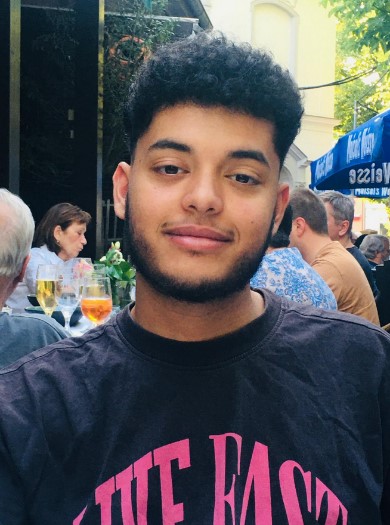 Malkam Goytom is studying Business Administration at the “Freie Universität Berlin“ with an interest in journalism and multimedia productions. He will complete his Bachelors’ degree in 2023. Goytom’s academic pursuits have led him to develop a strong interest in journalism, marketing and management, and he plans to attend a Master’s program in these fields upon completing his Bachelor’s degree. He follows American professional sports leagues and sports journalism in the US and hopes to expand his knowledge of those during his USA fellowship
Malkam Goytom is studying Business Administration at the “Freie Universität Berlin“ with an interest in journalism and multimedia productions. He will complete his Bachelors’ degree in 2023. Goytom’s academic pursuits have led him to develop a strong interest in journalism, marketing and management, and he plans to attend a Master’s program in these fields upon completing his Bachelor’s degree. He follows American professional sports leagues and sports journalism in the US and hopes to expand his knowledge of those during his USA fellowship
February 27, 2023
Four American and German stories picked RIAS Media Prize winners in 2023
The RIAS Berlin Commission announced four winners from this year’s annual RIAS Media Prize
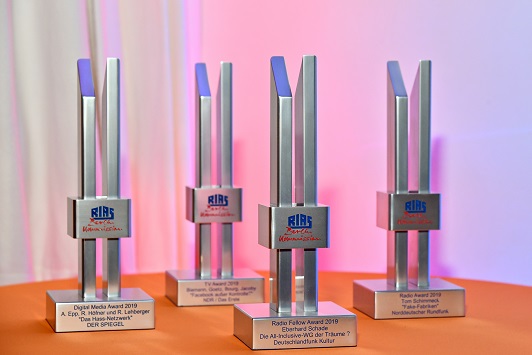
Awards on Monday. The 31st annual award is presented by the German-American exchange program and celebrates the best of transatlantic broadcast journalism with up to 10,000 EUR inprize-money awarded. The jury made up of six distinguished journalists from the United States and Germany selected the four winners in TV, Radio and Digital Media categories submitted from across the United States and Germany on February 27, 2023.
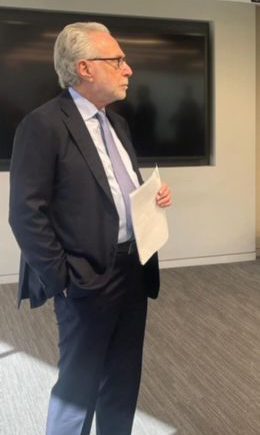
Wolf Blitzer (CNN) won the grand prize for his film “Never Again” about the U.S. Holocaust Memorial Museum; Stephanie Wolf and Jess Clark (Louisville Public Media News) won a prize for their radio story “A Critical Moment” comparing how the United States and Germany teach schoolchildren about their respective painful histories; Benjamin Arcioli and Hans Jakob Rausch (ARD German TV documentary) won a prize for their story “Ramstein, the documentary”; and Patrick Stegemann won the digital prize for his six-part podcast “Hacking Anonymous” about a group that has been waging a digital war against Russia since it invaded Ukraine in 2022.
The RIAS Berlin Commission will host a gala ceremony on June 1, in Berlin to honor to the winners from the 2023. The RIAS Berlin Commission, created after the legendary Radio in American Sector (RIAS) broadcaster went off the air in 1993, has been operating exchange programs for more than 1,950 German and American broadcast journalists since 1993 with the aim of promoting transatlantic understanding in journalism and keeping alive the spirit of the Cold War-era radio and TV broadcasting network.
Here are the 2023 winning entries:
RIAS Berlin Commision Grand Prize
Wolf Blitzer, CNN, “Never Again: The United States Holocaust Memorial Museum, A Tour with Wolf Blitzer”
RIAS Berlin Commision Best TV Story Award
Benjamin Arcioli and Hans Jakob Rausch, ARD, “Ramstein, The Documentary”
RIAS Berlin Commission Best Radio Story Award
Stephanie Wolf and Jess Clark, Louisville Public Media News, “A Critical Moment”
RIAS Berlin Commission Best Digital Story Award
Patrick Stegemann, Serafin Dinges, Sylke Gruhnwald and Khesrau Behroz RBB, NDR, Undone podcast: “Legion: Hacking Anonymous”
Jury statements:
Never Again: The United States Holocaust Memorial Museum, A Tour with Wolf Blitzer
In his illuminating and moving story for CNN on the Holocaust, Wolf Blitzer takes viewers on a personalized examination of the horrors of the past in the hope that nothing like it can ever happen again. With his signature stick-to-the-facts style of storytelling, Blitzer expertly weaves together a powerful story that includes not only the most salient information about the genocide that is delivered during a walking tour of the United States Holocaust Museum in Washington DC with its director Sara Bloomfield, but also includes telling insights about his own family’s place in that history. There are audio and video recordings of his father’s survival story. His four grandparents perished. Blitzer has put a bright spotlight on how the Holocaust is remembered — and also forgotten — in the United States and Germany with an important story on the past for the present and future.
Ramstein – The Documentary: The Ramstein Air Base disaster in 1988 that killed 70 people and injured hundreds more when three Italian stunt jets collided at low altitude right in front of a crowd of spectators is the focus of a harrowing ARD German TV film by Benjamin Arcioli and Hans Jakob Rausch. The impressive film takes a critical look at some of the mistakes made before, during and after the catastrophe in an attempt to help survivors and eyewitnesses come to terms, belatedly, with the horrific accident that left deep scars on West Germany. Interviews with experts and eyewitnesses are also part an outstanding narrative that helps viewers better understand the accident.https://www.ardmediathek.de/sendung/ramstein-das-durchstossene-herz/Y3JpZDovL2Rhc2Vyc3RlLmRlL3JhbXN0ZWluLWRhcy1kdXJjaHN0b3NzZW5lLWhlcno
“A Critical Moment”, Stephanie Wolf and Jess Clark: In their report “A Critical Moment” for Louisville Public Media, Stephanie Wolf and Jess Clark examine one of the flash points in American schools: how to teach students about race and history. Wolf and Clark compared what has been happening in the United States, where laws have been enacted to ban certain topics around race and its legacy from classrooms, with Germany, where students are required to learn about their nation’s crimes against humanity during the Holocaust. In “A Critical Moment”, we hear from German and American educators and experts who speak about the importance of confronting the most difficult times in their country’s history. We also hear from critics who say these type of lessons are not education, but rather indoctrination. https://www.lpm.org/news/a-critical-moment
“Hacking Anonymous”, six-part series for RBB and NDR by Patrick Stegemann, Serafin Dinges, Sylke Gruhnwald and Khesrau Behroz: Russia’s war on Ukraine is a brutal, barbaric act. But this war is being waged in a much more difficult way on another battlefield: On the Internet. The hacker group called “Anonymous” has declared war on Russia. The podcast “Hacking Anonymous” is a gripping thriller that takes the listener on a journey from Germany across Europe to the United States where the group has its origins. Patrick Stegeman gives us insights that have not been seen before. He tries to show who is behind the Anonymous mask and shows that borders no longer matter in the digital cosmos. And shows how much Anonymous has changed the Internet. The story remains free of judgement. it is meticulously researched and asks the right questions. It is a most convincing winner in the digital category. https://www.rbb-online.de/legion/
February 23, 2023
10 German journalists head to USA for first of 8 RIAS programs in 2023
A group of 10 German broadcast journalists will be traveling to the USA for a two-week RIAS Berlin Commission fellowship starting on March 5. It will be the first of eight RIAS Berlin Commission fellowships in 2023 — four to the USA for German journalists and four to Germany for American journalists. A total of about 130 journalists from the two countries will be taking part in the exchange programs this year, one of the largest numbers since the German-American exchange program was created more than 30 years ago.
The 10 Germans in the first program of 2023 will spend five days in Washington DC meeting German and American journalists, visiting think tanks, Congress and meeting with a Republican member of Congress from Pennsylvania. They will then spend two days in Lancaster County, Pennsylvania to learn more about conservative parts of the United States before traveling to New York City for the final six days of their fellowship, where they will meet journalists, politicians, Jewish community leaders, church leaders in Harlem and a survivor of the 9/11 attacks on the World Trade Center as well as attending Amateur Night at the Apollo Theater and a Broadway musical.
Here is more information about the 10 German journalists taking part in the March RIAS Berlin Commission fellowship
Maja Weber, Phoenix TV, ZDF TV, Bonn, Mainz
Maja Weber is an anchor at Phoenix TV’s nightly news program “Der Tag” in Bonn and also works as a news anchor for ZDF TV in Mainz. She has also worked for newspapers and radio stations. Weber has worked at the German-French Arte network and ARD TV’s “Tagesschau 24” newscast. She studied political science, history and languages in France and Italy as well as in Germany. Her family came to Germany from Serbia and she speaks five languages: Serbo-Croatian, Italian, French, English, and German.
Christian Herrmann, NTV, Berlin
Jenny Barke, RBB, Berlin
Julia Cruz is a reporter and editor for the German public broadcaster ARD. She works for two news stations in Berlin and Leipzig, especially for daily news programs. Cruz is a specialist on political and medical reporting.
Madeleine Hofmann, ZDF TV & Deutschlandfunk German Radio, Berlin
Madeleine Hofmann is a freelance journalist and news writer, working for media outlets such as the German public broadcaster ZDF and Deutschlandfunk Kultur radio. Hofmann specializes on social policy, generational justice and the diversity of political institutions, especially the represantation of young people in politics.
Friederike Rohmann, MDR TV, Leipzig
Mathis Trapp, WDR, Cologne
Sophie Wannenmacher, RBB TV, Berlin
Laura Weber, RTL, Cologne
Laura Maria Weber is an editor and reporter for the business department of RTL and NTV. She especially deals with topics such as e-mobility, climate change and international markets and specializes in female finance and financial education in her work. Weber works for several TV programs at RTL and most of the time for NTV ́s business TV program.
February 22, 2023
RIAS alumni Dornblüth warns about long-term problems in Russia
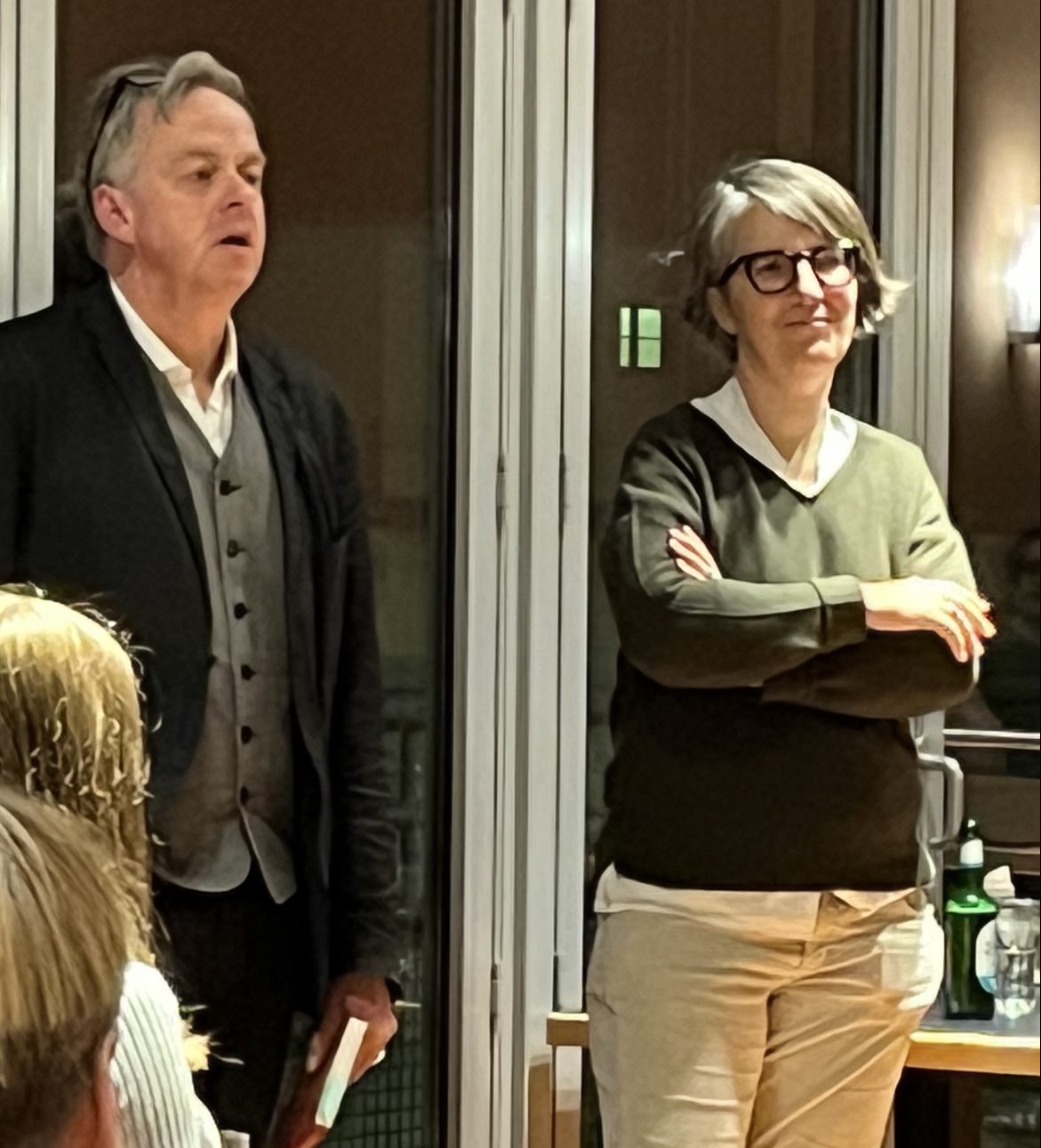 RIAS alumni Gesine Dornblüth and her co-author Thomas Franke presented their new book “Jenseits von Putin” (Beyond Putin) to a RIAS Berlin alumni chapter gathering at the historic RIAS building’s rooftop restaurant on Wednesday evening, Feb 22. The two radio correspondents who have spent much of the last decade reporting from and about Russia for German radio talked to the group of about 35 RIAS Berlin alumni and candidates for future programs about the findings in their new book.
RIAS alumni Gesine Dornblüth and her co-author Thomas Franke presented their new book “Jenseits von Putin” (Beyond Putin) to a RIAS Berlin alumni chapter gathering at the historic RIAS building’s rooftop restaurant on Wednesday evening, Feb 22. The two radio correspondents who have spent much of the last decade reporting from and about Russia for German radio talked to the group of about 35 RIAS Berlin alumni and candidates for future programs about the findings in their new book.
They noted that they and those who were paying attention since about 2012 had been fully warned the war against Ukraine was looming. Sadly they said they see no near-term end to the fighting and make other ominous forecasts about things possibly getting even worse after Putin.
The Berlin alumni chapter’s gathering, which was organized by the local Berlin 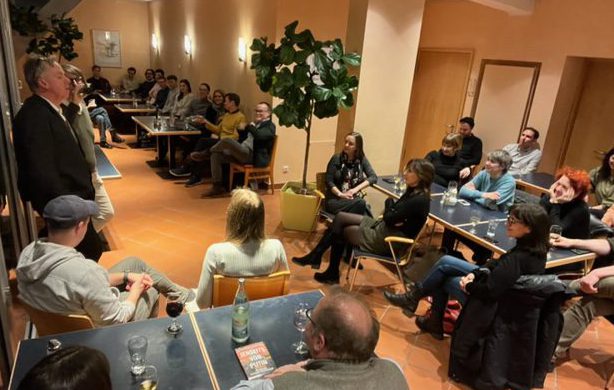 alumni chapter, was the latest in a series of talks and get-togethers designed to foster the alumni network. There are nearly 2,000 broadcast journalists in the USA and Germany who have taken part in RIAS exchange programs over the last 30 years. Last month, the Berlin alumni chapter hosted a talk by RIAS board chairman Robert L. Greenan, from the USA embassy in Berlin.
alumni chapter, was the latest in a series of talks and get-togethers designed to foster the alumni network. There are nearly 2,000 broadcast journalists in the USA and Germany who have taken part in RIAS exchange programs over the last 30 years. Last month, the Berlin alumni chapter hosted a talk by RIAS board chairman Robert L. Greenan, from the USA embassy in Berlin.
There are RIAS Berlin alumni chapters in Berlin, Cologne, Hamburg, Mainz, Leipzig, New York, Washington and Los Angeles. Participants past, present and future are welcome to take part in the informal gatherings. There will be a big annual RIAS alumni get-together on June 2, 2023 in Berlin. Other events are planned in Washington DC on March 9 and in New York on March 17. Please write info@riasberlin.org for further information.
February 13, 2023
Alumni database for RIAS Berlin participants in USA, Germany on the way
The RIAS Berlin Commission is hoping to building a stronger and more transparent RIAS network and we need your help!
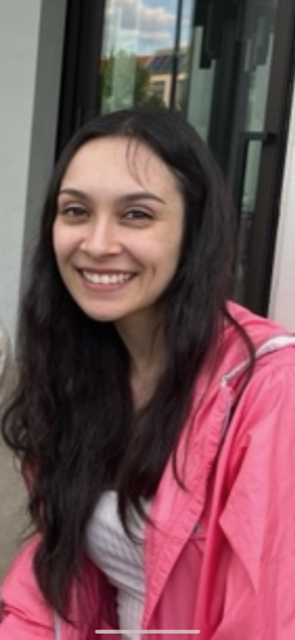
Over the years, many of former RIAS Berlin Commission program participants have expressed interest in being part of such a transatlantic network — an easily accessible network where alumni could be more easily and directly connected.
For that goal, RIAS Berlin alumni and US coordinator Pam Ortega has volunteered to try to put together an alumni database for everyone interested in connecting with their former group members as well as other Americans or other Germans from different years.
There are more than 1,900 RIAS alumni in the United States and Germany who have taken part in programs all the way back to 1993. We are hoping this database could lead to more RIAS alum meetings and contacts in various cities across Germany and the United States. Participation is entirely voluntary.
There have been many timesin the past when, for instance, a German correspondent in Washington DC is planning a reporting trip to South Dakota or Texas and inquires with the RIAS office in Berlin if there is a RIAS alumni in, say, Sioux Falls or San Antonio who could possibly help with contacts to improve their reporting or when an American journalist in New York is eager to contact journalists in Berlin after a giant fish tank explodes and spills its contents out onto a busy street and is looking for possible video clips of the disaster.
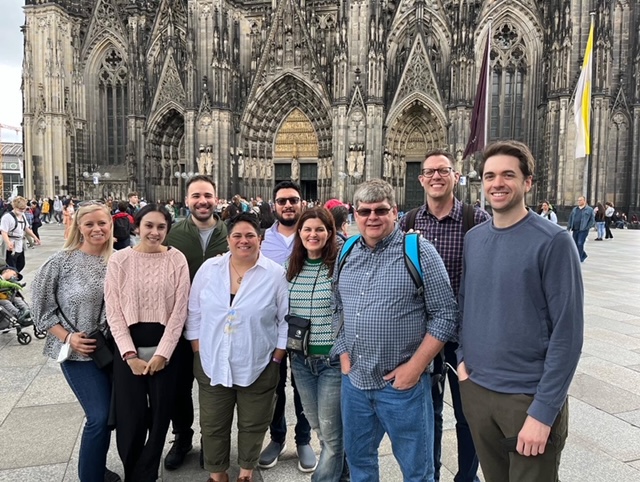
Or sometimes German and American journalists working on similar stories — such as the difference between how the United States and Germany deal with controversial historical statutes — will even work together on their stories and share their reporting work.
Their stories have aired in both countries and used some of the same soundbites.
Having a RIAS alumni data base would help members contact each other faster and more directly.
So please take a look at Pam Ortega’s alumni survey and please participate. Here is the alumni survey link: https://forms.gle/HpXefENMEGRw4yo7A
January 30, 2023
RIAS Berlin Media Prize – Career Changing Recognition for Local Journalists
When Texas TV journalists David Wagner and Monica Quintero were invited to take part in the RIAS Berlin Commission’s Program for American journalists in 2019, they made a deal in advance with  their respective stations in San Angelo and Midland-Odessa, Texas. The colleagues were able to take two weeks off of work to take part in the educational program in exchange for the promise to bring back some “content”.
their respective stations in San Angelo and Midland-Odessa, Texas. The colleagues were able to take two weeks off of work to take part in the educational program in exchange for the promise to bring back some “content”.
So they packed a DSLR camera, along with some lavalier microphones that could be plugged into their iPhones and they flew to Berlin.
In between the three to five meetings each day during the RIAS program’s full schedule of daily meeting with German politicians, journalists and business leaders, Wagner and Quintero worked together for their half hour special that took a look at some of the aspects of the program and their own observations. It was entitled “Beyond Borders: A Trip Abroad”. Here is their award-winning film.
They sometimes worked late into the evening and night in their free time to work on their report. Wagner says his professional goal has always been ‘to make a difference across the board”, and they specially examined how German and Americans tackle a range of issues like gun control, immigration… and even walls. One of their segments compared the history of the Berlin Wall, with the debate over a wall at the southern US border.
With no crew, Wagner shot Quintero’s interviews and she taped his, all with an iPhone and a DSLR. Once back home, they had to send scripts and voice tracks between KLST/KSAN in San Angelo, where Wagner was news director and Quintero’s station, in KPEJ in Midland-Odessa.
“Beyond Borders: A Trip Abroad” aired on several stations in Texas and was submitted for the RIAS Media Prizes in 2019. The next spring, the RIAS Media Prize jury chose it as “Best Fellow Award” – one of five prestigious prizes awarded each year by the German-American exchange program. By winning the prize and the $1,000 award, Wagner also got another trip to Berlin to pick up the award (Quintero was busy preparing for her wedding and couldn’t make it.).
“It was amazing to go back”, says Wagner. “It’s a feather in your cap that you won an international award.”
It’s a rare opportunity for local journalists working in markets across the United States, but one that’s coming up again soon.
The RIAS Berlin Commission is welcoming submissions for its 2023 Media Prize for stories reported in 2022. A total of $10,000 in prize money is available for the slate of prizes. The deadline for submissions in Jan. 31, 2023. Please write to info@riasberlin.org for more information or take a look at the www.riasberlin.org website.
January 23, 2023
RIAS Berlin Media Prize Jury chair Gargiulo talks about competition as deadline nears
Michael Gargiulo, an anchor at WNBC TV in New York City, has been the co-chair of the RIAS Media Prize Jury since 2020 and a member of the independent German-American jury since 2018. There are three Americans journalists and three German journalists on the independent jury that has been awarding the prize annually since 1994. The other Americans on the jury are: Melissa Eddy, a correspondent for the The New York Times in Berlin; and Yami Virgin, a reporter at KAAB Fox in San Antonio, Texas. The German co-chair is Anja Heyde (a reporter/anchor at ZDF/MDR TV, Berlin/Magdeburg) and other members are: Helge Fuhst (editor-in-chief of Tagesthemen at ARD, Hamburg) and Christian Wilp (reporter at NTV, Berlin)
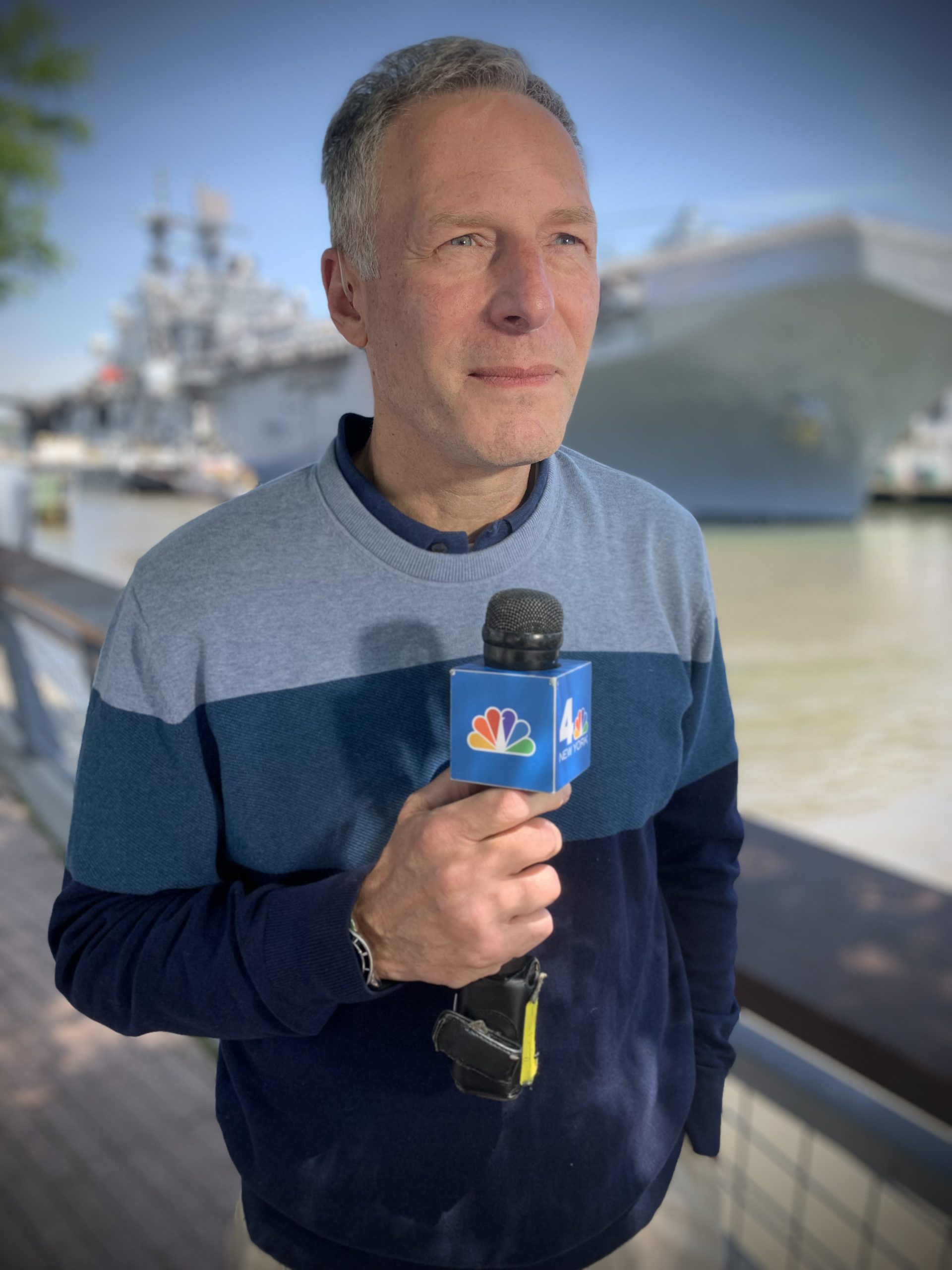 Question: Can you tell us, based on your many years’ experience on the RIAS jury, what kind of story tends to grab the attention of the jury members? What kind of stories do jury members like to watch or listen to?
Question: Can you tell us, based on your many years’ experience on the RIAS jury, what kind of story tends to grab the attention of the jury members? What kind of stories do jury members like to watch or listen to?January 11, 2023
RIAS Alumni donations rise again in 2022
Private donations to the RIAS Berlin Commission climbed to a record total of 22,100 EUR in 2022 — with contributions coming from 96 alumni and friends of RIAS in Germany (54) and the United States (42). Ninety-six was the largest number of donors and largest total amount contributed in a single year to the RIAS Berlin Commission since its donation drive program was launched in 2016. The total in 2022 was more than twice as much as in the previous record year of 2019, which was right before the Covid-19 pandemic, when a total of 10,925 EUR was donated.
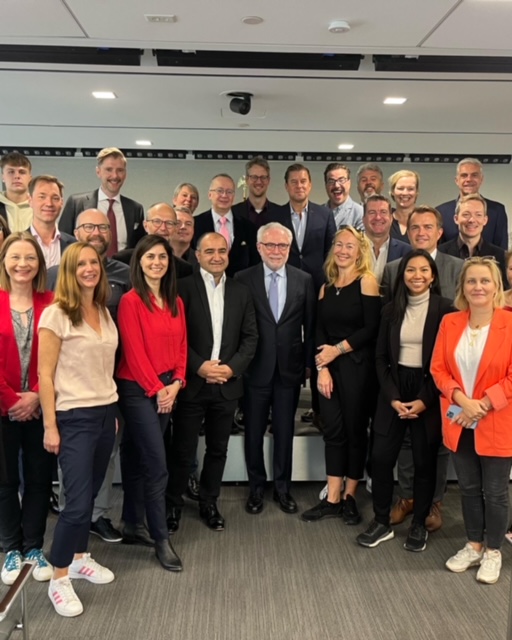 “It’s really fantastic to see how many RIAS alumni and friends of RIAS made contributions in 2022,” said RIAS Berlin Commission Executive Director Erik Kirschbaum. “It shows how much energy and enthusiasm there is out there from former participants to give something back for their life-changing experiences on RIAS programs and to want to stay connected to help keep the spirit of RIAS alive for future participants and future programs.”
“It’s really fantastic to see how many RIAS alumni and friends of RIAS made contributions in 2022,” said RIAS Berlin Commission Executive Director Erik Kirschbaum. “It shows how much energy and enthusiasm there is out there from former participants to give something back for their life-changing experiences on RIAS programs and to want to stay connected to help keep the spirit of RIAS alive for future participants and future programs.”
Even though alumni donations have a greater tradition in the United States than in Germany, RIAS Berlin Commission is committed to sharing German customs with Americans and American customs with Germans. That has been the magic transatlantic recipe in developing the donation culture among RIAS alumni in both countries, Kirschbaum said. He added that every euro or dollar of the donated funds would be put towards adding spots on the RIAS exchange programs – eight are planned in 2023 with a total of about 140 participants.
Those generous donations in 2023 will help make it possible to expand the exchange programs in 2023. The tax-deductible donations in 2022 included 13,130 EUR from 54 alumni in Germany (up from 42 in 2021) and $8,975 from 42 alumni (up from 16 in 2021) in the United States
There was a wide range from individual donors in 2022, from $50 to $750 in the United States and 30 euros and 1,000 euros in Germany. RIAS Berlin Commission says a big thanks to all donors!
Large donors (200 euros or more) included: Michael Gargiulo, 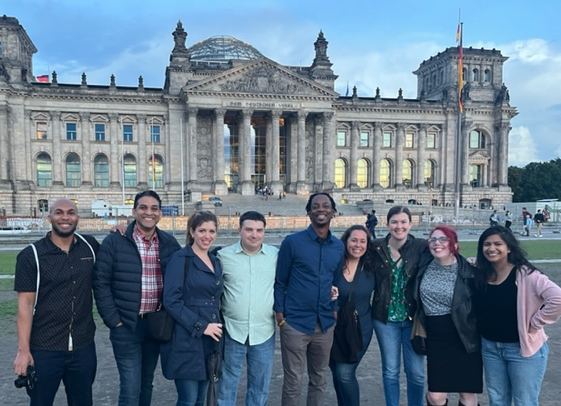 Erik Kirschbaum, Martin Richter, Nadja Kriewald, Isabelle Körner, Birgit Lamhammer, Dilek Üsük, Kristian Wiegand, Andre Schuenke, Susan Falkenstein, Daniel Pokraka, Christel Blanke, Anne Sieger, Helge Fuhst, Matthias Bähr, Gesinde Dornblueth, Zlatin Nikov, Michael Stang, Cornelia Gerhard, Janelle Dumalaon, Damla Hegimoglu, Annika Witzel, Okka Gundel, Sarah Williams, Mareike Makosch, Roseanne Gerin, Gregor Schmalzried, Colin Ward, Thomas Demane, Sabine Krebs, Brittany Silverstein, Suzie Herman, Erika Angulo, Bonnie North, Scott Neuman, Ingo Zamperoni, Nadine Bader, Theresa Greim, Andreas Büttner, Nazan Gökdemir, Christian von Rechenberg, Marc Krüger, Nadine Jantz, Najima Joussaoui, Heinz Neno Kampmann, and Julius van de Laar.
Erik Kirschbaum, Martin Richter, Nadja Kriewald, Isabelle Körner, Birgit Lamhammer, Dilek Üsük, Kristian Wiegand, Andre Schuenke, Susan Falkenstein, Daniel Pokraka, Christel Blanke, Anne Sieger, Helge Fuhst, Matthias Bähr, Gesinde Dornblueth, Zlatin Nikov, Michael Stang, Cornelia Gerhard, Janelle Dumalaon, Damla Hegimoglu, Annika Witzel, Okka Gundel, Sarah Williams, Mareike Makosch, Roseanne Gerin, Gregor Schmalzried, Colin Ward, Thomas Demane, Sabine Krebs, Brittany Silverstein, Suzie Herman, Erika Angulo, Bonnie North, Scott Neuman, Ingo Zamperoni, Nadine Bader, Theresa Greim, Andreas Büttner, Nazan Gökdemir, Christian von Rechenberg, Marc Krüger, Nadine Jantz, Najima Joussaoui, Heinz Neno Kampmann, and Julius van de Laar.
The RIAS Berlin alumni chapters set up in Hamburg, Berlin, Cologne, Rhine-Main, Brussels, New York, Washington and Los Angeles are helping spread the message on donations. The alumni chapters play the central role in selecting up to about 30 participants for the 2023 one-week alumni programs in Cologne/Munich in late September and Los Angeles in late October. With more than 2,000 alumni over the 30 years, the RIAS Berlin Commission is hoping to double the amount of donations in coming years.
The RIAS Berlin Commission’s annual Media Prize awards ceremony planned for June 1 in Berlin. There will also be a panel discussion and alumni get-together the following evening in Berlin on June 2. All alumni are cordially welcome to attend both events. In the United States, alumni get-togethers are planned for Washington DC on March 9 and in New York City on March 17. There will also be a series of alumni events at the RTDNA Excellence in Journalism convention.

